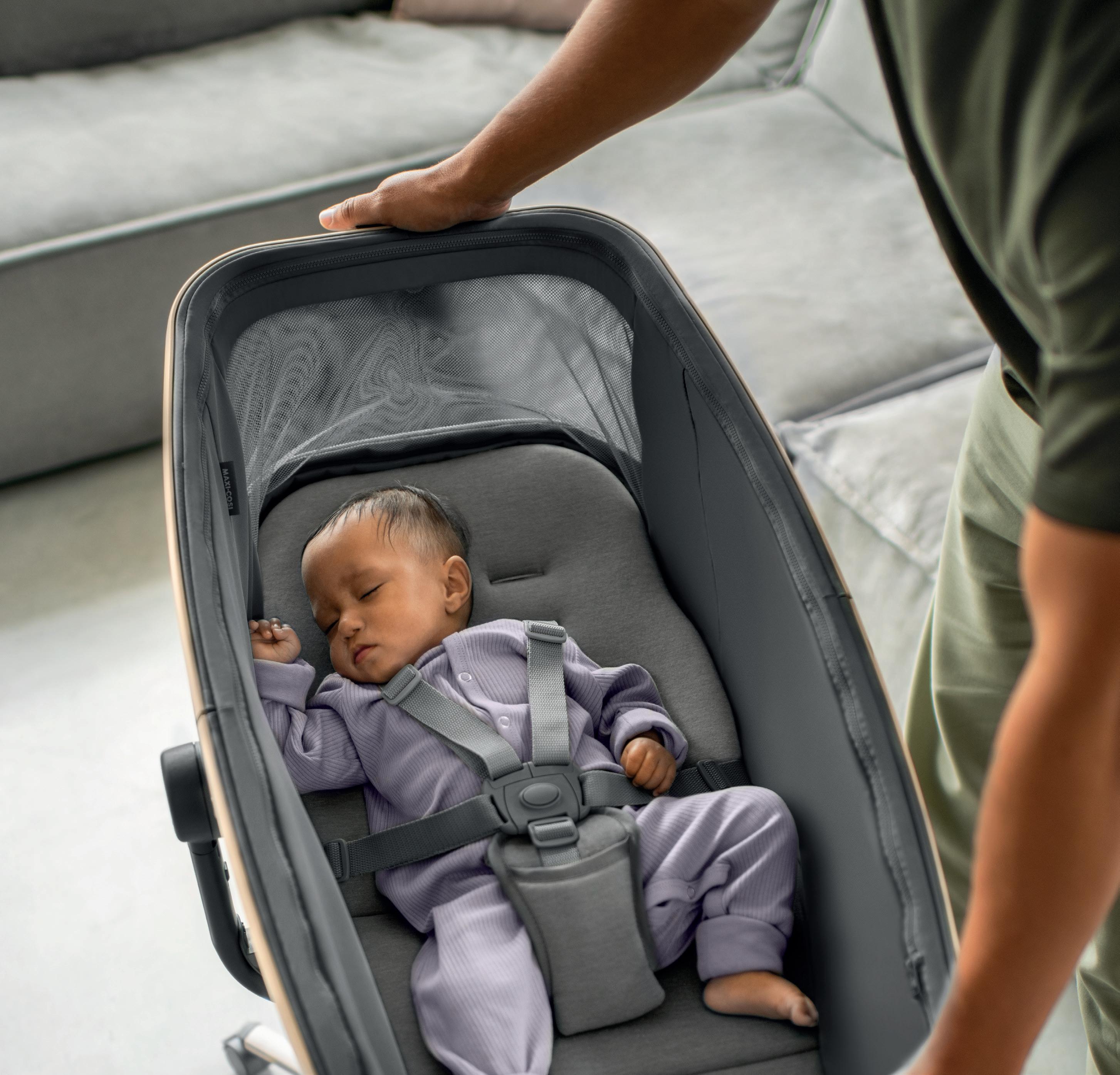

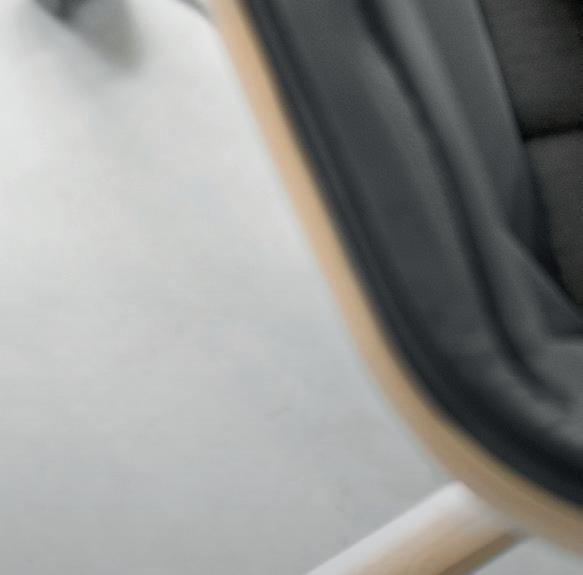
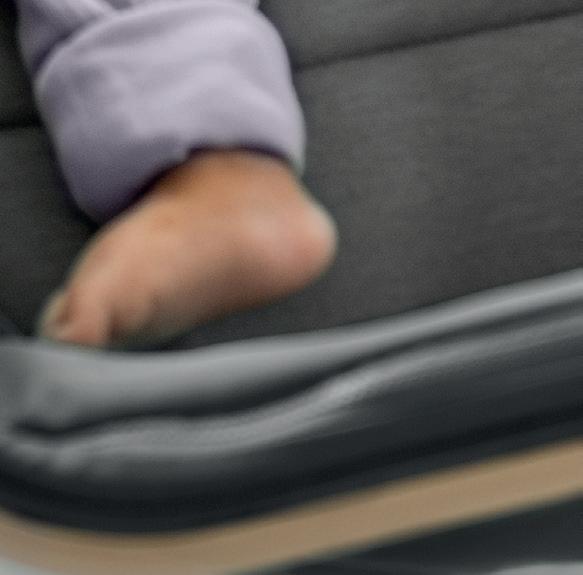
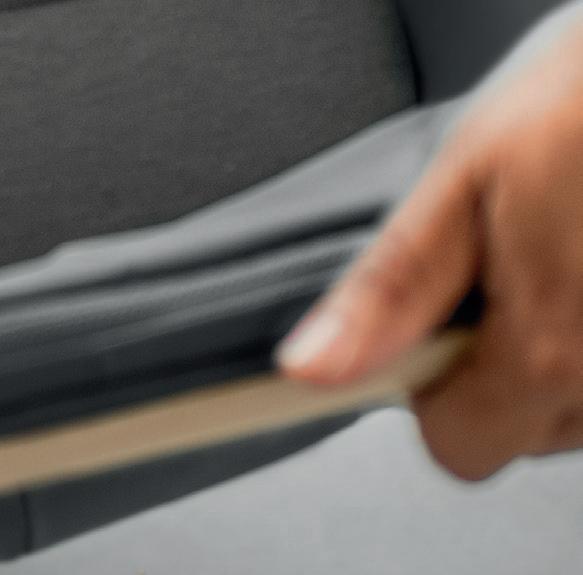
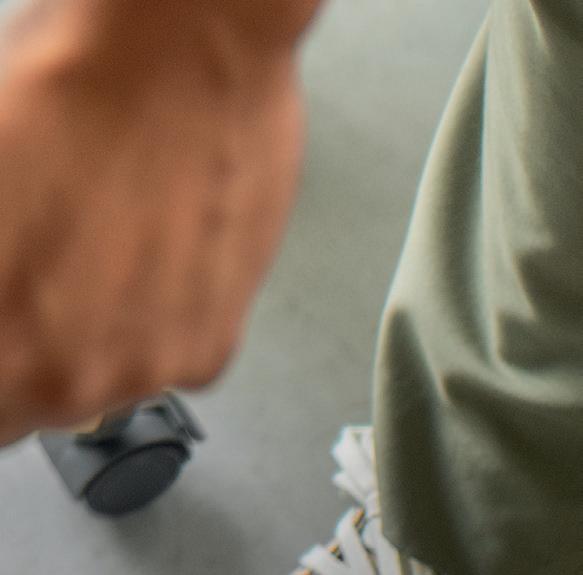
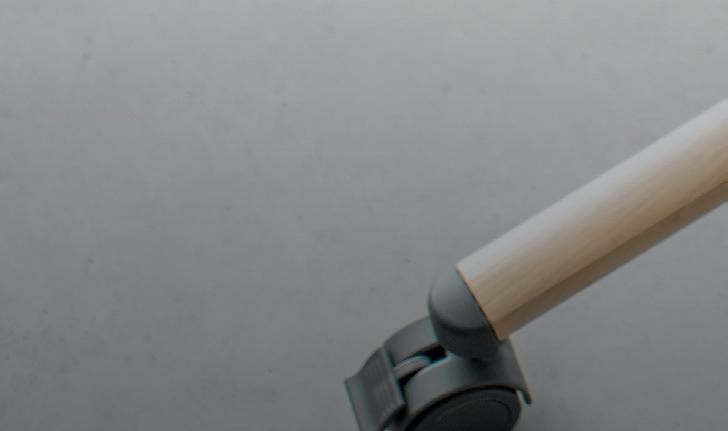
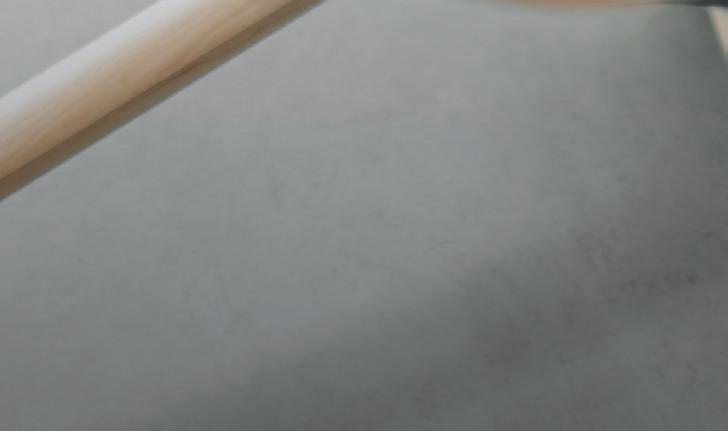
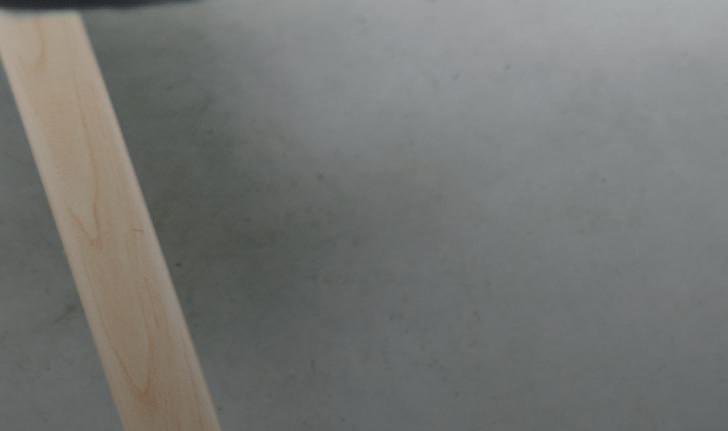
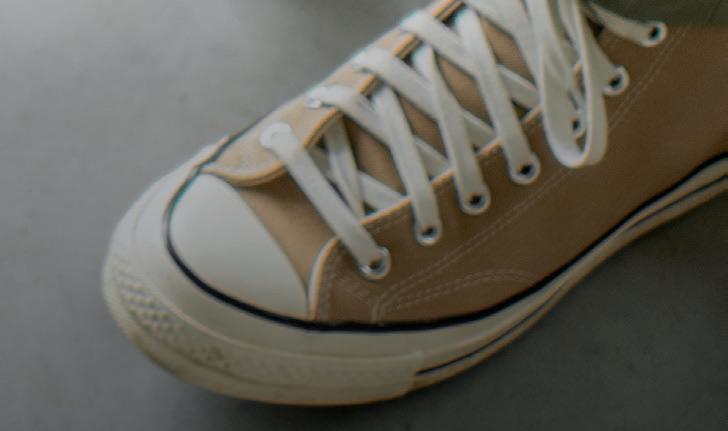
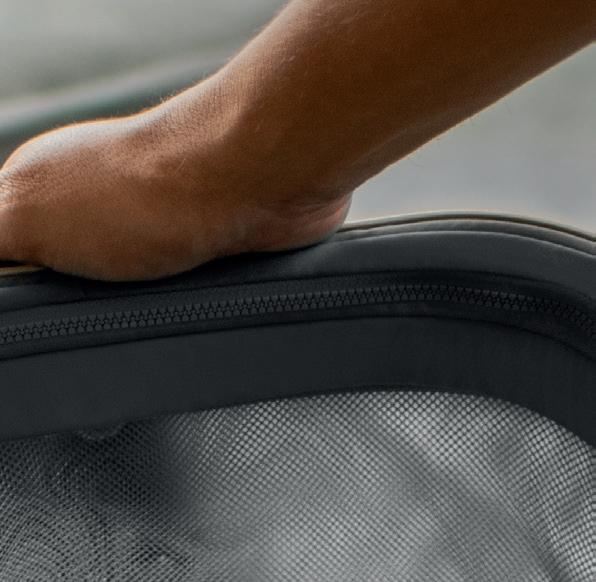
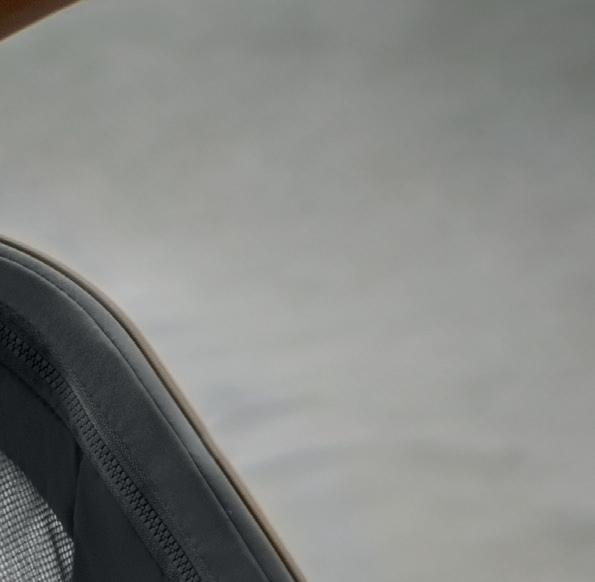
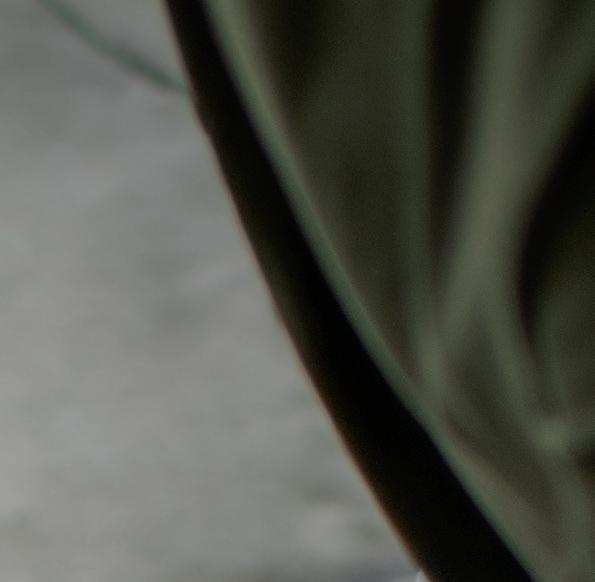
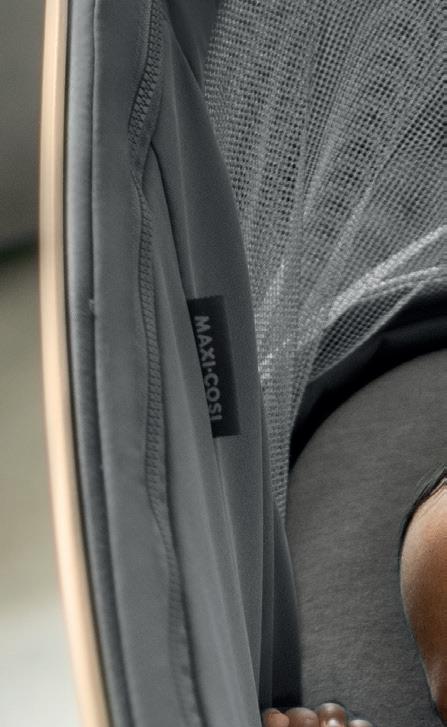
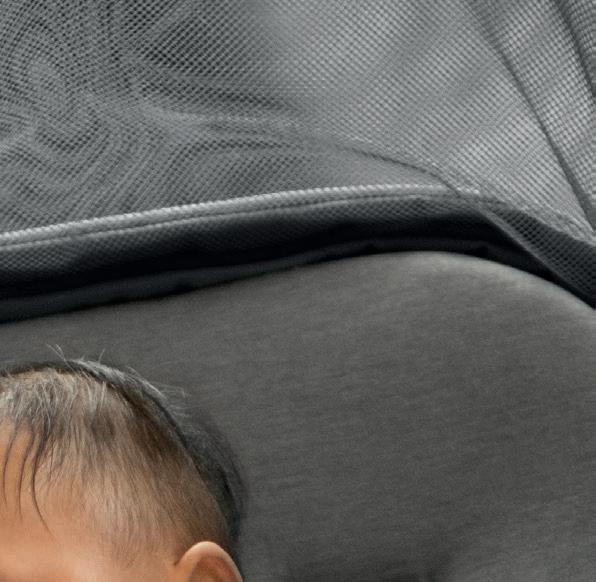
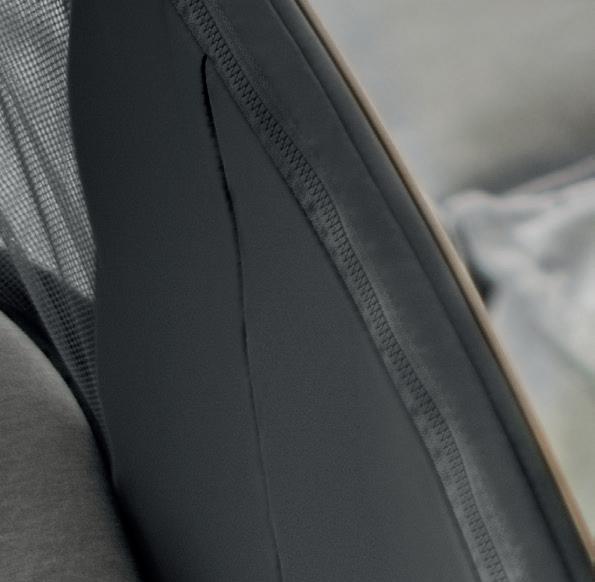
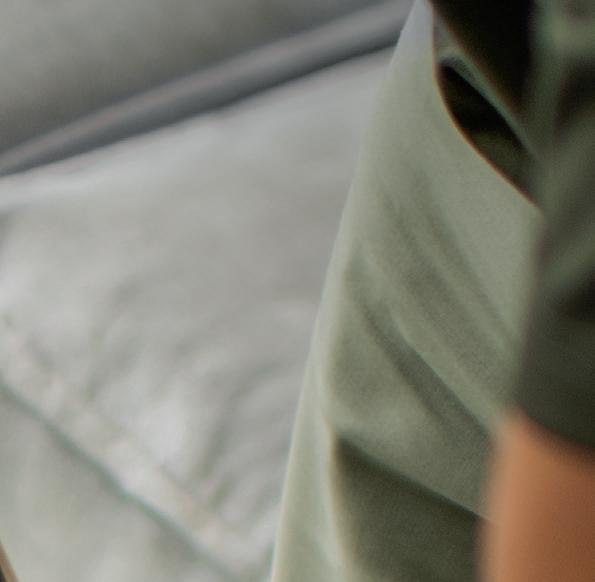
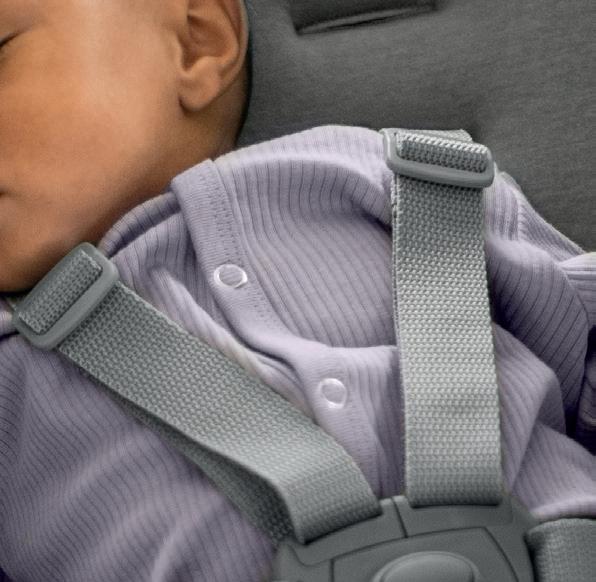
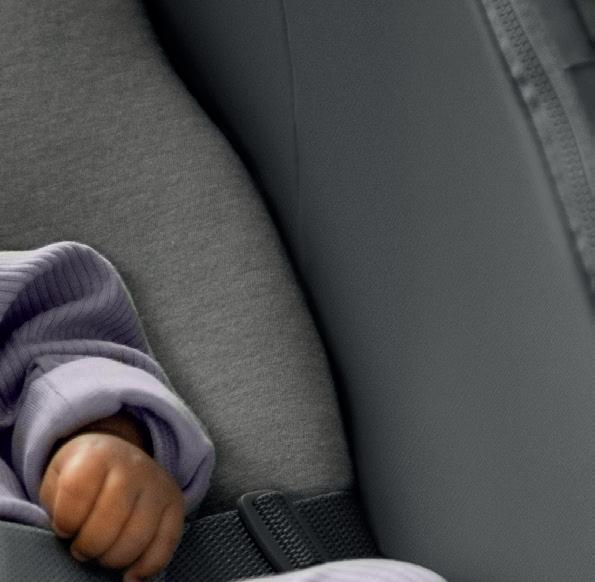
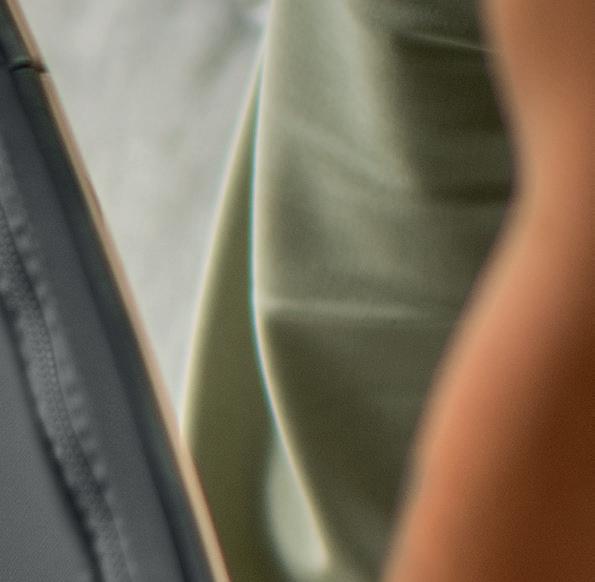
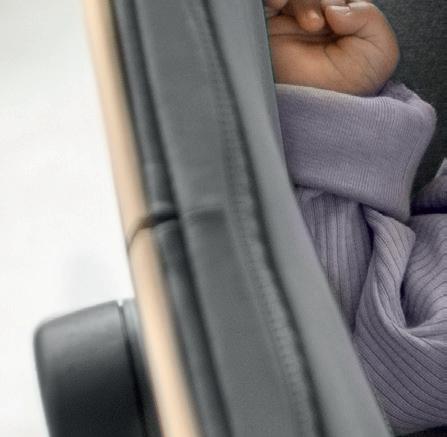
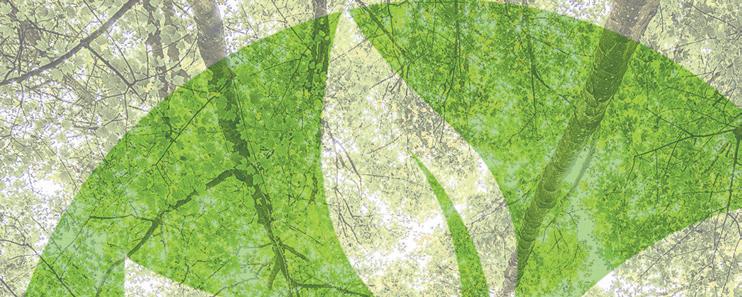
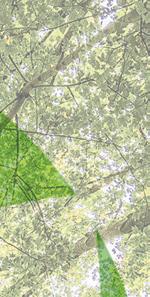

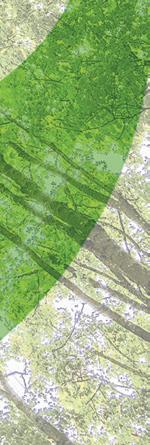
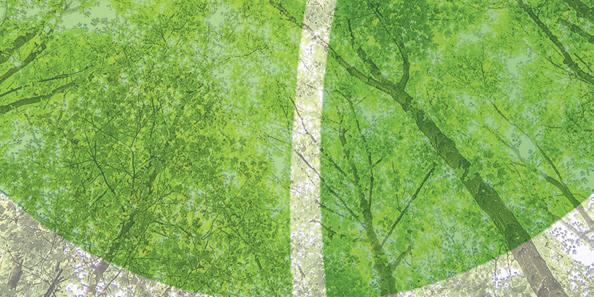





EcoCare Designed for the future eco-friendly/sustainable products supplement March 2023
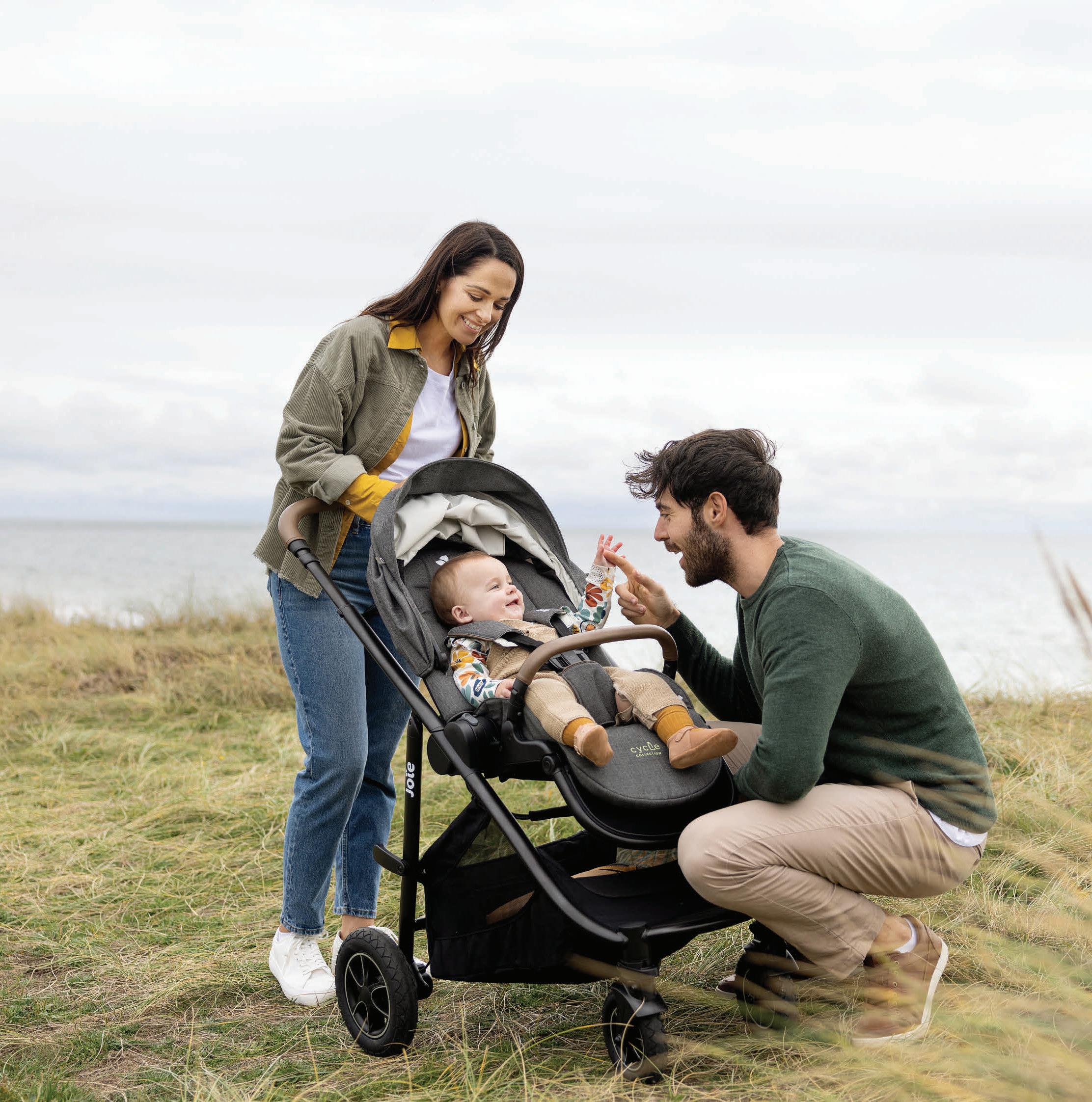



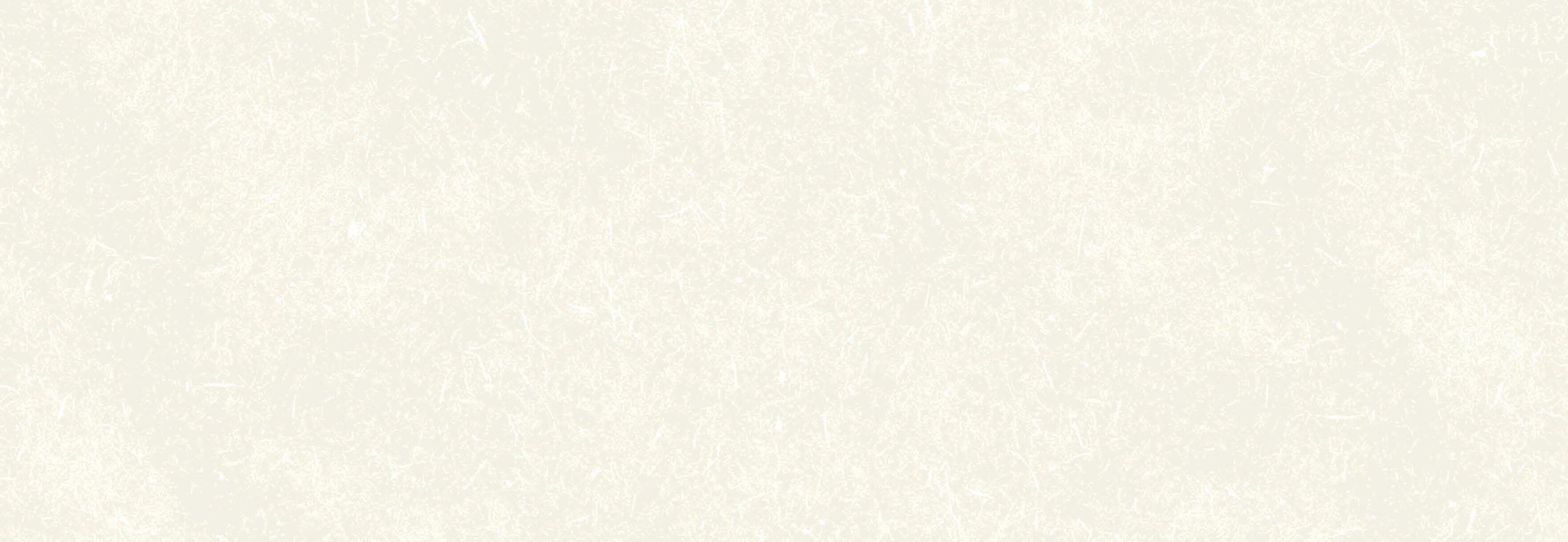
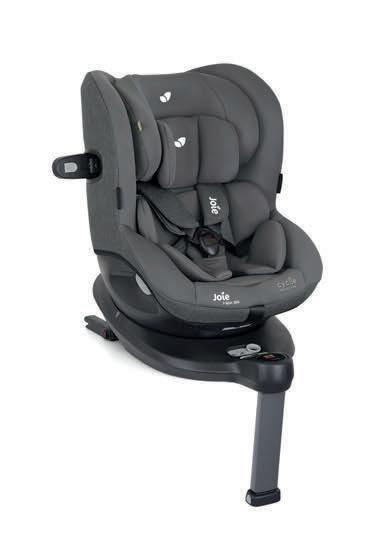
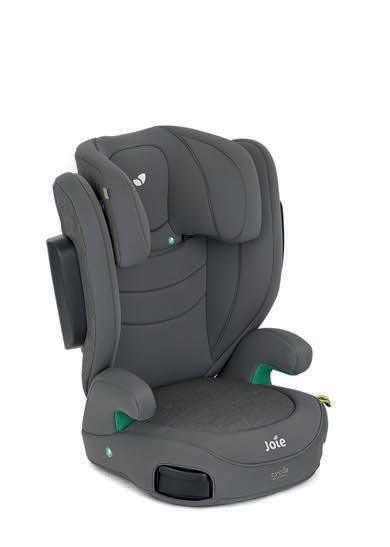
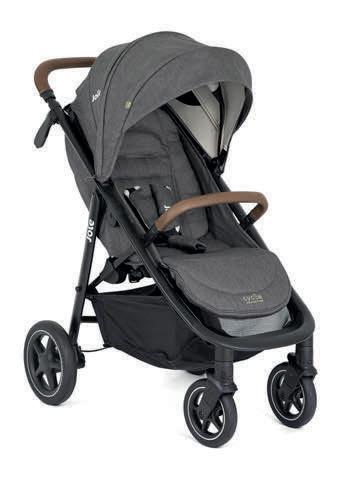
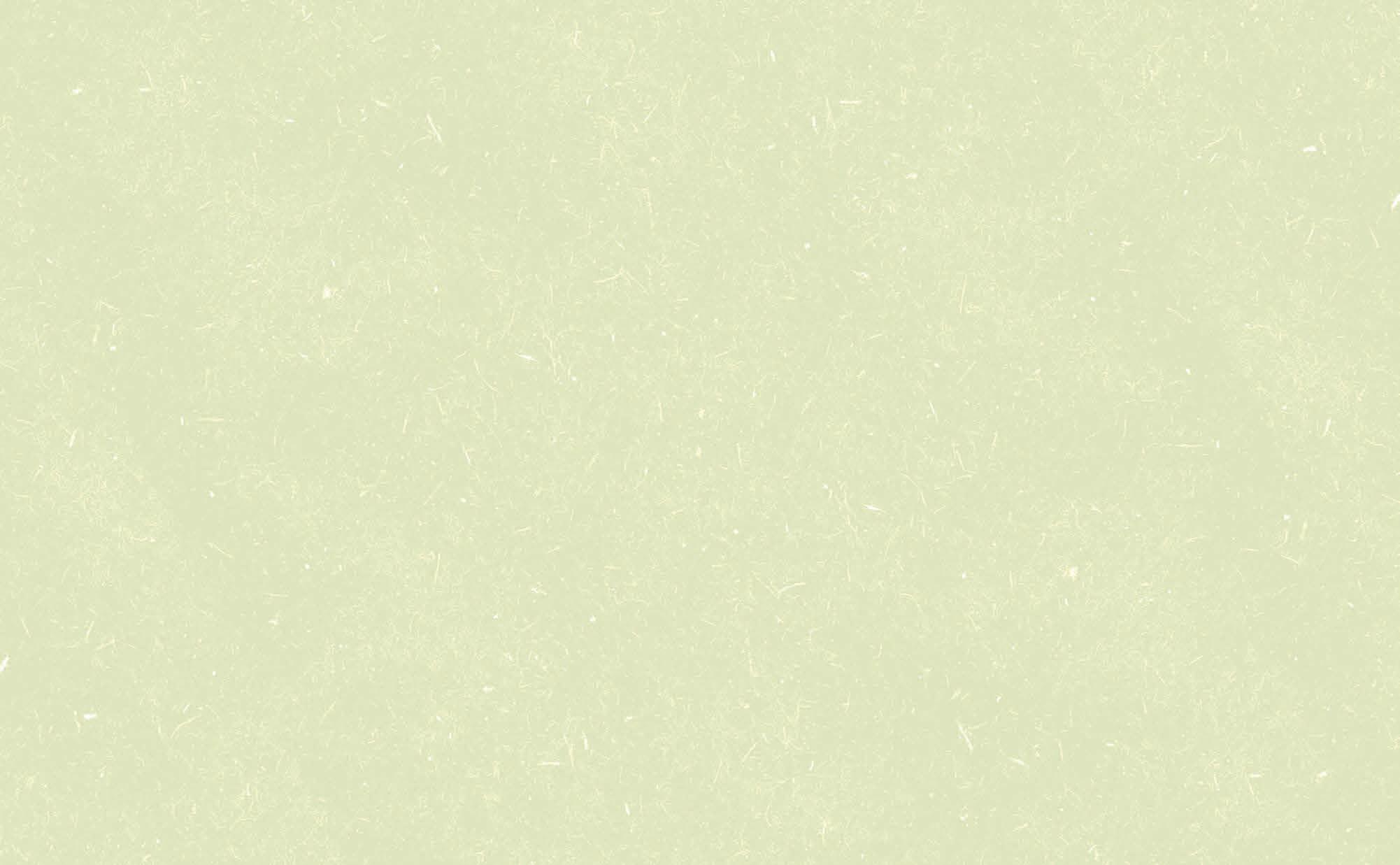
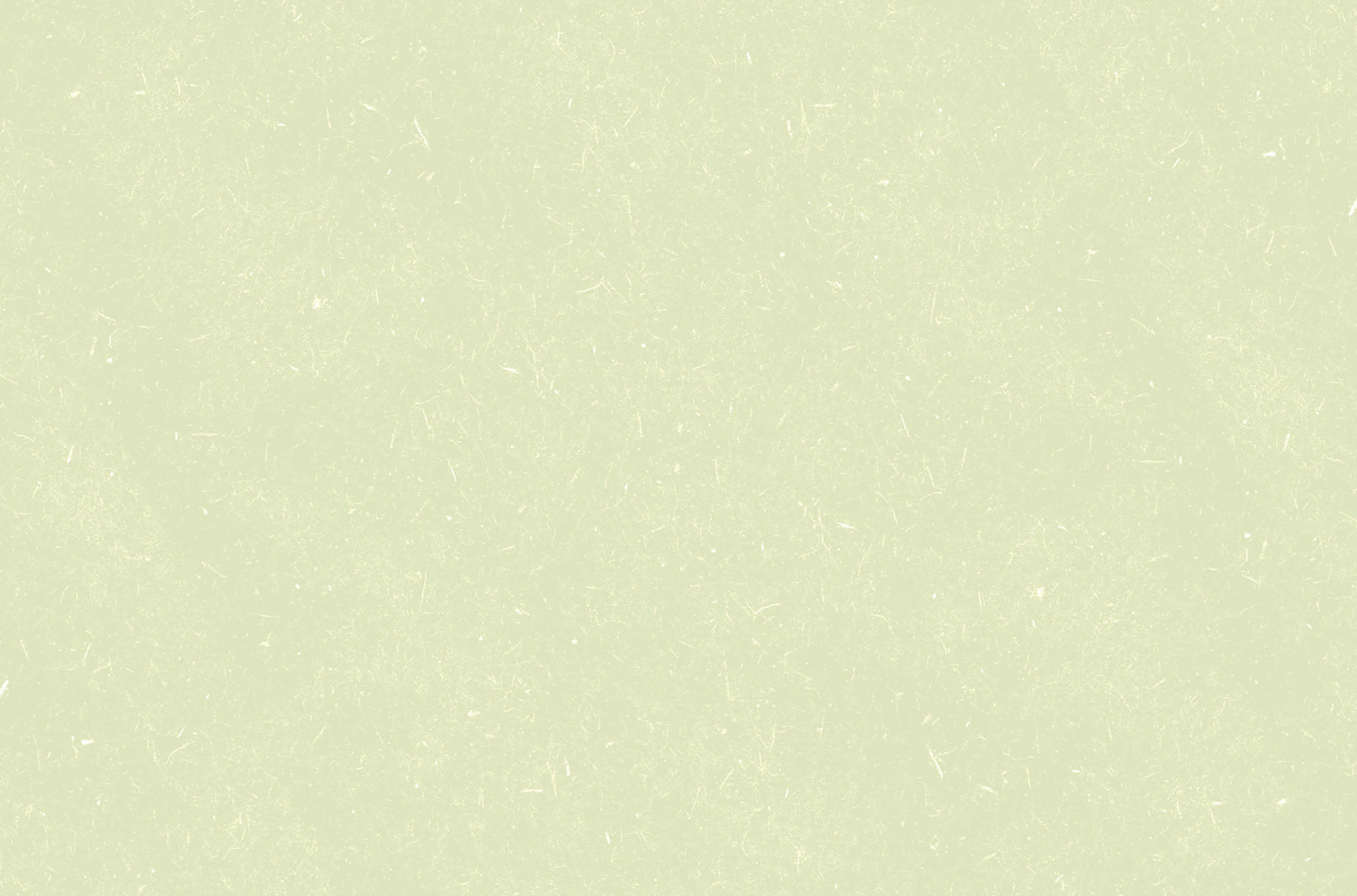
going green avel plans: mytrax ™ Proi-Spin 360 ™ i-Trillo ™ ne w/av ailable spring 2023 For more info and all sale enquiries, please contact Joie on 01889 808 900 or email: uksales@joiebaby.com recycled fabrics
the team
Editor
Penny Franks penny@lemapublishing.co.uk

Ad Manager
Christine Contreras christine@lemapublishing.co.uk
Production Director
Paul Naish paul@lemapublishing.co.uk

Managing Director



Mark Naish mark@lemapublishing.co.uk
Chairman
Malcolm Naish malcolm@lemapublishing.co.uk
Circulation
Robert Thomas robert@lemapublishing.co.uk
Contributors
12 The Soil Association
06
34 Bank Banks
Cover Story
Lema Publishing Ltd
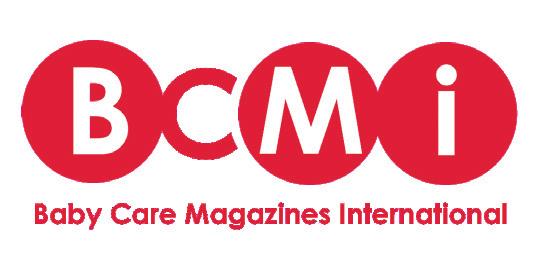
1 Churchgates, The Wilderness, Berkhamsted, Herts, HP4 2UB Telephone: 01442 289930
www.nurserytoday.co.uk
Paige Tracey, Business Development Manager for Non-Food is the face of Soil Association’s schemes across Beauty, Wellbeing and Textiles. Paige runs us through why The Soil Association Organic logo gives consumers a guarantee of truly sustainable and ethical products.
22 OEKO-TEX
How to face chemicals in textiles. OEKO-TEX standards enable everyone to make responsible decisions and protect natural resources.
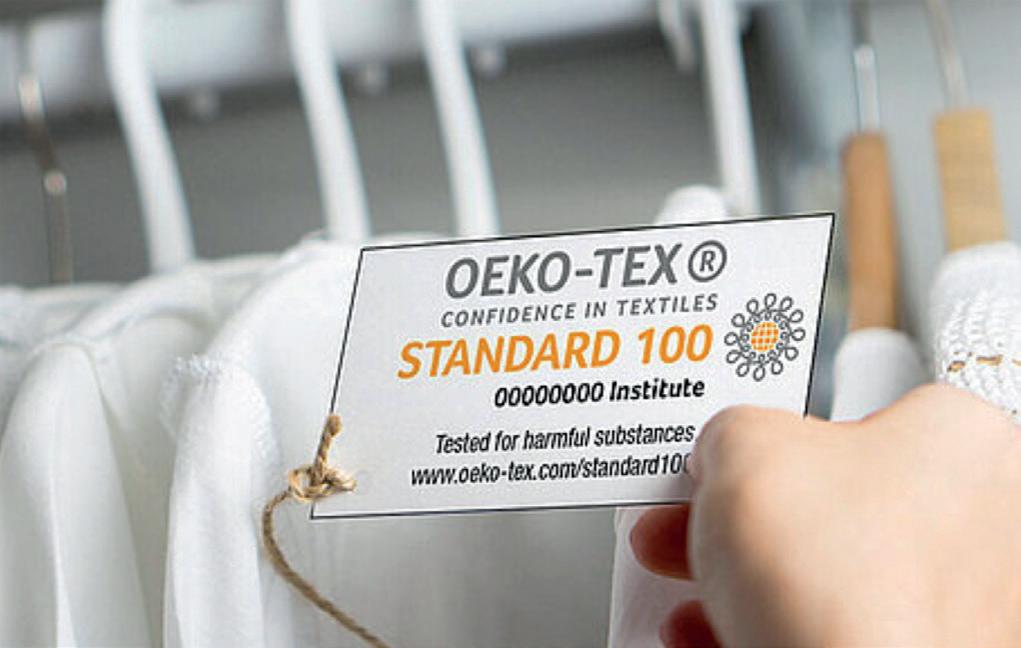
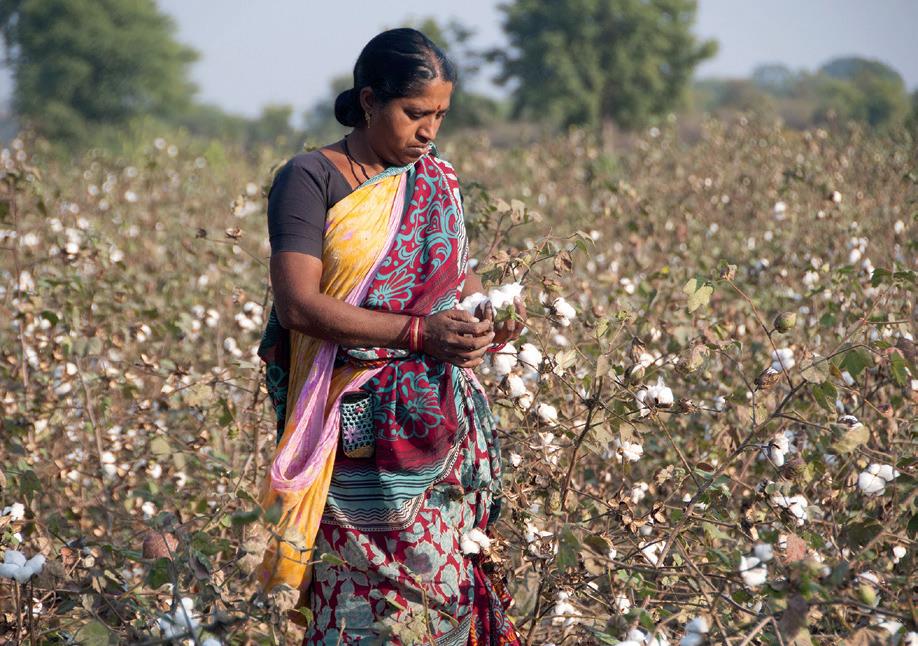
Co-Founder & Trustee Eva Fernandes tells us how Baby Banks are supporting families in need and helping to create a sustainable future for all our children.
38 FSC Tallulah Chapman Communications Manager, Forest Stewardship Council (FSC) UK takes time to give readers a great insight into how FSC certification can gain huge support from parents.
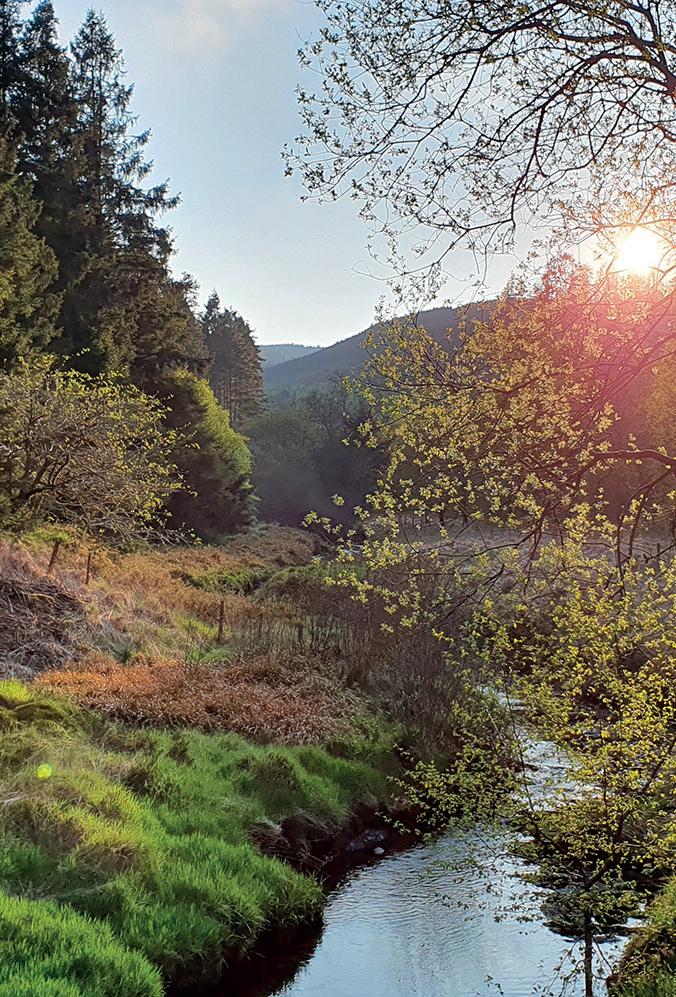

44 JMDA
JMDA Design looks at the challenges posed for car seat recycling in the Nursery sector.
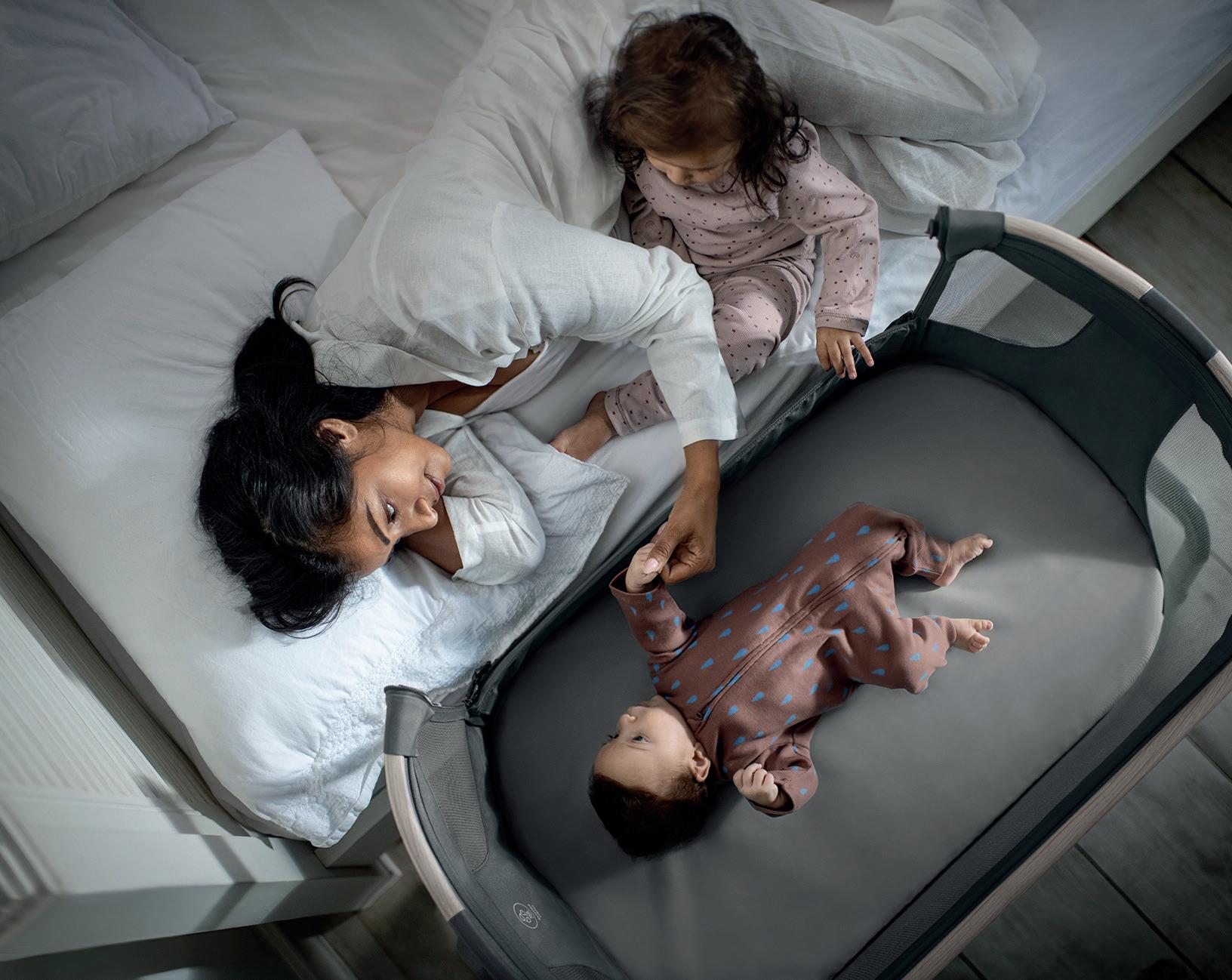
22 OEKO-TEX
6 Maxi-Cosi
The Maxi-Cosi journey to a sustainable future with EcoCare Retailer Interview
8 Natural for Baby’s owner Elizabeth Jones talks about her store and the decision to be an ethical nursery retailer.
Product Focus
14 Skincare
16 Car Seats
17 Wheeled Goods
24 Textiles/Clothing
contents
30 Nappies/Toilet Training 35 Toys
42 Feeding/Teething/ Weaning 43 Furniture
38 Forest Stewardship Council
12 Soil Association
Cover Story - Maxi-Cosi
editor’s letter
Welcome to Nursery Today’s newly launched Eco and Sustainability supplement.
With so much attention on climate change and our impact on the planet, we are starting to experience an emerging army of parents who are looking more closely at their lifestyle and how they can lessen their own impact on our planet to give their children a better future. Taking this onboard the team here at Nursery Today felt that now was the time to round up a variety of products from brands who have reacted to what can no longer be called a ‘fad’ but a trend and one which looks set to stay by enhancing their ranges to reflect this.
Among the pages of this supplement you will find a host of products, from car seats, wheeled goods, nappies, skincare, toys and more which are all available to order now that hold great eco and sustainable credentials.
You will also find articles of interest, starting with the Soil Association over on page 12. Here their Business Development Manager, Paige Tracey explains why The Soil Association Organic logo gives consumers a guarantee of truly sustainable and ethical products. As an example, Research by Provenance found that third-party certification was the favoured way for consumers to tell if a product was sustainable, identified by 46% of consumers as the reason that would push them to make a purchase. Their wide-ranging certifications mean they can certify all kinds of nursery products to their high environmental standards. From wooden cots eligible for FSC or PEFC certification, through to GOTS certification baby blankets, clothes and car seat material, to COSMOS organic certification for infant toiletries.
OEKO-TEX are also a highly recognised certification within the nursery product sector. This international association was founded 30 years ago on a single mission to enable consumers and companies to make responsible decisions to protect people and our planet. That is why the work of the international association is grounded in proven
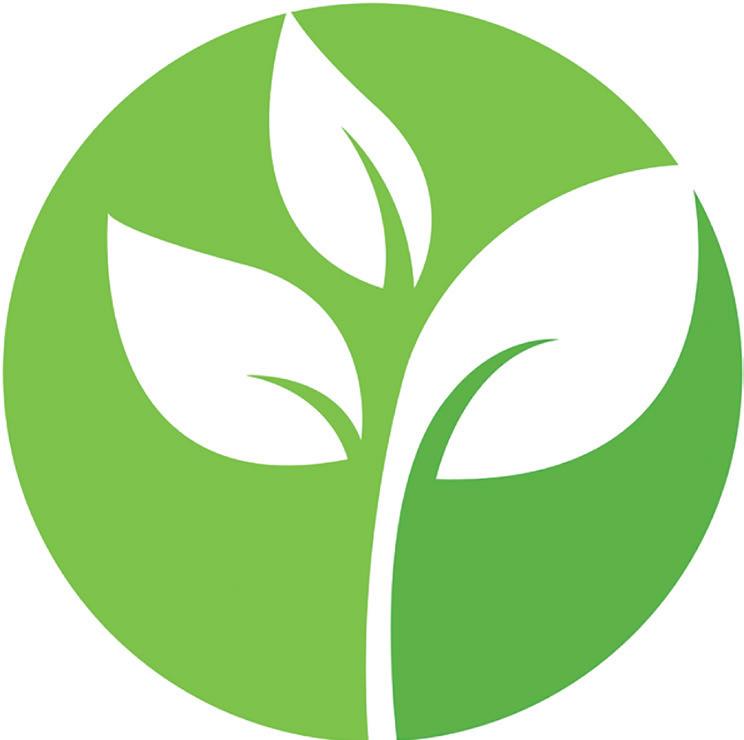
science. Today, 17 independent institutes around the globe test for harmful substances and certify sustainable and fair manufacturing practices to ensure textile and leather products are safer for human health and the environment. Want to know more? Simply turn to page 22.
We also bring you a further article of interest from the Forest Stewardship Council (FSC). Head over to page 38 where their Communications Manager, Tallulah Chapman takes time to give readers a great insight into how FSC certification can gain huge support from parents. From their recent 2022 study, findings illustrated that an impressive 83% of parents recognised the FSC logo and 59% said they were prepared to pay more for an FSC-certified product. You can read more starting on page 39.
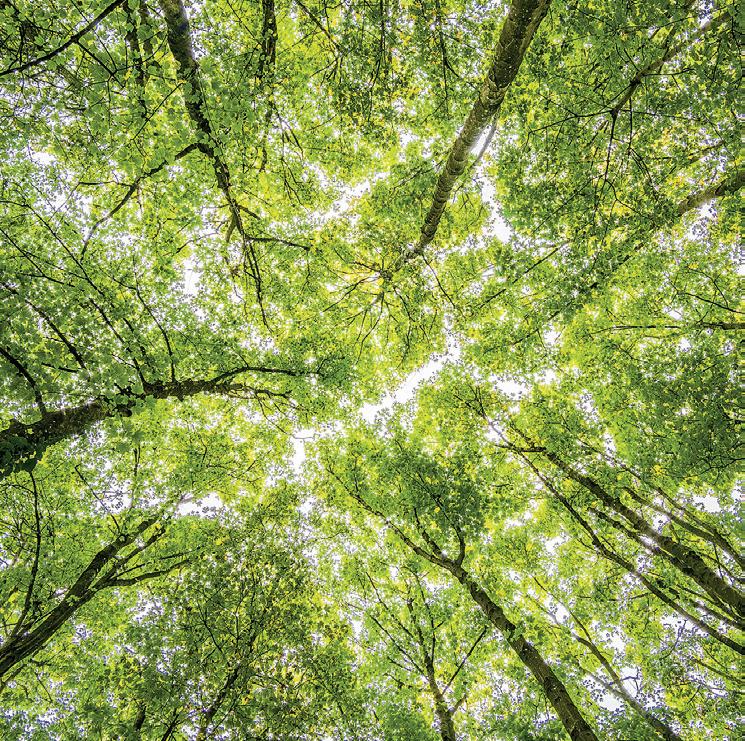
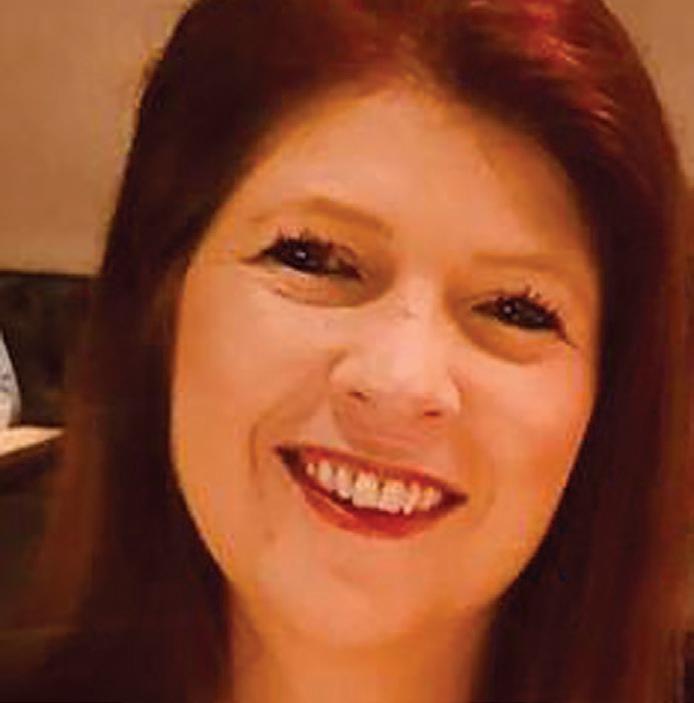
With so many nursery products ending up in landfill. By way of one example, the UK throws away nearly 3,000,000,000 disposable nappies a year which can take up to 300 years to break down, can we as an Industry do more to recycle, think about our own carbon footprints or manufacture using processes that are more eco-friendly? Yes, we can and there is good news - many leading nursery brands are fully focussed on the production of textiles and materials used within their products and manufacturing process. However, with us advising against the purchase of a second-and car seat how do we prevent these from ending up in landfill sites? JMDA Design, who recently launched a car seat recycling scheme delves deeper into this issue within their article over on page 44.
Finally, you will also have noticed our Cover Hero being Maxi-Cosi. Maxi-Cosi have been on a journey to a more sustainable future - and it all starts with EcoCare - an innovative planet-friendly, 100% recycled fabric. By January 2024, the innovative new material will be in all of their home collection and featured across car seats offering parents both safe and sustainable solutions for their little ones. Simply turn to page 6 to read more.
4 nursery today
eco-friendly/sustainable products supplement
“
Among the pages of this supplement you will find a host of products, from car seats, wheeled goods, nappies, skincare, toys and more which are all available to order now that hold great eco and sustainable credentials.
”
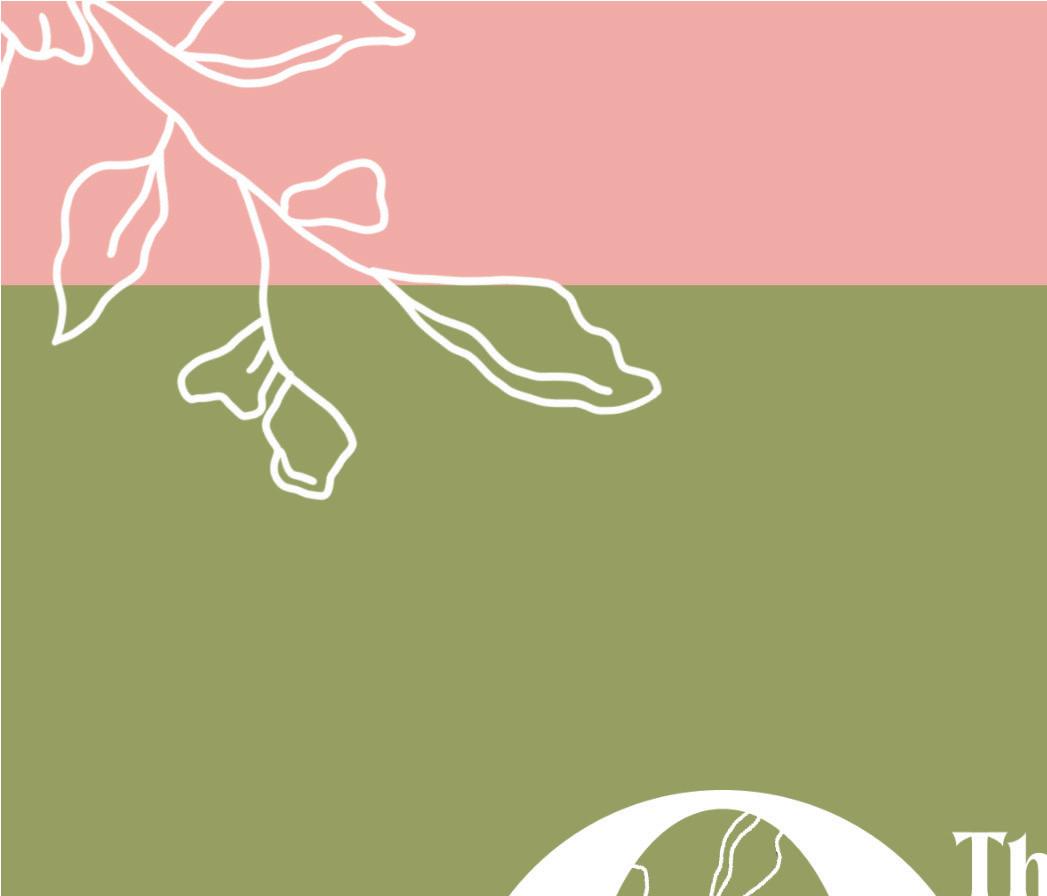

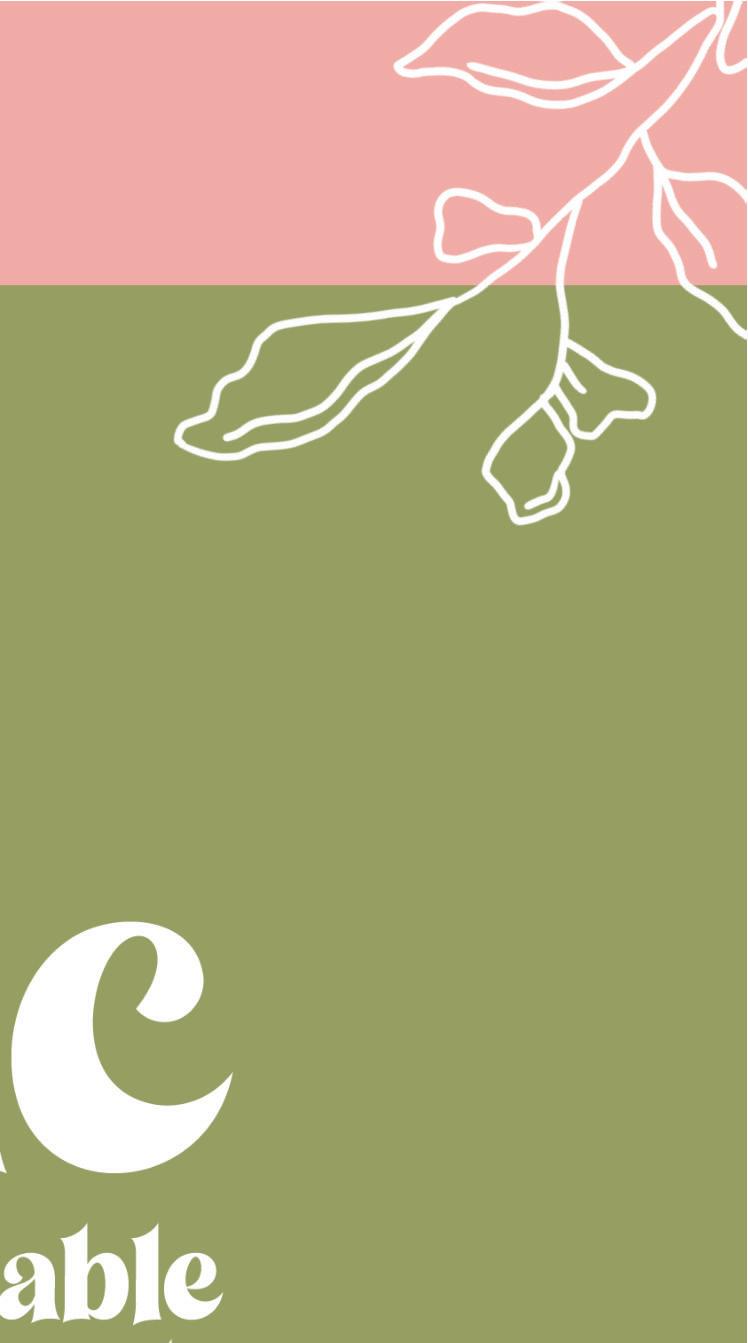
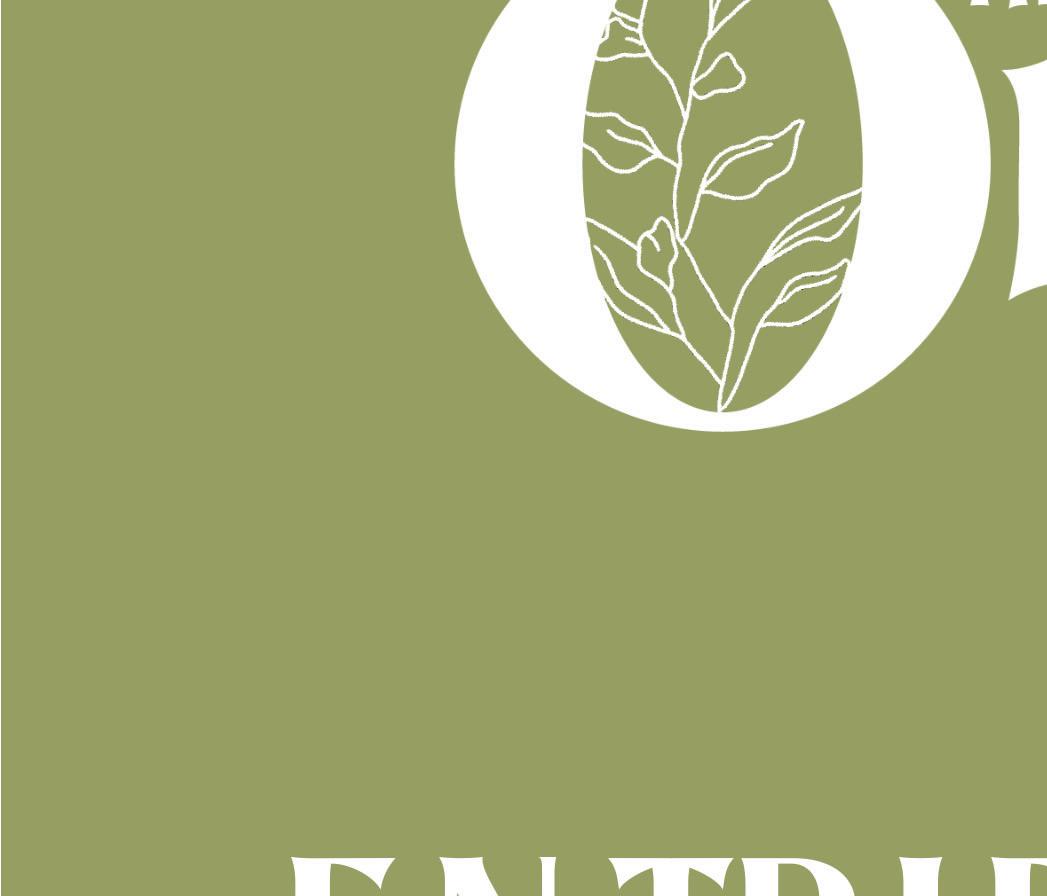
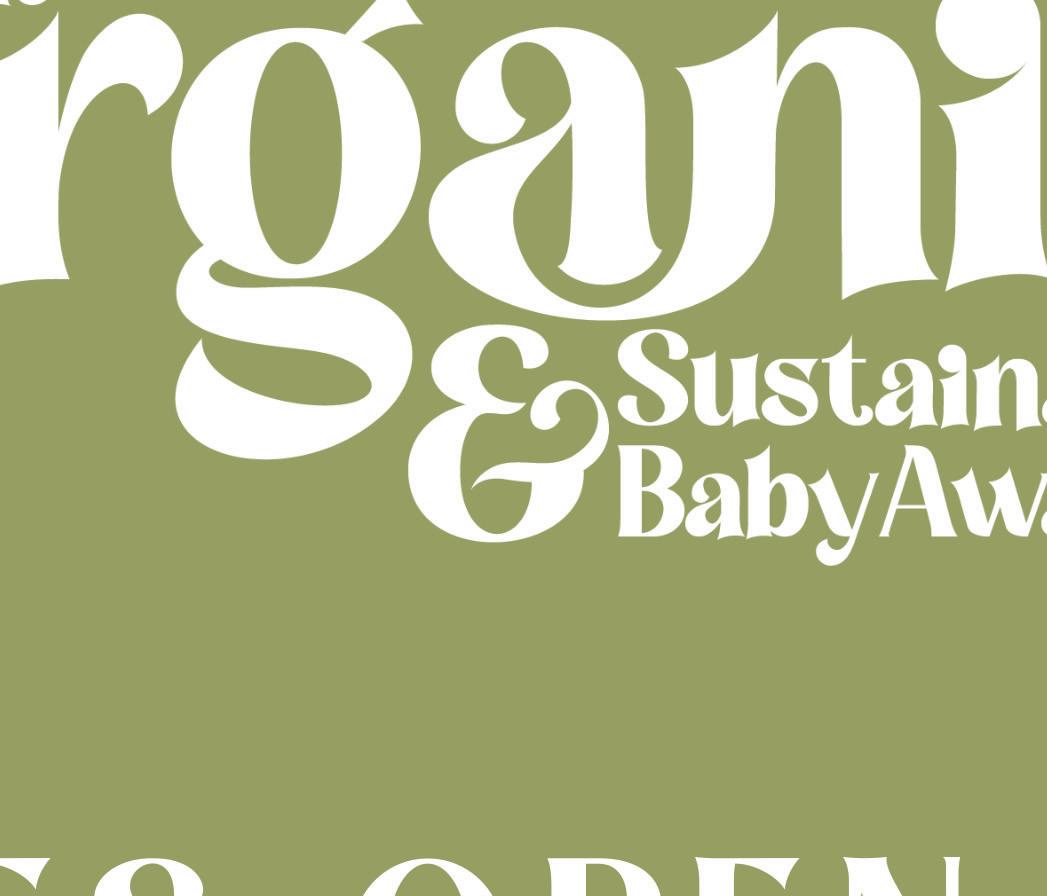


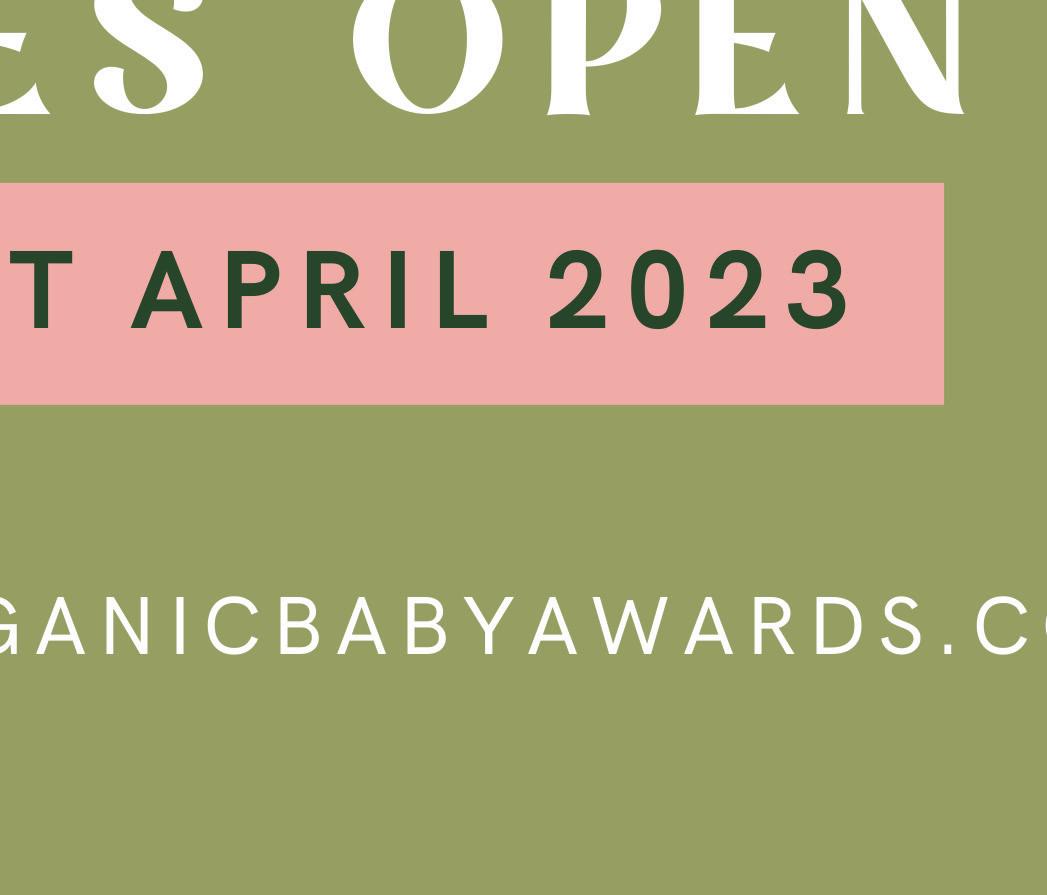
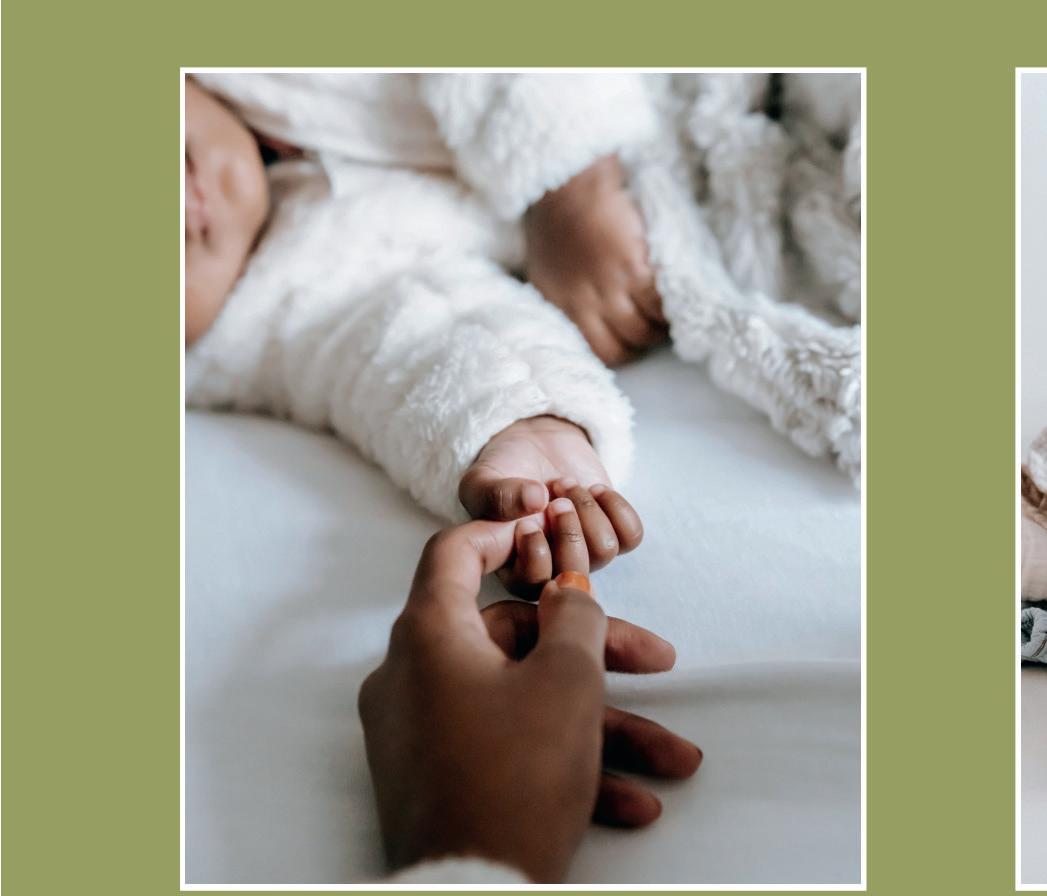
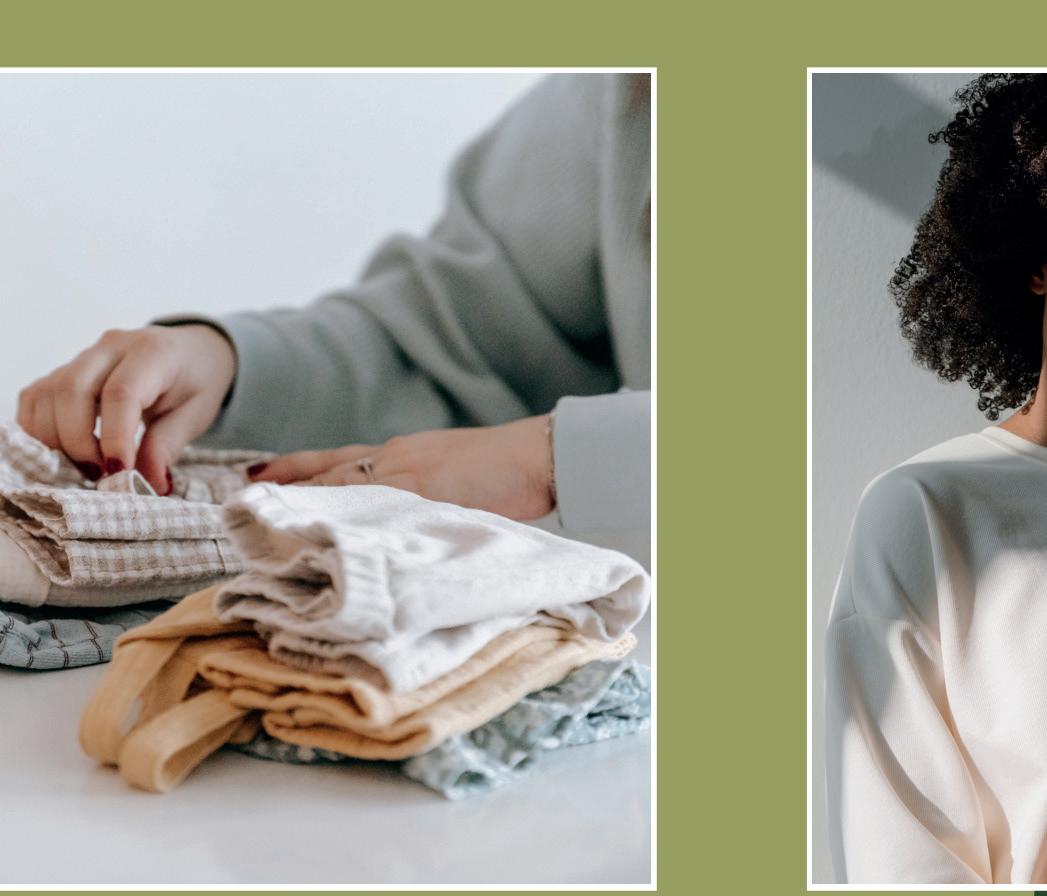
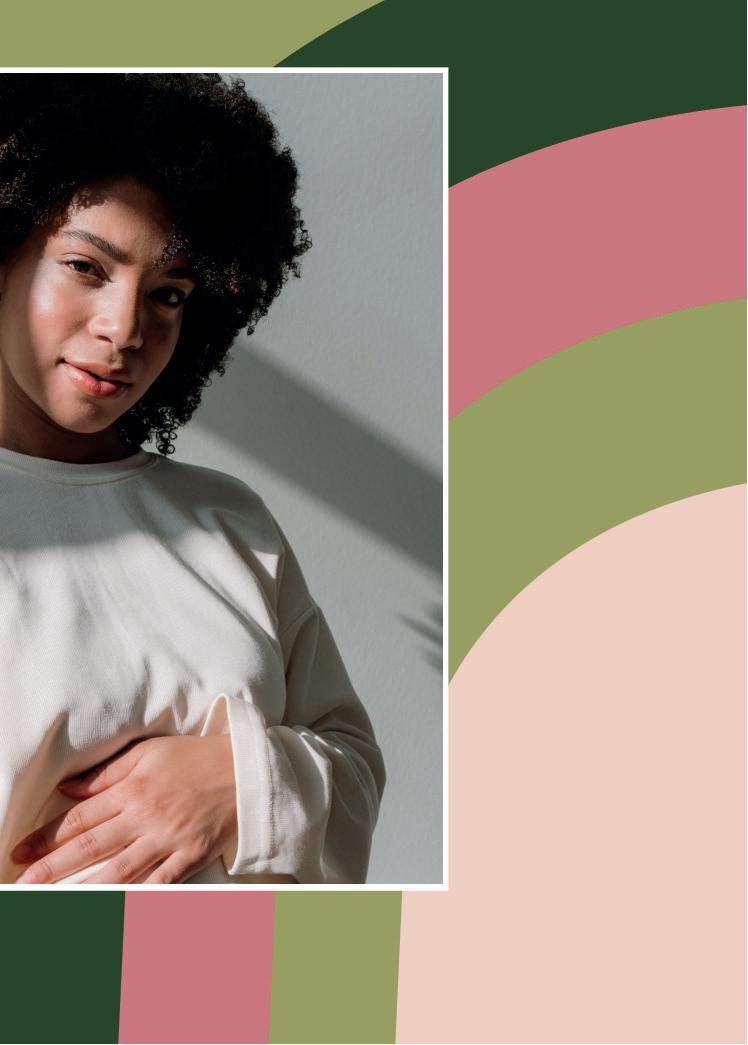
The Maxi-Cosi journey to a sustainable future with EcoCare
Maxi-Cosi is on a journey to a more sustainable future - and it all starts with EcoCare - an innovative planet-friendly, 100% recycled fabric.
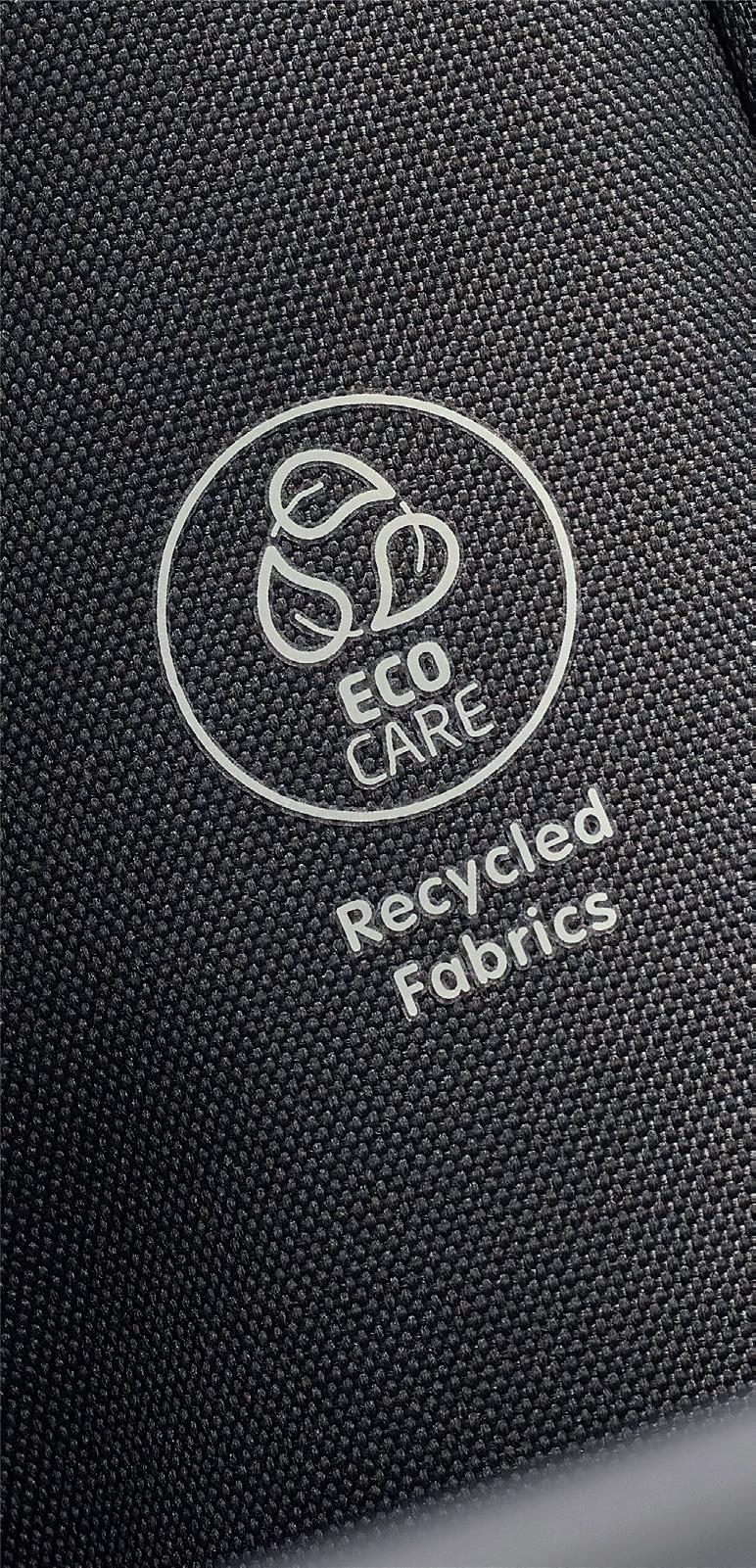
Maxi-Cosi doesn’t just carry the future, they care about the future. That’s why their commitment to tomorrow, can be found in their products today.
EcoCare is featured across the Maxi-Cosi range including new car seats and home equipment and will be featured as standard across all new product launches for 2023 and beyond. 2022 saw the launch of EcoCare with the Mica Pro Eco; a unique, future-focused car seat which set the benchmark in safety and comfort. Since then, we have seen the Mica Eco, and many more products, follow the same planet-friendly footsteps with EcoCare fabrics.
By January 2024, the innovative new material will be in 100% of their home collection and featured across car seats offering parents both safe and sustainable solutions for their little ones. To continue this journey to a more sustainable future, Maxi-Cosi is expanding their EcoCare portfolio to include all new products.
Maxi-Cosi is dedicated to developing sustainable products that help safeguard the environment. EcoCare fabric is soft, breathable and offers best-in-class comfort and is made from 100% recycled plastics. Sustainability is a key consideration for young families when deciding which product to choose.
How does Maxi-Cosi turn plastic bottles into soft, sustainable fabrics?
First, the plastic is broken down into pellets, then it’s spun into thread and woven into fabrics. These recycled fabrics provide the same soft, comfortable, breathable qualities you’d expect from a premium Maxi-Cosi fabric. And compared to regular PET production, using recycled PET bottles leads to 70% less consumption, 85% less water consumption and 75% less CO2 emissions throughout the entire production process.
These EcoCare fabrics are used for car seat fabrics and newborn inlays along with fabric for home equipment such as Alba; the new all-in-one bassinet, recliner and highchair. Alba is made using 39 recycled plastic bottles in the main seat, and a further 11 for the Alba Meal Kit.
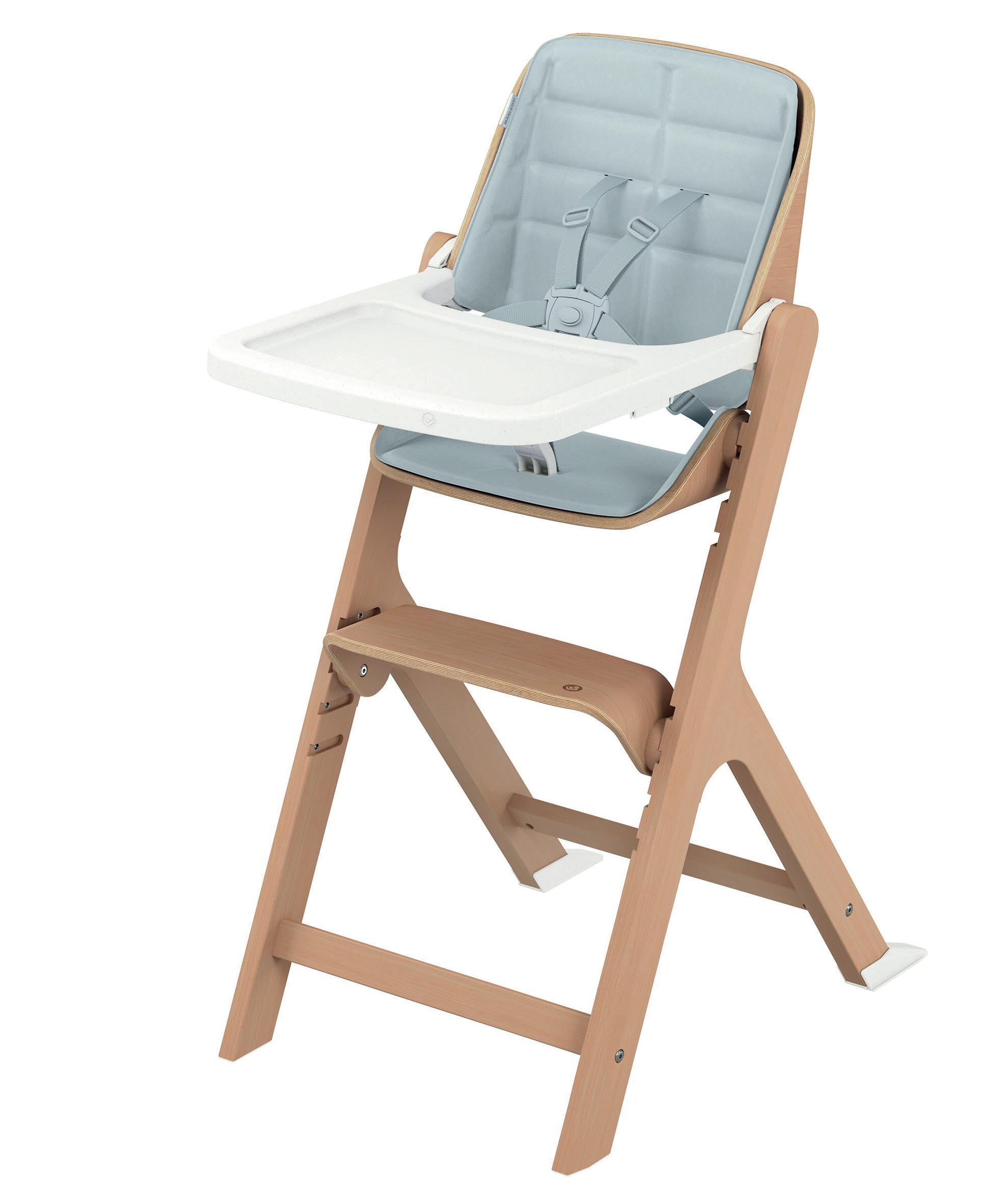
New Gen Z parents expect brands to take the lead in the transition to a more sustainable future. We take this very seriously. We don’t want to green wash here or provide general claims – it is essential that we stay focused on what we deliver: premium products, providing the best safety, with modern design – and more sustainable.
Debbie Wakefield, Trade Marketing Manager UKI, Dorel Juvenile Europe.
6 nursery today Eco/Sustainable Cover Story Maxi-Cosi
“ ”
Looking to the future, Maxi-Cosi are continuing to expand and develop their EcoCare range including transitioning accessories such as bedsheets and car seat summer covers to a sustainably produced, non-dyed 100% organic cotton. www.maxi-cosi.co.uk
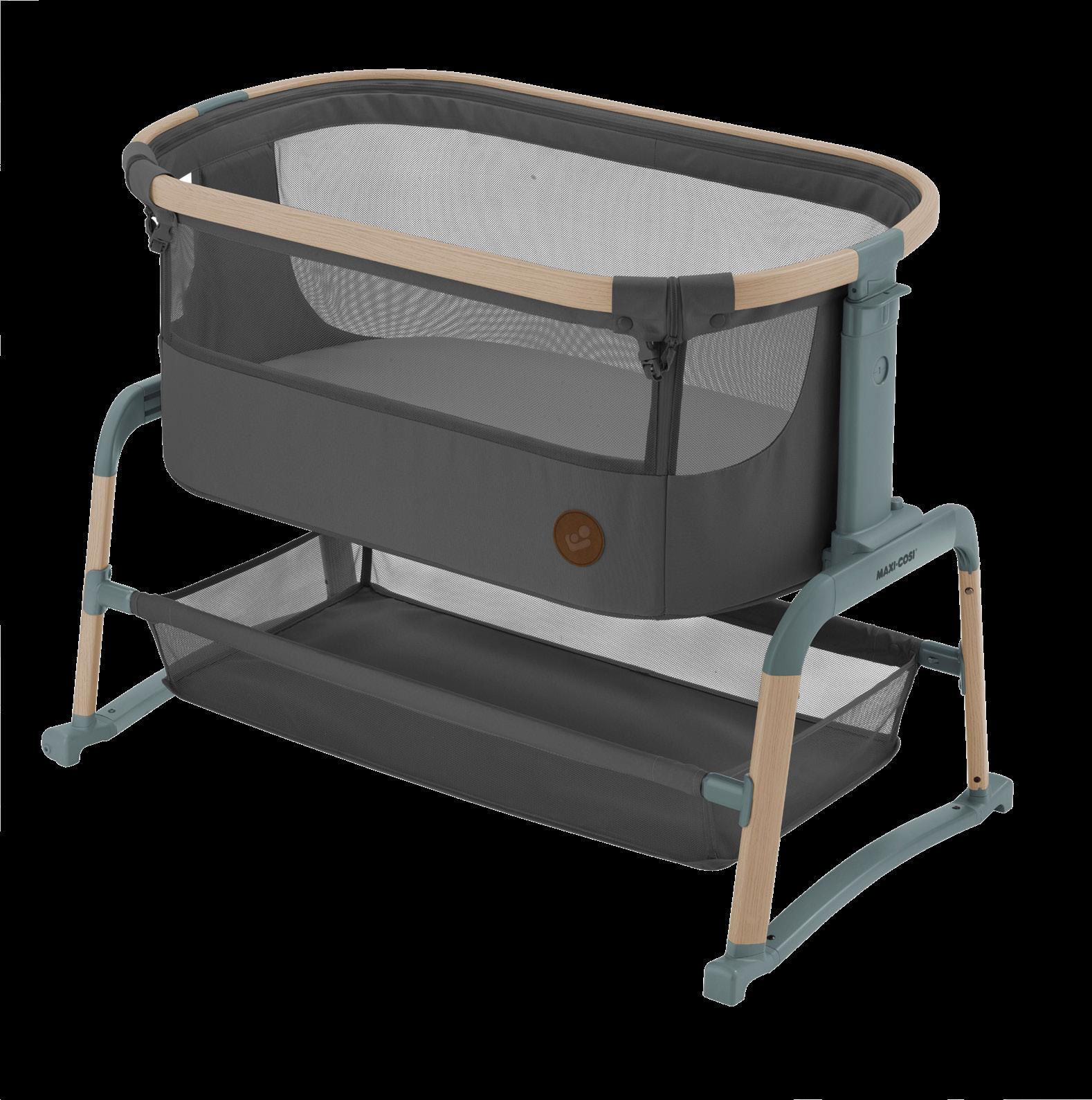
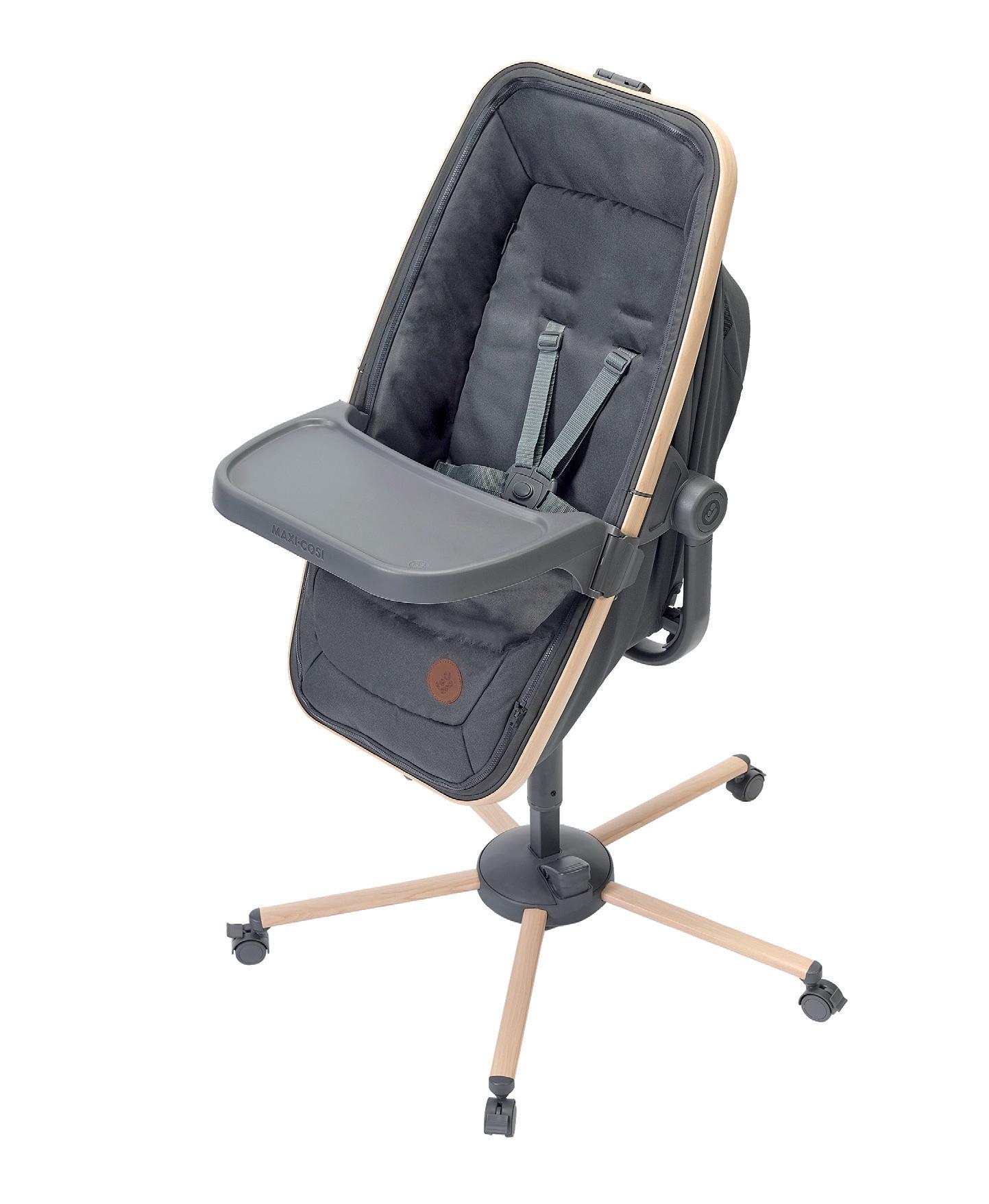
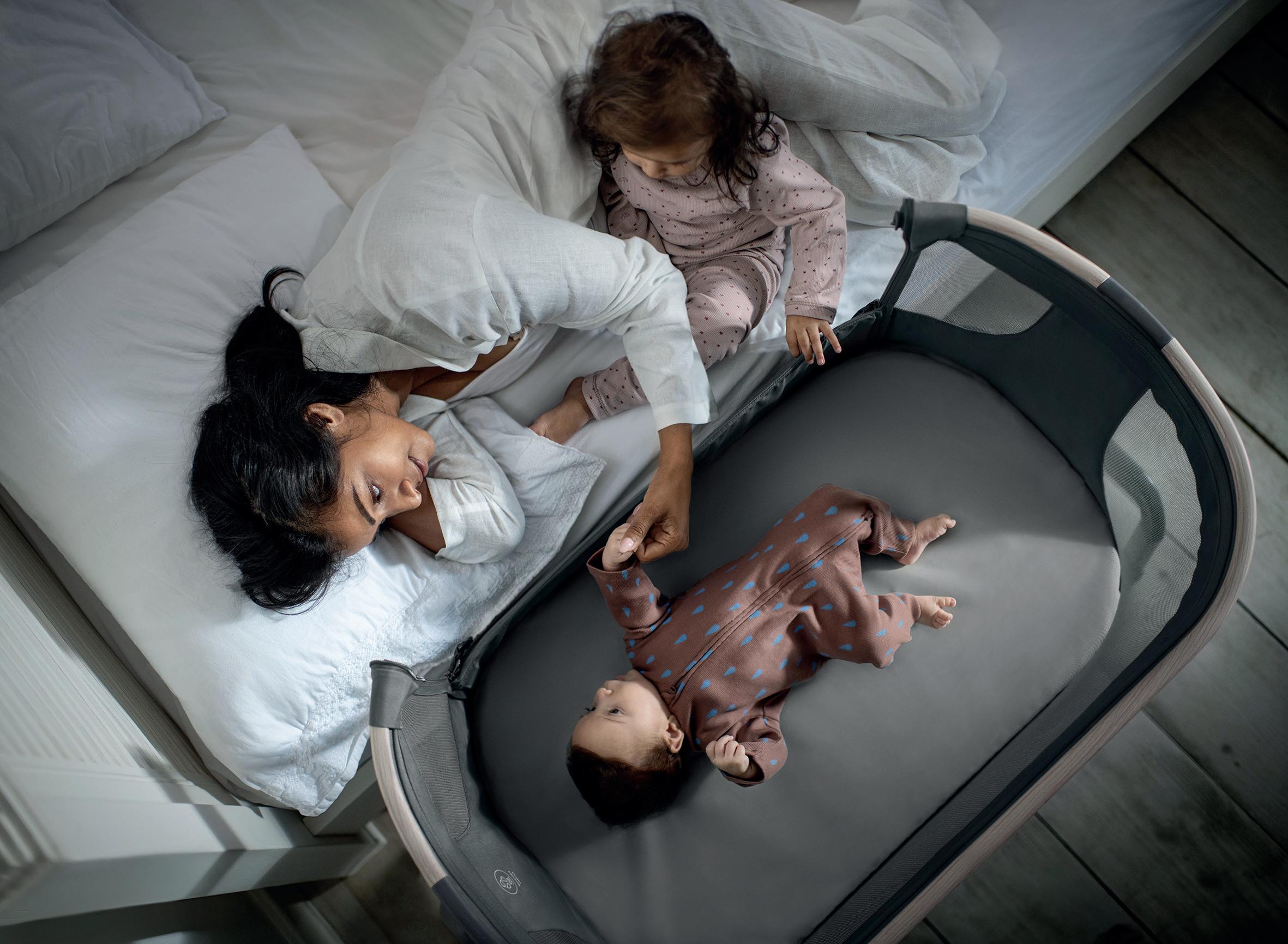
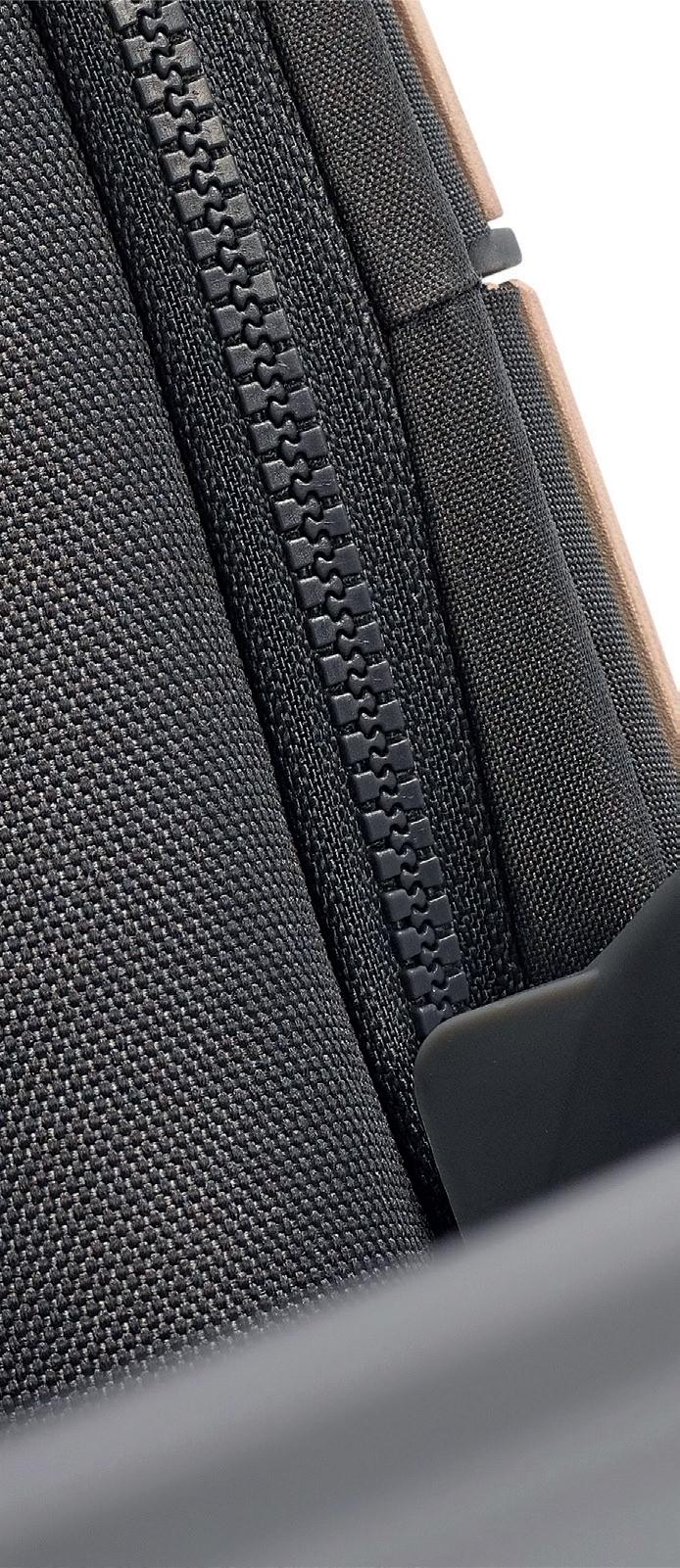
To find out more, contact your sales representative at UK-sales@doreleurope.com
How many recycled plastic bottles are used in the fabric of each product?
■ Mica Pro Eco: 25
■ Mica Eco: 12
■ Titan Pro i-Size: 35
■ Titan Plus i-Size: 16
■ RodiFix Pro i-Size: 22
■ Iora Air: 32



■ Alba: 39
■ Alba Meal Kit: 11
■ Nesta Newborn Kit: 21
■ Nesta Toddler Kit: 6
Eco/Sustainable nursery today 7
Natural shopping
Can you tell us a little about your store, what was the inspiration behind opening your doors?
Natural for Baby is now a fully Independent shop, but it didn’t start that way! I originally opened the shop as a Franchisee of Natures Purest. Sadly, they folded in 2017 by which time I had a shop lease to complete and customers who loved to buy organic and natural items for babies. I decided to keep going, but as I am now, Natural for Baby, an independent shop, but continuing to sell organic and ethically made items for babies (and toddlers too now) as I am passionate about looking after our environment and indeed people around the world who need to get a fair wadge for the work they have done.
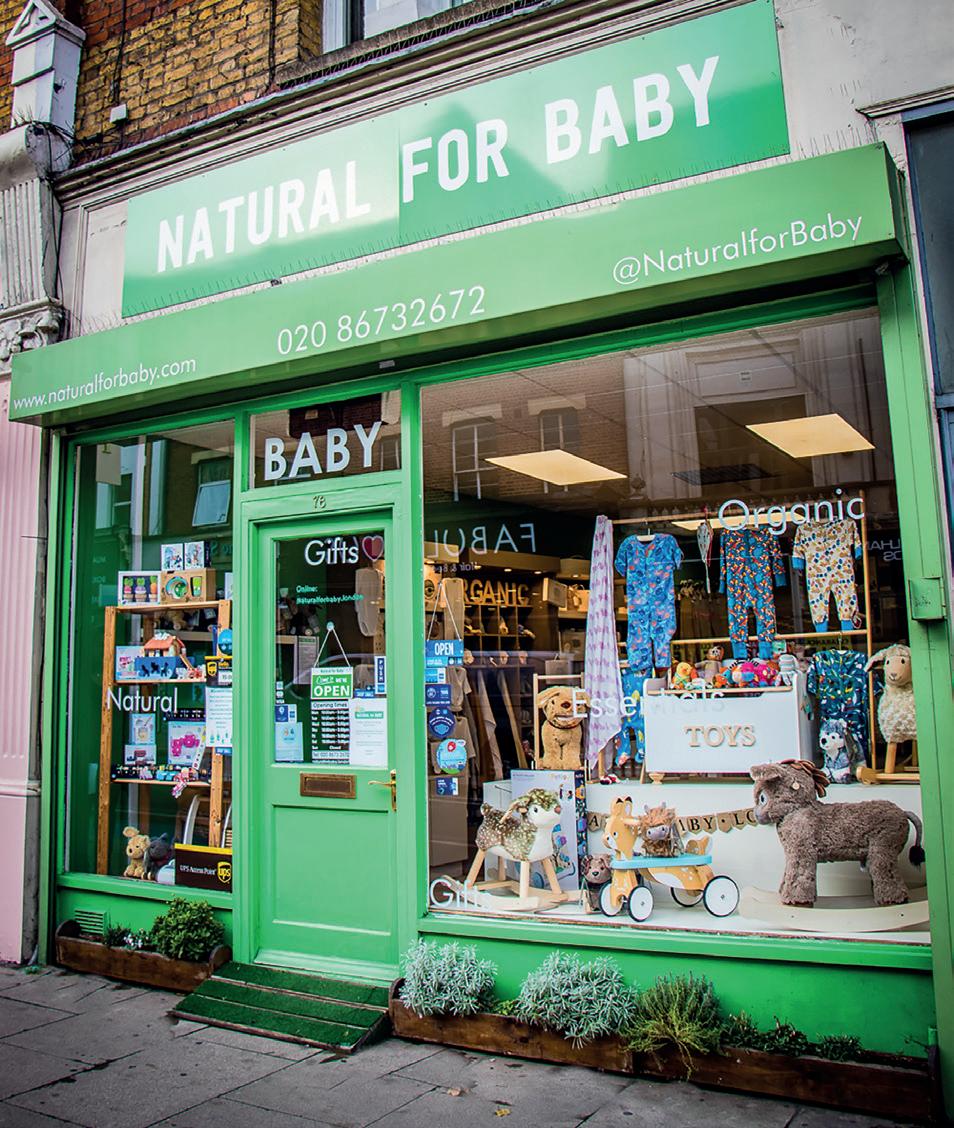
What was the driving force behind being an ethical nursery retailer?
Since the 90s, when I discovered how corrupt some brands are and when products with certifications such as fairtrade came out I just knew that the only way to make things a fairer way in our world is to vote with our wallets.
When I went to the Franchise exhibition back in 2013, I was looking
for a brand that felt right. Natures Purest were the perfect fit for me. As mentioned above, they sadly folded, so as and when I have needed to get in new items to the shop, I have asked the questions I know my customers will ask me. If a company can’t answer how something is made or with what material, I just don’t stock those items in the shop. I want to be transparent for my customers, so work with transparent brands.
Why did you choose Balham in London as your location?
I have always lived in SW London! I love being in an area that is nice and green with the Commons around, but is nice and connected (when there are no strikes!) with public transport.
Balham has a train and tube station and has many bus routes too. At the time of looking for a shop, I had a budget to stick to with the Franchise Manager needing to agree with a location and Balham was just perfect.
As an ethical retailer, do you feel there are sufficient products available that carry eco credentials?
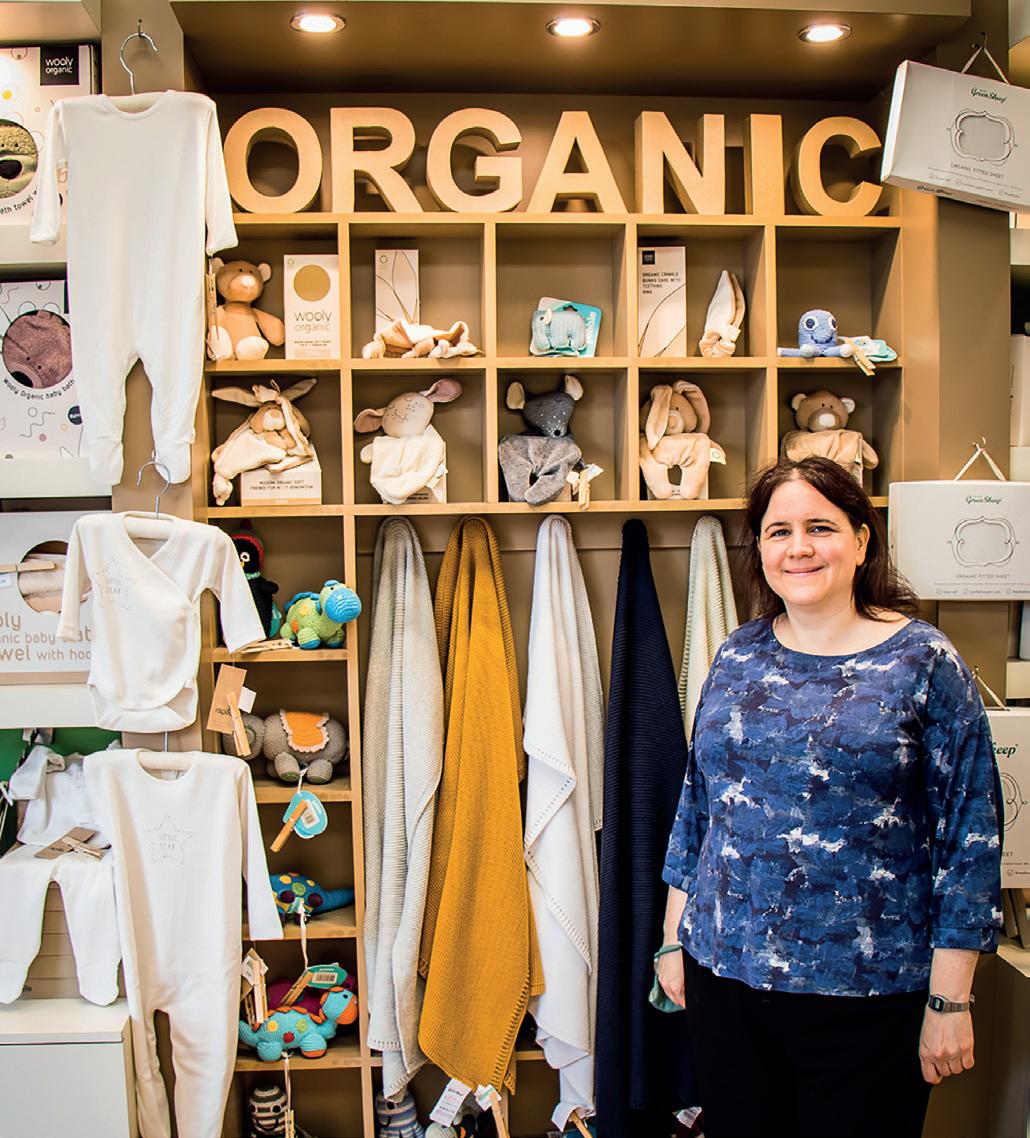
Having had this shop in the different formats for eight and a half years, it’s been great to see that more and more
brands are starting and developing in the eco-friendly world.
I hope that customers find that I have most of the day-to-day essentials. There are some things that are still hard to find, but hopefully those last items will be available as time goes on. The problem is mostly when something becomes fashionable and has been made by one brand and other brands haven’t made an eco-friendly version. Sleeping bags with arms was something I was asked for last year, hopefully if they are safe to use, the brands of sleeping bags I stock will bring some out!
Are brand names important to your business and if so, how do these drive footfall to your website or store?
Brand names are a funny one as they both help and hinder! When customers know I sell specific brands, customers then come back to buy more of those items if they love them.
I do however get lots of comments in the shop where people have already bought everything online from elsewhere from a brand before coming to my shop. It’s all to do with timing and being known first. There are some brands I sell in the
shop that are not that well known in general but are very popular here. I have repeat customers for those brands.
As my shop has both essentials and gifts, many customers are not buying for themselves, so they return to the shop having bought a gift for a friend or family member who loved it and then they come in the next time another baby has been born and buy the same brand. I do have some customers who buy the exact same item each time.
How do you find products that are available by manufacturers who create nursery items with eco at their heart?
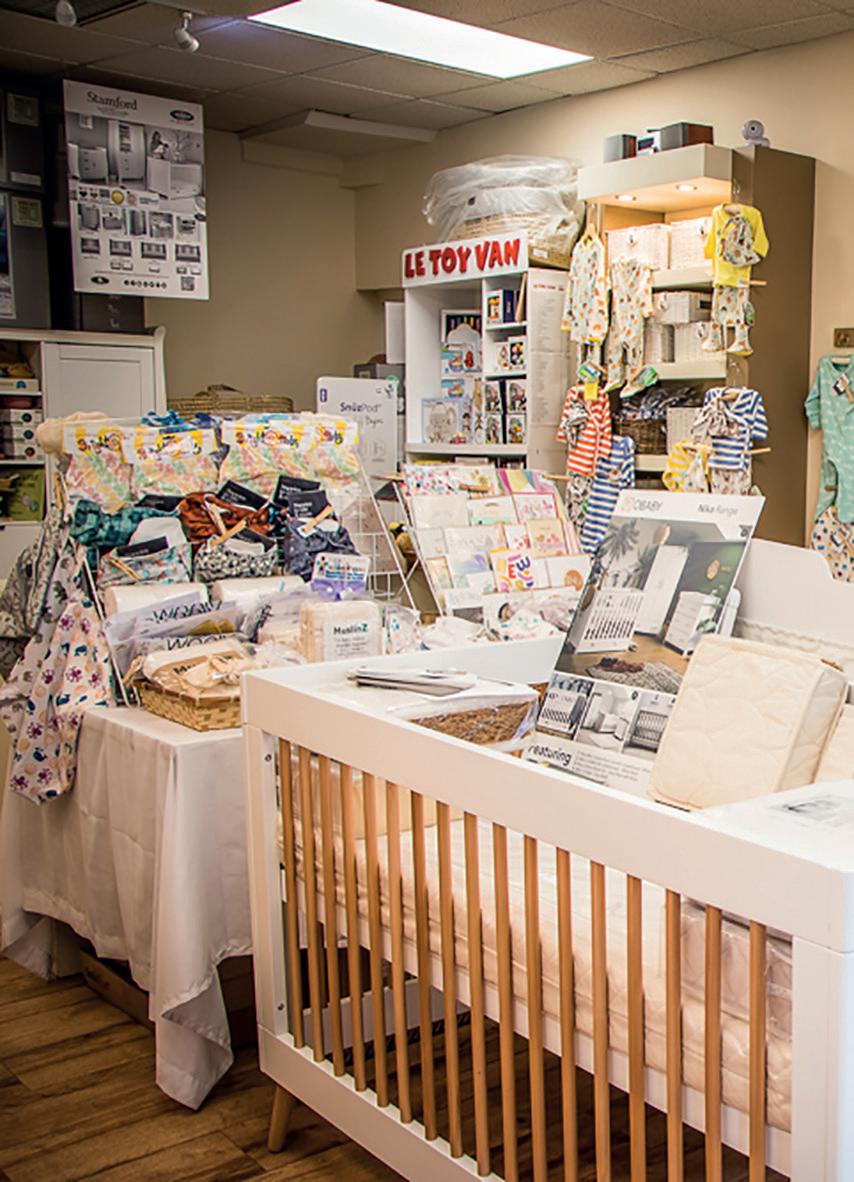
When I swapped over to being fully Independent, there were a couple of brands I had known as they had reached out to me before I could get their items inside the shop.
I have found lots of brands via social media and googling! One of my best-selling brands are one I discovered on Instagram where I then had to find out how to get the items into my shop here and I get those through a UK company now.
Is there a particular product category or item that performs exceptionally well for you at present?
8 nursery today Eco/Sustainable
Retail focus Natural for Baby
We caught up with Natural for Baby’s owner Elizabeth Jones to find out more about her store and the decision to be an ethical nursery retailer.
Last year I found a brand of Silicone crockery for baby weaning, I have found that those items have gone down really well with the customers who are buying for their own babies. The hooded towels are generally a top seller for the gift buyer for a baby and wooden toys are normally perfect if someone is buying for a first birthday. It’s really different categories according to the customer!
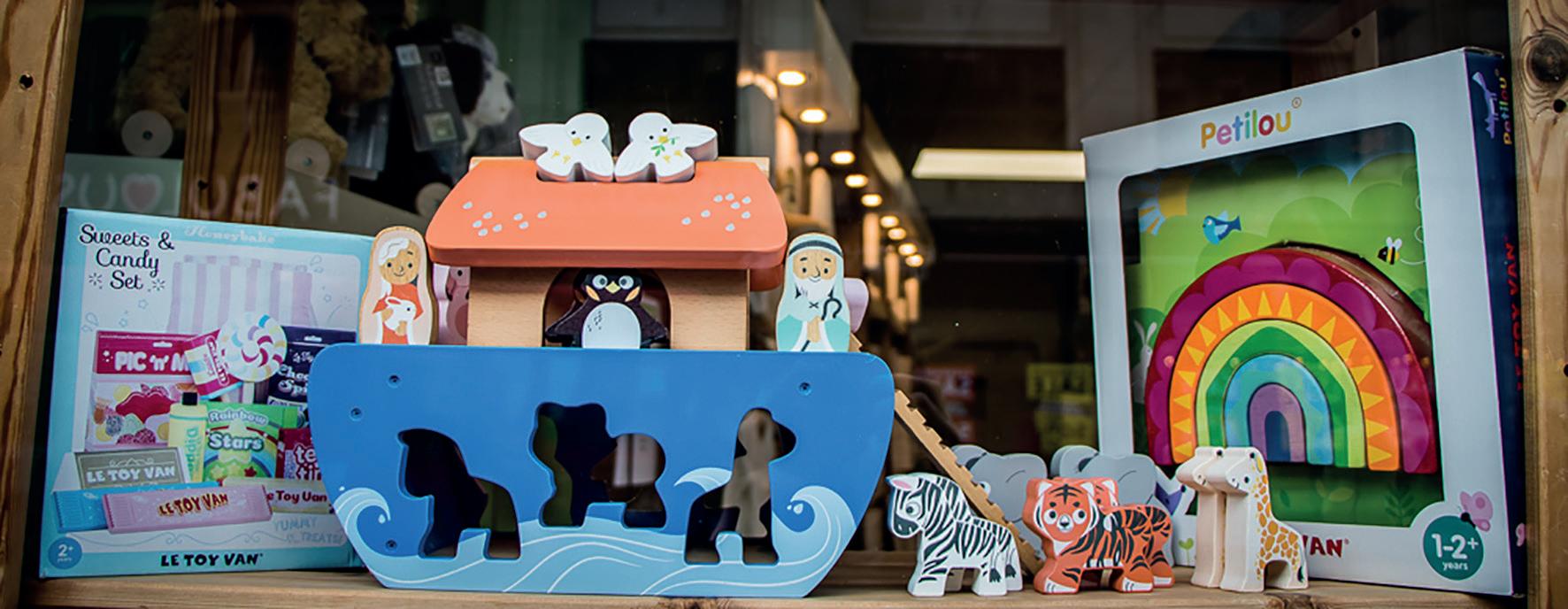
Do you feel that new parents are now looking more closely as to the fabrics, ingredients of skincare and materials used within items for baby or the environment?
I used to get more parents asking about the ingredients of skincare products and more about how the cotton was grown and how to wash items pre lockdowns.
I tend to find that when parents now come to the shop, if they ask if things are organic, they already understand more about it. I used to get into conversations about how to wash items far more than I do now. It might be that as Balham has a Planet Organic, a Holland and Barrett, an Organic Butchers and organic items are quite mainstream here, that more people simply know more or just know it’s good before buying.
Do you use social media and if so, how important is this to your business?
Yes, I certainly do. I used to work in a Communications Office, so it just feels wrong if I go through a day and haven’t put at least a photo out!
Trying to get the algorithms in favour of a small business might be hard, but my thoughts are that if a post brings in just one customer and it’s free to do, why not!
I have watched countless webinars as to how to do things right, I don’t think anyone really knows these days, but I certainly had lots of sales due to social media during the lockdowns when my website was far busier than it is now.
What about your customers – are they influenced by posts they see by influencers, bloggers, etc.?
I once had a customer who refused to buy some furniture as the brochure had a lady from The Only Way is Essex or Love Island or something. I have to admit, I had to google who she was at the time!
I tried to do a competition with Super Nanny many years ago, it didn’t work at all. I’m not really sure that this is something that my customers are bothered about.
How about your website, how important is this to you? Do you sell the same items online as you do instore?
My website is crucial! I had far more website sales during the lockdowns including Click and Collect at the shop’s front door in lockdowns two and three. Since opening and the restrictions going one by one, I find that customers come in having seen my website. Some customers have my website open on their phone, asking where a particular product is.
Things are much quieter now, which seems to be the way with most businesses. However, when the pound is weak, I have noticed that I get more website sales from abroad.
Customers from abroad buy online in two main ways, some buy vouchers for their friends and family to use on the website or inside the shop. Other sales from abroad are just simply buying for people inside the UK so they’re only paying UK postage prices. I offer free gift notes and just £1 for wrapping gifts online.
Are you seeing a higher percentage of new parents who are actively seeking ethical products for their infants?
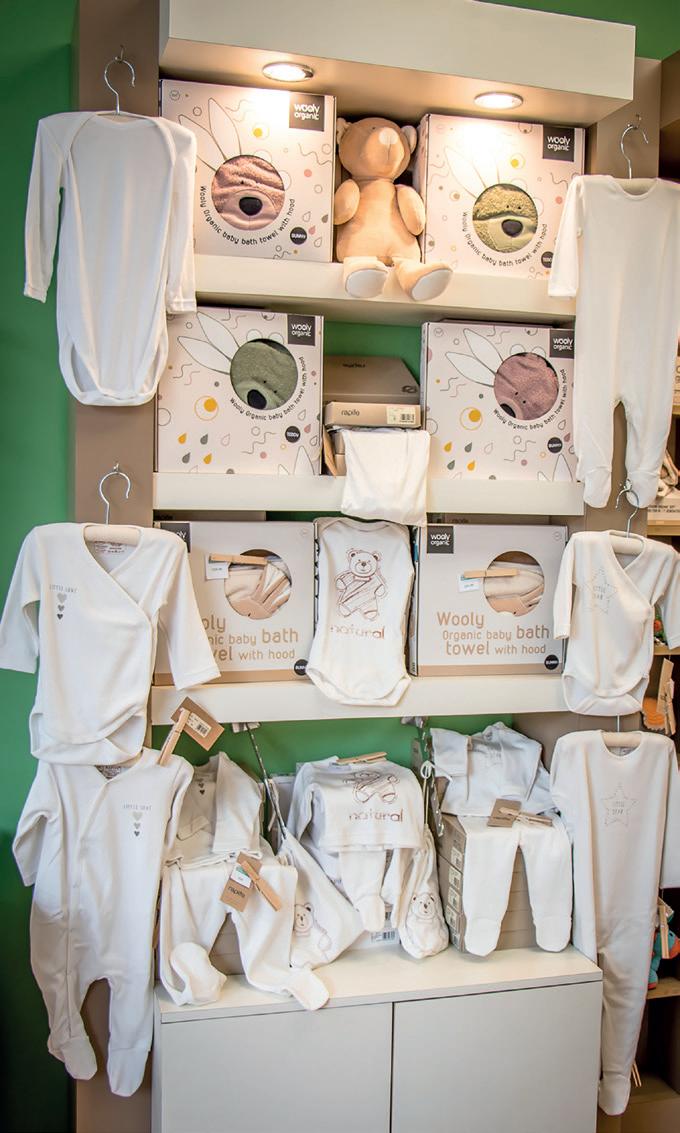
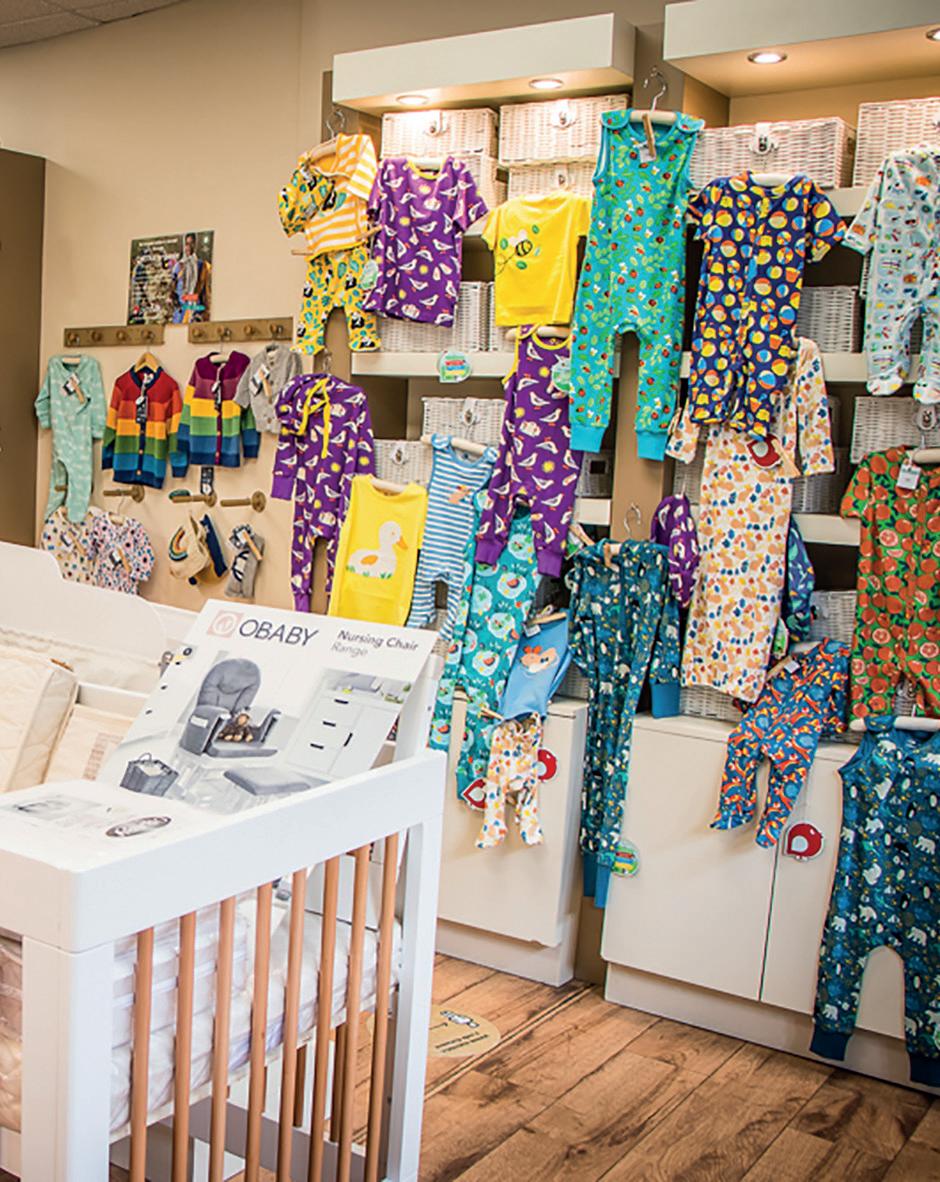
Sadly, I have not seen that this is the case. I let people know about how items are ethically made, but the organic side of things seems more important. I have had customers in general say things like “Isn’t everything made ethically now these days”, sadly many people
simply don’t know about how there is modern day slavery and exploitation.
I am however glad that most of the products I sell have information about how they’re made, sometimes people read the labels and ask me about them or get into conversation, but it’s more of an added bonus to customers I believe.
Do you run any schemes that support recycling or environmental issues? If so, how have these been received by your customers?
Yes, Natural for Baby is a drop off location for the Bra Bank. The shop is also a drop off location for the hygiene bank. Lots of people have donated bras over the 6 or so years I have been a drop off location for the scheme with Against Breast Cancer.
The hygiene bank is less about recycling and more just support for those in need.
Until this time last year, I was also a location to recycle baby food pouches, but the scheme changed so I now let customers know where to recycle them.
What about your own carbon footprint – how do you manage this within your business?
I simply try to do everything I possibly can. The shop has LED panels, I use recycled paper, eco-friendly wrapping paper, plant-based Sellotape, Paper tape for parcels, re-use the parcels that my stock has turned up in and recycle everything needed. Many customers no longer ask for a bag, but when they do need one, I have paper bags made from recycled paper that can be recycled again!
Finally, do you have any exciting plans on the horizon that you would like to share with our readers?
My shop may be used as a location for a filming crew to film an episode of a comedy in a few weeks’ time! I think it’s quite exciting. If you see a scene in a comedy in the future of a baby shop with brown and cream units and a green wall, that may well be Natural for Baby!
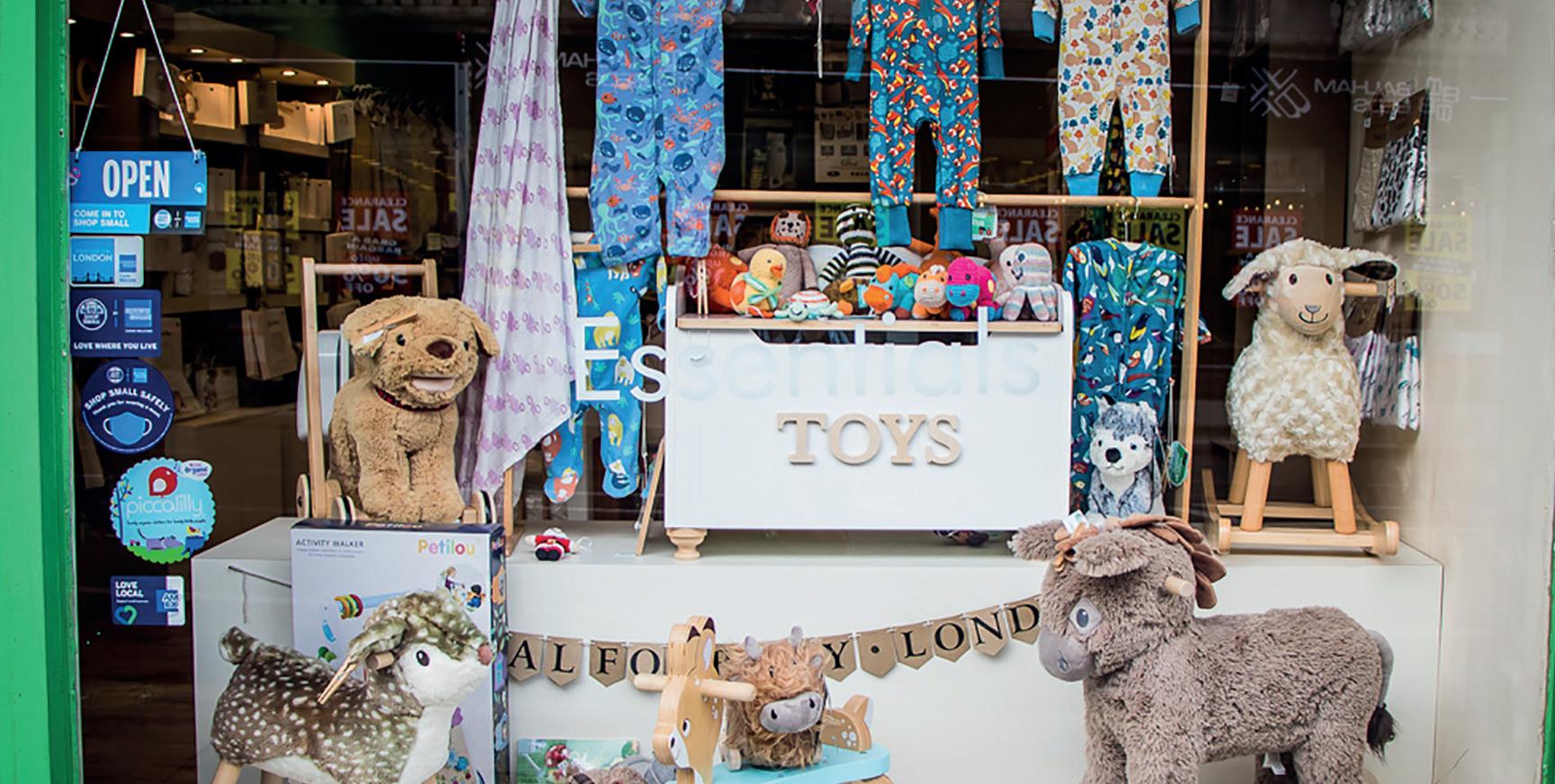
Eco/Sustainable nursery today 9
Having had this shop in the different formats for eight and a half years, it’s been great to see that more and more brands are starting and developing in the ecofriendly world.
“ ”
Eco-conscious with Maxi-Cosi
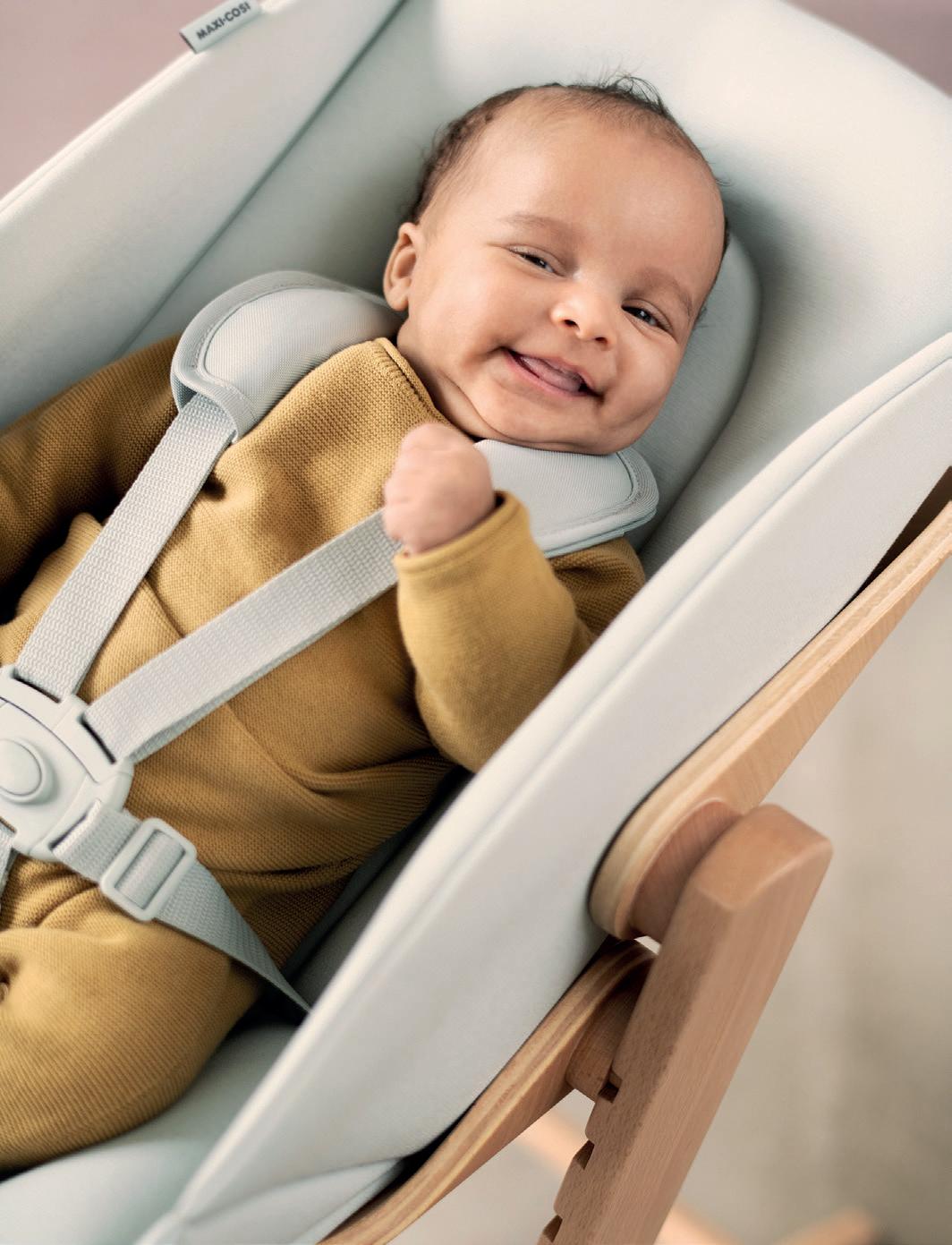
How important are products that hold eco credentials and sustainability features to the consumer?
We know that sustainability is becoming increasingly important to consumers and that buying behaviours are reflecting this trend. Products which combine safety and comfort features with sustainable and eco-credentials mean there’s no compromise for the eco-conscious consumer.
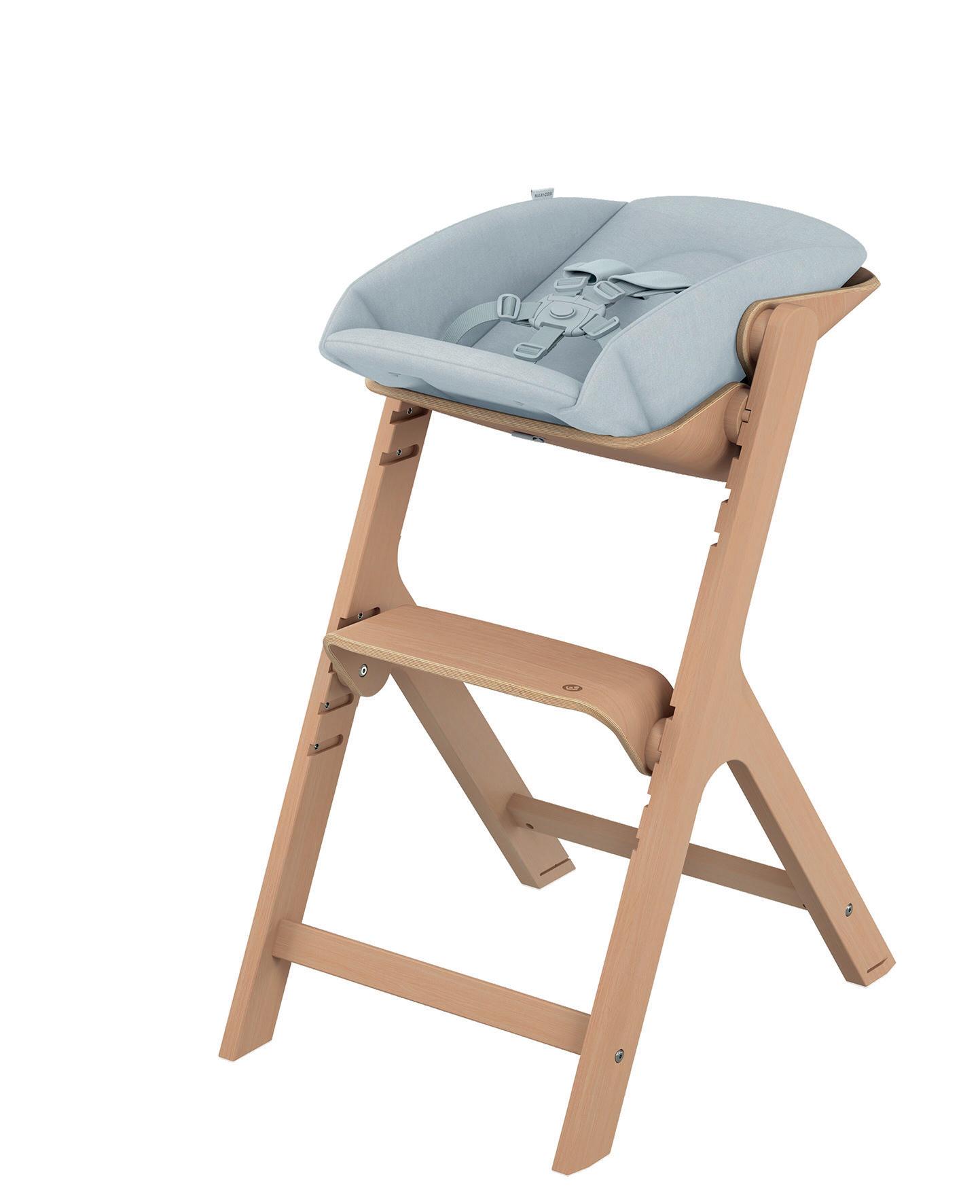
Do you feel that the next generation of parents will be looking more closely at the credentials of products and the materials used within manufacture?
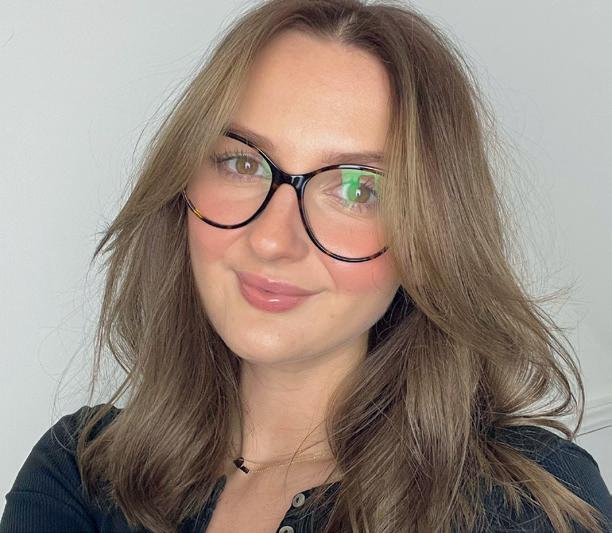
Yes, I do. We can already see that Gen Z consumers are changing their purchasing decisions to be more eco-conscious in many other sectors and this also applies when they are considering nursery purchases too.

Going green is no longer a fad, but a trend and one which looks set to stay for so many consumers when making purchasing decisions. How do you feel this is translating into the nursery industry?
Eco-conscious shopping is certainly a continuing trend and an important one in order to ensure the sustainability of our future. In the nursery industry, it is particularly important that the safety and comfort of products isn’t compromised because of sustainable and eco features, so it’s important to take the time to get
this right. We’re excited by the increasing amount of products which now include eco features and can’t wait to see how this develops!
Are you looking at launching any products in the future to enhance your existing range that carry an eco-credential or sustainability message?
We are really pleased to have already launched 6 products with our innovative EcoCare fabric and proud to say that by the end of 2024, EcoCare will be implemented across all Maxi-Cosi active collections and novelties. We have also considered the materials used in our accessories and from this year onwards, we will transition our bedsheets and car seat summer covers to a premium, non-dyed 100% organic cotton, produced via sustainable processes without chemicals.
What as a business are you doing to try to lessen the number of products going to landfill after use?
As a company, we actively reduce the number of products that go to landfill. Any excess stock or returns that are saleable will be donated to charity partners or re-sold on our eBay site to reduce the number of products going to landfill. We also employ a recycling company to break down items to be recycled. We carefully consider all current and future processes to ensure that we are doing all that we can to protect the environment.
It is really important that we reduce
the number of products that go to landfill across our full product portfolio. We would always encourage pushchairs, home equipment and small nursery items to be passed down, gifted or re-used for future children instead of disposing. We know that car seats pose a bigger challenge because we don’t recommend using a second hand car seat due to the risk of previous accidents or damage, however it is our priority to ensure that consumers are able to recycle their car seats after use.
What about recycling – are we doing sufficient to enable products to be easily recycled after use?
Within the industry, we know that recycling car seats is a major challenge due to the mixture of materials which are difficult to separate in order to recycle each component part. Our car seats can be recycled, which gives customers the ability to make an eco-friendly choice. Customers can recycle their car seat by taking it to their local recycling centre where it can be broken down so each part can be recycled separately.
Across all our brands, we are committed to reducing plastic components in packaging to make them more recyclable. We have also introduced several sustainable materials such as bioplastic and 100% recycled polyester fabrics across our Bebeconfort small nursery items. Over the last 12 months we have also developed our packaging across our Tiny Love products to reduce plastic which has been really well received by both our retailers and customers
Finally, do you feel as an industry there is more we could do to protect our industry’s impact on the environment?
There is always more that we can do to protect the environment. As an industry, it is so important that the safety and comfort of products isn’t compromised but we’re making great steps towards a sustainable future. Whilst they are small steps, eco-friendly packaging, products and processes are all contributing to a reduced impact on the environment and as an industry we should be proud of this progress. In the coming years, we’re expecting to see even more of this
10 nursery today Eco/Sustainable Interview Maxi-Cosi
We had the pleasure to catch up with Dorel’s Junior Field Marketeer Rose Landreth, to discuss why sustainability and holding eco credentials is not only important to the consumer but to their business also. Here we find out more.
The green future of our Industry
The rise of organic and sustainable baby products is a positive trend for parents and the environment. Consumers have never been so aware of the impact that their purchases have on the health of their families, the environment, and the wider planet. As such, they are increasingly looking for sustainable, eco-friendly and organic products when choosing what to purchase for their babies.
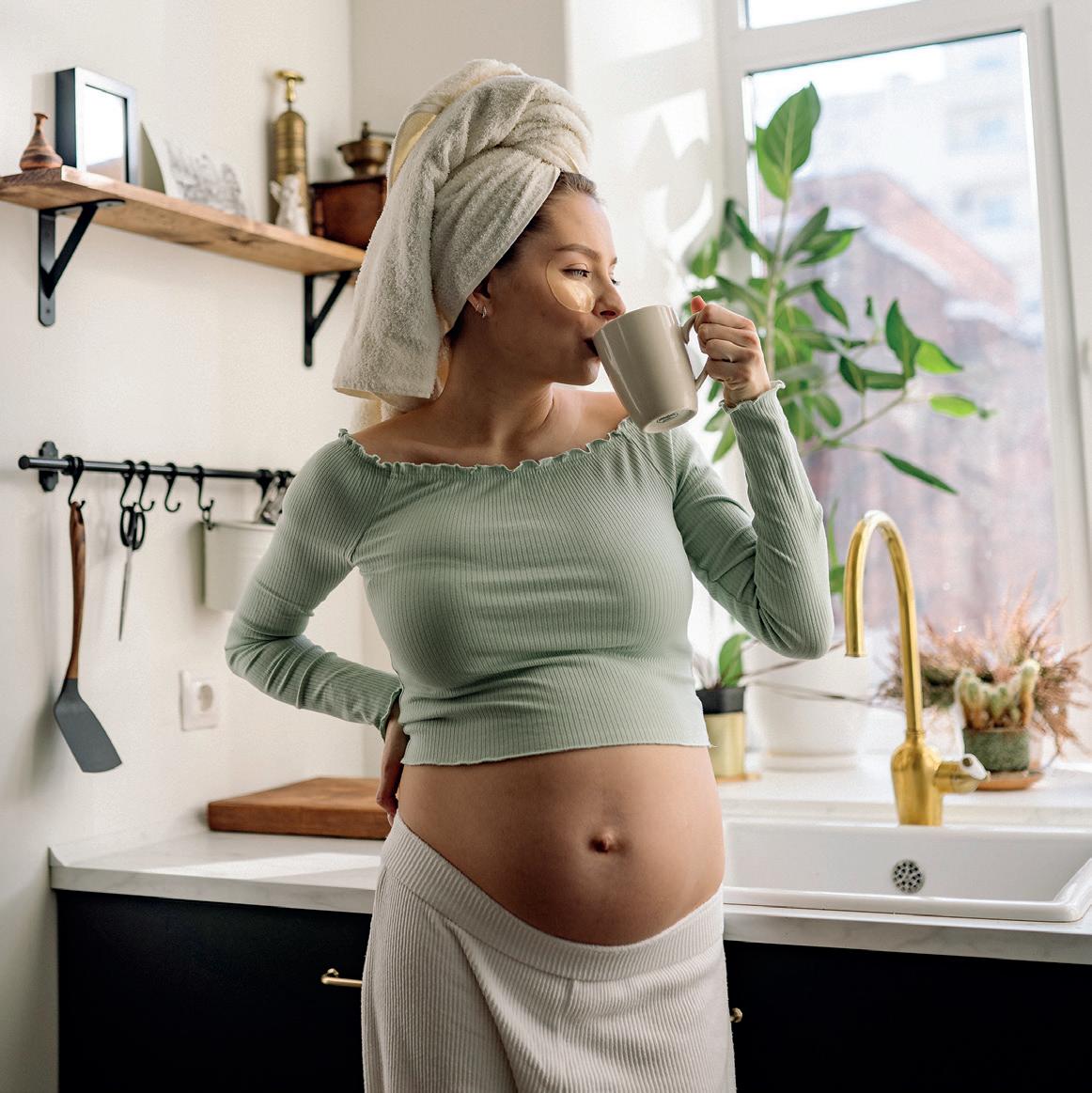
In recent years we have seen a rise in brands and retailers re-thinking their approach to baby products, innovating ways to make them more sustainable and taking a more planet focused look at their manufacturing process. We have seen retailers favour stocking more sustainable options, as they witness the increasing rise of eco-savy consumers. Parents are actively making green choices and they are looking for simple and effective ways of living a more eco-friendly lifestyle at home –especially in an industry as historically wasteful as the baby industry. In light of this, parents and carers are looking to make simple ‘swaps’ to the items that they purchase, to enable them to reduce their footprint and to make a positive impact on their family’s health and the health of the planet.
An excellent example of this is Aqua Wipes’ range of bio-degradable baby wipes, a two-time gold winner of our awards last
year. Their innovation has given the everyday consumer an opportunity to switch one heavily-used consumable to an eco-friendly substitute at a wallet-friendly cost. Another of our winners was Bamboo Bamboo, who’s innovation saw them re-thinking commonly seen plastic feeding accessories and designing a range in sustainable and natural bamboo. Our nursery bedding gold award winners, Kabode, make organic bedding that’s as good for little one’s as it is for the planet. We are seeing innovative, trail blazing brands like these popping up all over and disrupting the industry, with existing brands acting fast to bring their own products up to standard.
However, with the rise of greenwashing (a deceptive marketing tactic where products claim to be eco-friendly, but in reality, are not), it can be difficult for parents to know which products truly live up to their eco-friendly claims.
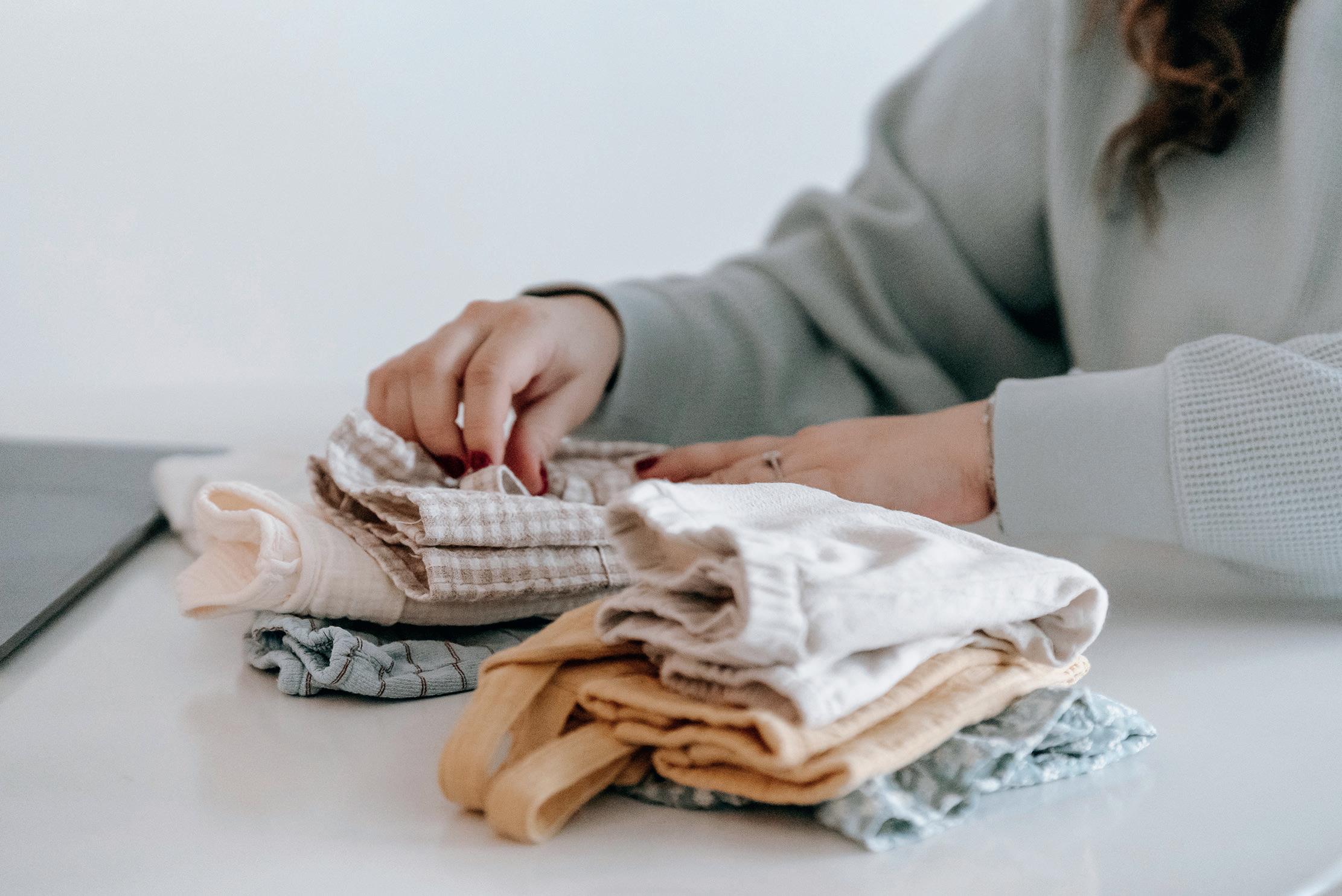
A recent study by Grand View Research found that 82% of consumers are aware of green-washing and as such look for certifications and awards on product packaging or a retailer’s website to verify their eco credentials. One way to identify a truly sustainable baby products is to look for products that have won awards. For example,
the Organic & Sustainable baby awards is a coveted award given to products that are rigorously tested and meet our eco-friendly standards. Products that win awards like ours inspire confidence in consumers, who are more likely to purchase them over the competition, leading to increased sales and enhanced consumer trust.
Going forward, as the demand for sustainable and organic baby products continues to grow year-on-year, the industry is likely to see a huge rise in the innovation of eco-friendly products. Many existing companies are exploring ways to create their product in a more sustainable fashion, so as not to be left behind. The industry is also likely to see more collaboration between companies and organizations that promote sustainability, leading to a more cohesive and environmentally friendly approach to baby products.
However, it is important for brands to be aware of greenwashing and to look for ways to instil trust in the consumer. Awards like the Organic & Sustainability Baby Awards can help identify these products and inspire confidence in parents. The future of the industry looks green and bright, with more innovative and sustainable products on the horizon.
Organic and Sustainable Baby Products - building consumer confidence through awards. The Organic & Sustainability Baby Awards
CEO Mimi MontgomeryTibber tells us more.
Entries to the Organic & Sustainable Baby Awards 2023 open on April 1st. Nursery Today readers can get 10% off their product’s entry by using code ‘NURSERYTODAY’. If you would like to check whether your product is eligible, drop us an email at hello@organicbabyawards.com
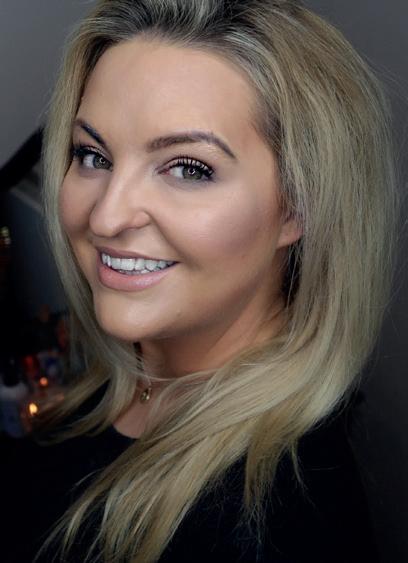
Eco/Sustainable nursery today 11 In-focus The Organic Sustainablity Baby Awards
“ ”
Going forward, as the demand for sustainable and organic baby products continues to grow year-on-year, the industry is likely to see a huge rise in the innovation of eco-friendly products.
Meet:
Paige Tracey, Business Development Manager for Non-Food
Paige is the face of Soil Association’s Organic schemes across Beauty, Wellbeing and Textiles. She is always looking for creative new ways to tell the story of certified organic brands and the hard work that goes on behind their scenes every day. She has forged successful partnerships with Marie Claire, Latest in Beauty, Planet Organic, Wholefoods and more.
Certified for consumers
Many consumers switch to organic as new parents, valuing the health and environmental benefits. For example, nearly 2/3rds of baby food sales are spent on organic brands. However, did you know that beauty, wellbeing, and textiles products can also be certified as organic? Here The Soil Associations Business Development Manager Paige Tracey tells us more.
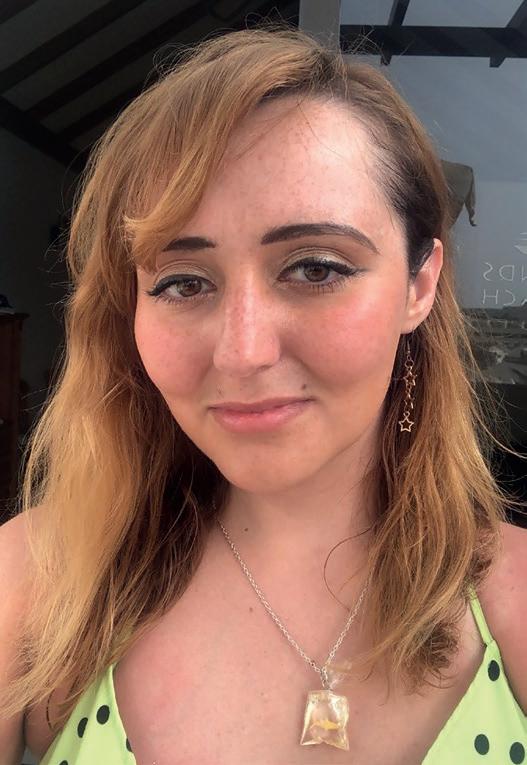
The Soil Association Organic logo gives consumers a guarantee of truly sustainable and ethical products. Unlike in the food and drink industry where “organic” is a legally regulated term, there is little legislation surrounding the term in the beauty, wellbeing, and textiles industries. This allows for situations where, for example, a company could be using a tiny amount of organic cotton or wool in a product, with the rest of the product being composed of synthetic fibres. In this case, it would still be perfectly legal to label that product as “organic”.
Soil Association Certification certifies beauty, wellbeing and textiles products to global third-party standards for organic. For beauty and wellbeing, this is the COSMOS Organic standard, and for textiles this is the Global Organic Textiles Standard (GOTS). These standards require that the entire supply chain of a product is inspected and certified, from the farm to the final product.
Our certification safeguards the integrity of the term “organic” in these
industries. Products must have a minimum number of materials that have been grown organically and environmental and ethical considerations are embedded throughout the supply chain.
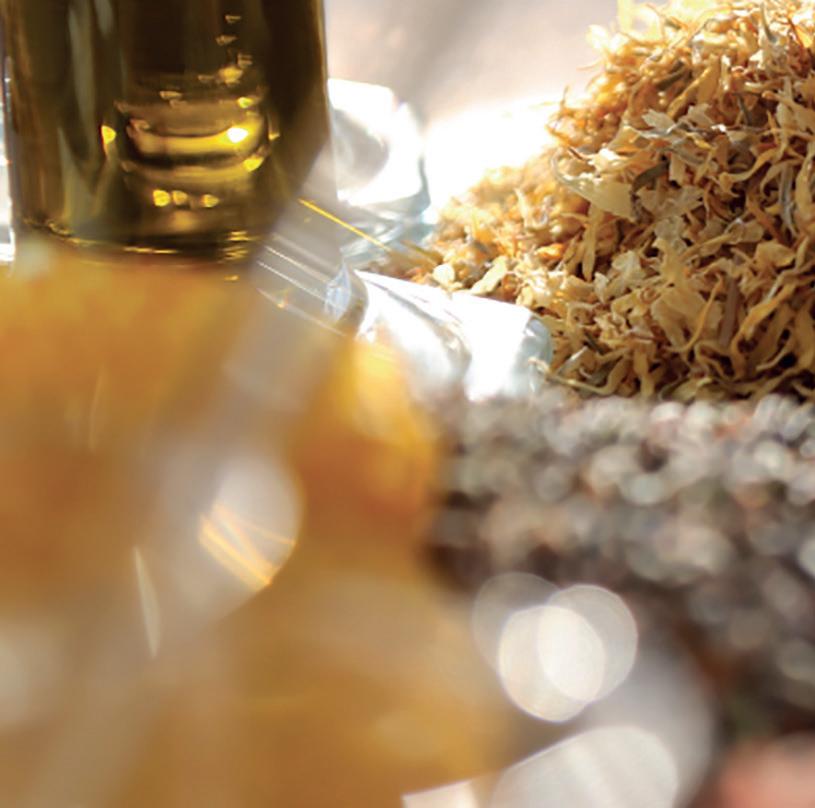
The GOTS standard, for example, requires that companies pay or are working towards paying their workers a living wage. This is not to mention that organic farms are healthier environments for these workers due to the ban of hazardous synthetic pesticides, herbicides and fertilisers in organic farming standards. These chemicals also wreak havoc on the environment. Run-off of artificial pesticides and fertilisers into waterways is killing aquatic life and is responsible for the increase in “dead zones” in our oceans. On land, these chemicals harm biodiversity, killing worms, bees and other insects that help crops to grow in the first place through pollination and natural pest control. A knock-on effect of this is depletion of the nutrients in the soil which causes degradation. Conventional cotton production is responsible for 16% of all insecticides sold worldwide, which is why
organic cotton production is particularly integral to saving the planet.
The Soil Association’s organic standards have requirements for a minimum percentage of organic materials, and they also prohibit problematic materials being used. Many cosmetic or wellbeing products that are labelled as “organic” but do not have certification contain synthetic ingredients that have been linked to allergic reactions, eczema, dermatitis, hormone disruption and other health issues. The Soil Association has identified a list of “Terrible Ten” ingredients that are found in non-certified “organic” products, but which would be prohibited under the COSMOS organic standard. They include things like Polysorbate 20 which can cause serious eye irritation and allergic skin reactions and Octisalate which has been linked to dermatitis and may have negative effects on the immune system.
On the textiles side, products certified to the GOTS standard also have strict limits on the type of dyes and inks fibres can be treated with. They must meet strict requirements on biodegradability.
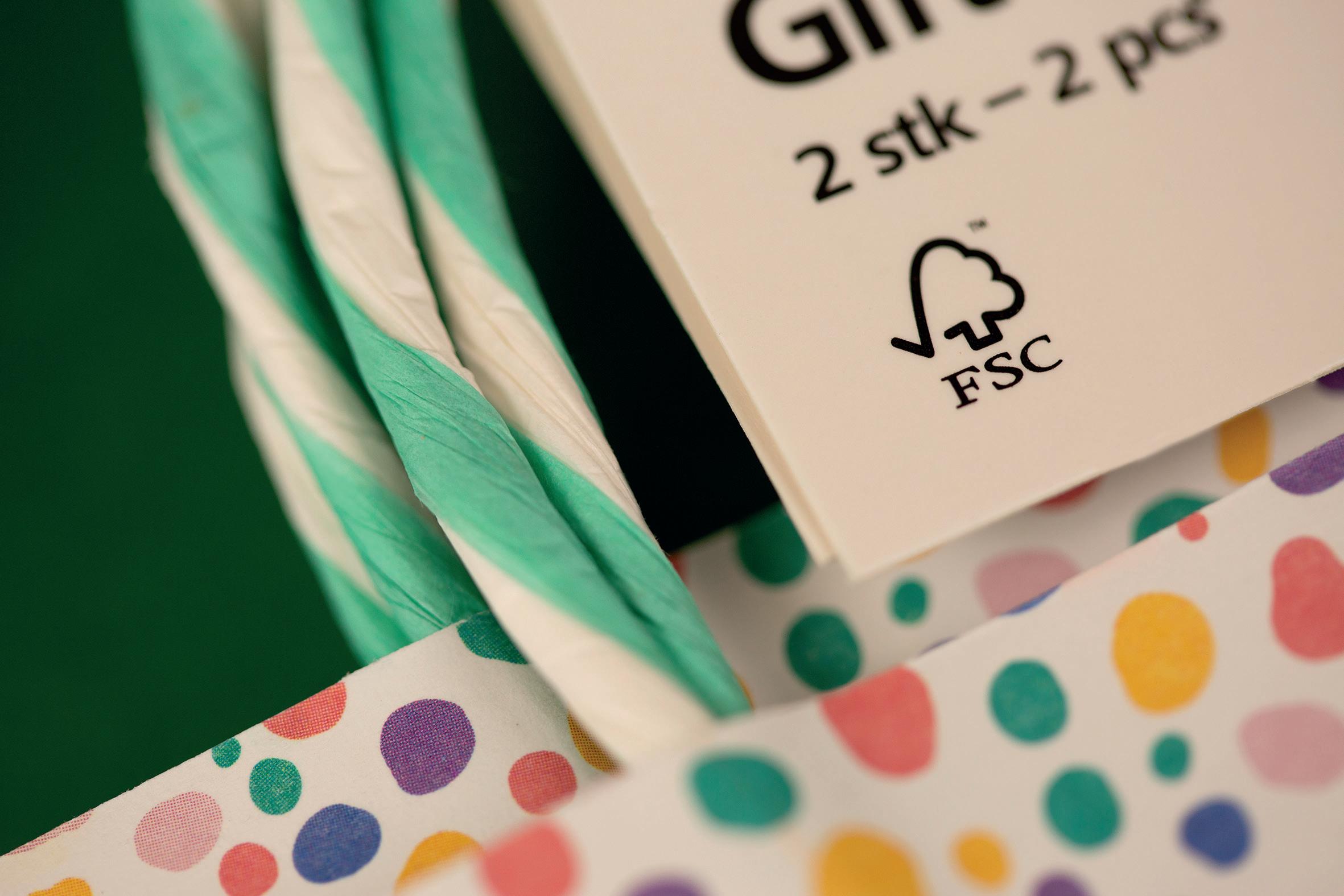
12 nursery today Eco/Sustainable
In-focus Soil Association
Certifying to our standard is a quick-fire way to demonstrate to parents, who will be conscious about what they are putting on their baby’s delicate skin, that your product does not contain any irritating “nasties”.
In addition to our work on cosmetics and textiles, Soil Association Certification is also an independent certifier to the Forest Stewardship Council (FSC) and Program for the Endorsement of Forest Certification (PEFC) standards. This certification ensures both the sustainable management of the forests themselves, and through the Chain of Custody certification, the sustainable production of materials like cardboard and wood. Chain of Custody certification is for any business involved in the processing, manufacturing, or selling of wood-based products and demonstrates to the consumer that forest materials have been traced at every stage of processing to demonstrate their origin. Like with beauty or textiles products, our certification adds an extra layer of integrity to your business and shows your commitment to
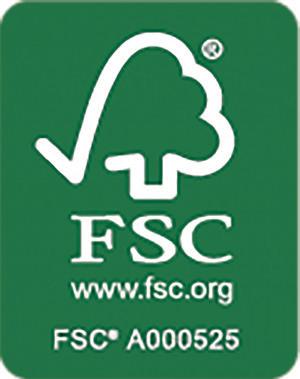
protecting the natural environment. Our wide-ranging certifications mean we can certify all kinds of nursery products to our high environmental standards. From wooden cots eligible for FSC or PEFC certification, through to GOTS certification baby blankets, clothes and car seat material, to COSMOS organic certification for infant toiletries – you can commit to greater transparency, environmental protection and integrity, whatever your business type. Parents are more conscious than ever before about leaving a healthy planet behind for the next generation. Certifying to organic standards is one of the most effective ways to do so.
What’s more, third-party certifications continue to be one of the leading ways that push consumers to make more sustainable purchases. Research by Provenance found that third-party certification was the favoured way for consumers to tell if a product was sustainable, identified by 46% of
• Soil Association
Certification offers certification schemes for Textiles, Cosmetics and Personal Care and Wood based products
• Soil Association organic textile sales grew by +35% during 2022

• Organic children’s clothing grew by +23%
• Beauty and wellbeing sales grew by +6.8%
• Third-party certification like Soil Association
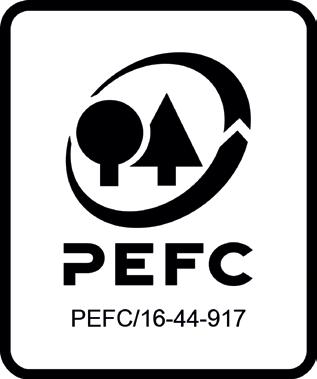
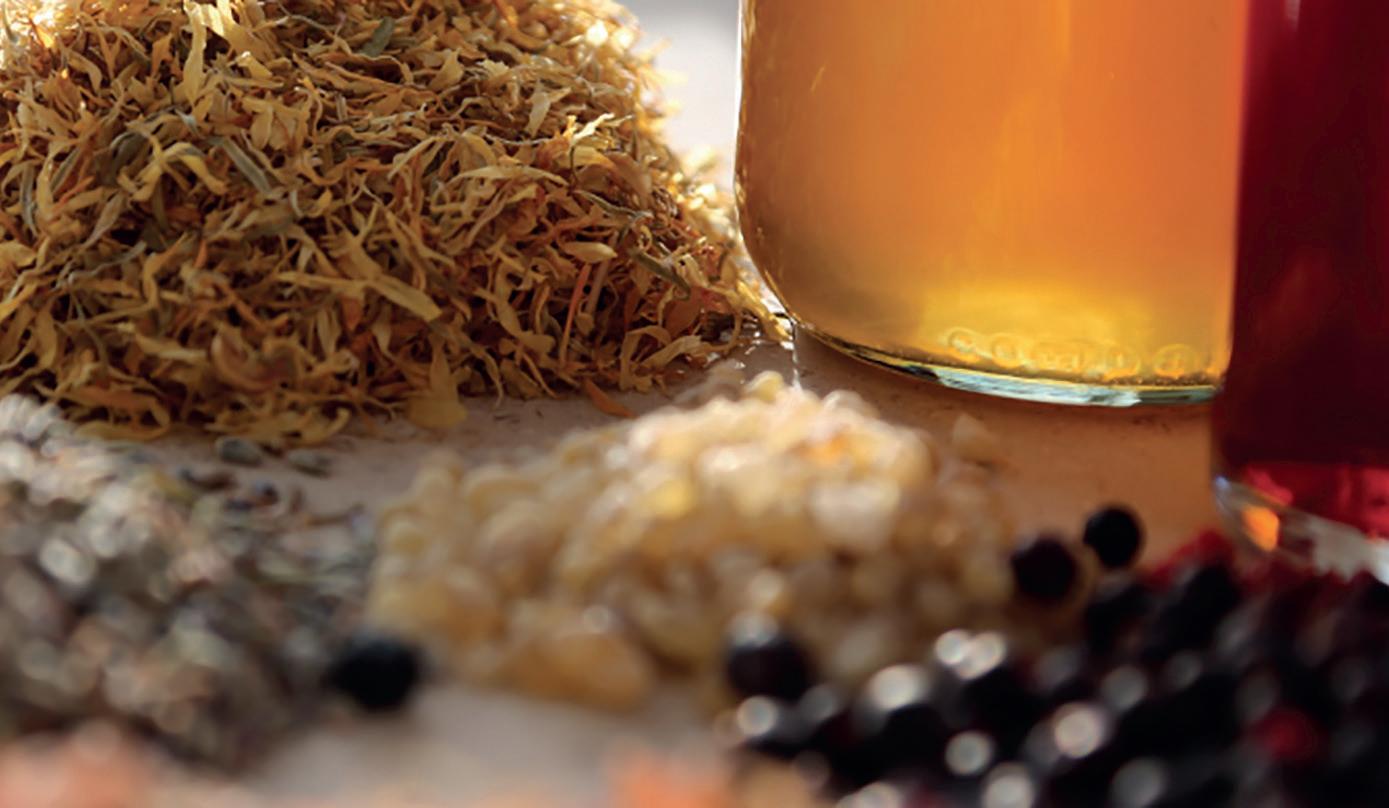
Certification is one of the most effective ways to push consumers to make a sustainable purchase, favoured by 46% of those surveyed in one survey
• In the beauty, wellbeing, and textile industries, a lack of legislation allows for brands to label their products as “organic” even if they contain as little as 1% organic materials
Want to certify your business?
Email: goorganic@soilassociation.org
consumers as the reason that would push them to make a purchase. By comparison, the next highest scoring reason – on-pack information – was favoured by only 26%. Consumers are becoming more savvy and are no longer taking what brands themselves say about their sustainability credentials at face value as they navigate through greenwashing.
By certifying to Soil Association Organic standards, you will be joining a thriving sector that has seen growth for the past ten years. Organic textiles were one of the highest performing categories of organic during 2022, growing by a massive +35% year on year. Organic Children’s Clothing had a +23% uptake in sales during this period and sales of organic wool grew by +80% during this period. Beauty and wellbeing has also grown favourably by nearly 7% over 2022. The demand for certified products is high.
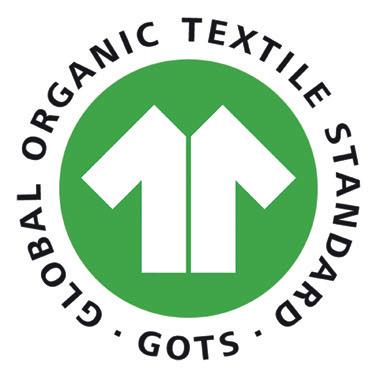
Certifying to Soil Associations’ third-party environmental standards demonstrates that your brand’s commitment to protecting the planet for future generations is more than just a superficial marketing point.
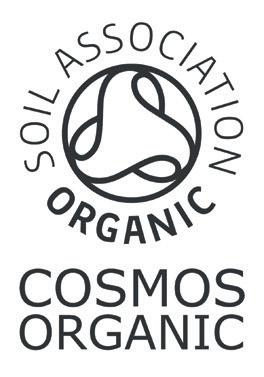
Eco/Sustainable nursery today 13
Research by Provenance found that third-party certification was the favoured way for consumers to tell if a product was sustainable, identified by 46% of consumers as the reason that would push them to make a purchase
Fact
“ “ ”
Our wide-ranging certifications mean we can certify all kinds of nursery products to our high environmental standards. From wooden cots eligible for FSC or PEFC certification, through to GOTS certification baby blankets, clothes and car seat material, to COSMOS organic certification for infant toiletries
”
Mumanu Organic Baby Balms
Offer your customers the best in ethical skincare. Gorgeous Certified Organic Balms containing Fairtrade ingredients & responsibly sourced packaging.
All over goodness for mum and baby. Enriched with shea butter and cocoa butter for silky soft skin, Mumanu balms contain traditional ingredients, known for their amazing properties. You won’t need a chemistry degree to understand what’s in them.
There are thousands of skincare products on the market to choose from but less than a handful are certified organic and contain Fairtrade ingredients. By choosing Mumanu balms you’re not just supporting biodiversity, sustainable farming practises and a small company like Mumanu. You’re also supporting small scale farmers, in some of the poorest countries, get a fair price and support to invest in community projects, from clean drinking water to improving their local healthcare.
Mumanu have made all their balms safe to for pregnancy and have a small, but essential range for babies including the Baby Decongestant and multi-use Mum & Baby Balm.
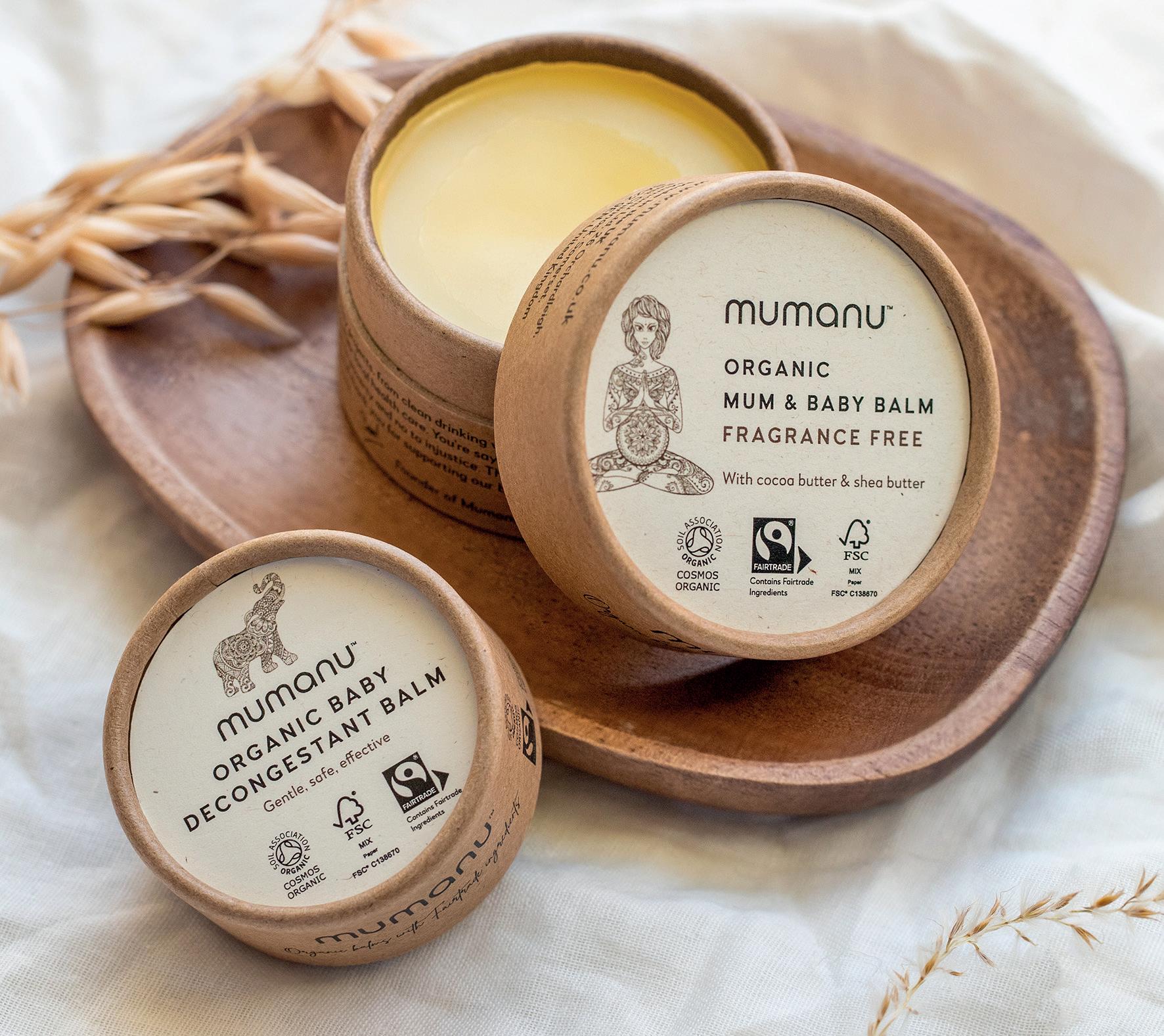
Get in contact today for a wholesale catalogue.
sam@mumanu.com | www.mumanu.com
Perfect for newborns
Newborn Collection is the latest bundle of joy to join Green People’s award-winning Organic Babies range and provides new parents with a 4-piece organic skin care routine that is bursting with benefits for both mum and baby.
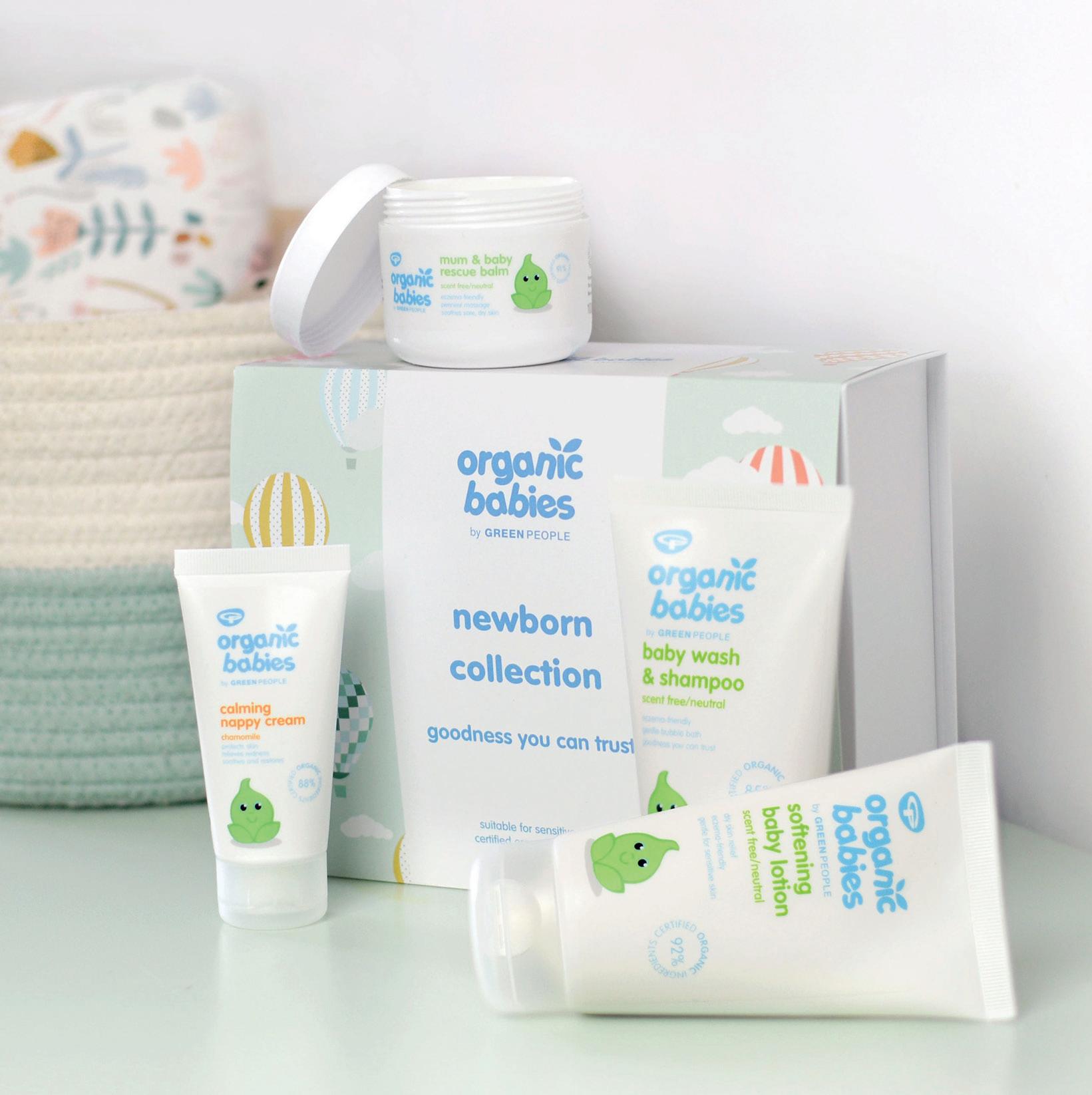
Designed for use during pregnancy right through to baby’s first bath and beyond, this welcome to the world’ gift set is eczema-friendly is rich in skin-barrier nurturing natural actives that parents can trust to care for their baby’s delicate skin.
Give the gift of goodness and discover Newborn Collection.
Organic@greenpeople.co.uk
www.greenpeople.co.uk
No artificial nasties
Award winning cruelty free skincare from Mini U
Mini U, the multi-award-winning haircare, bath and body care brand for babies, toddlers and children, is proud to use sustainable palm oil, no micro-plastics and fully recyclable packaging to create bath time products which are as kind to the skin, as they are the planet.
Fronted by a range of endearing sea creatures, the affordable products from Mini U are also vegan, cruelty-free and free from gluten, soy and dairy – and there’s no artificial nasties – for a fun range which is guaranteed to add good clean fun to bath time, with no mess and no stress!
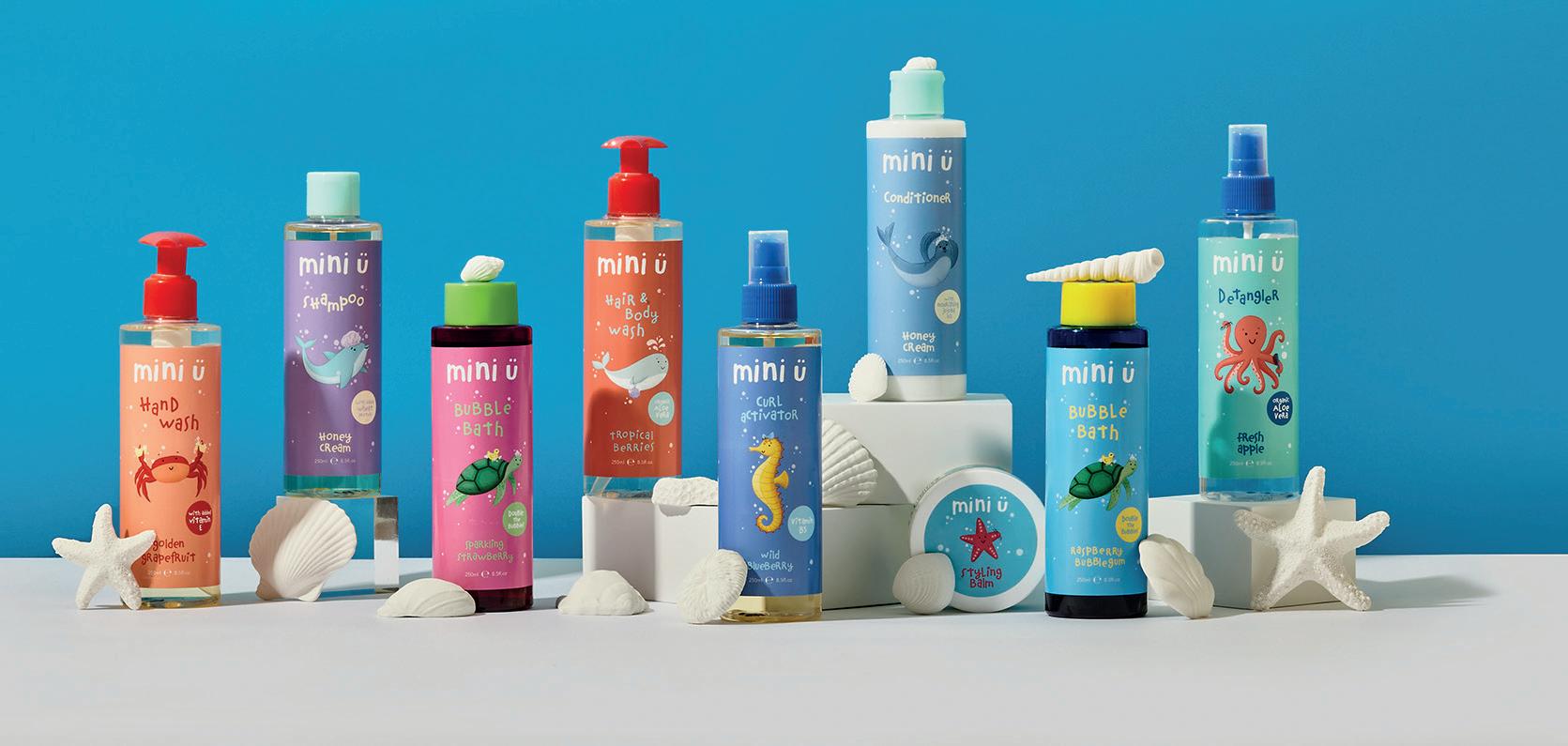
01489 781979
Katie.Roberts@rocami.co.uk
www.miniu.co.uk
14 nursery today Eco/Sustainable Focus Skincare
Future proof
We had the pleasure to catch up with Joie’s Head of Product Management, Damon Marriott to discuss why sustainability and holding eco credentials is not only important to the consumer but to their business also. Here we find out more.
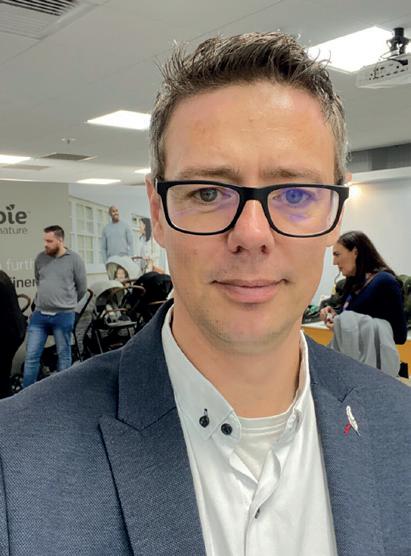
How important are products that hold eco credentials and sustainability features to the consumer?
We have a vested interest in ensuring our products are produced in the most energy efficient manner, so we feel this has served us well with consumer demand for good products since Joie launched & with the increasing awareness and demand for sustainable products have recently launched our Pure Joy campaign to make consumers aware of our eco credentials.
Do you feel that the next generation of parents will be looking more closely at the credentials of products and the materials used within manufacture? –
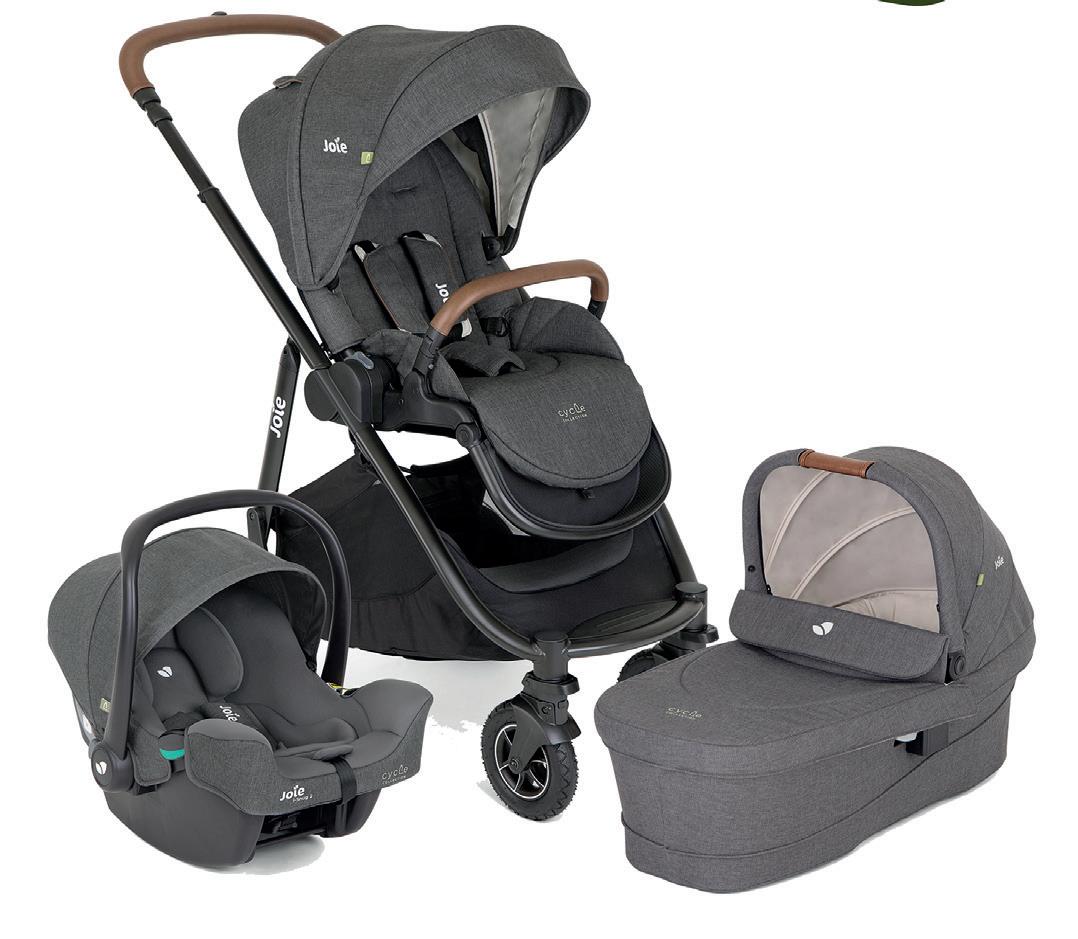
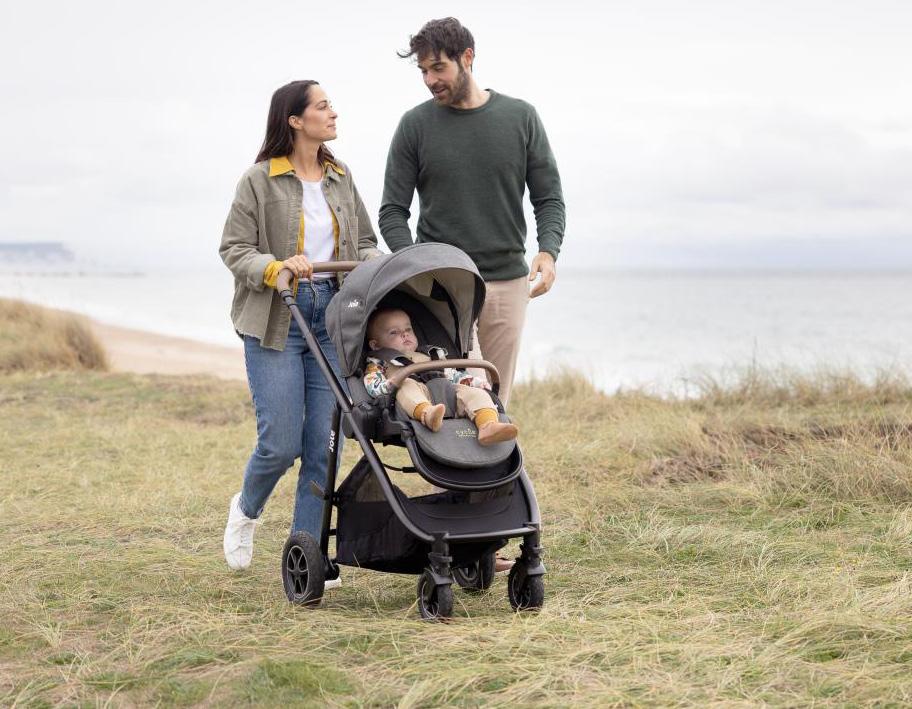
Without a doubt, the children of this generation are very aware that the planet needs protecting and they are the mothers and fathers of tomorrow. In order to futureproof our business for the generations of parents to come, we have a duty to make further leaps towards a greener future from source through to the end user.
Going green is no longer a fad, but a trend and one which looks set to stay for so many consumers when making purchasing decisions. How do you feel this is translating into the nursery industry?
Many premium brands already have
eco-friendly products within their portfolios, with selections including recycled fabrics and reduced plastic packaging. But, going green does potentially involve additional costs so it may be some time before the value end of the markets also adopt eco credentials.
As an industry, do you feel we do enough to protect the environment?
Most sectors still have a way to go before they could be able to say that their particular industry has done all it can regarding environmental protection. But many within the nursery industry are starting to make positive changes, although we are still a long way from perfection.
What about fabrics and textiles
– how have these moved on and developed over time?
The variety of fabric used has changed drastically over the last decade and has moved a long way from the early days of standard 150/300D polyester grade fabric that was used in everything. The use of woven, natural and recycled fabrics are now widely used. The look and feel of these fabrics have improved significantly and we are now amongst the brands that are using fabrics made from recycled materials in our range.
What as a business are you doing to try to lessen the number of products going to landfill after use?
Many years ago now we started the quest to find an ethical waste management company for our returned
products to ensure these products are processed properly and as much material as possible is recycled to avoid the path leading directly to landfill sites, but we have a long way to go before all products from our industry avoid landfill.
What about recycling – are we doing sufficient to enable products to be easily recycled after use?
order to minimise our contributions to landfill. We also use solar power that has reduced our greenhouse gas emission by 1536.5 tonnes so far. Our factory has an industrial treatment station that allows us to reuse 80% of our wastewater to lessen our consumption.
Are you looking at launching any products in the future to
We recycled over 1,000 tonnes of plastic between 2005 and 2018 in order to minimise our contributions to landfill. We also use solar power that has reduced our greenhouse gas emission by 1536.5 tonnes so far.
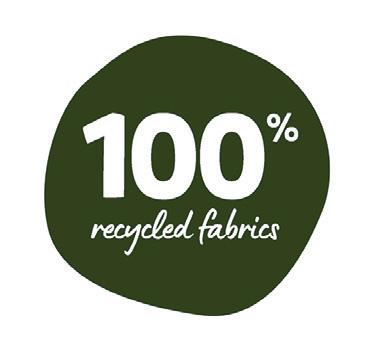
Most larger items in our industry are produced using mixed materials, be it metal and plastic alone or with the addition of fabric soft goods. Obviously, most fabrics can be easily removed for separate recycling but it’s the mixed hard goods that are difficult to break down at the end of a products use, so there is more work to be done here for sure.
When we look at a more sustainable future, how do you as a business manage your own carbon footprint?
We recycled over 1,000 tonnes of plastic between 2005 and 2018 in
enhance your existing range that carry an eco-credential or sustainability message?
Our amazing new Cycle collection is just launching with products landing into the market, so speak to your local account manager to find out more.
Finally, do you feel as an industry there is more we could do to protect our industry’s impact on the environment?
This is an ever-evolving issue, and we are always going to have to look at new ways to do better.
Eco/Sustainable nursery today 15
Interview Joie
“ ”
Soft, breathable fabrics
The Maxi-Cosi team want to ensure a better and greener world for all of the babies they’ve safely carried home. That’s why they introduced the Mica Pro Eco. With Eco Care, the Mica Pro Eco uses recycled fabrics, made from 19 plastic bottles each, that still have the same soft and breathable qualities that parents would expect from Maxi-Cosi.
Built to the highest i-Size safety standards and suitable from birth to four years, Mica Pro Eco combines best-in-class comfort with planet-friendly innovation, to create the first sustainable car seat of its kind.
With all of the features you come to expect from Maxi-Cosi car seats including ClimaFlow, FlexiSpin, G-CELL and more, it is the perfect choice to care for our planet, and future generations.
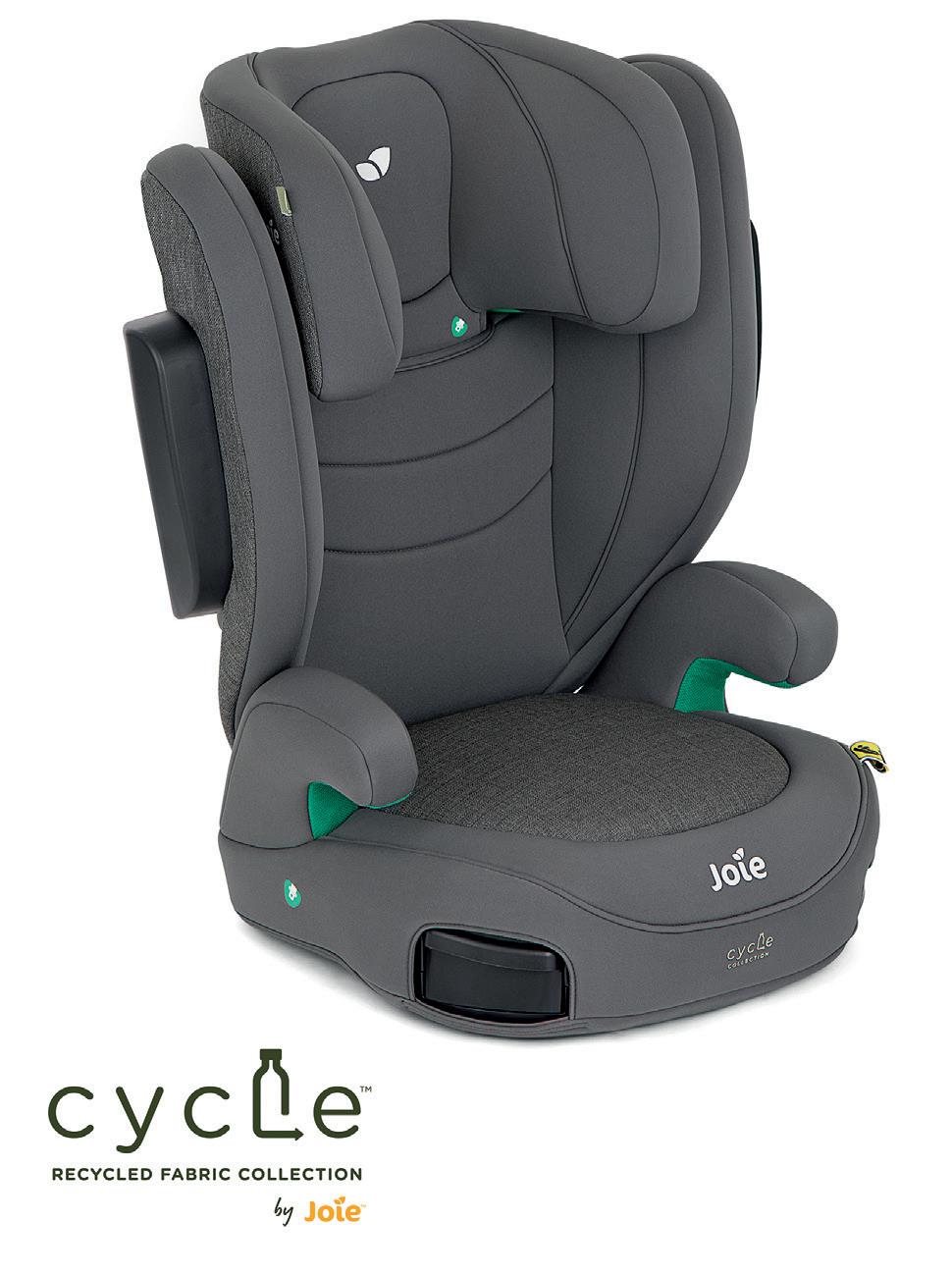
www.maxi-cosi.co.uk
The perfect fit
uksales@joiebaby.com
This i-Size certified booster seat has been made with 100% recycled fabrics.
Packed with 24 recycled bottles, you can take part in protecting our planet while protecting your little one.
I-Trillo boasts a super easy install thanks to colour coded guides that clear the path to a simple and intuitive buckle up with a 3-point seat belt. I-size safety upgrades mean that both you and your kiddo can rest secure, with side impact protection designed to absorb force in the event of a collision.
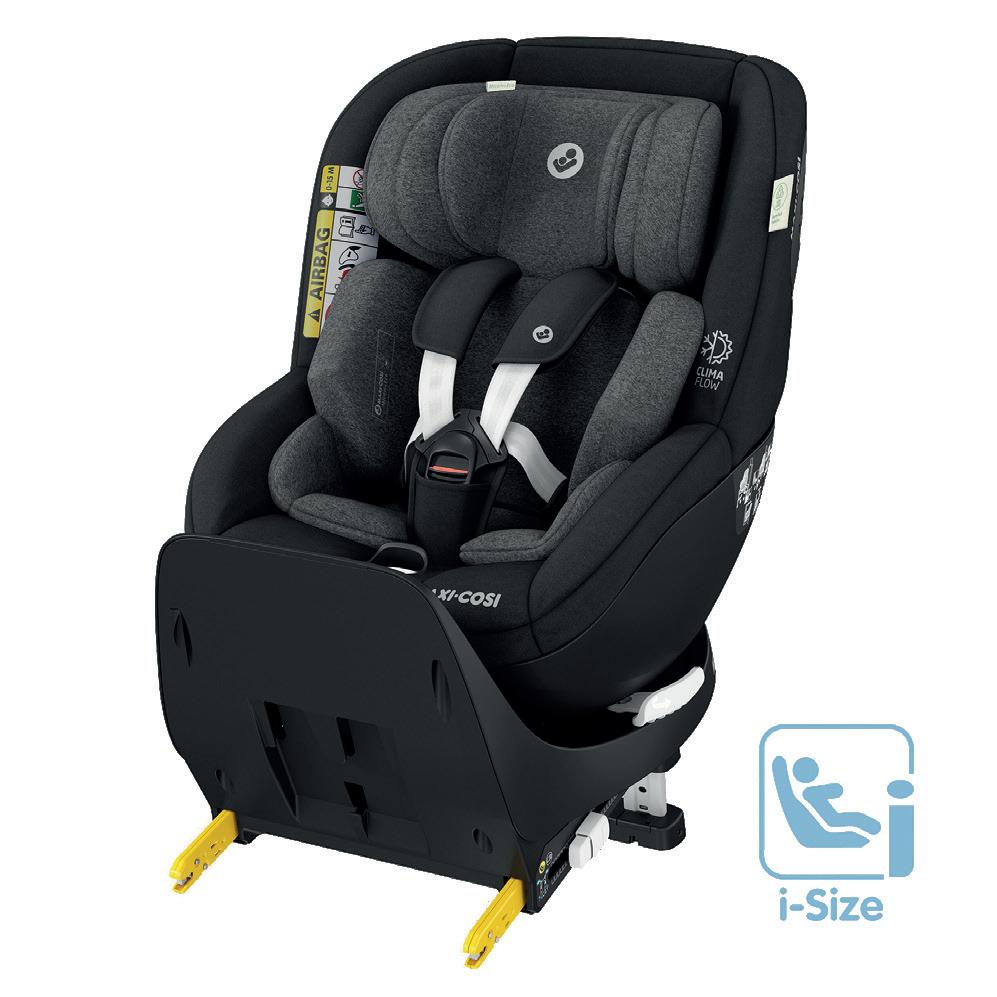
The 10-position headrest adjusts with just one hand to quickly match passengers of varying heights with the perfect fit.
Environmentally friendly with i-Spin 360
This pivoting protector’s textiles have been made with 33 recycled bottles making all threads used 100% recycled, keeping journeys environmentally friendly with safety and functionality in mind.
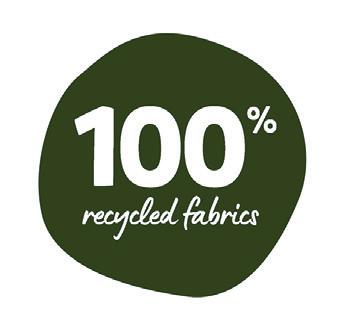
Featuring i-Size security, plus Guard Surround Safety and Smart Ride lock off, the i-Spin 360 is built for safety. Turning baby towards you just is so much easier with the Simple Swivel, the one hand turning activator that is positioned right where you naturally reach. The powerfully protective Guard Surround Safety panels auto-engage when the harness is tightened, to surround baby with ultimate safety. Ready to rotate - Smart Ride lock off offers smarter security, helping to keep baby rearward until it’s time to transition forwards.
uksales@joiebaby.com
New Eco Collection
Silver Cross has launched its award-winning car seat collection in brand new colourways, all now featuring recycled fabrics.
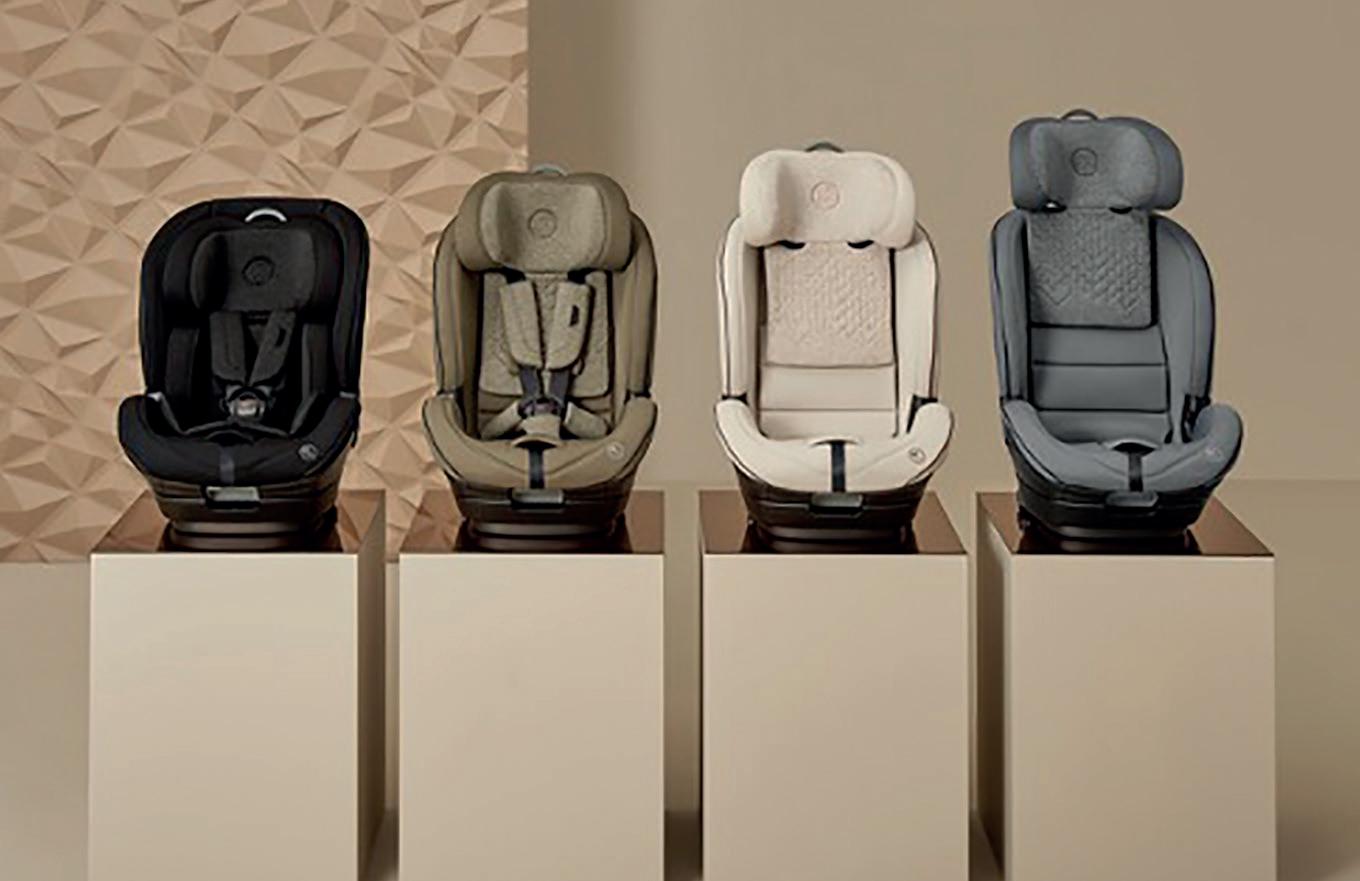
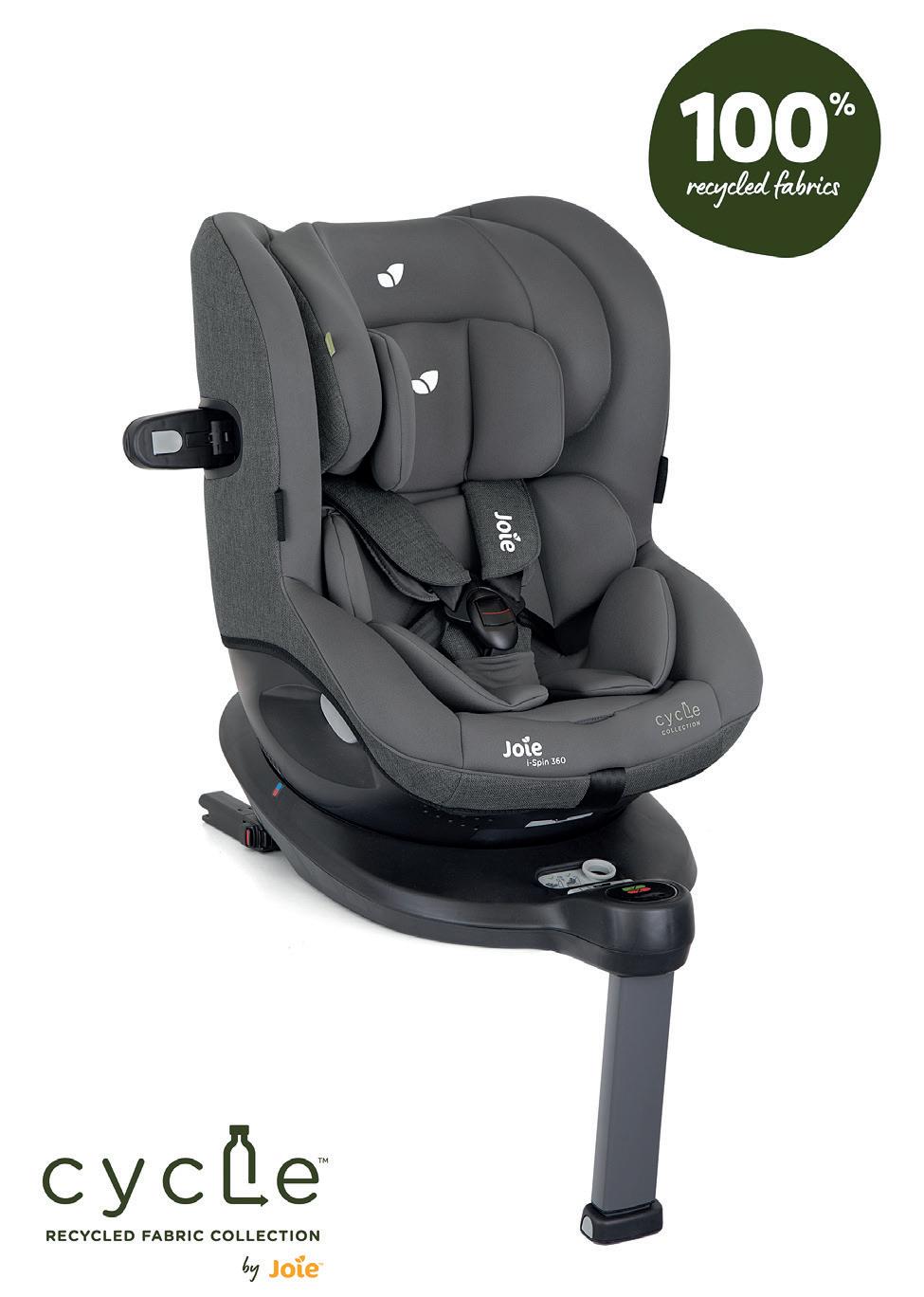
The new 2023 Eco Collection includes the Dream i-size infant carrier, Motion All Size 360 car seat, Balance i-Size car seat and all-new Discover i-Size highback booster – now available in beautiful new colours including Cedar, Space, Almond and Glacier. The new car seat collection not only provides the best in safety, but continues Silver Cross’ sustainability journey to repurpose single use plastic. The easy-clean fabrics now include up to 39 recycled bottles per seat, while the car seats are delivered in FSC-certified sustainable packaging. In addition, Silver Cross remains the only UK brand to offer a car seat recycling service. The brand will collect any Silver Cross car seat which is no longer needed and send it for recycling, ensuring they don’t end up in landfill.
www.silvercrossbaby.com
16 nursery today Eco/Sustainable Focus Car Seats
Their purpose at Maxi-Cosi has always been to care for precious life, but that care doesn’t end when children outgrow their products.
Lessening environmental impact
The textiles, aluminum and plastics that make up Bumbleride products are carefully chosen for durability, safety and function, but also for their environmental impact.
Bumbleride seek out suppliers that are innovating to save energy, conserve water and reduce pollution in landfills. Bumbleride fabrics are made with 100% recycled polyester made from post-consumer water bottles (rPET, polyethylene terephthalate). They’ve proudly been using the same family-run factory in Taiwan since the start, helping them to stay closely involved with the production process. contactus@bebebrands.com
www.bebebrands.com
Ready to roll
Featuring fabrics made from 94 recycled bottles, this eco-friendly, sleek, and streamlined stroller is ready to roll on any adventure. With multi-modes and deluxe comfort features you can help protect the planet without any compromises.
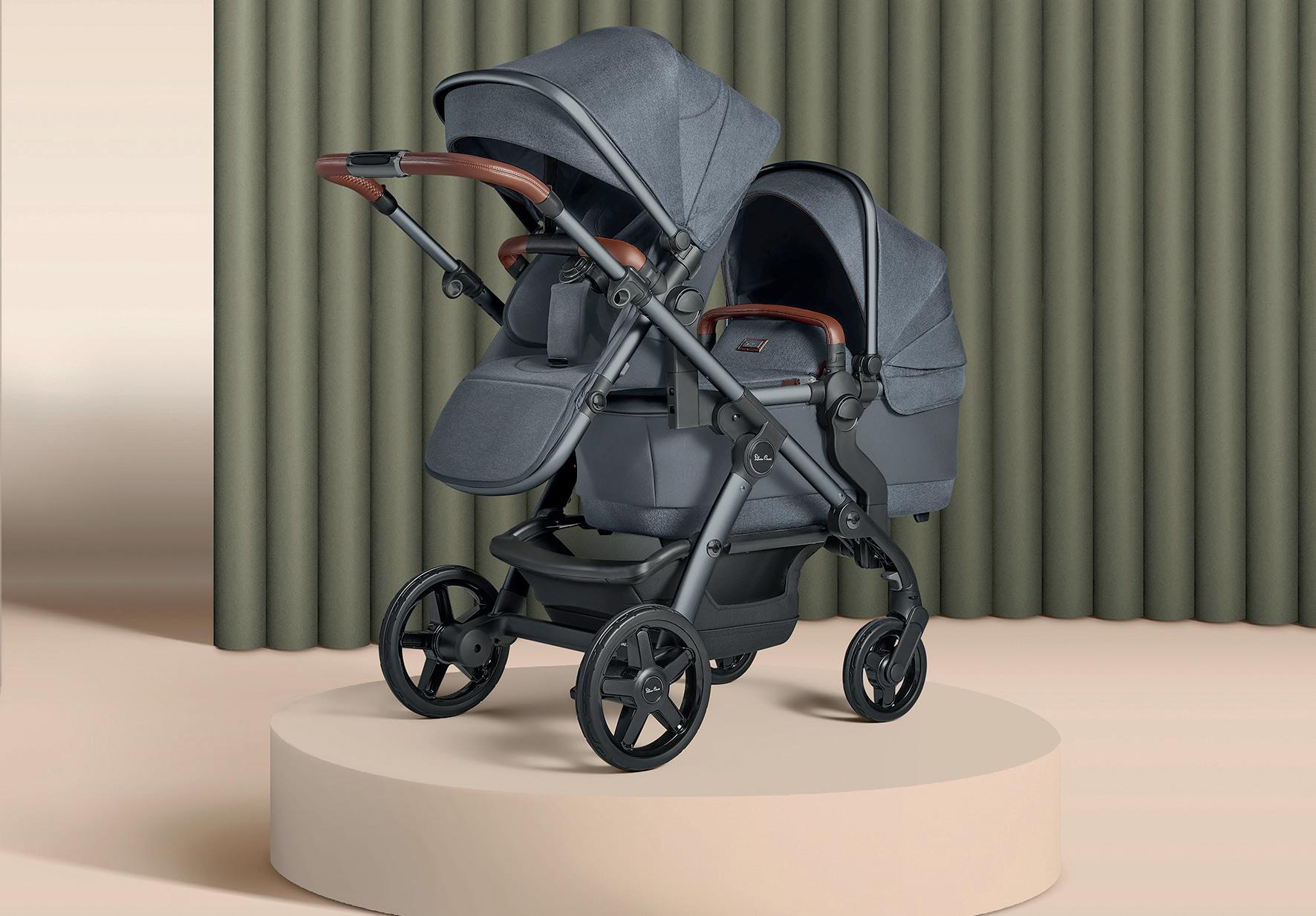
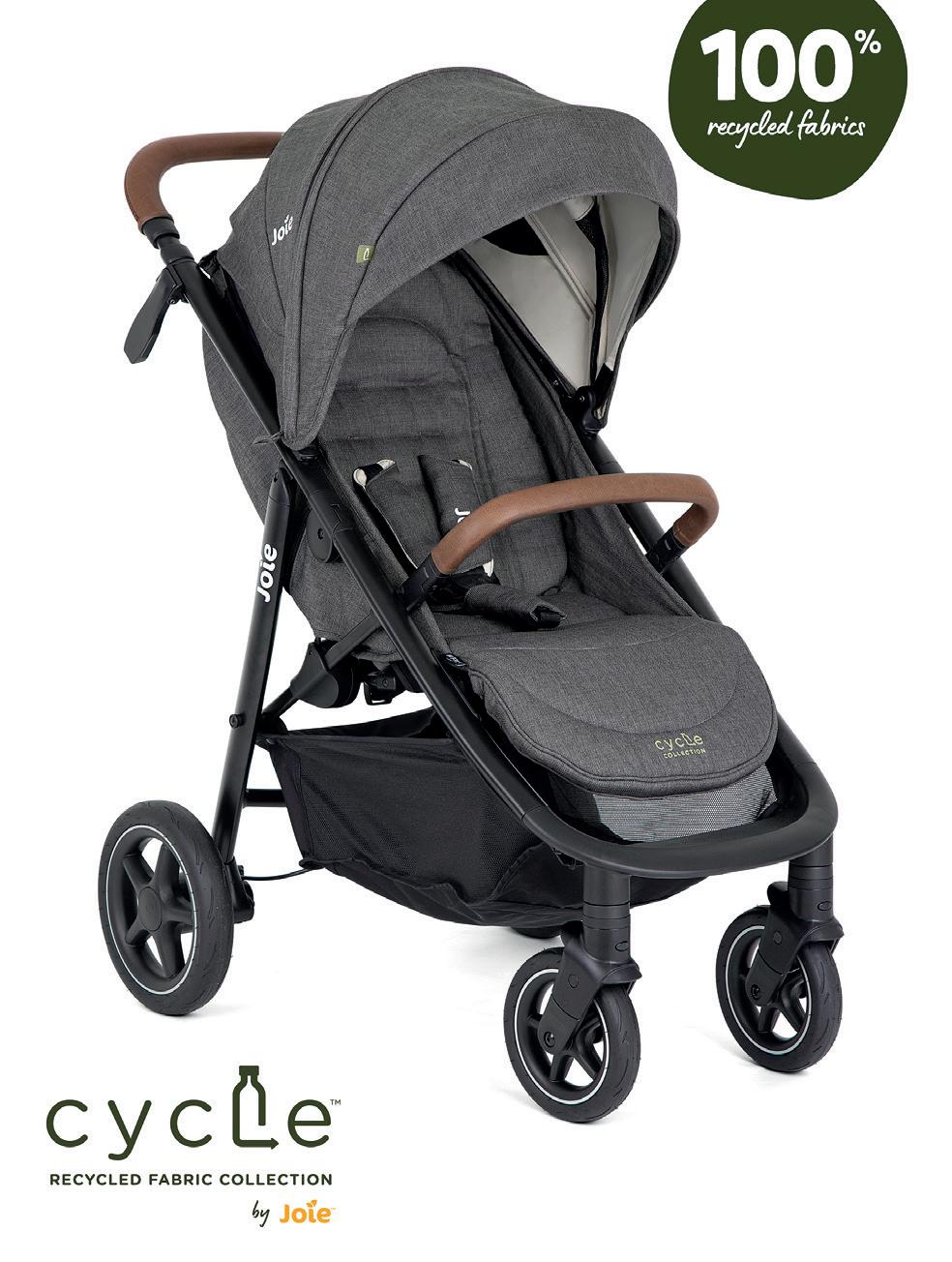
The pushchair seat lies flat so new babies and energetic toddlers alike can snooze as they cruise. Or the seat simply snaps off allowing the addition of the carry cot or infant car seat so little one can snuggle without parents having to struggle. It’s also a doddle to fold with a one-handed tug of the strap that’s easily accessible under the seat. uksales@joiebaby.com
Sustainable fabrics
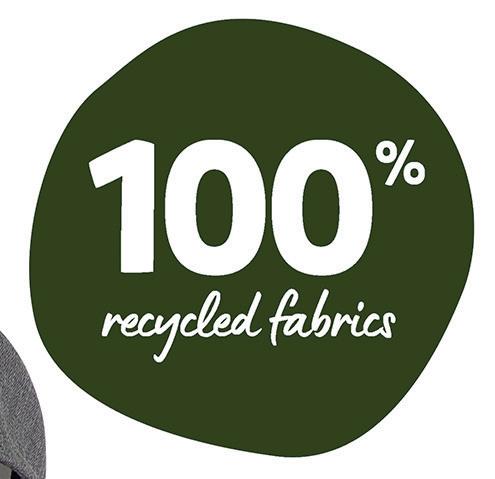
As part of its commitment to a more sustainable future, Silver Cross has launched an all-new Wave travel system, now with sustainable fabrics.
The latest Wave comes in three beautiful new colourways, each featuring fabrics woven with yarn from recycled plastic bottles. Designed for longevity, the all-new Wave continues to offer parents a luxurious, future-proofed single to double travel system. Aligning comfort, practicality and style with Silver Cross’ sustainability agenda, Wave is perfect for strolling with a newborn or siblings. The unique and flexible design offers 7 configurations straight out of the box, but for those expecting twins or with older children in tow, it can be tailored to each family’s needs by adding the additional tandem seat, second carrycot or ride-on board. In addition, Silver Cross has launched its Dream i-Size infant carrier in colours to match the new Wave, again featuring the brand’s signature sustainable fabrics.
www.silvercrossbaby.com

A parent’s lifeline for multiple kids, Bumbleride strollers get you outside doing what you love. With all-wheel suspension and air-filled tyres, you can ensure the smoothest ride. Responsibly made and manufactured.
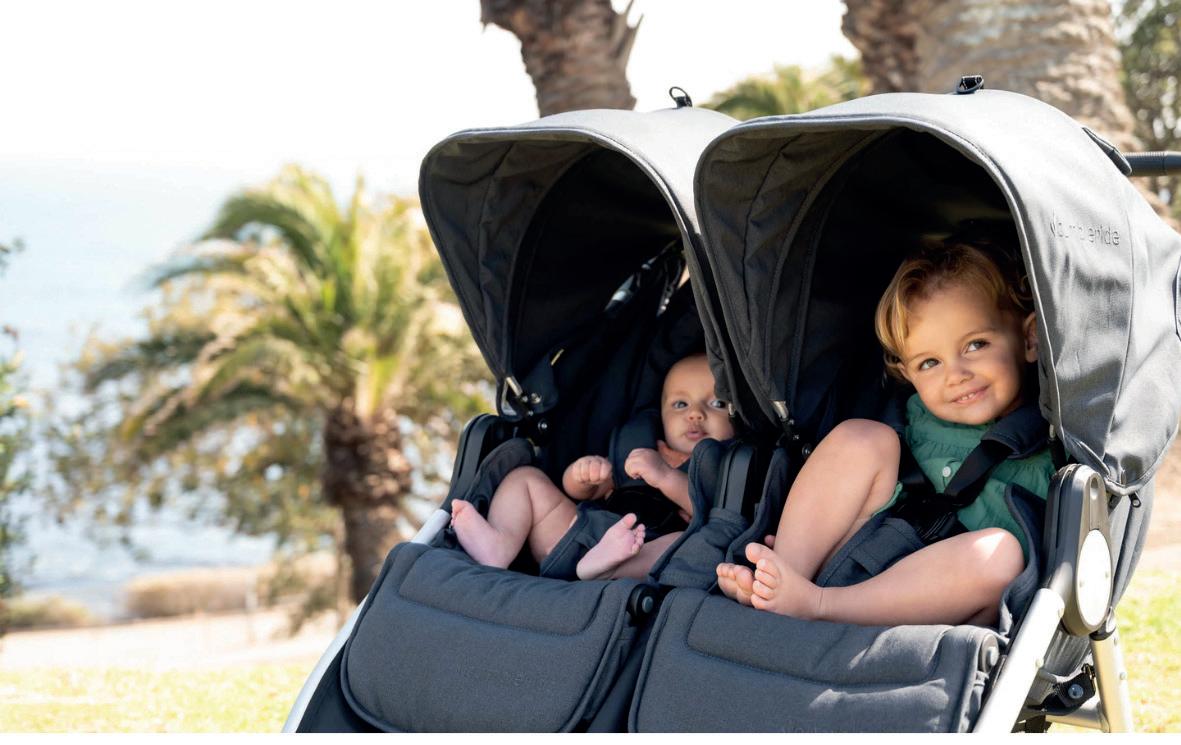
Eco Checklist:
• PFAS free durable water repellent
100% recycled PET (90 plastic water bottles per stroller)
Black colorway uses innovative solution dye process that conserves approximately 25-40 gallons of water per stroller.
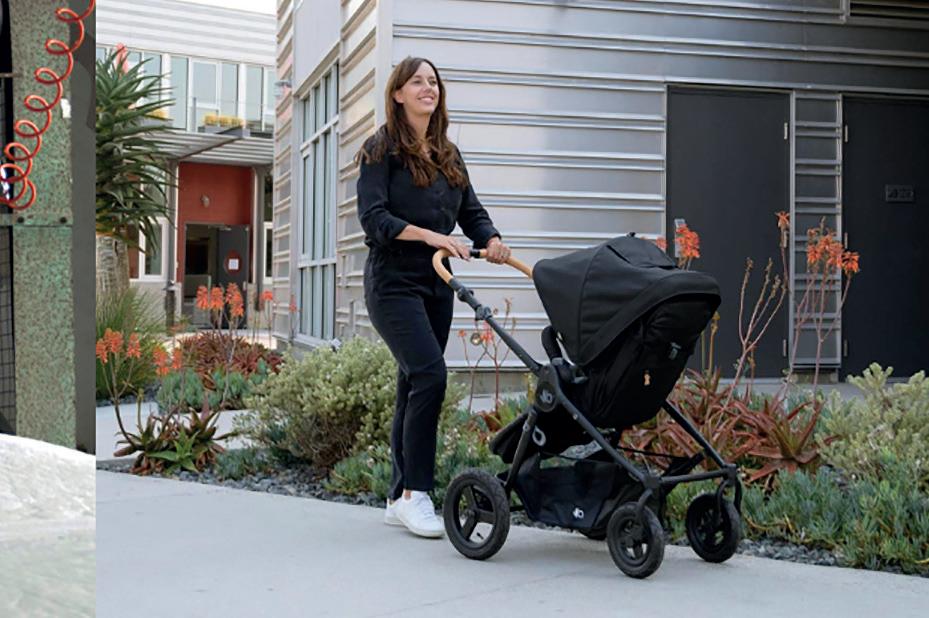
• 25% of plastic frame components sourced from recycled fishing nets.
Email
Eco/Sustainable nursery today 17
Focus Wheeled
contactus@bebebrands.com for further information.
The Britax Römer mission is to provide safe, comfortable, sustainable, and easy to use child mobility solutions. Since the development of Britax Römer’s first child car seat in 1966, they have protected millions of children around the world on their journeys.
Dedicated to Protecting Dreams by helping to make family travel safer, for more than 50 years they have been an industry leader in child safety technology and expertise ensuring that parents and their children are safe on the road.
Just like they care for children and their safety around the globe, Britax Römer very much care for the world they grow up in to protect their future.
In 2021 the KIDFIX i-SIZE was the lead product family to kick off product-led sustainability for Britax Römer. They ensured all packaging was replaced with sustainable alternatives, each KIDFIX i-SIZE was packed in a plant-based bag and recycled carton made from responsible sources. Even the tags they used for product information are biodegradable on soil, resulting in no microplastics entering the ecosystem.
This seat has been at the forefront of news recently when it was announced the KIDFIX i-SIZE was a winner of the
Besides being carbon neutral, the KIDFIX i-SIZE is also Made in Germany helping with shorter transport routes and minimizing the impact on the environment.
It is available in three stylish GREEN SENSE fashions, the fabric covers of this collection are made from 100% recycled PET plastic bottles.
Protectingwhat matters most
Britax Römer – Protecting the future with their first Carbon Neutral Seat and their sustainable Green Sense collection
latest ADAC crash-tests (October 2022) with the score of 1.8 in the 100 - 150 cm category! ADAC describes the KIDFIX i-SIZE as “the best car seat for big kids”
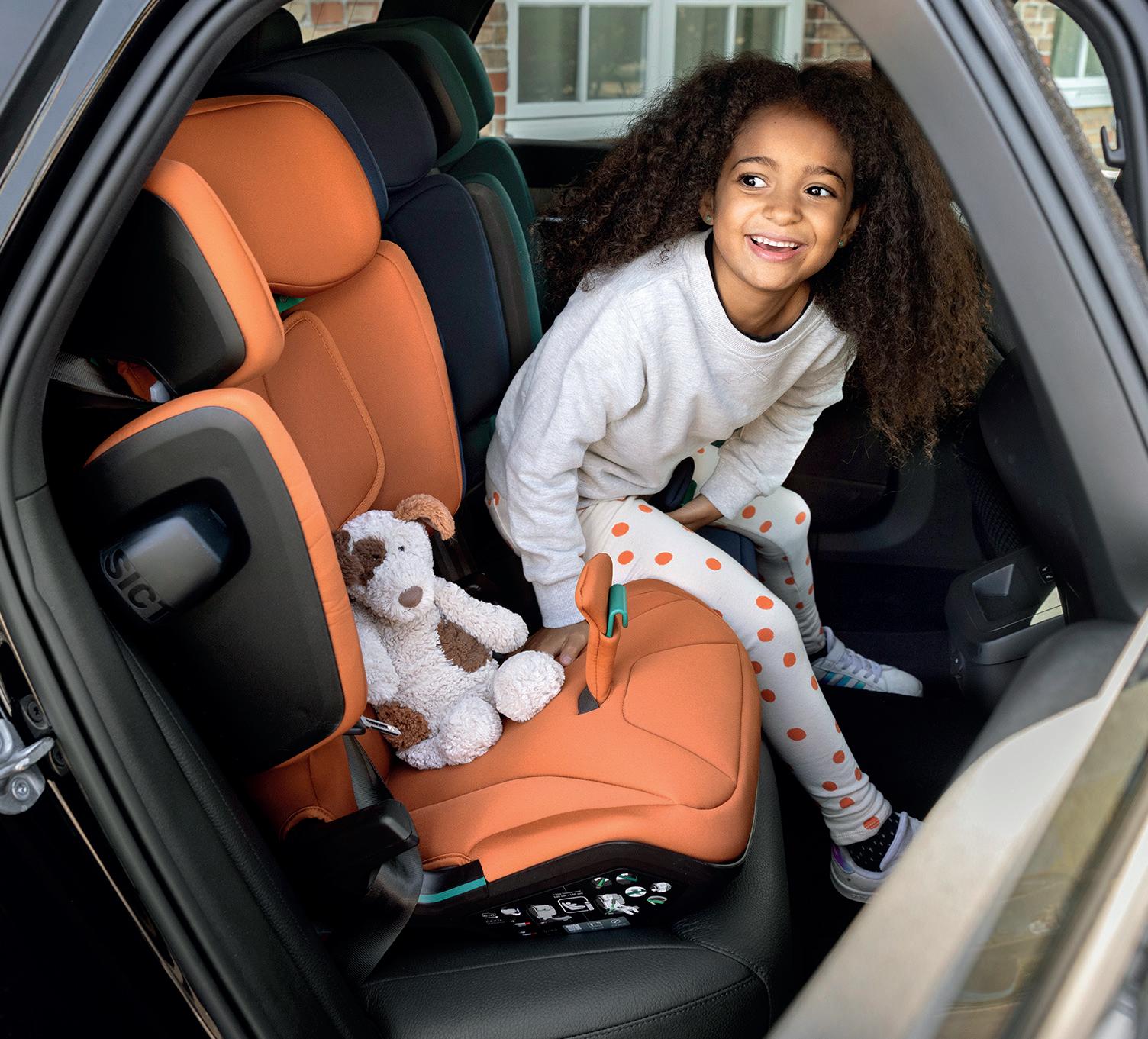
But there is more, the excitement continues as Britax Römer announced in November 2022 the KIDFIX i-SIZE, is their first 100% carbon neutral product, making it the perfect choice keeping safety you can trust as well as sustainability in mind.
To assess the product carbon footprint of KIDFIX i-SIZE all greenhouse gas emissions along the life cycle (cradle to (customer) gate) have been taken into account to measure the carbon footprint. This means from the production of the raw materials to manufacturing, packing and shipping. The cleverly engineered KIDFIX i-SIZE is designed and made in their factory in Germany –helping with shorter transport routes and minimizing the impact on the environment.
They have calculated the product carbon footprint (cradle to (customer) gate) for the KIDFIX i-SIZE together with their partner TÜV Rheinland: ca. 19 kg CO2e. They continuously work to further reduce it keeping in mind that certain materials are needed to focus on the main purpose: transporting kids safely.
In co-operation with MyClimate, Britax
The GREEN SENSE collection by Britax Römer comes in three colours: Atlantic Green – a deep, sophisticated teal green Fossil Grey – an elegant dark charcoal tone. NEW Galaxy Black – a chic and stylish black.
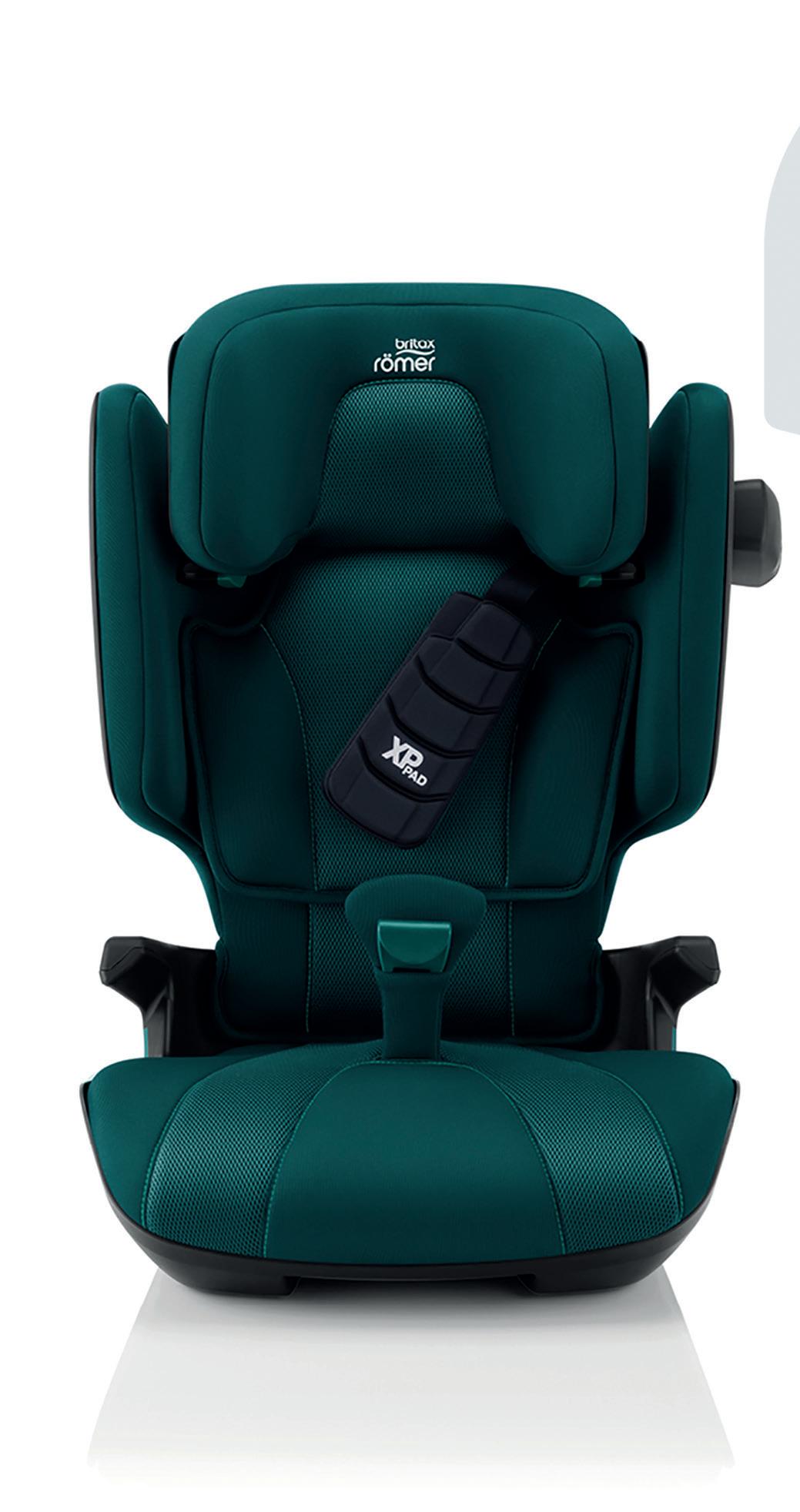
Römer is supporting clean drinking water for schools and households in Uganda, a project that has been certified according to the gold standard.
The primary objective of the program is to disseminate water purification systems to low-income households and institutions such as schools, starting in Uganda. Carbon finance is used to give households access to the clean water technologies thereby improving the livelihoods and health conditions of thousands of people.
Not only is the KIDFIX i-SIZE available in a rainbow of colourful choices, three of
the colours are part of their sustainable GREEN SENSE collection. Their GREEN SENSE collection launched in 2021, with a fabric made of 100% recycled polyester, made with up to 138 plastic PET bottles per product, that have been turned into soft yarn which are then spun to create premium fabric covers.
The diamond-patterned mesh fabric on each Green Sense seat is also 100% recycled and intricately bordered with straight pattern stitches, has been purposefully integrated into the design of the covers to aid air circulation for keeping little ones extra comfortable during their travels.
This is only the beginning for Britax Römer, they are continuously working on further sustainable projects. Speak to the Britax Römer team today customerservice.uk@britax.com www.britax-romer.co.uk/sustainability/greensense
18 nursery today Eco/Sustainable Focus Britax Römer
The KIDFIX i-SIZE is Britax Römer’s first 100% carbon neutral product making it the perfect choice keeping safety you can trust as well as sustainability in mind.
Protecting Their Future - Britax Römer announces its first Carbon Neutral Seat.
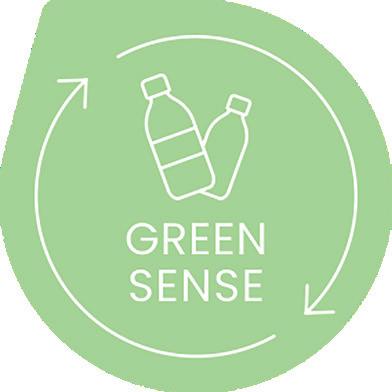
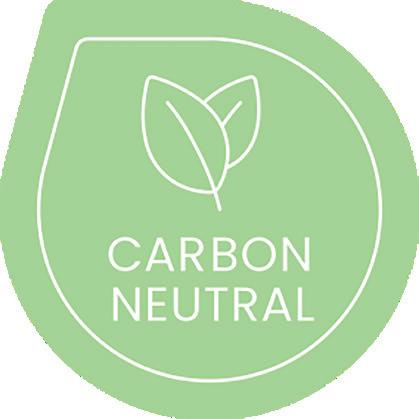
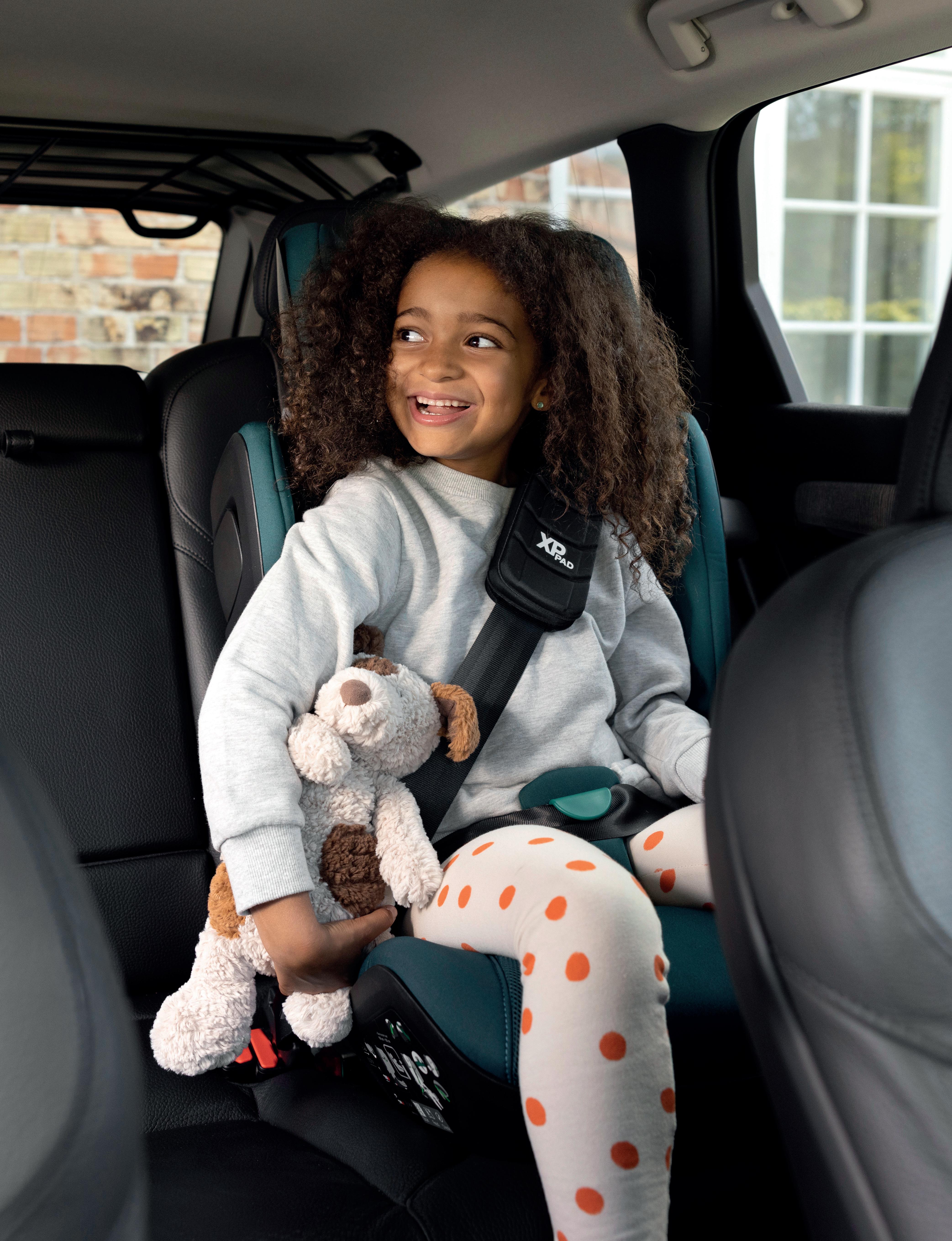
Just like they care for children and their safety around the globe, Britax Römer very much care for the world they grow up in to protect their future. The KIDFIX i-SIZE is Britax Römer’s first 100% carbon neutral product making it the perfect choice keeping safety you can trust as well as sustainability in mind. Available in a rainbow of colours that include three stylish GREEN SENSE fashions, the fabric covers of this sustainable collection are made from 100% recycled PET plastic bottles.
Speak to the Britax Römer team today customerservice.uk@britax.com
IG: @britaxromer_UK
Joie gets serious about sustainability
Investing in children’s futures has long been at the heart of what Joie does – and what better way to invest in their future, than by protecting the planet that is their home.
That was the thought in mind when Joie started to plan its next big thing – a range of products that feature fabrics made from recycled plastic bottles.
Cycle by Joie is the latest step by the company in its efforts towards greener practices, although responsible production methods have long been central to the way its products are designed and created.
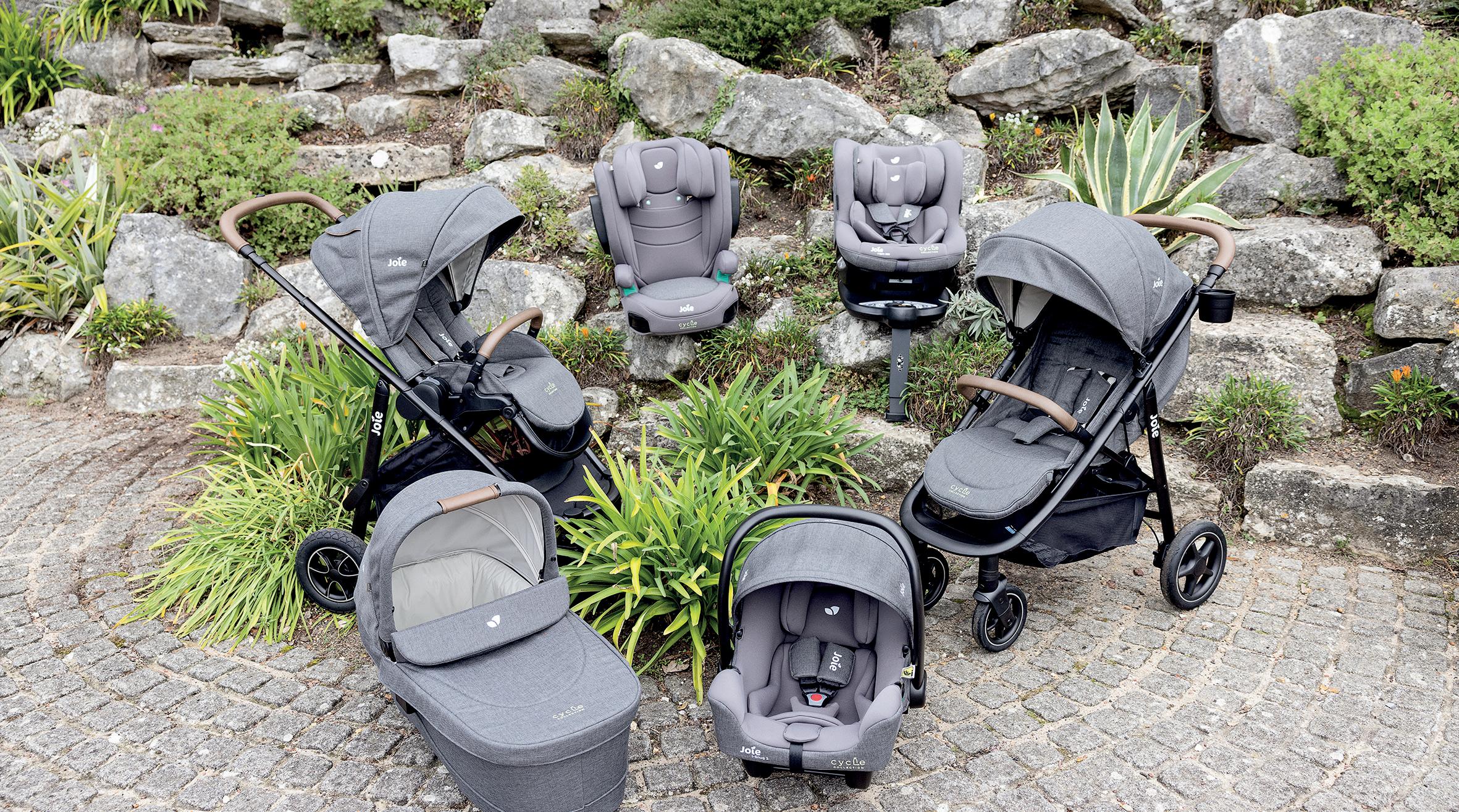
Head of Product Management at Joie, Damon Marriott, said; “We have been rigorous in our research, and we know that 83% of consumers consider environmentally friendly design to be ‘extremely important’. It was vital to us that we could fulfil this desire without compromising on the safety and
quality that our consumers deserve and expect from our brand.”
The Cycle collection uses the same metal components as other Joie products, giving consumers the peace of mind that they are just as safe and long lasting as other products in the range. However, the fabric components of these products are made from recycled water bottles, so consumers can feel satisfied that their purchase is a sustainable one.
With 8.8 million tonnes of plastic waste flowing into the ocean every year, Joie was acutely aware that it was high time it started doing its bit to futureproof the world that we all enjoy for the generations to come.
The process used is simple –discarded plastic waste is shredded into flakes which is then melted and spun to create a super soft thread – and even though this might start out life as hard plastic, there is nothing stiff or uncomfortable about it. The thread is then knitted into high-quality, durable fabric that’s comfortable and safe for even the most delicate skin.
The collection uses up to 94 recycled plastic bottles in a single product – and turning the things we throw away into thread is just the first step for Joie.
Damon Marriott went on to say; “We want to continue working towards more sustainable practises throughout
our business – our factory reuses 80% of our wastewater to lessen our consumption and our solar power has reduced greenhouse gas emissions by 1536.5 tonnes so far – that’s the carbon reduction of 153,650 trees. Despite seeing an increase in our production, our energy consumption has actually decreased over the last 3 years.
“This is absolutely the direction we want to be moving in and we are committed to ensuring that our production and manufacturing methods are as environmentally friendly as possibly as we go forward, as well as investing in more sustainable innovations from a product perspective.“
20 nursery today Eco/Sustainable
focus Joie
Joie have added some of its most popular models into the Cycle collection, with versatrax, mytrax pro, i-Snug 2, i-Spin 360, i-Trillo and ramble XL, allowing families to customise the Cycle collection to suit their needs and requirements. www.joiebaby.com
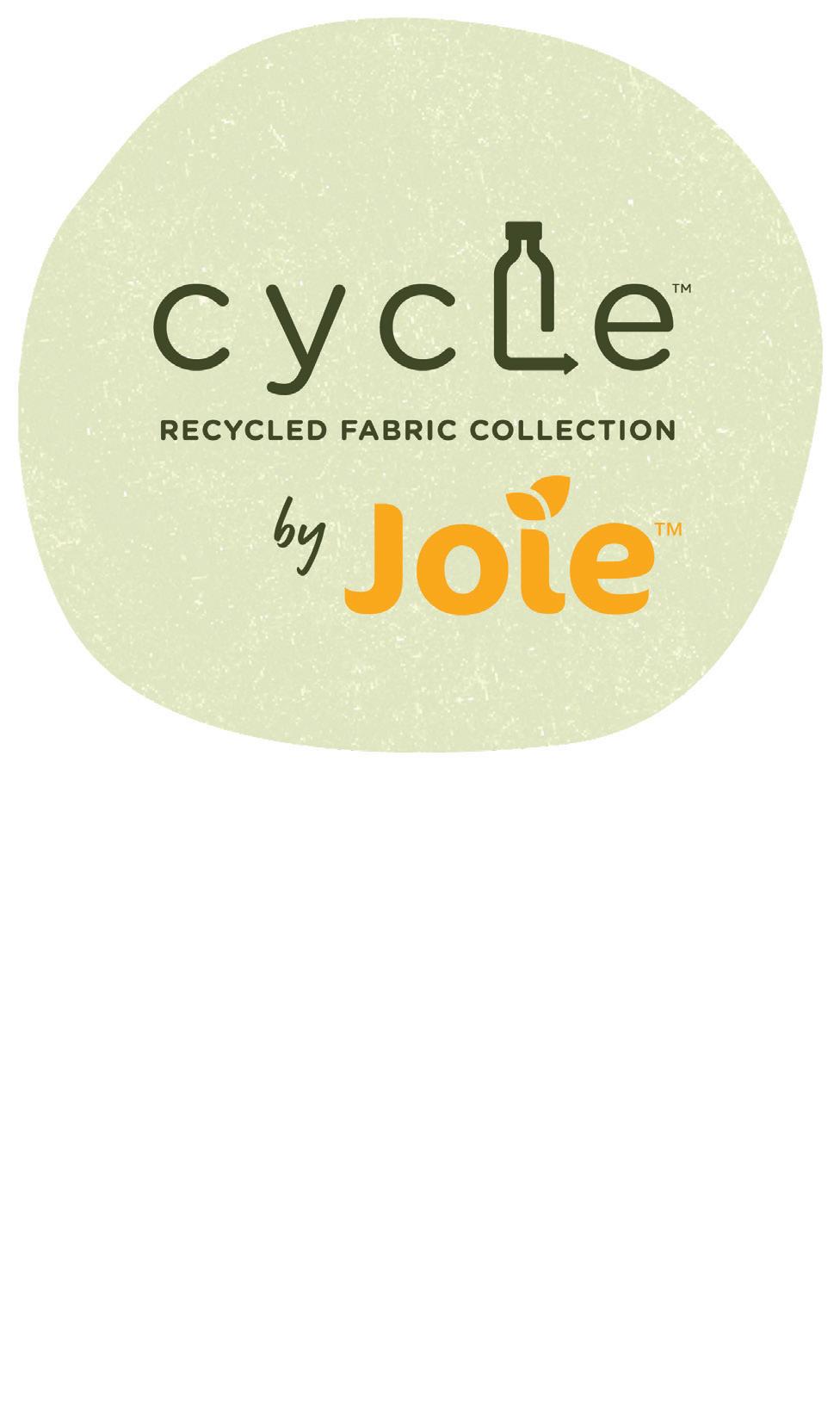
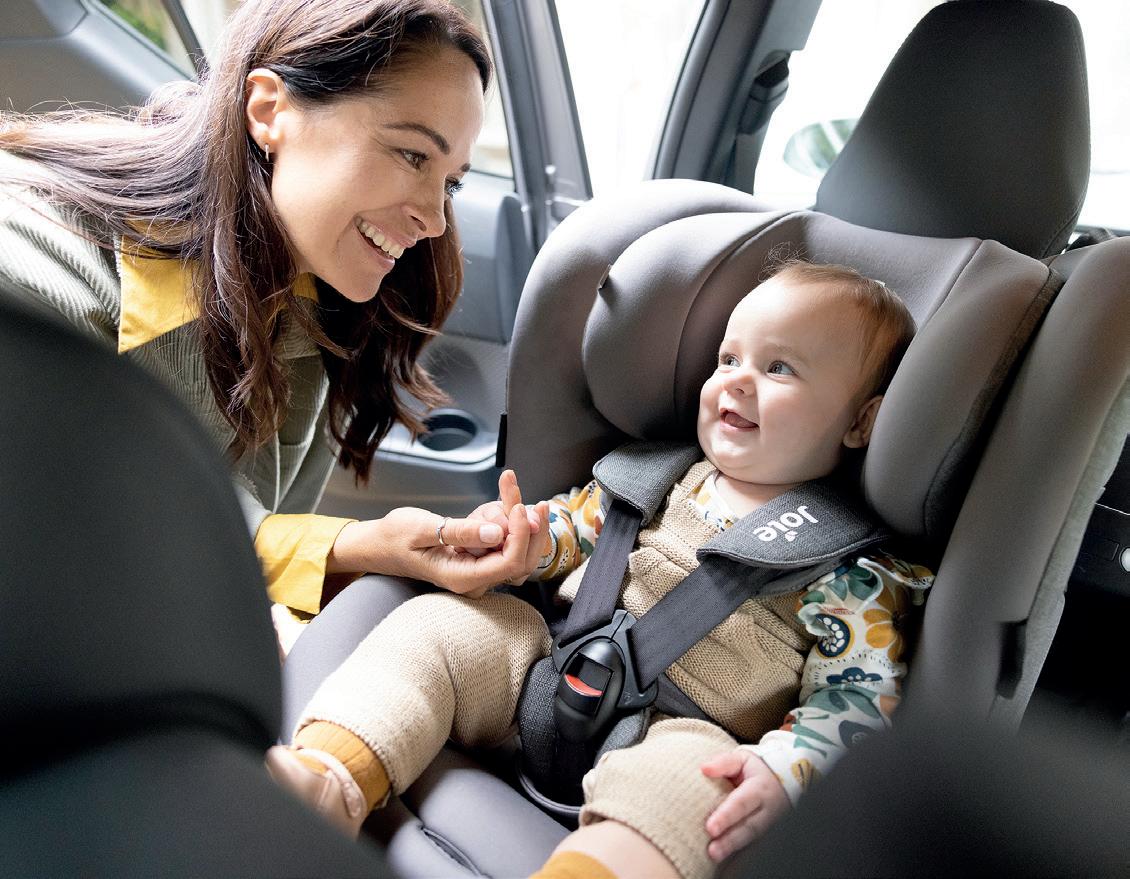
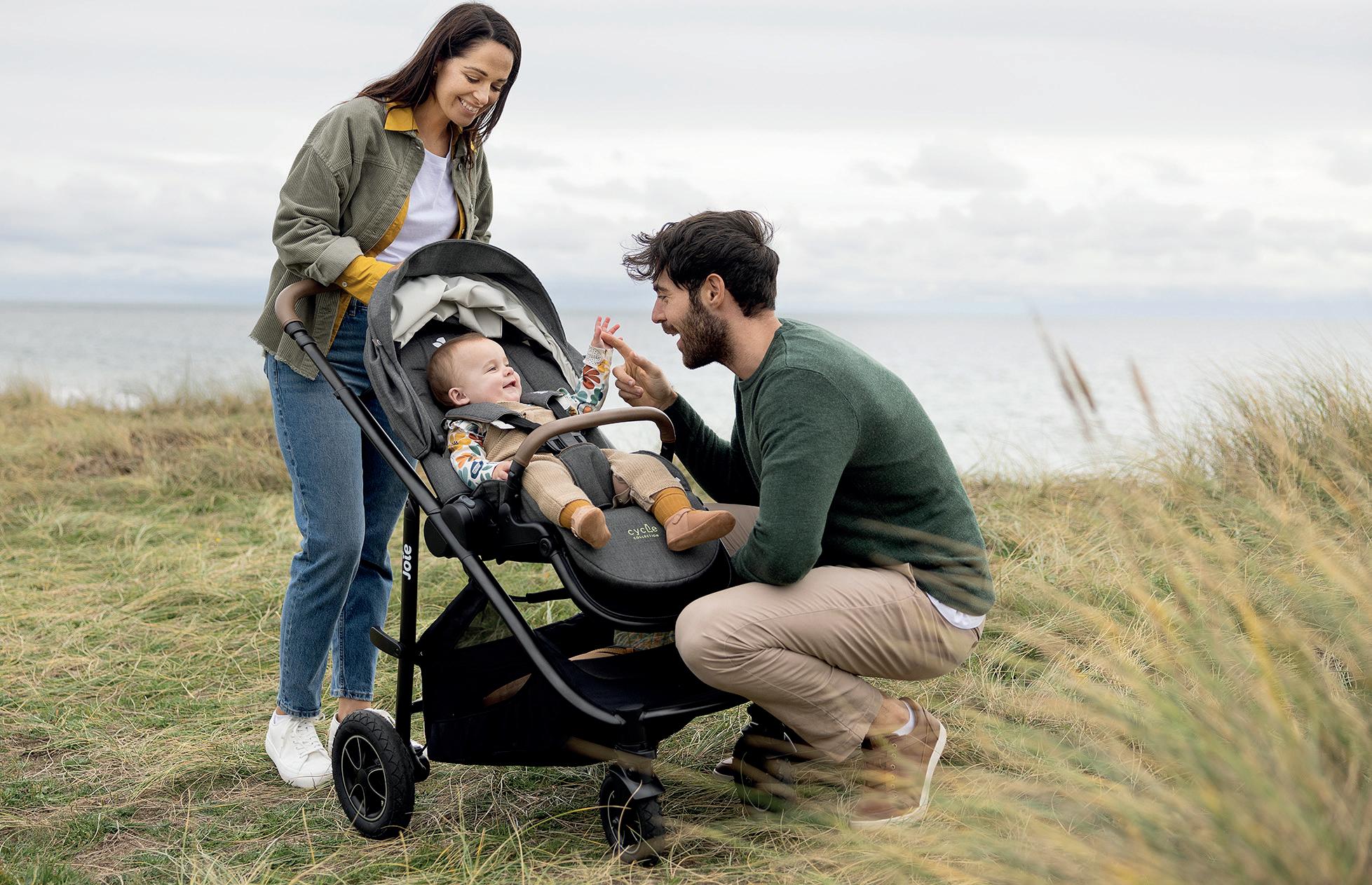
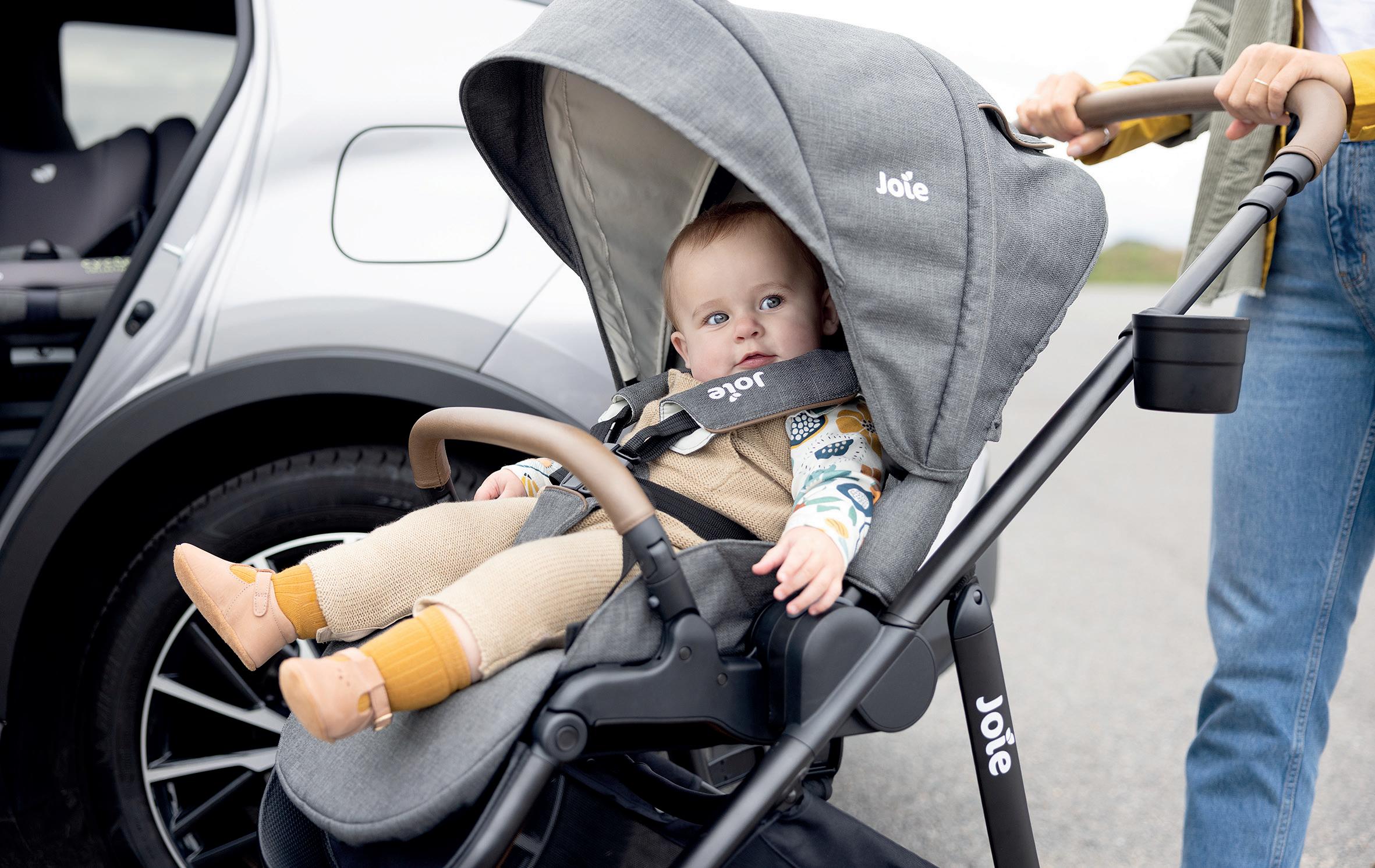
Eco/Sustainable nursery today 21
How to face chemicals in textiles
Families come in many forms. And although the definition of a family may vary, everyone agrees that love and protection are two essential characteristics. While parents are conscious of the hazards associated with ingesting chemicals, the chemicals their families contact through clothes and home goods are less present in their minds. But chemicals are present in everything from towels, bed linens, pyjamas, and intimate apparel. Between 4,000 and 8,000 individual chemicals enter textile factories in countless formulations. They exit on the products or as waste that can negatively impact the health of loved ones.
The concern goes beyond our own homes. Chemicals used in textile production pollutes rivers, oceans, wildlife and horticulture within miles of processing facilities. For example, in 2018 textile dying was the second largest polluter of water globally and the fashion industry produced 20 percent of global wastewater, according to the UN.
That is where OEKO-TEX certifications
and labels come in. The international association was founded 30 years ago on a single mission: Enable consumers and companies to make responsible decisions to protect our people and our planet. That is why the work of the international association is grounded in proven science. Today, 17 independent institutes around the globe test for harmful substances and certify sustainable and fair manufacturing practices to ensure textile and leather products are safer for human health and the environment.
OEKO-TEX STANDARD 100 is one of the world’s best-known labels for textiles tested for harmful substances. The label certifies that every component of the product from the fabric to the buttons has been tested against a list of up to 1,000
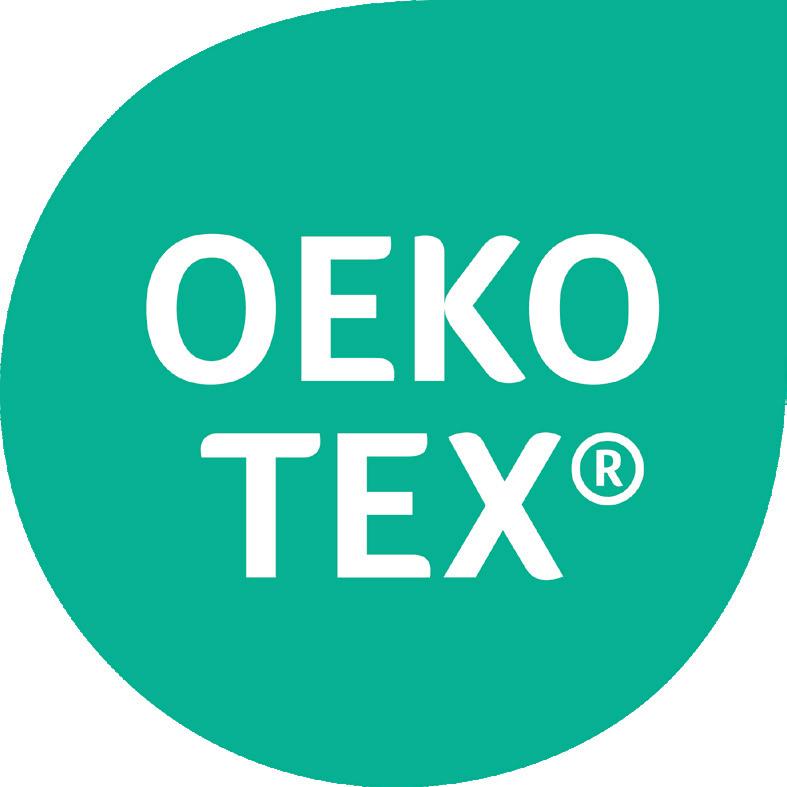
chemicals. The OEKO-TEX MADE IN GREEN label means a product is tested for harmful substances and comes from a facility that uses responsible production processes. The label covers the use of chemicals to responsible handling of wastewater. Certified suppliers must also improve working conditions and prioritize health and safety protection for workers.
To stay ahead of changes in materials, technologies and scientific data, OEKOTEX regularly updates its strict standards and methods.
Being close to the market, and ideally, one step ahead is essential to supporting companies who are adapting to constantly changing conditions and meeting consumer expectations. Therefore, the development of OEKO-TEX
OEKO-TEX supports the industry to select chemicals that are safer for humans and the environment while at the same time upscale their products on quality parameters. The extensive testing process offers transparency into the impact of each product from field to final usage.
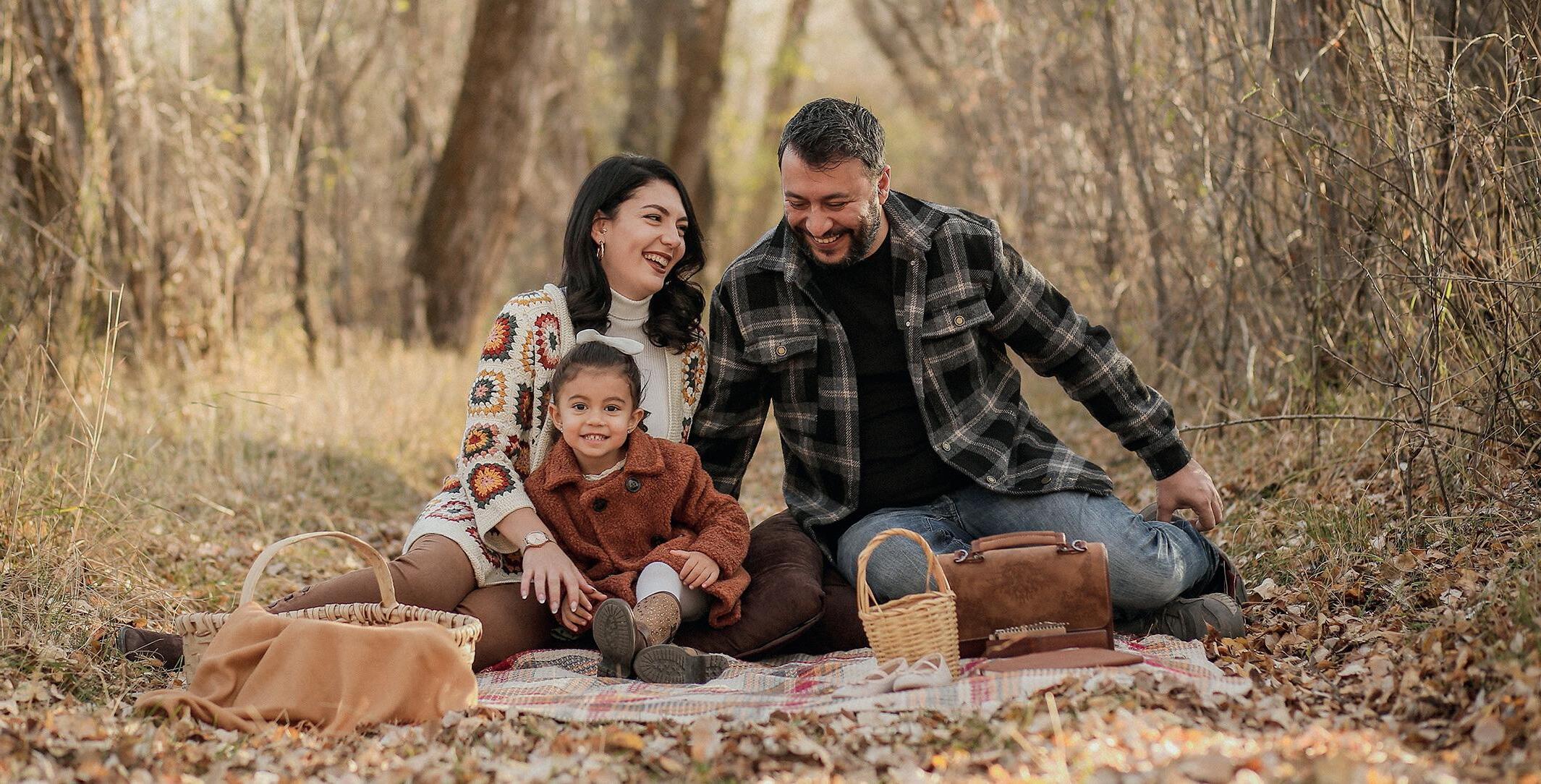
22 nursery today Eco/Sustainable In-focus OEKO-TEX
OEKO-TEX standards enable everyone to make responsible decisions and protect natural resources. Here they tell us more.
“ ”
The concern goes beyond our own homes. Chemicals used in textile production pollutes rivers, oceans, wildlife and horticulture within miles of processing facilities. For example, in 2018 textile dying was the second largest polluter of water globally and the fashion industry produced 20 percent of global wastewater, according to the UN.
is not only a reflection of scientific knowledge but also of social and political trends. The focus is always on standardizing sustainable action and measures and making it easier for the industry to quickly and comprehensively implement sustainability goals.
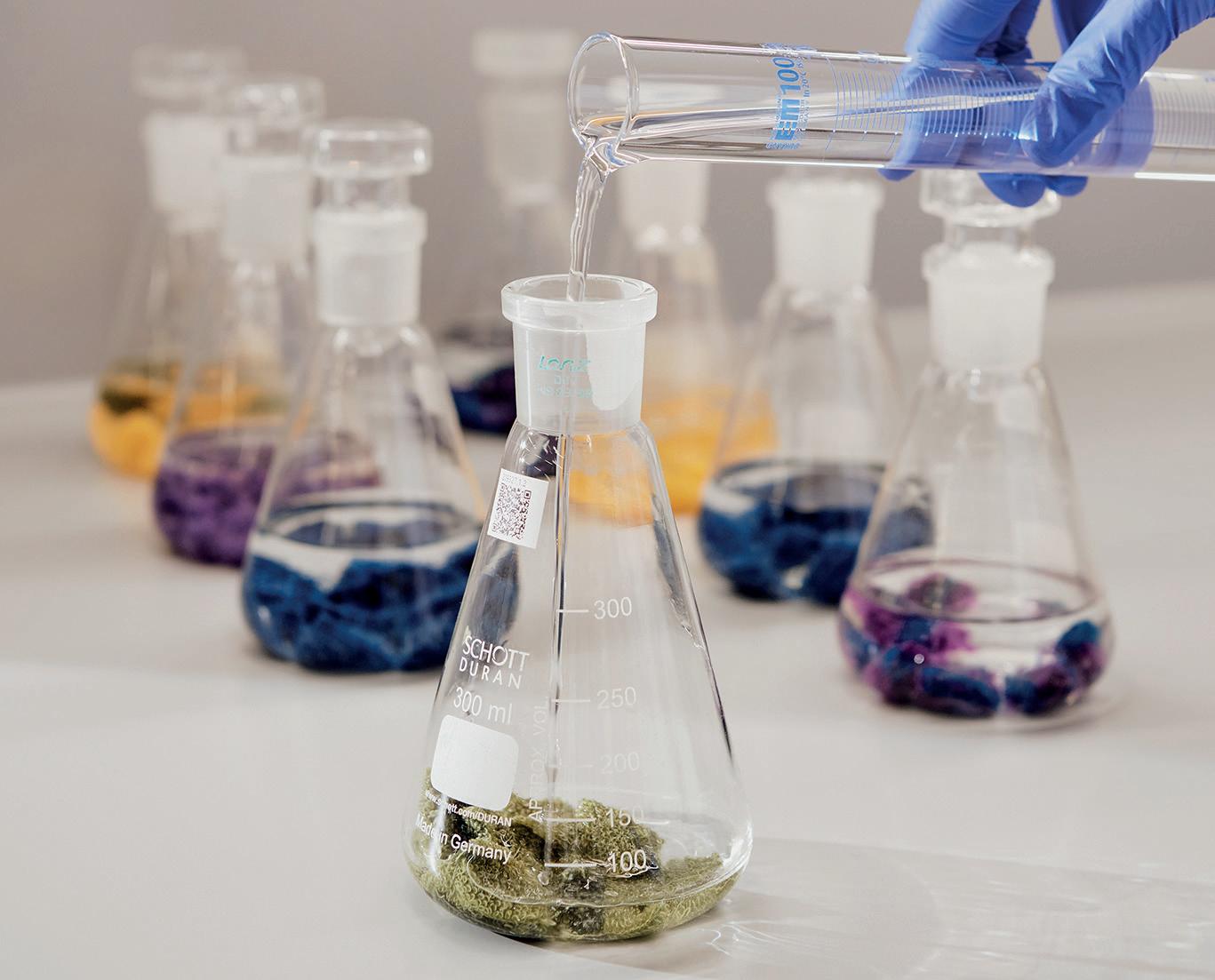
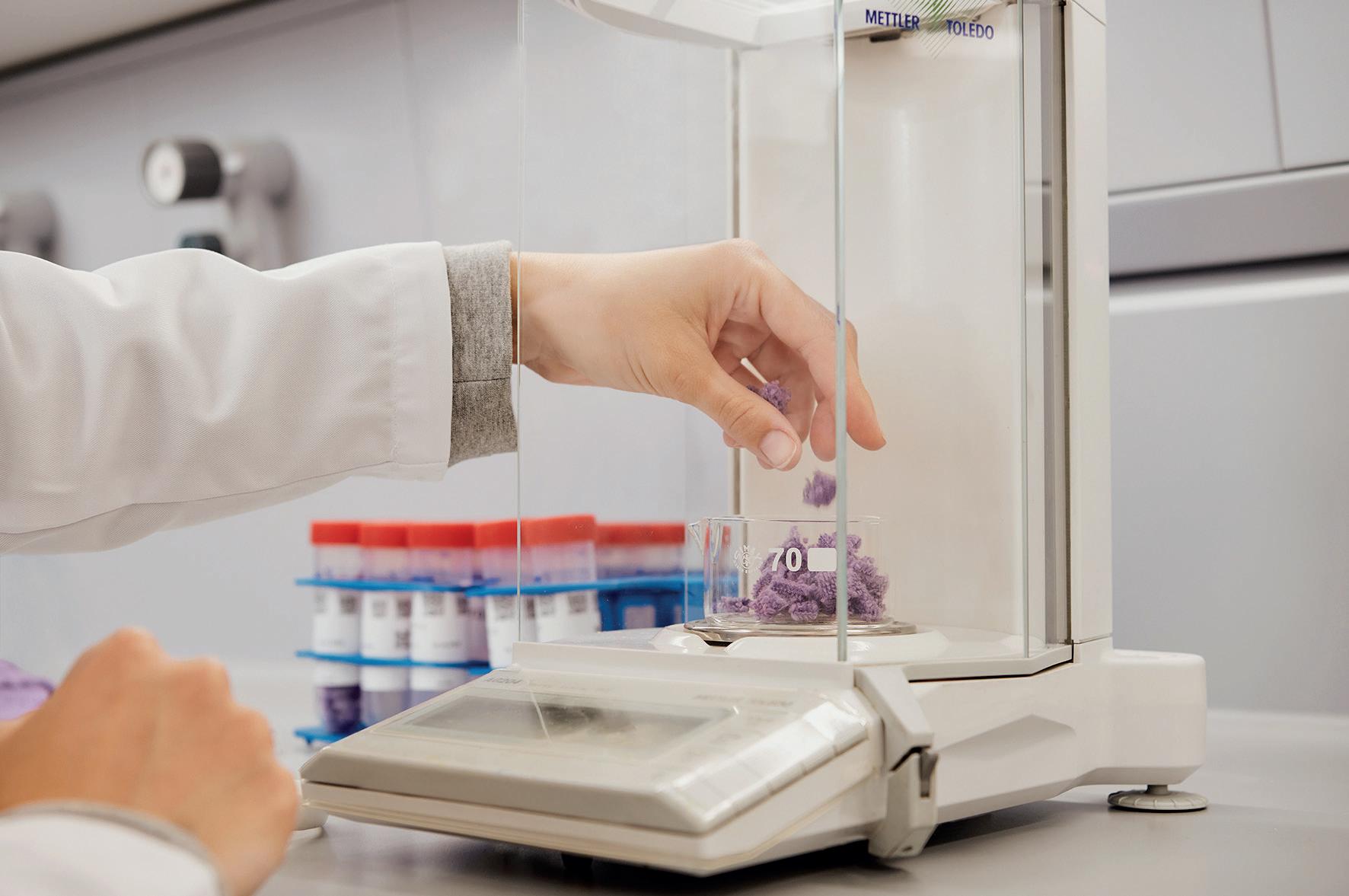
While more and more environmental and due diligence laws are passed, brands, retailers and traders are facing the multiple interests of worldwide stakeholders like employees, consumers, investors, media, and politics - with very different points of view. Companies must protect and communicate with all of them. To achieve the biggest improvements, OEKO-TEX sees itself as a partner of the industry.
Textile and leather companies and suppliers working with OEKO-TEX appreciate the transparent approach of the organization and the solutionoriented mentality. OEKO-TEX supports the industry to select chemicals that are safer for humans and the environment while at the same time upscale their products on quality parameters. The extensive testing process offers
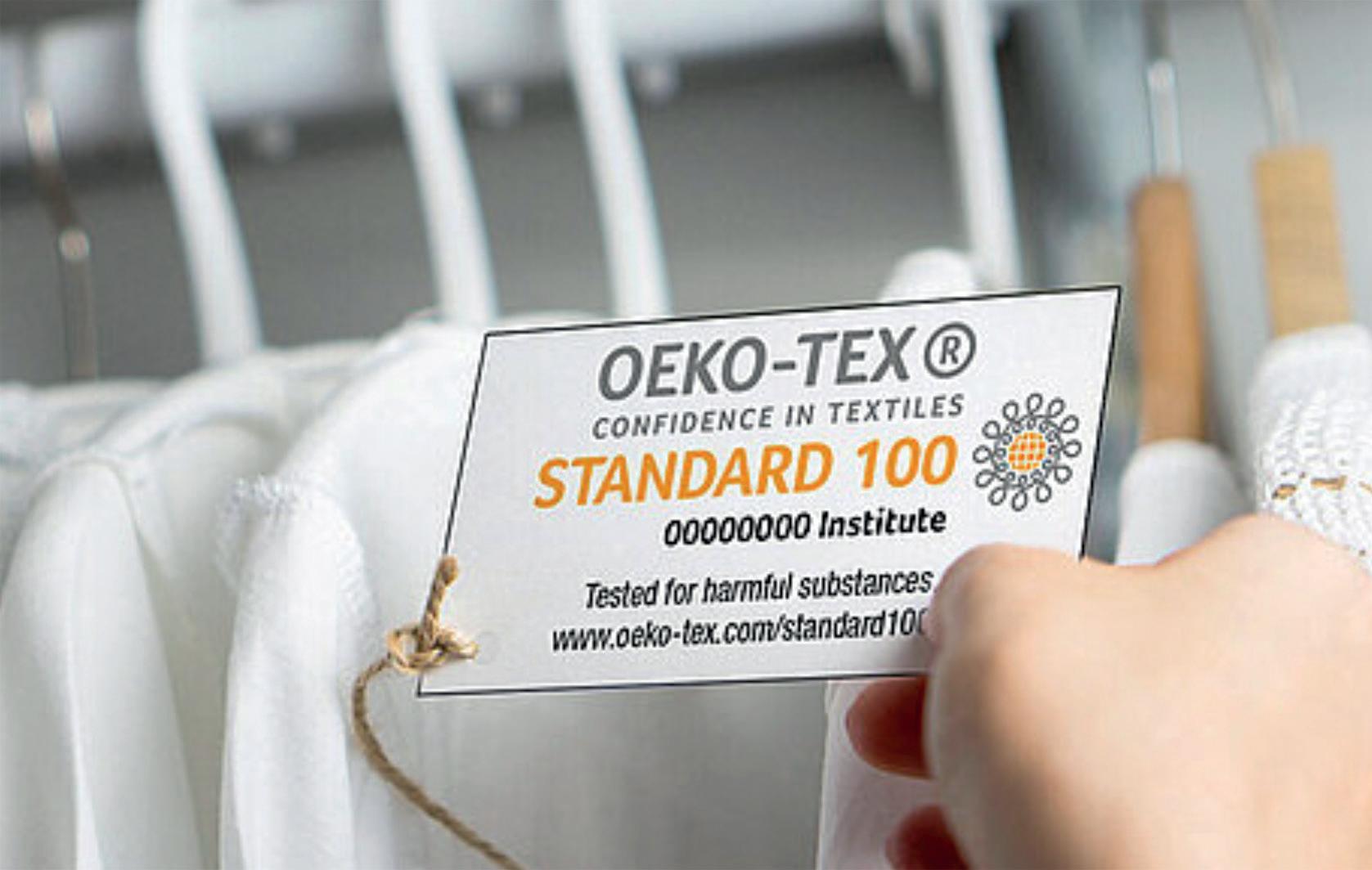
transparency into the impact of each product from field to final usage. Transparency is essential for enabling companies and consumers to make responsible decisions. OEKO-TEX follows an active, solution-oriented and positive approach that is also reflected in the end consumer communication. Each product with an OEKO-TEX MADE IN GREEN label for example can be traced using a unique product ID or QR code, providing insight into how and where it was made. Limiting or banning specific chemicals in textile products helps families, workers, and our collective future. And every purchase and choice we make is an opportunity to prioritize safety. OEKO-TEX standards enable everyone to make responsible decisions and protect natural resources.
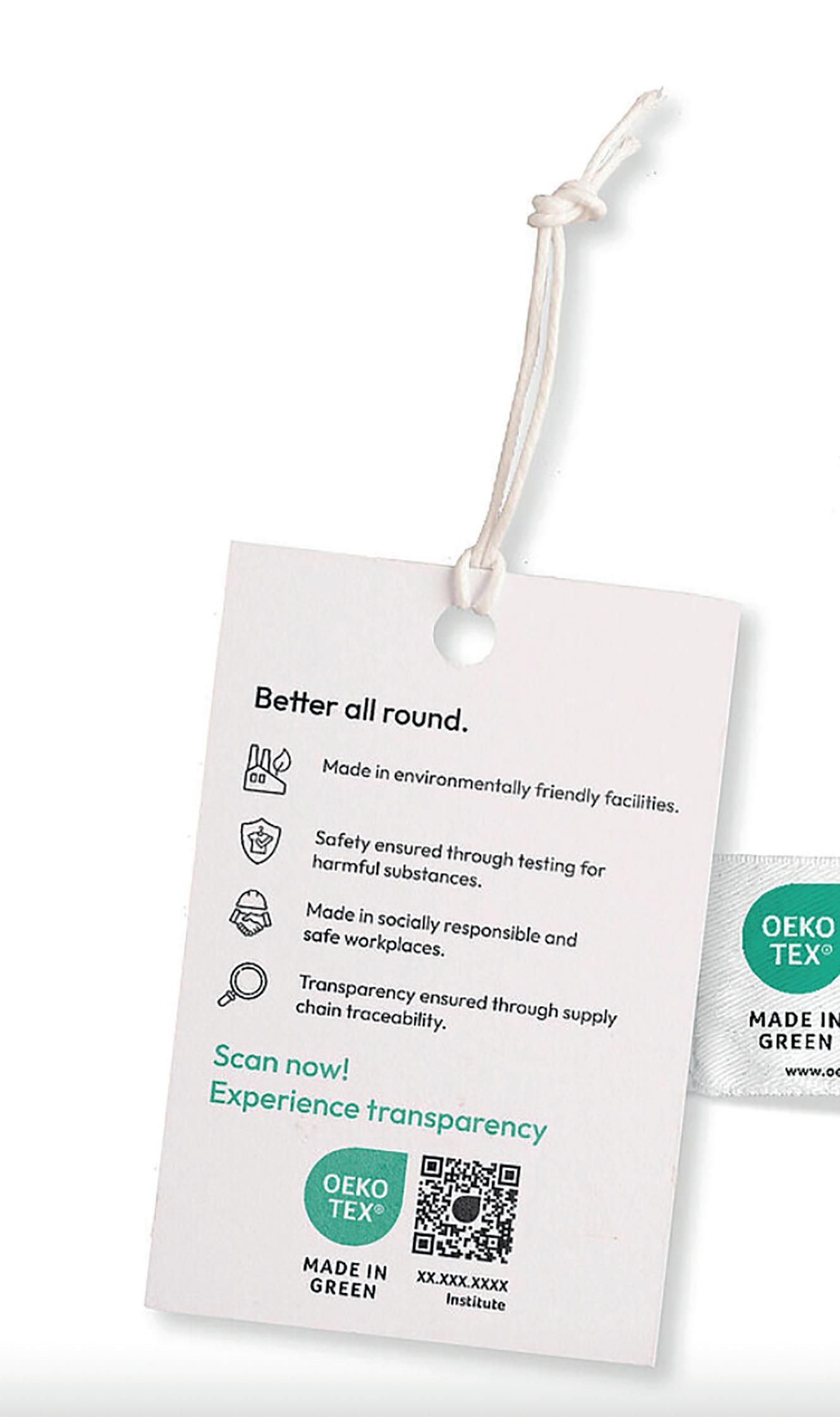
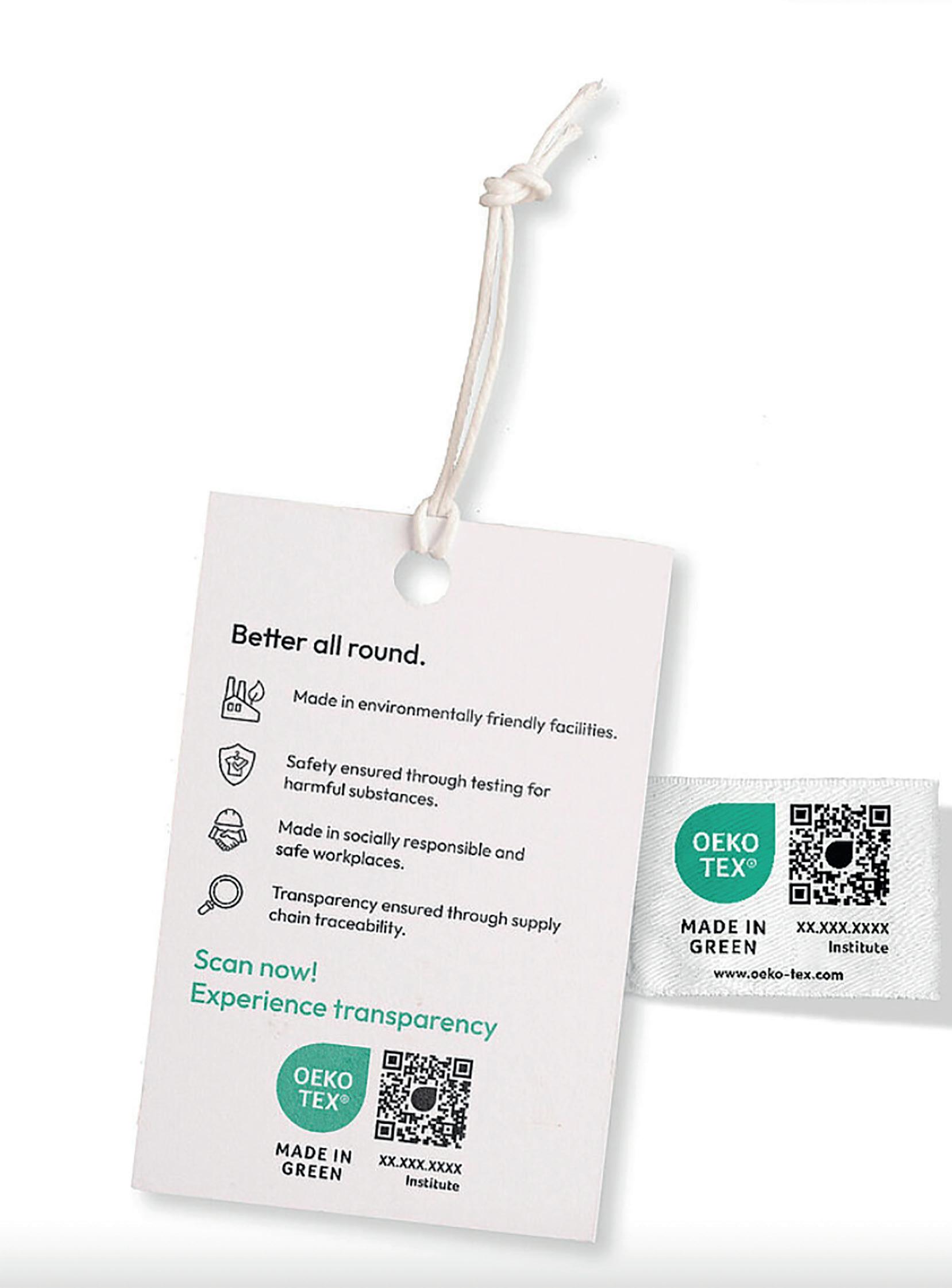
Contact details:
OEKO-TEX Association, Genferstrasse 23, 8002 Zurich, Switzerland
info@oeko-tex.com
www.oeko-tex.com
Eco/Sustainable nursery today 23
“ ”
Baobaby soft sole baby shoes
Eco-friendly, premium, handcrafted and comfortable footwear
Babies first steps are one of the most exciting milestones. Parents can now make the right decision and take care of their baby and nature at the same time.
Baobaby’s shoes highlights
Baobaby soft sole shoes are designed and handcrafted in Croatia, EU and made of premium, chromium-free, vegetable-tanned leather. Baobaby leather is certified as natural by IVN. That means that the process of production, chemicals used and wastewater handling is evaluated to prove that leather is 100% natural and produced in environmentally and socially friendly way.
Baobaby believes in local, sustainable production and reducing its carbon footprint –that is why Baobaby shoes are made locally in Croatia.
Principles of barefoot walking
Orthopedists agree that barefoot walking ensures better development of feet muscles and bones, as well as proprioception and stability.
That’s why design of Baobaby shoes incorporates the following principles:
■ thin, flat, soft and flexible, anti-slip sole that enables feeling all sensory information
■ wide front part that follows feet curves and keeps toes free
■ breathable and natural material safe for babies skin and padded elastic band around the ankle to keep shoes snuggly on the feet.
Loved by children
Baobaby shoes are tailored to children’s needs, ensuring freedom of feet movement while protecting and keeping them safe.
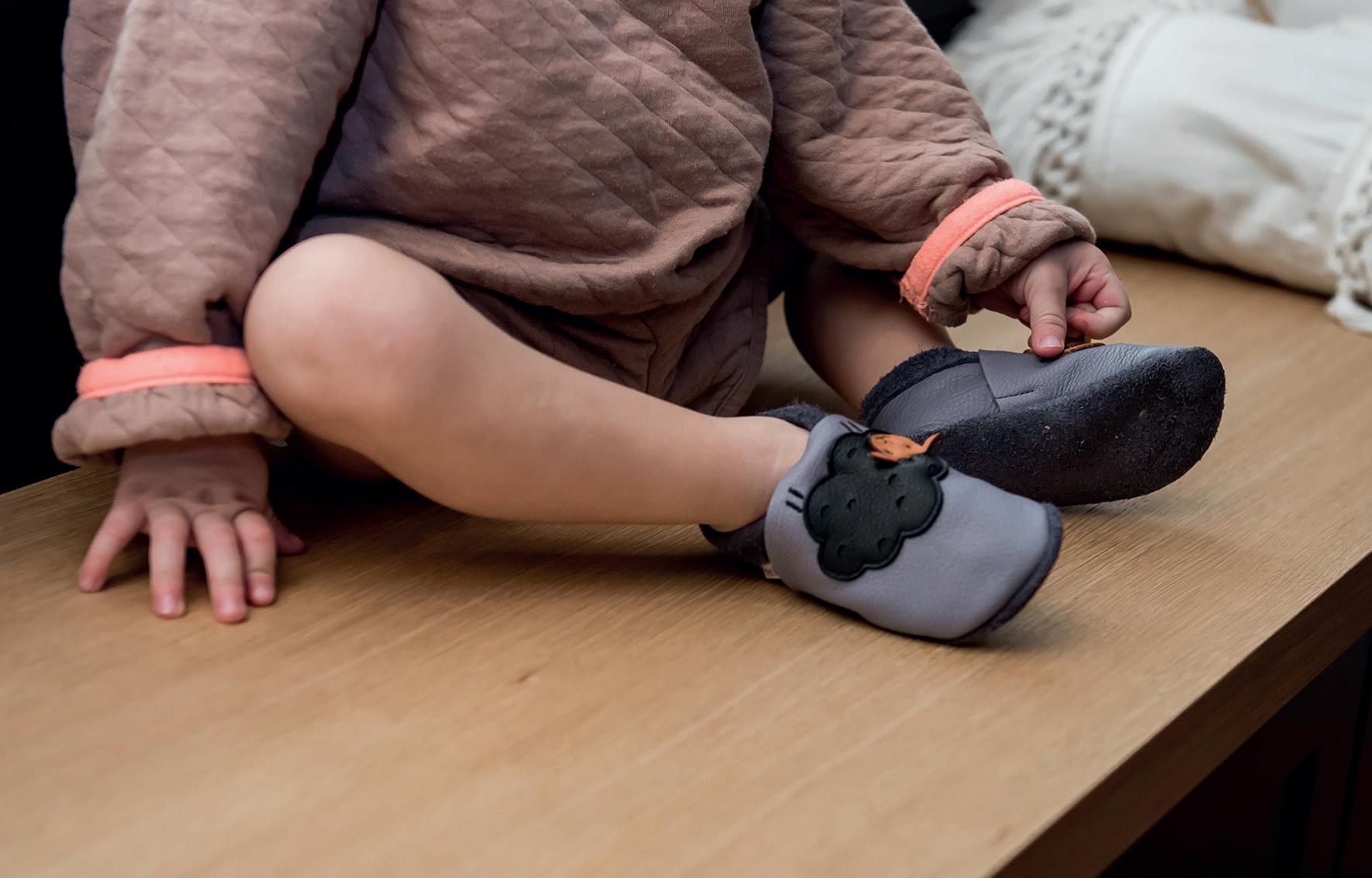
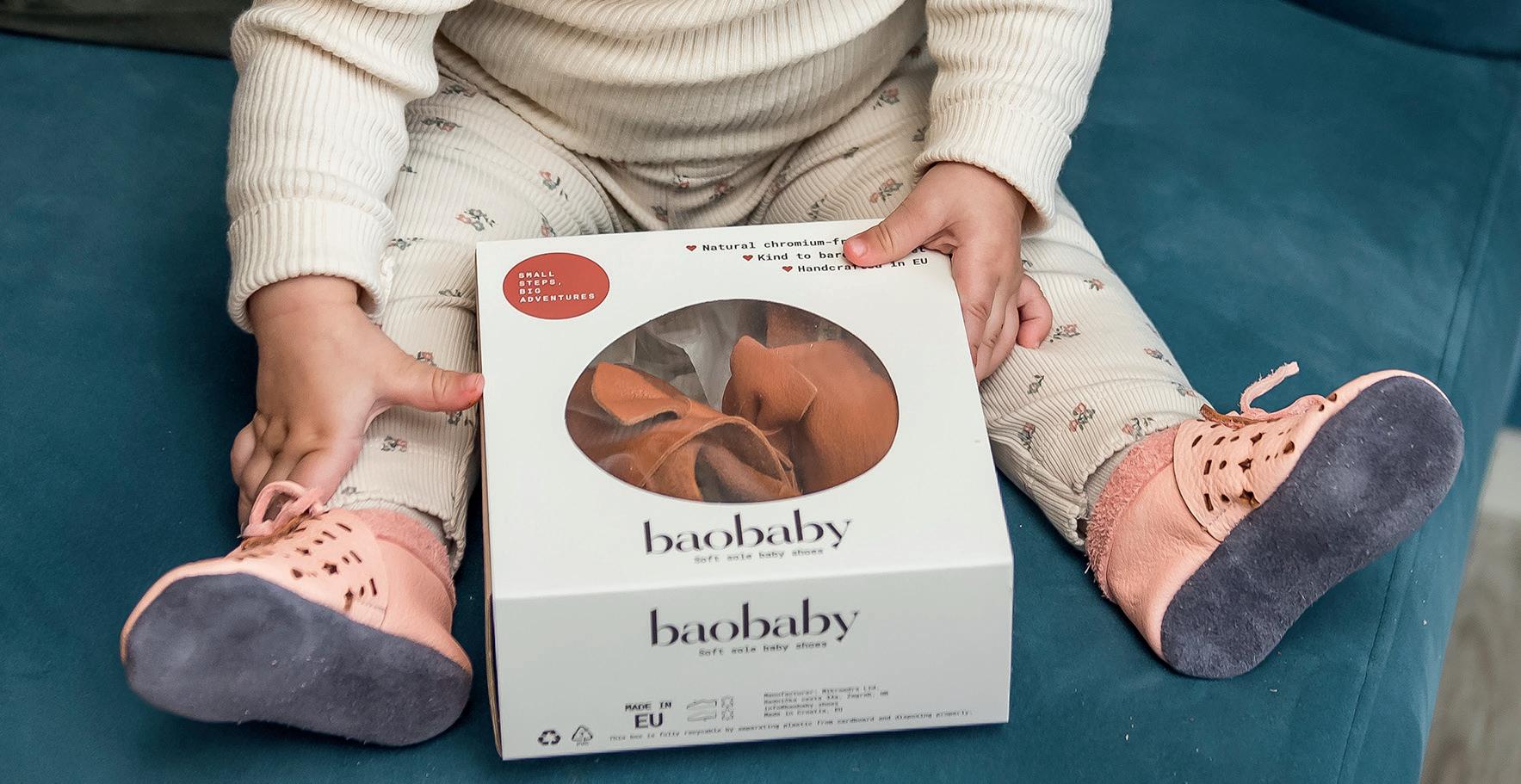
They are comfortable and breathable with lovely design which makes them the child’s favourite choice.
www.baobaby.shoes
Meet the Baby Tuck Sheet
The Baby Tuck Sheet provides added warmth, security and comfort for an infant during sleep without the risk of coming untucked.
This innovative product is a TOG-rated alternative to blankets in a crib and cot. A fitted mattress sleeve, the Baby Tuck Sheet is easy to use and is flexible for different sleep environments.
It offers two options for warmth with one side rated 0.2 TOG and the other 1.0 TOG — simply flip the sheet over to adjust the warmth, and follow ergoPouch’s Bedding Temperature Guide for help when layering. Available in both crib and cot sizes, the Baby Tuck Sheet is suitable to use from birth.
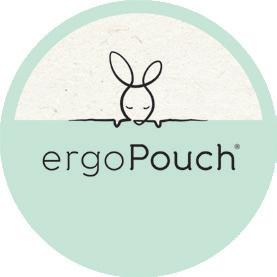
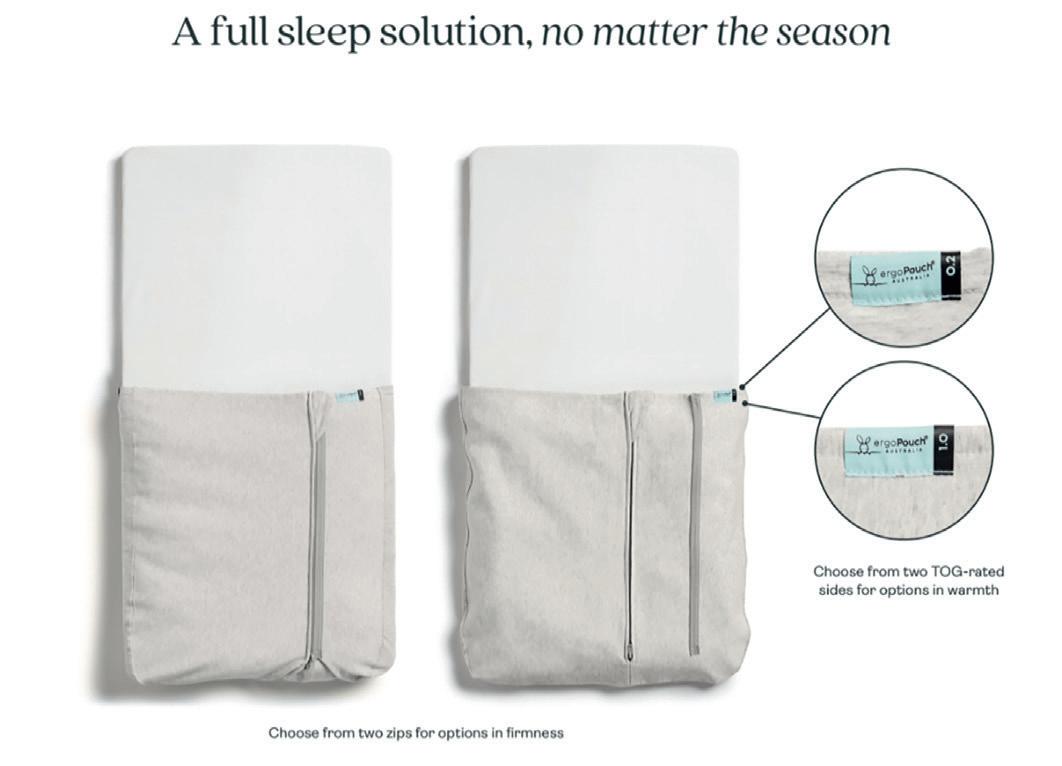
Made from the same soft stretch jersey as ergoPouch’s sleeping bags and swaddles, it is breathable, non-toxic and soft on baby’s skin. Part of their First Bedding Collection, the Baby Tuck Sheet can be bought in conjunction with matching Organic Fitted Sheets.
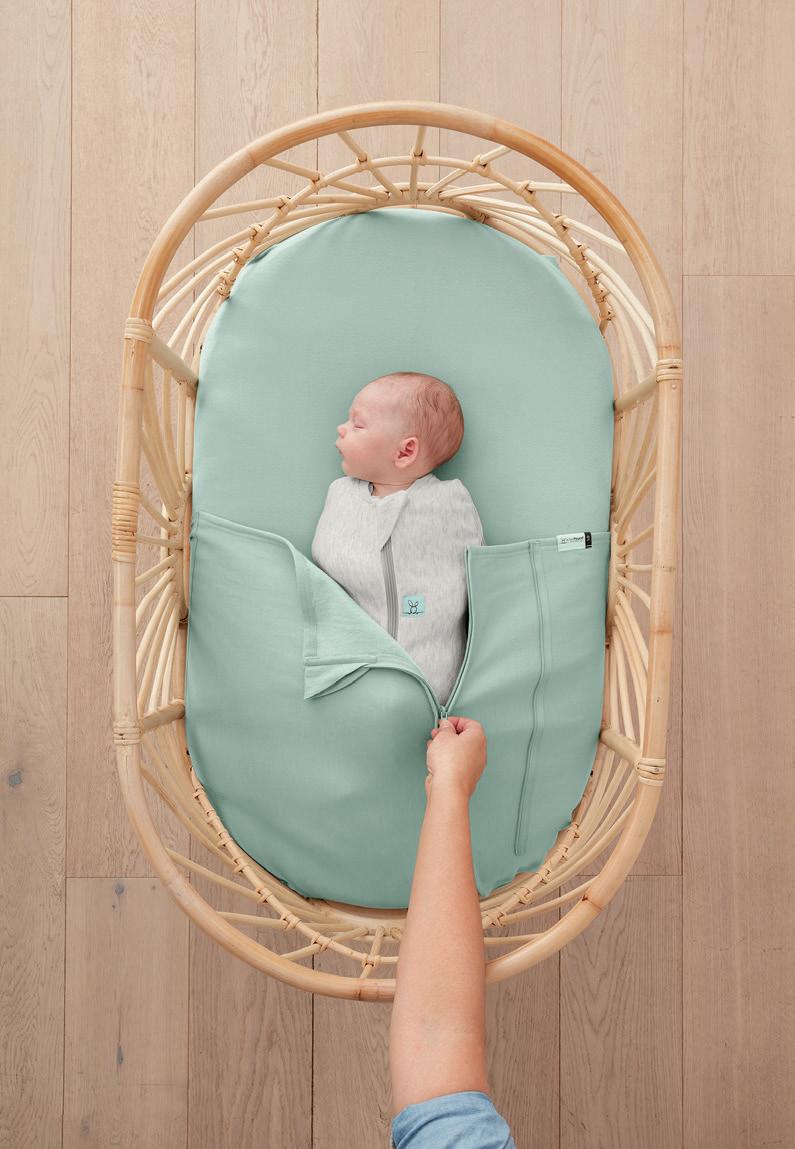
To use the Baby Tuck Sheet, slip the sheet over the end of the mattress like a sleeve. Lay baby under the open folds with their feet touching the end of the mattress. Zip the sheet up to the desired firmness by using one of two zippers.
07598 269191 | admin@wildseven.co.uk
www.wildseven.co.uk
24 nursery today Eco/Sustainable Focus Textiles
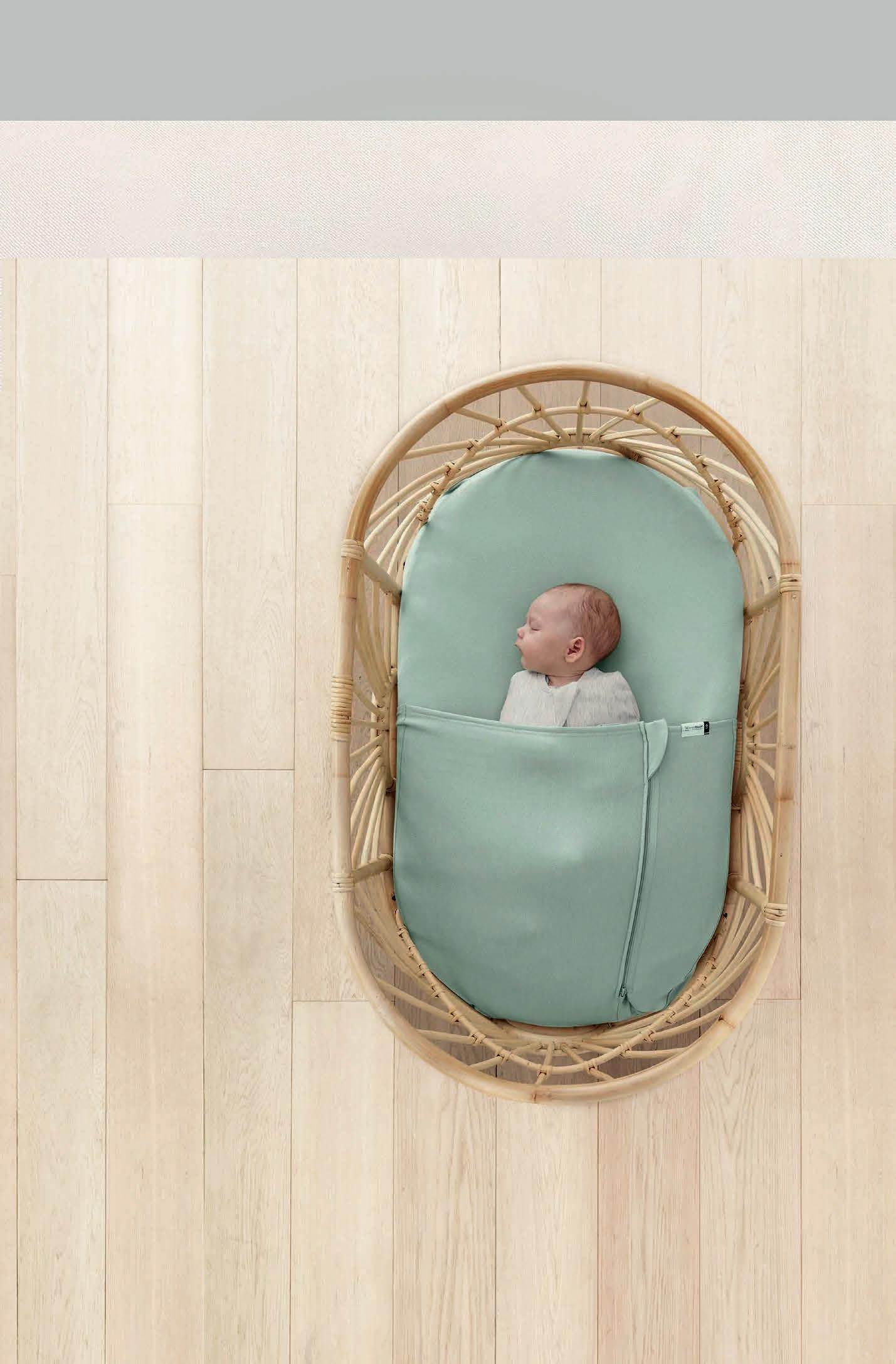
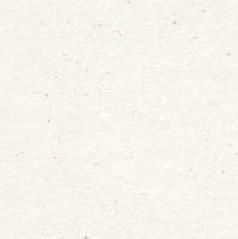
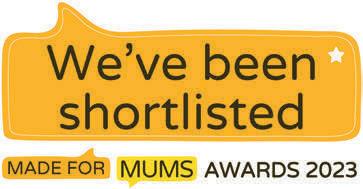

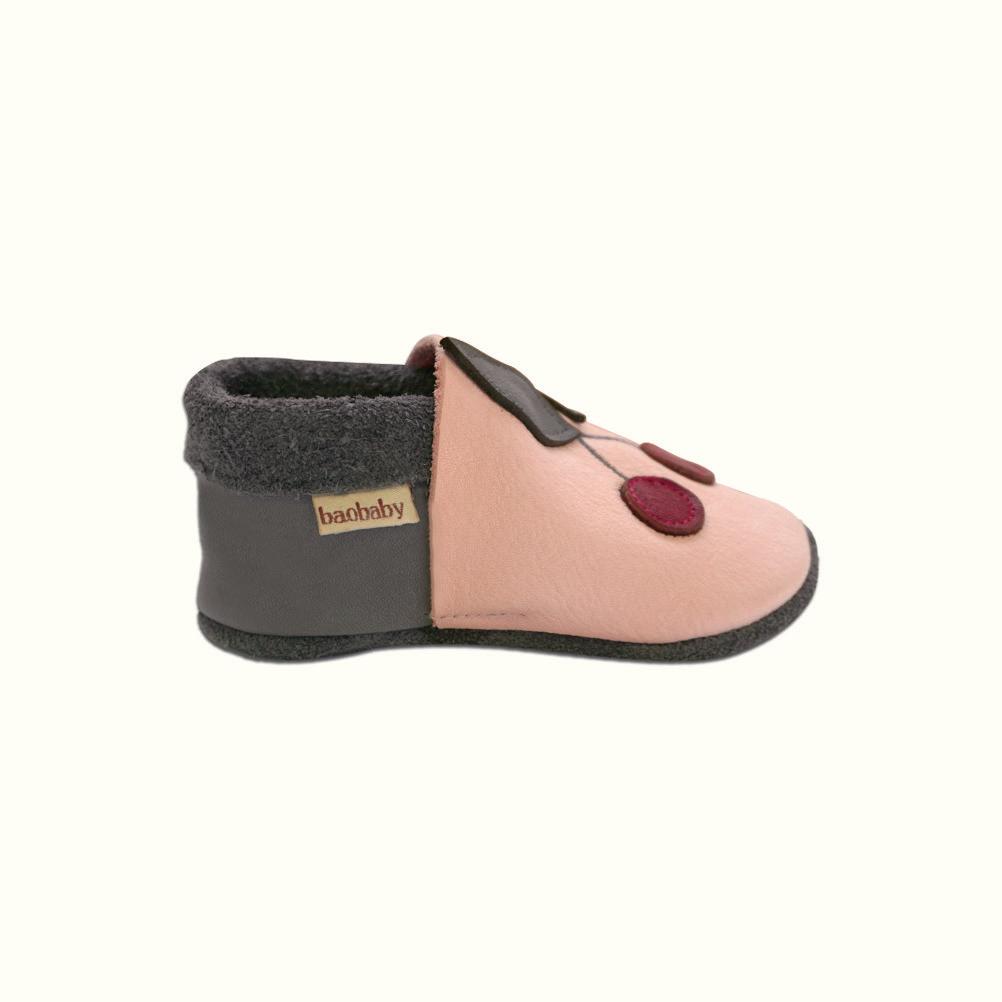
nursery today
Swim with Konfidence
In response and following consumer feedback in Denmark, Norway and Sweden, Konfidence has created two new pretty ‘Danish Pastel’ colour designs for its eco-friendly e-Flex swimwear collection, which features the Splashy Swimsuit and Warma Swimsuit. This also extends to the multi-awardwinning Splashy Swim Nappy, which at the 2022 Organic Baby Awards received Gold for Best Swim Nappy and Silver for Best Eco-Friendly Innovation, and has just been shortlisted, for a second year in a row, for a 2023 Made for Mums award.
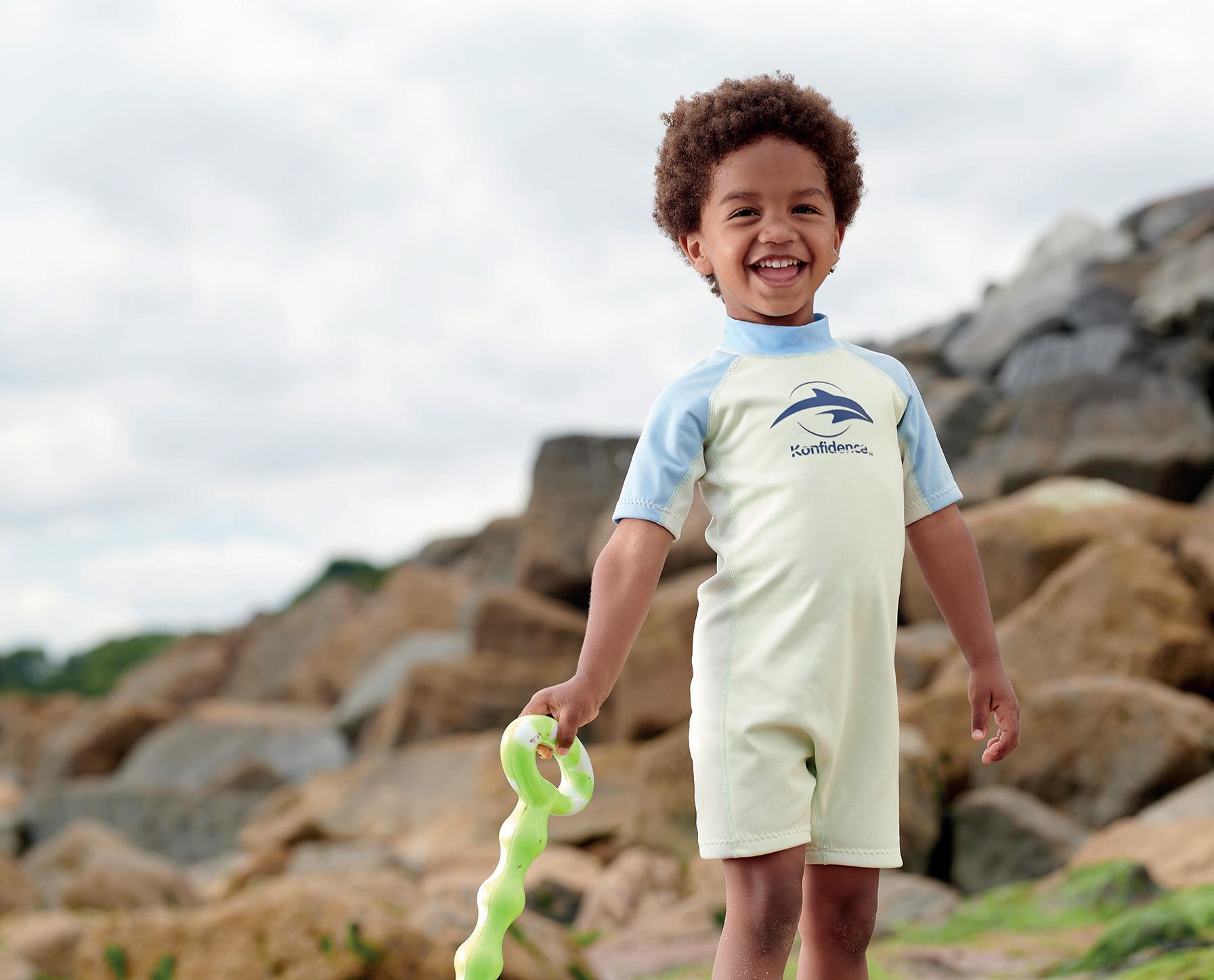
The new Scandinavia inspired designs, which will be available in the UK mid-March, come in a choice of pastel jade or peach – Baltic styles that are considered to be both soothing and optimistic. With the swimwear being holiday essentials too, Konfidence has named the colours after two beautiful holiday locations in Scandinavia - Mjelle (jade) in Norway and Skane (peach) in Sweden. www.konfidence.co.uk
Baa Baby the natural choice
Luxury sheepskin pram liners that are sustainable, eco-friendly, OEKO-TEX certified and perfect for baby all year round
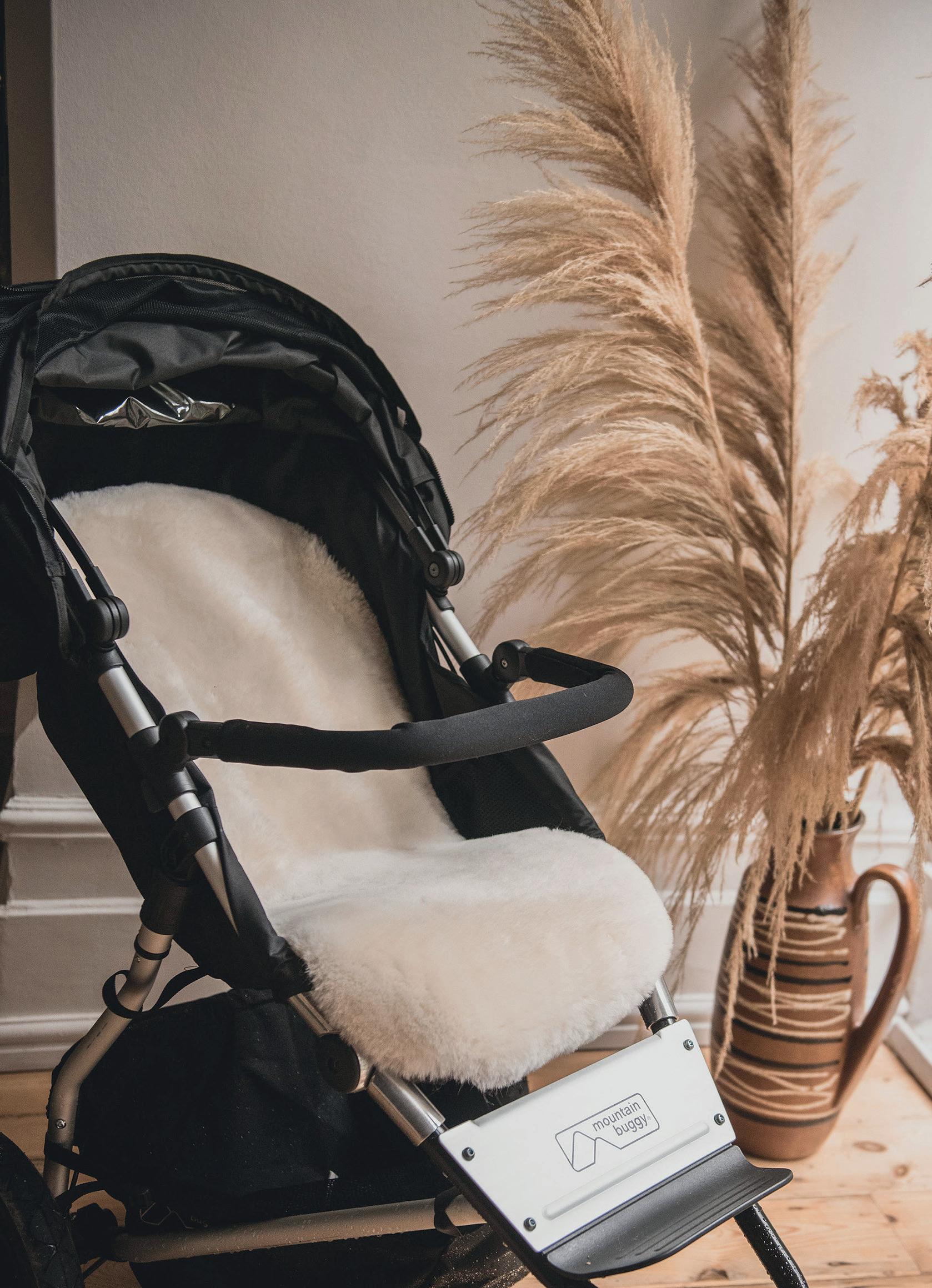
Not just for aesthetics and comfort – a sheepskin pram liner brings a wealth of wellbeing benefits for babies and parents. As a naturally thermostatic and breathable fibre, sheepskin keeps baby warm in winter and cool in summer so is a great pram accessory to use all year round. Naturally moisturising thanks to the lanolin in the fibres, fire-retardant and anti-bacterial a sheepskin liner offers so much more than a soothing pram ride and settled baby.
Baa Baby are rightly proud that their liners are the only UK brand that are OEKO-TEX 100 certified ensuring safety and quality as their top priority. As for their eco credentials they source sheepskin that would otherwise be destroyed to produce their pram liners, reusing this sustainable natural resource. Hand cut from a single fleece there’s no rough stitching or patchwork and when well cared for sheepskin lasts a lifetime. If it is time to say goodbye however there is no impact on the planet as it will naturally decompose, unlike faux sheepskin and fur which takes almost 40 years to break down.
The brand has won multiple awards including the Mother and Baby Gold Award for Best Eco Friendly Product 2023 and has excellent 5 star independent customer reviews.
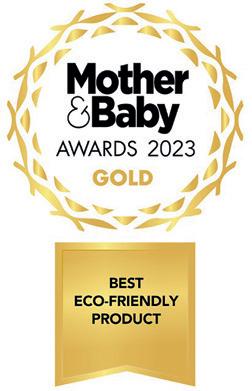
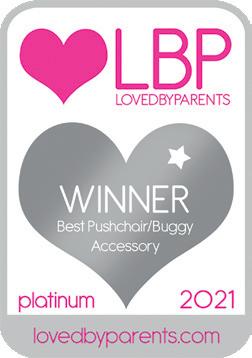

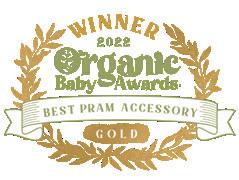
Offered exclusively to UK independent retailers the range includes gender neutral, natural shades in both long and shorn hair, with designs that are compatible with every pram harness. All of their liners are supplied in a premium jute shopper and include a contribution to their chosen charity ‘Rays of Sunshine’.
For more information contact wholesale@baababy.co.uk | www.baababy.co.uk
26 nursery today Eco/Sustainable Focus Textiles
For a quarter of a century, Konfidence has been helping youngsters all over the world feel safe and secure in the water while they learn how to swim, and in recent years their British-designed swimwear has become increasingly popular with parents in Scandinavia.
Room to grow
Grohanger is a new and unique sustainable baby clothes hanger.
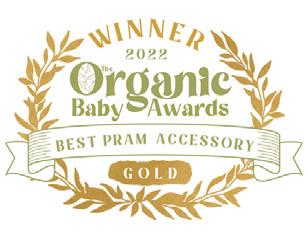
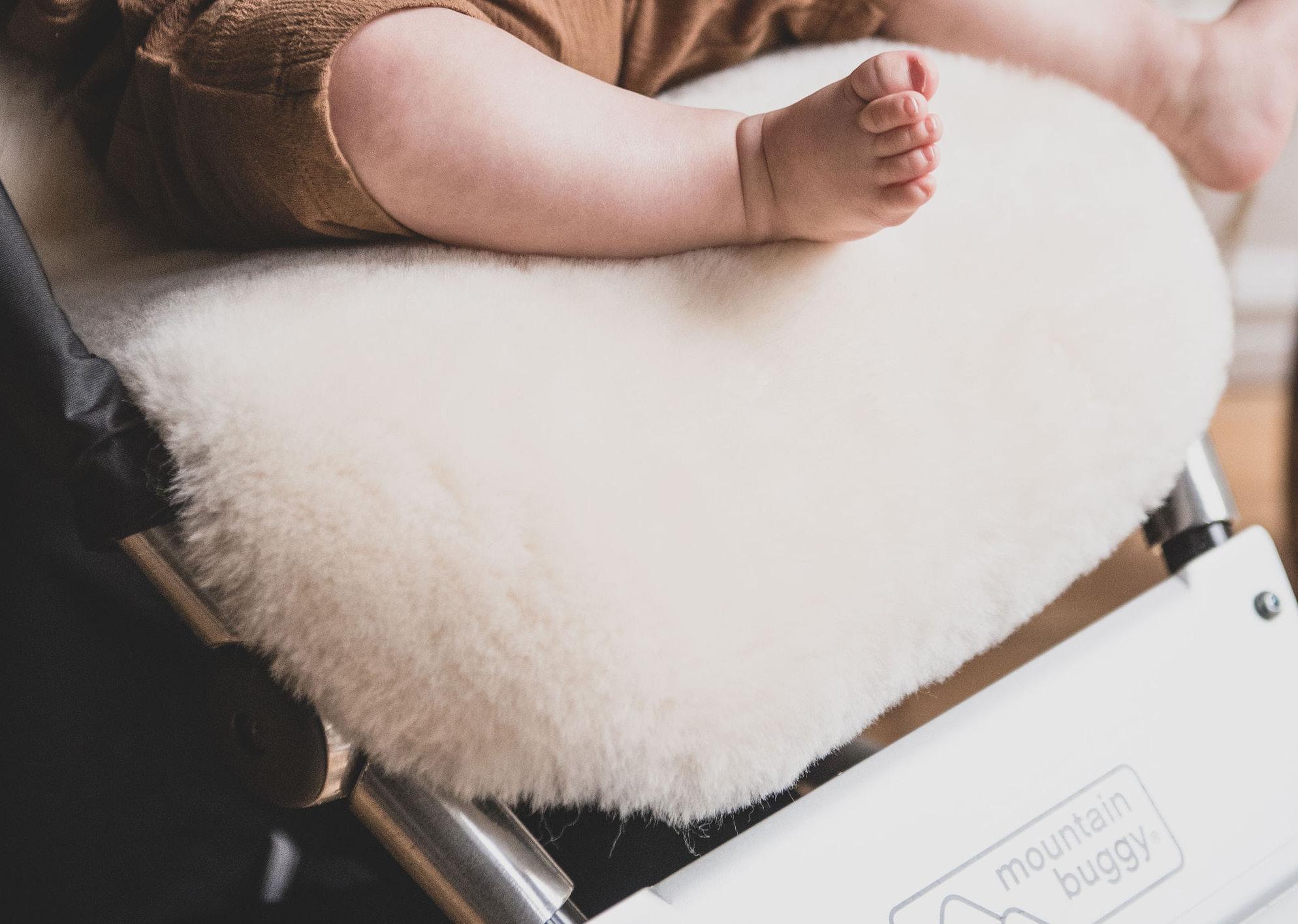
The design of the Grohanger is the only baby hanger in the world with a trouser bar that literally grows into a full size adult hanger solving a number of pain points parents experience with standard baby hangers. Most importantly it prevents plastic waste created by standard hangers that are outgrown and mainly end up as landfill waste.
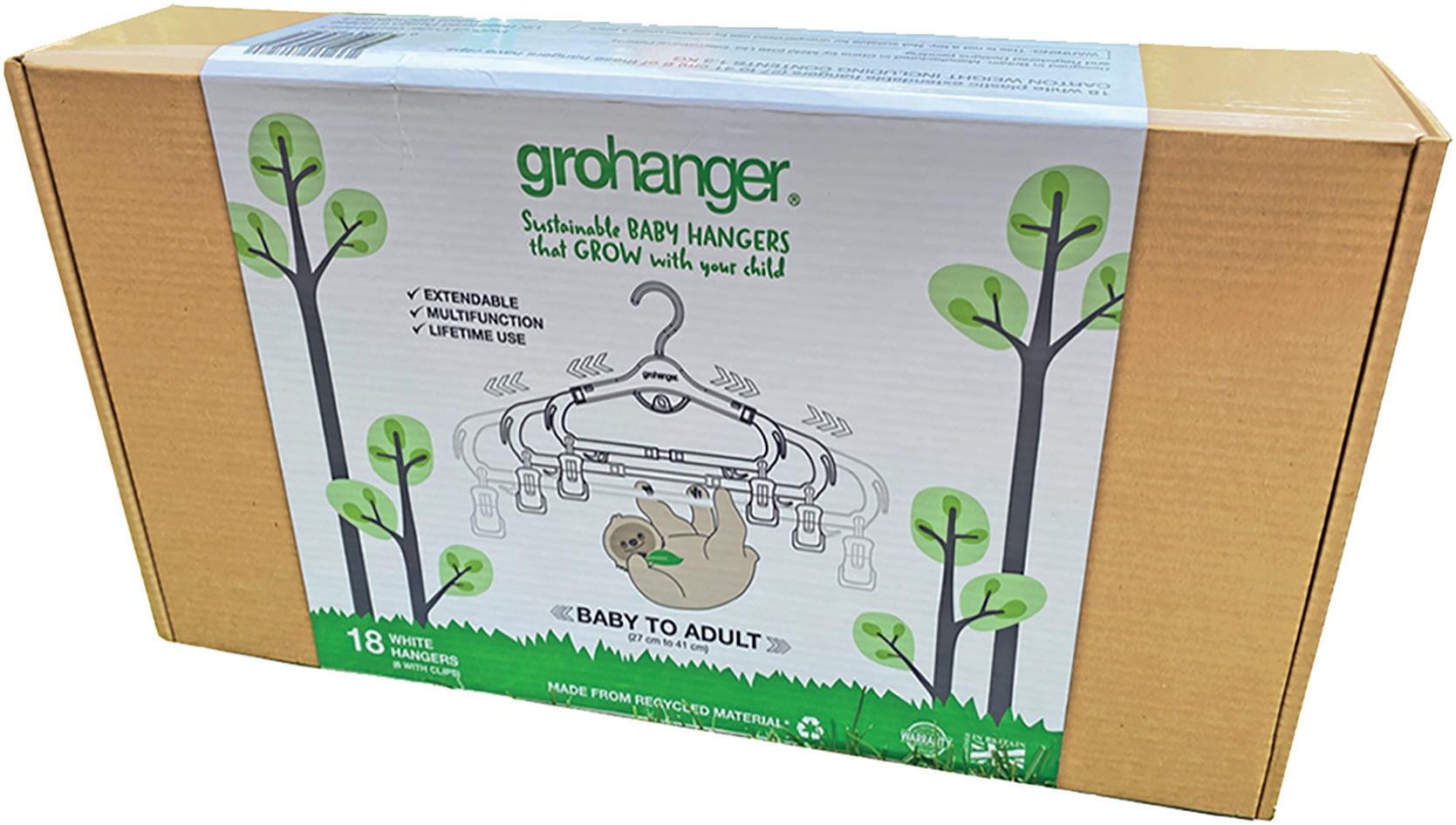
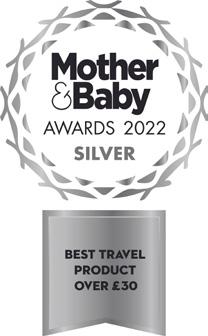
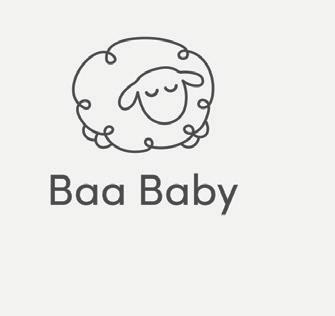
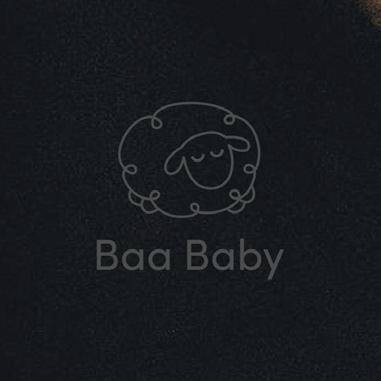
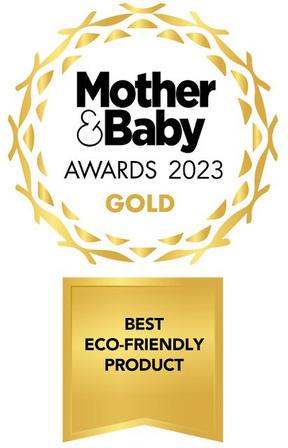
Don’t waste money buying baby hangers, then kids hangers and clip hangers. Buy Grohangers once and reduce waste. Grohangers offer lifetime use and ZERO plastic waste. Pass to the next generation and keep the planet free of waste for your grandchildren!
020 8202 1467 | info@bebelephant.com
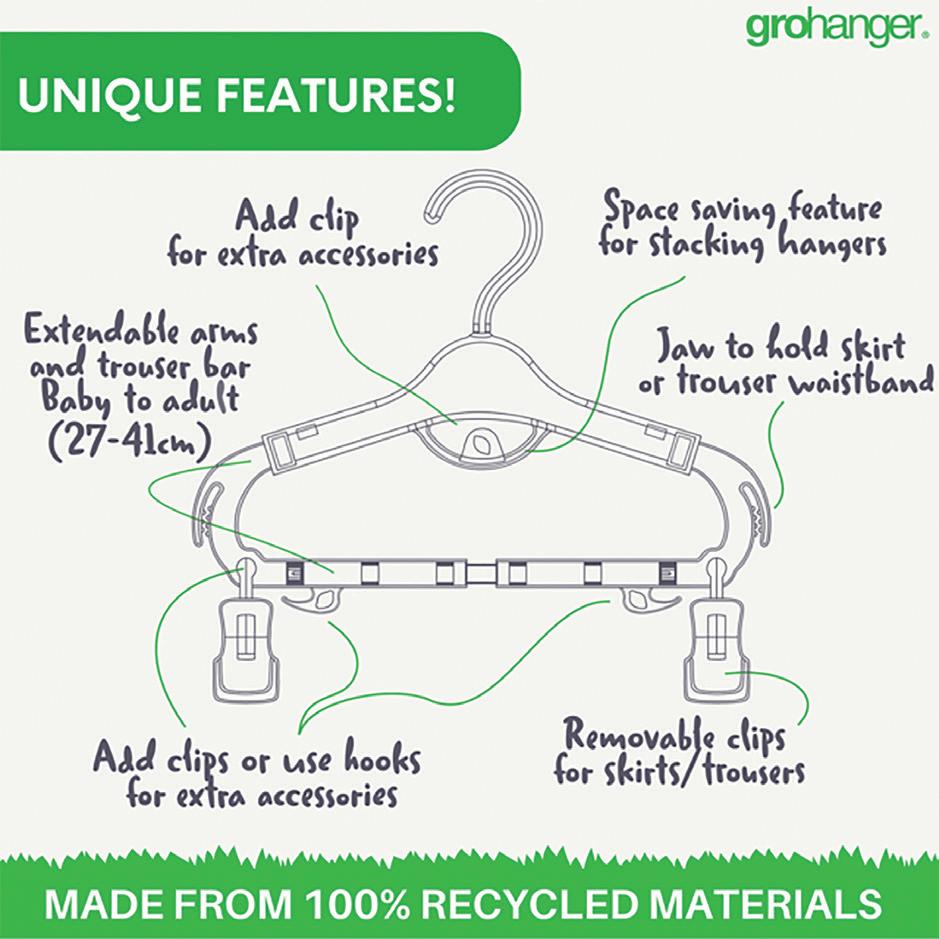
Eco/Sustainable nursery today 27
Happy silver linings
The Happy Nappy DUO has a unique Silver Lining, this anti-bacterial layer enhances the action of the chlorine breaking down pathogens including E.coli and Cryptosporidium rendering it harmless, so when it mixes with water or urine and leaks into the pool it is sterile. The Silver Lining is also available as a standalone pant (RRP £8) to wear under any Happy Nappy product.
The DUO is approved by over 95% of UK swim-schools to wear in the water but crucially without the need for a disposable. Parents now have a viable alternative and can ditch the disposables when taking their baby swimming. Water is cleaner and free from pathogens that are responsible for severe tummy bugs.
The initial outlay for the DUO (RRP £17) is higher than a pack of disposables (£5.99) but the cost per wear makes this reusable a financial and eco-friendly investment. The DUO is designed to last six months and it can of course be handed down. Not just for swimming classes, this swim nappy comes into its own on holiday where babies would traditionally use multiple disposables per day.
Disposable nappy waste is such an issue for UK holiday parks with strict environmental targets that one park has already made wearing a Happy Nappy mandatory, because it negates the cost the company pays for waste disposal. Other holiday parks are expected to follow suit.
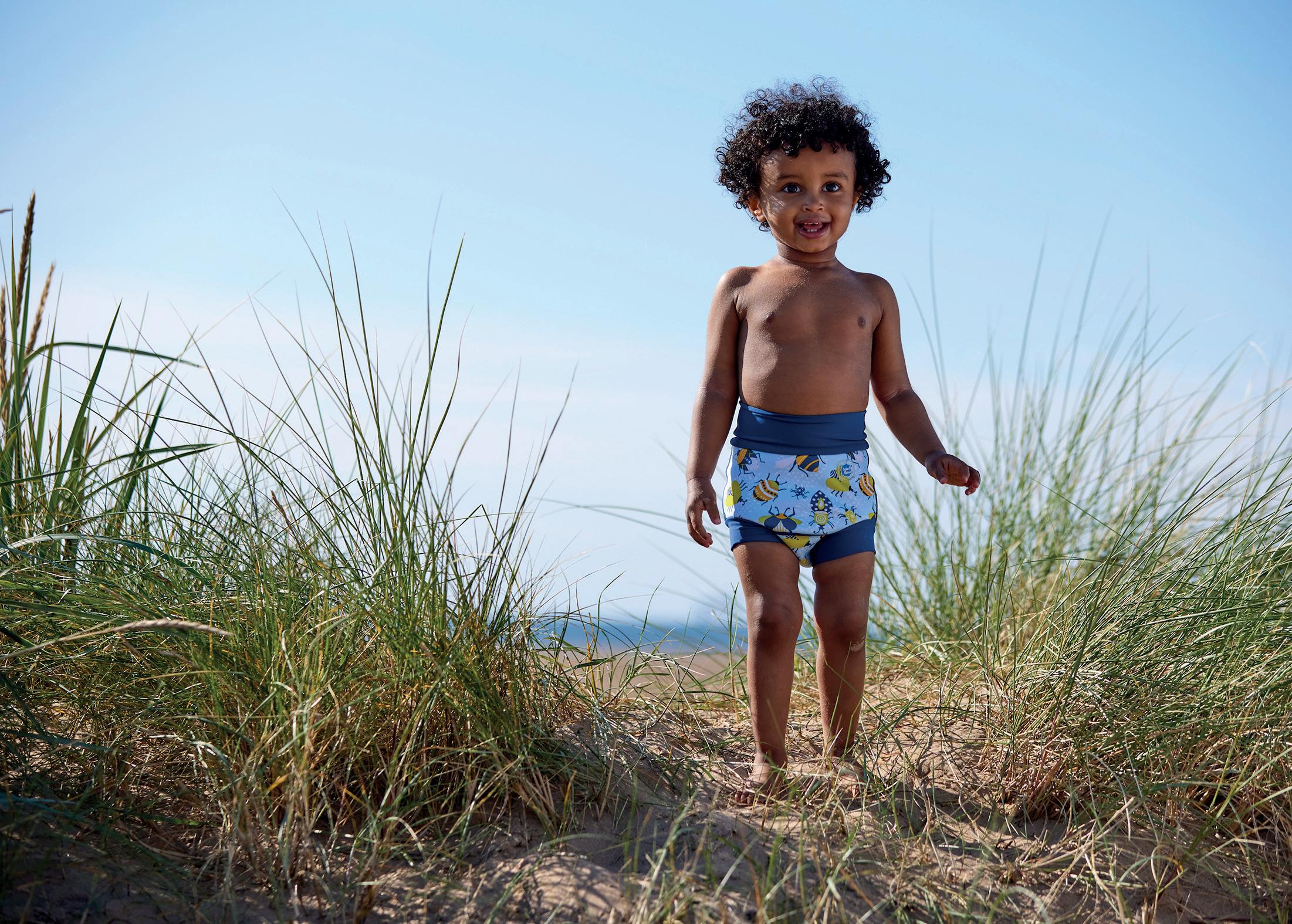
Go Green in the Pool
Ditch the Disposables
Splash About is committed to removing disposable swim nappies from the water, making pools cleaner and safer for all swimmers.

The average baby uses 5,000 disposable nappies as opposed to just 16 reusable ones; over 150,000 disposable swim nappies from formal organised UK baby swim lessons end up in landfill every week, and it takes up to 500 years for just one nappy to decompose.
With climate change increasingly hitting the headlines, there is a perceptible shift in consumer buying habits; parents are weighing up the financial cost of more environmentally friendly alternatives against the long-term impact on our planet. The smallest of changes can make a mighty impact.
Baby and children’s swimwear brand Splash About introduced its reusable Happy Nappy 20 years ago. It is recommended by baby swim schools as the de facto swim nappy due to its ergonomic design which prevents leaks of solids.
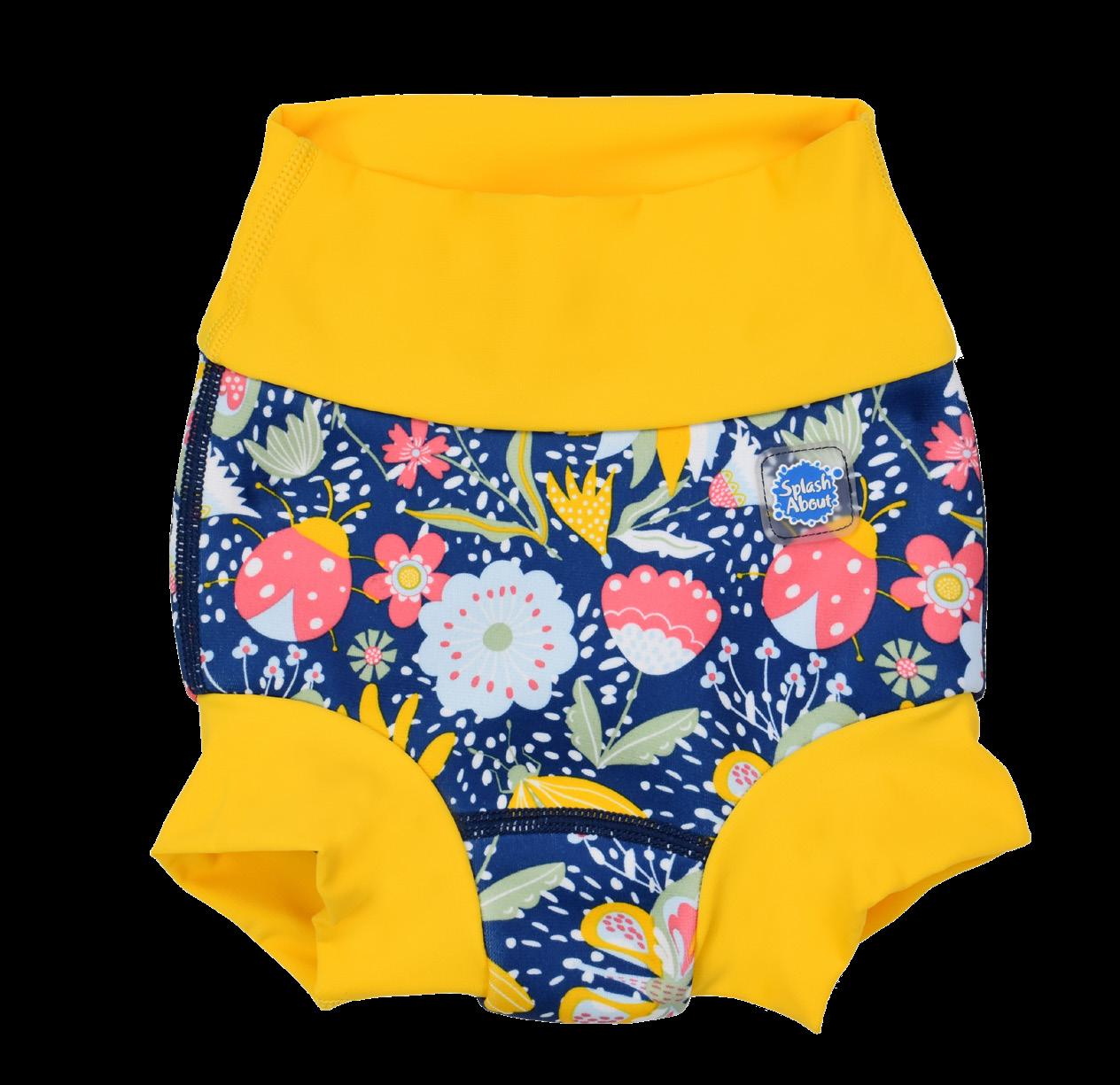
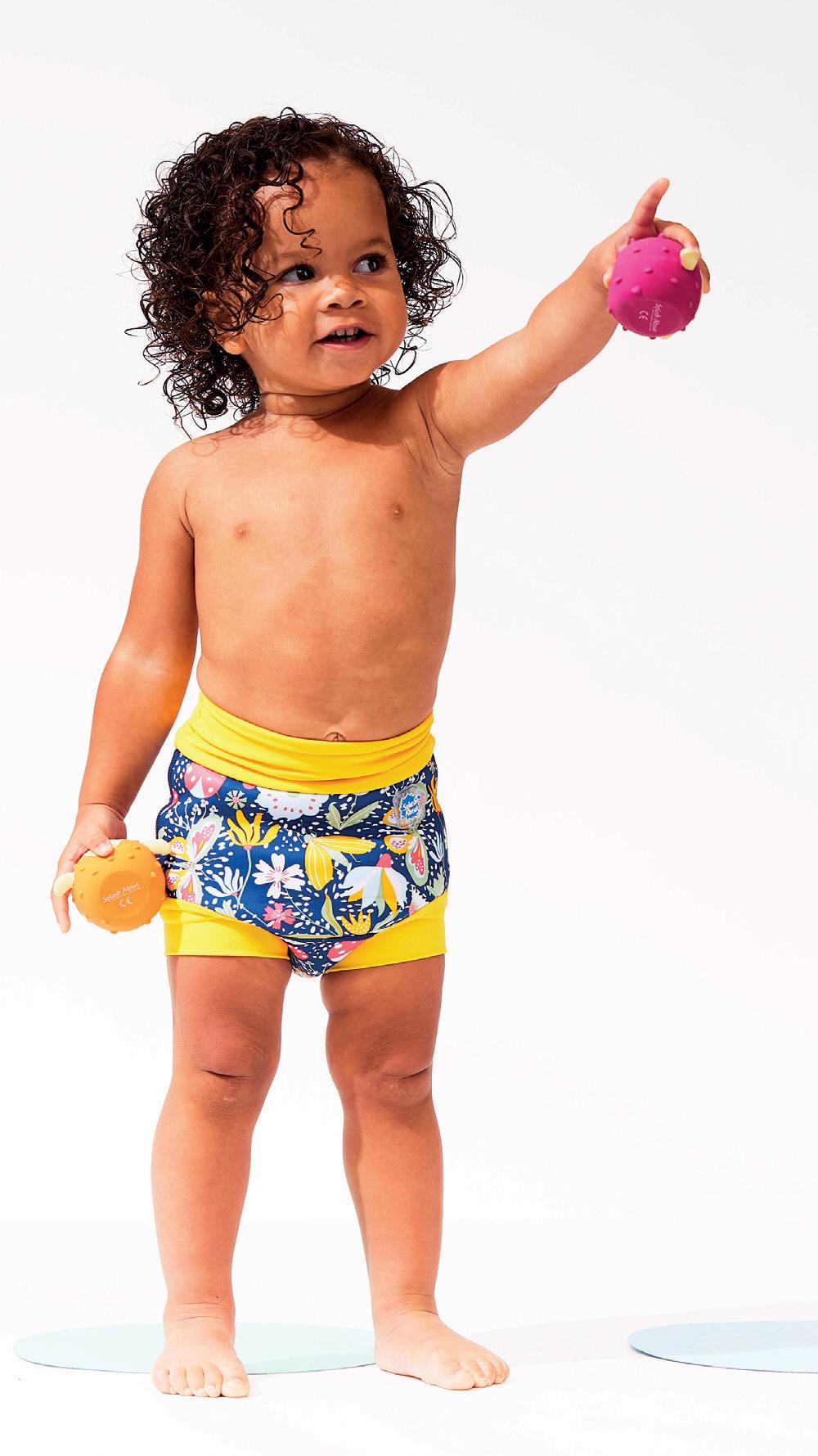
For swim schools, an unwelcome accident means pool closure, which amounts to lost revenue and unnecessary expense in refilling and heating the water. To guard against faecal leaks, swim schools insist on a ‘double nappy requirement’ for babies. This, ironically, has parents reaching for a disposable to wear underneath the Happy Nappy, negating any eco credentials.
With a vision for cleaner pool water for all swimmers Splash About set about redeveloping a completely waterproof Happy Nappy. However, in tests just a drop of water penetration would make any leak-proof claims untenable. Instead, the brand turned the issue on its head, destroying any bacteria within the nappy before it enters pool water. After four years in development, working with world-renowned virologists it launched the Happy Nappy DUO.
Splash About’s Managing Director Bernadette Spofforth has seen a shift change in consumer buying habits with sales of the DUO increasing dramatically since its launch in 2021 as awareness grows and parents want to help reduce their household waste and ‘do their bit’ for the environment.
It’s not just in the water that Splash About is committed to decreasing its environmental impact; it uses sustainable sources or recycled raw materials wherever possible, and packaging is minimised throughout the range. The brand is working towards a 100% recycled packaging promise by the end of 2023.
However, the fact remains that 250
million disposable nappies are thrown away annually, contributing to over 500 billion tons of landfill waste with vast amounts of microplastics infiltrating our soils and waterways. Disposables nappies are one of the biggest global contributors to single use plastic, making the switch makes both environmental and economic sense.
For more information: www.splashabout.com or call 01472 236465
28 nursery today Eco/Sustainable Focus Splash About
EVERY DAY





nappies are thrown away
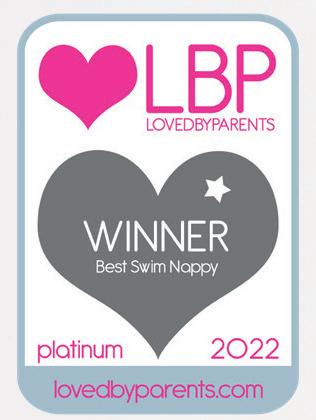
Unique Silver Lining kills all pathogens while snug waist & thigh ribbing contains accidents
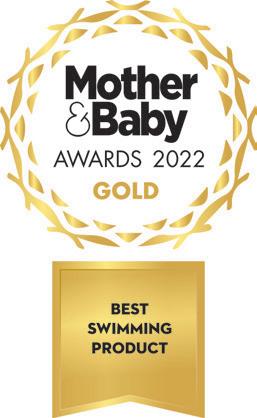
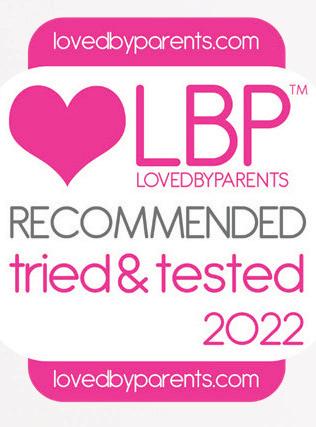
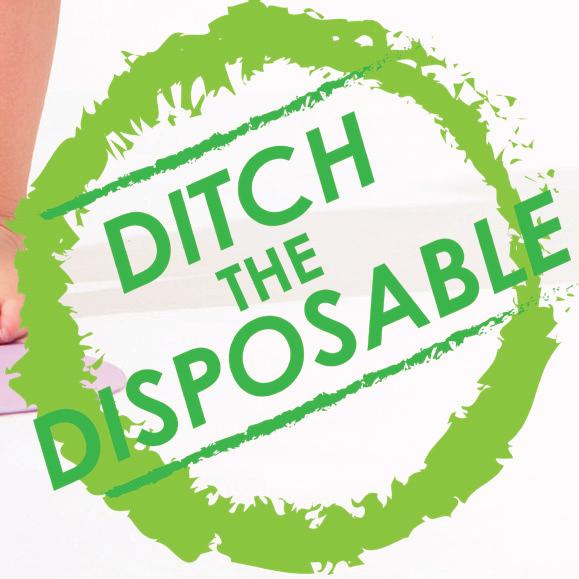







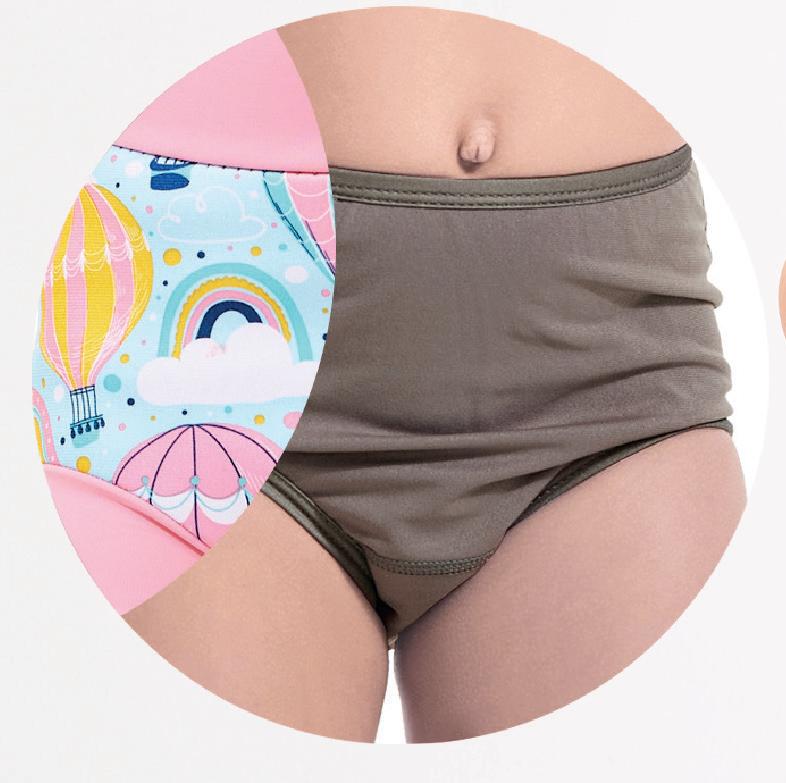
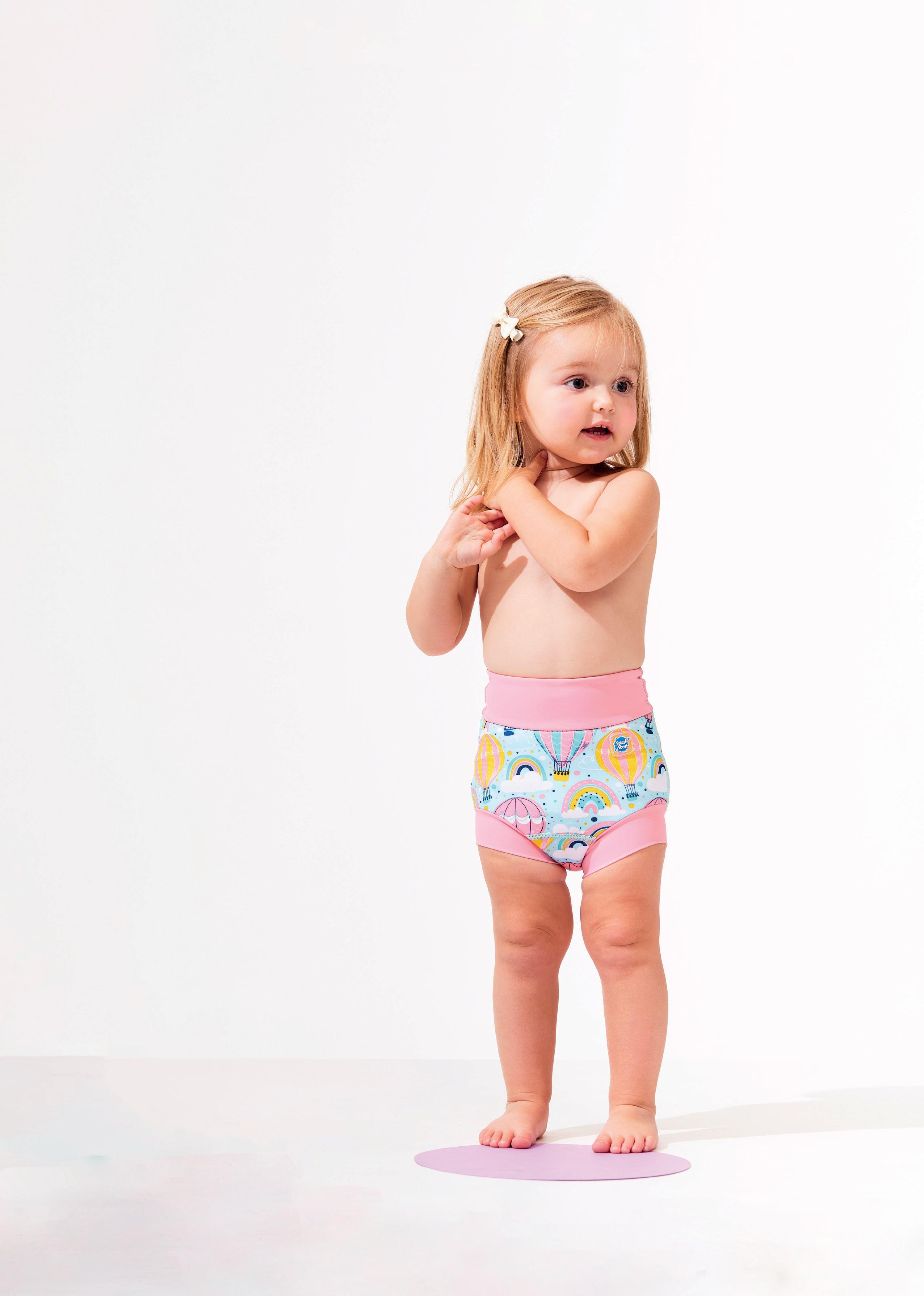
Green in the pool with the Happy Nappy DUOthe only swim nappy your baby needs! • Eco-friendly & Reusable • • Suitable 0-3 yrs • A ordable • • Swim School Approved • • No disposable needed • www.splashabout.com
Go
Bambino Mio best for parents.
Nappies are an everyday necessity, but waste certainly isn’t! Make sure you’re stocking one of the best reusable nappies for parents.
Consumers are more eco-conscious than ever before and want more sustainable choices when shopping for their baby so, retailers are expected to pave the way and offer consumer choice by stocking reusable nappies.
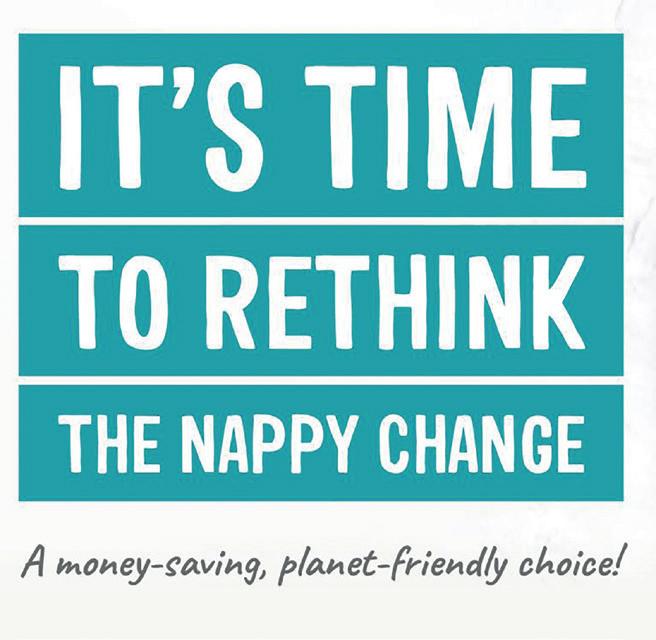
Bambino Mio have been leading the way for over 25 years, producing high quality reusable nappies that are stylish and simple to use. Providing retailers with affordable and reliable products that offer the best alternative to disposable nappies, helping tackle the huge problem the world is facing from plastic pollution caused by single-use nappies.
Bambino Mio have won over 100 awards and have recently qualified as a Certified B Corp business so; you can rest assured that you’re in safe hands with this brand.
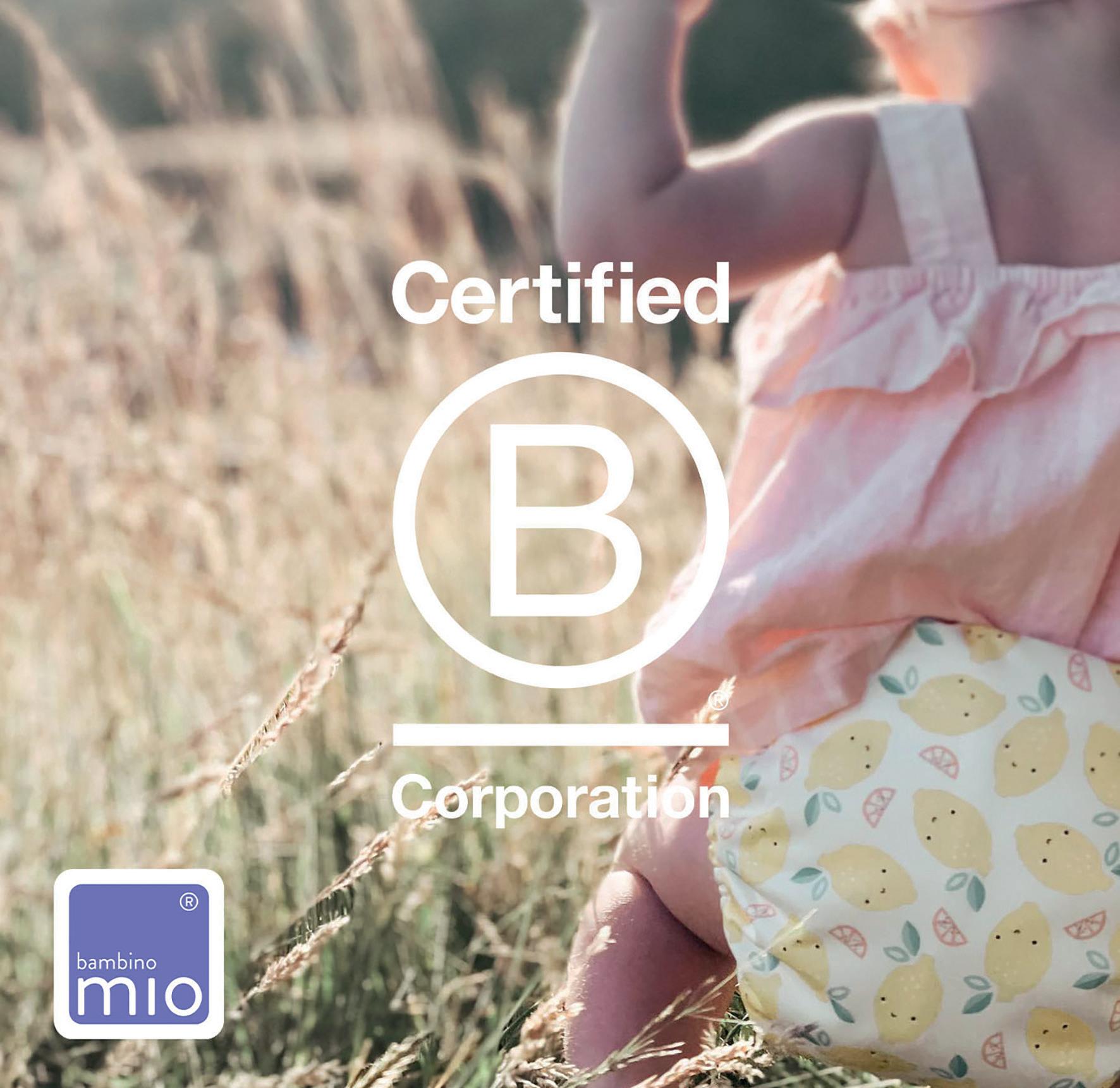
Our future is not disposable so, what are you waiting for?! Get in touch with the team or visit their website to find out more about Bambino Mio’s Oeko-Tex certified reusable nappies and change-time products.
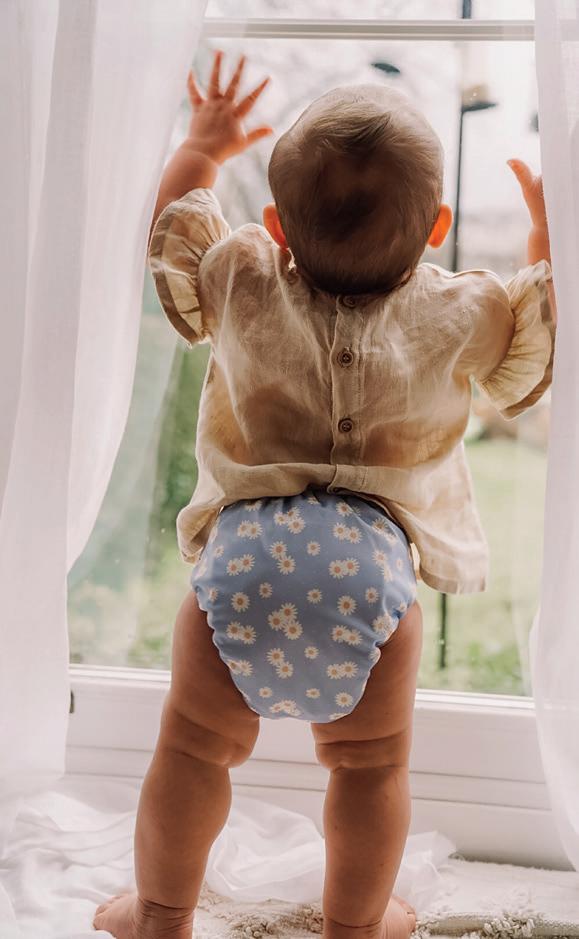
sales@bambinomio.com www.bambinomio.com.
Reliable, Reusable Modern Cloth Nappies
Over 3 billion disposable nappies in the UK alone are sent to landfills annually.
Ditch the disposables today for reusables!
Making nappies mainstream, Modern Cloth Nappies multi award-winning reusable nappies and accessories are designed with style and sustainability in mind. Ditch the disposables and choose fuss-free, machine washable nappies that are earth-loving and money-saving from Modern Cloth Nappies today!
Available from newborn to potty training, their reusable nappies are designed to grow with little ones. They are made with sustainable materials and are soft and gentle against sensitive skin. Double leg-leak guard protection as standard and revolutionary absorbent technology inside. Loved by parents and carers all over the world.
Reusable swim nappies, matching changing bags, changing mats and more available. Winners of Made for Mums - Gold in 2021 & 2022 and the Mother and Baby Awards – Gold for 2023. Get in touch for wholesale information today and join them in time for Reusable Nappy Week 2023!
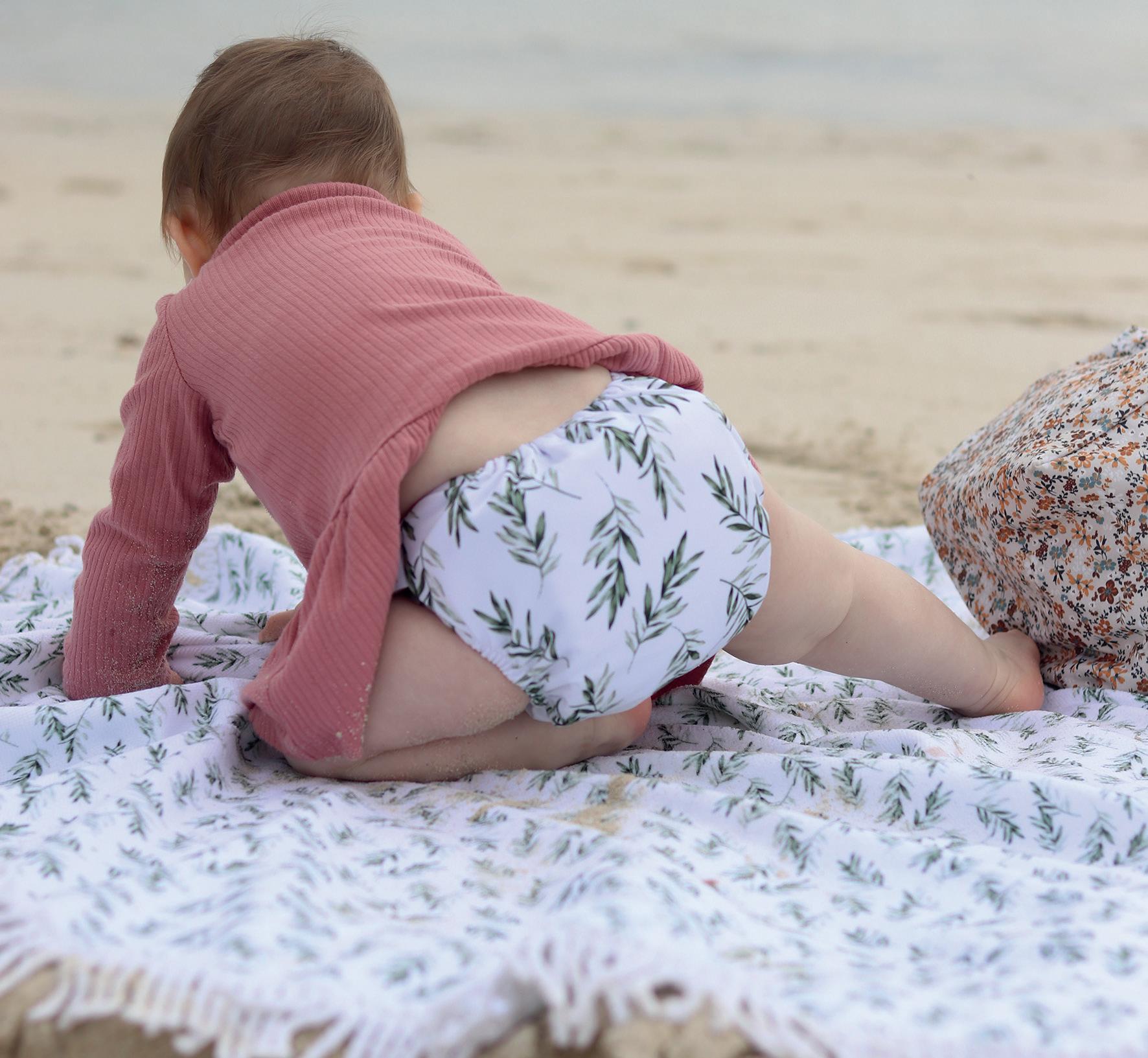
info@modernclothnappies.co.uk
www.modernclothnappies.co.uk
30 nursery today Eco/Sustainable Focus Nappies & Toilet Training
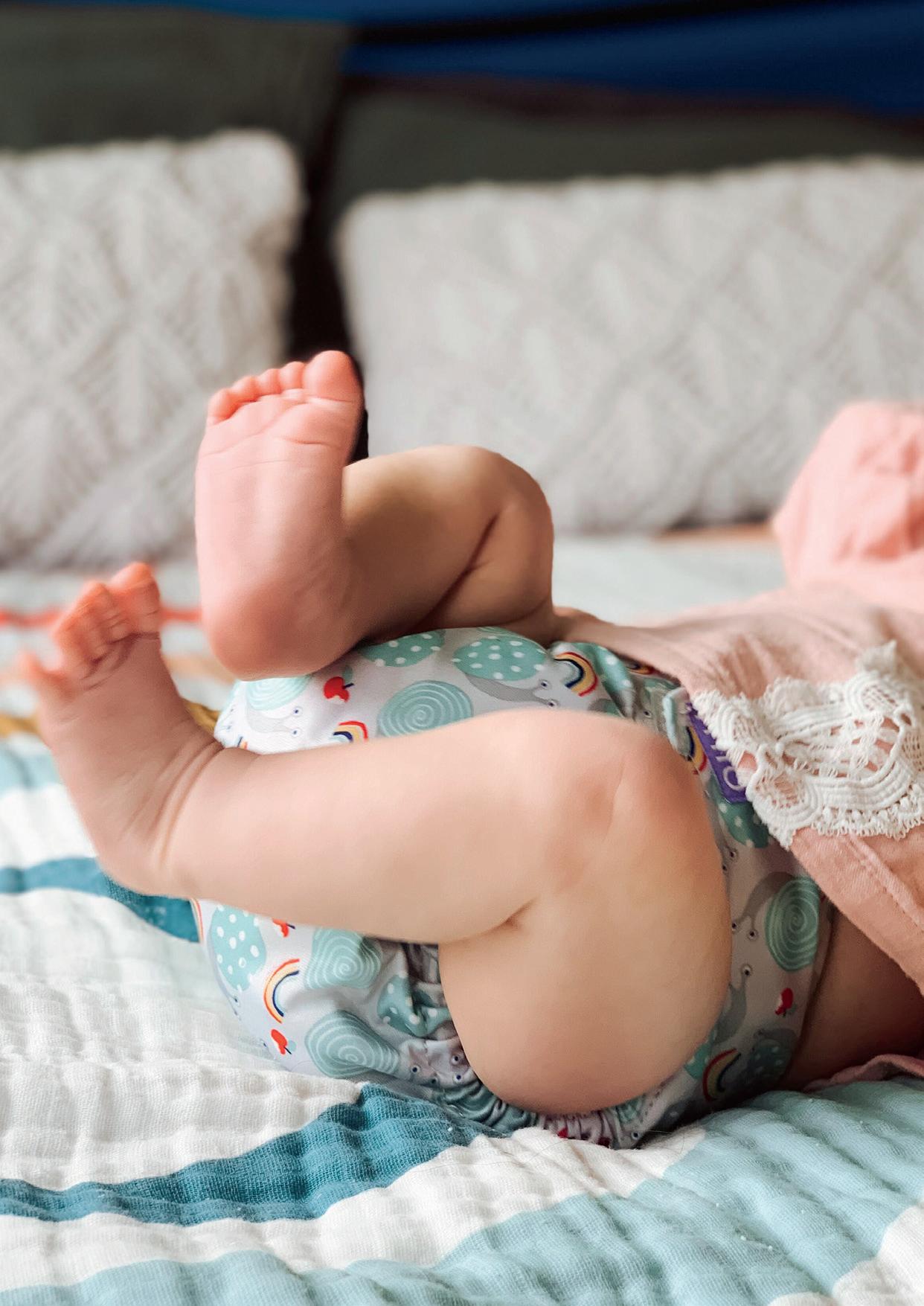
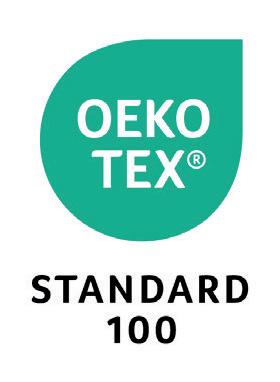
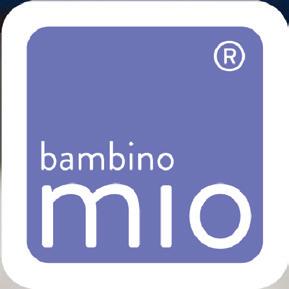
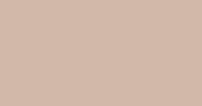






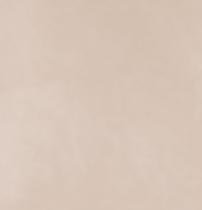










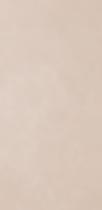
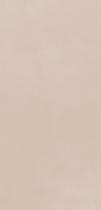

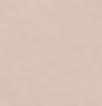
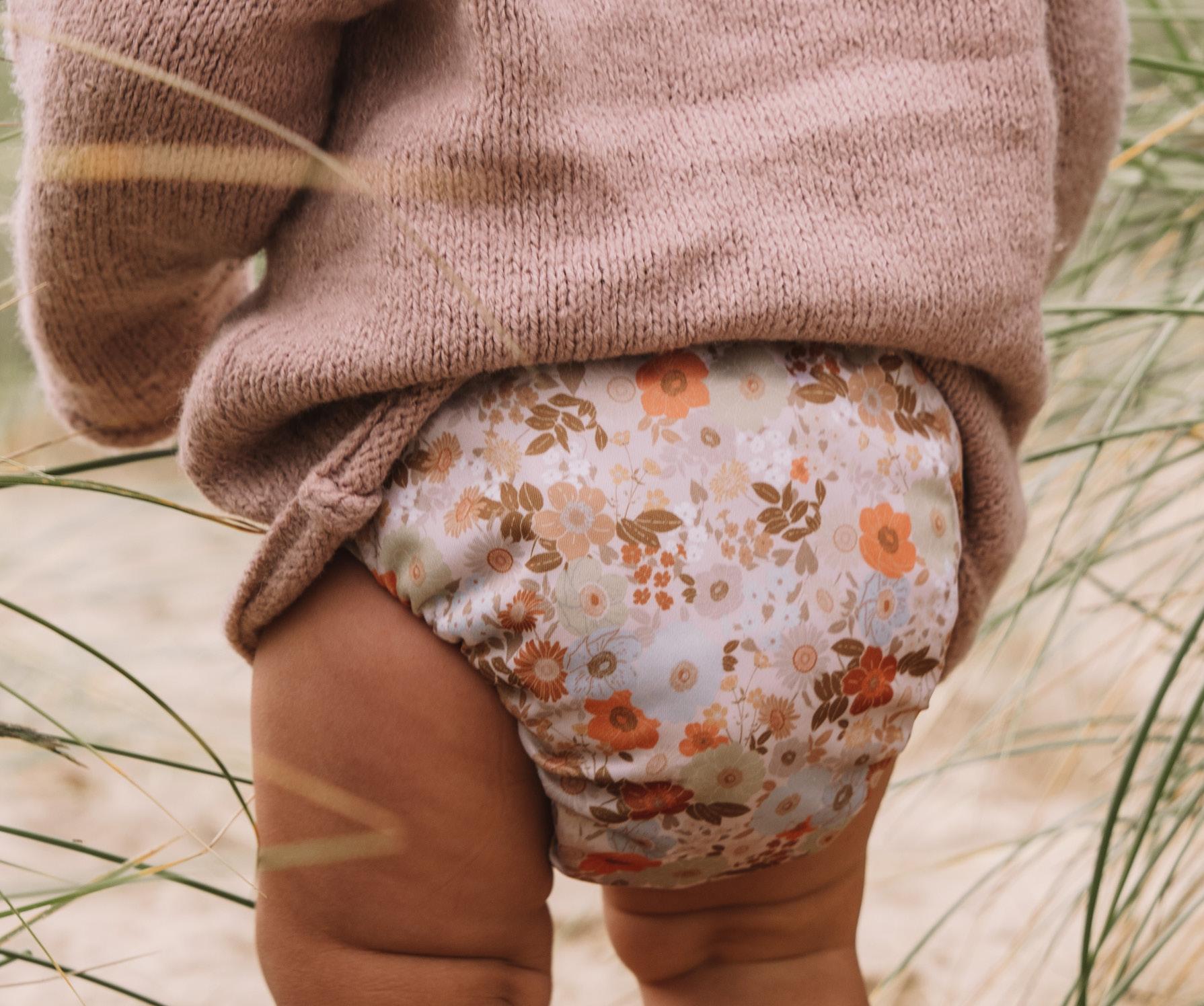

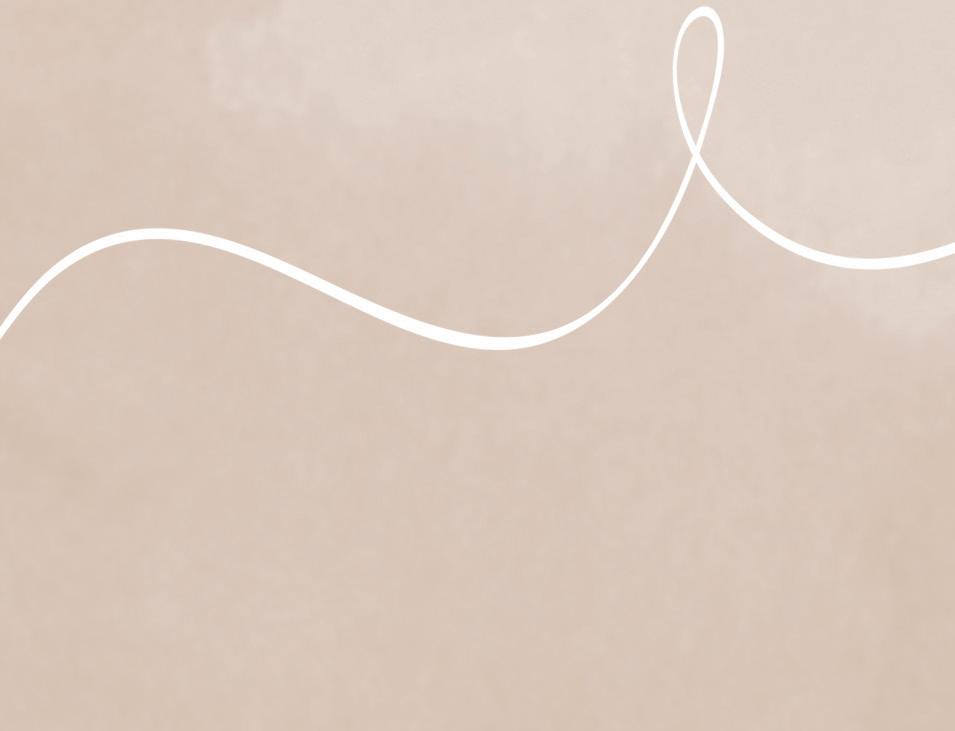
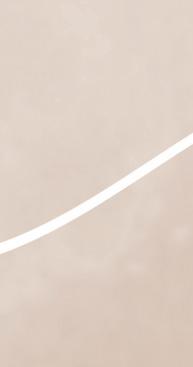
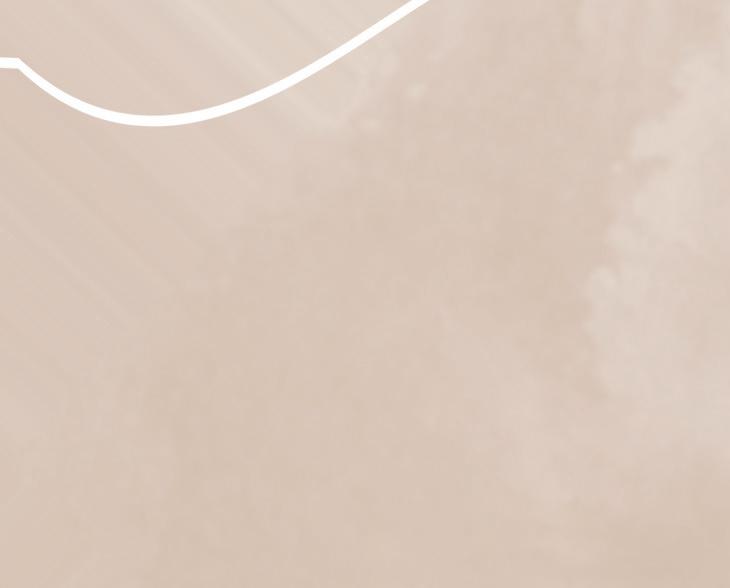
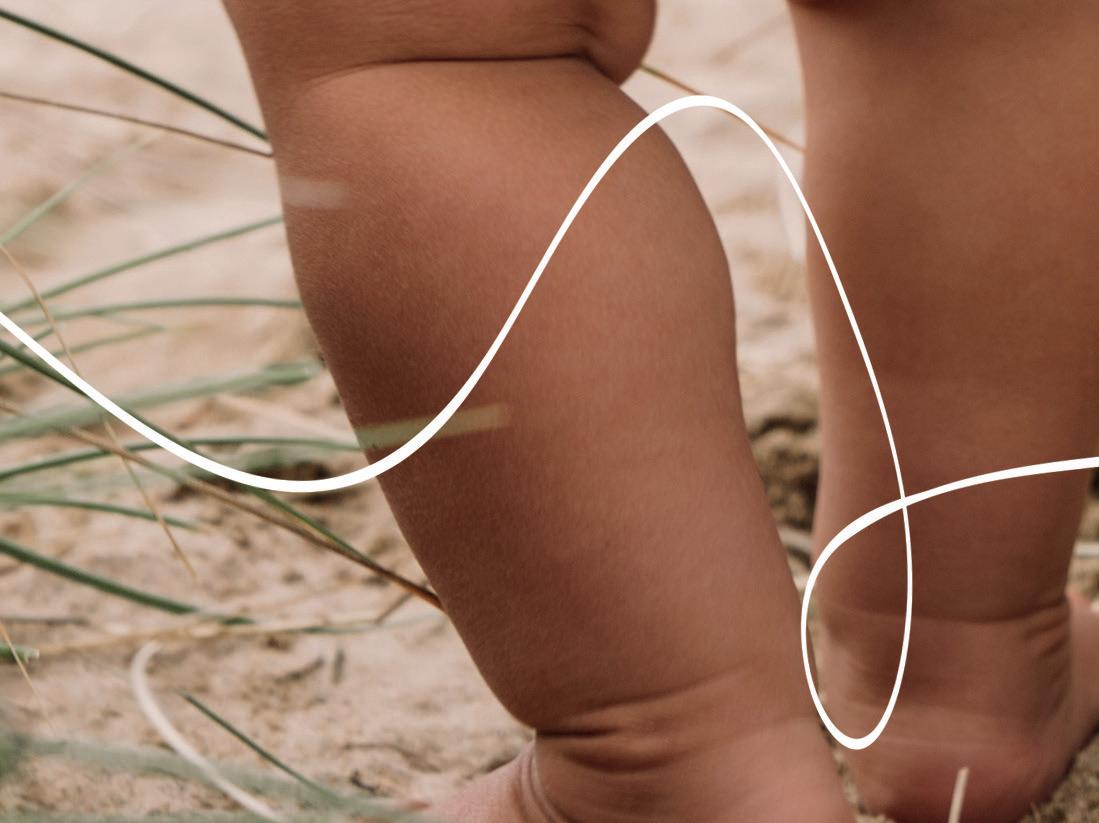


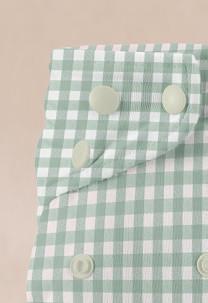

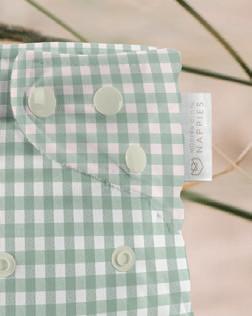
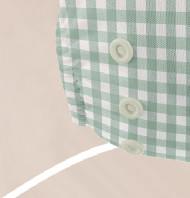
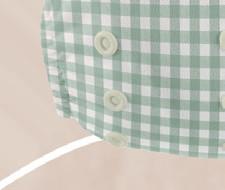
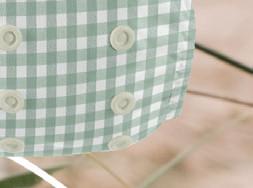
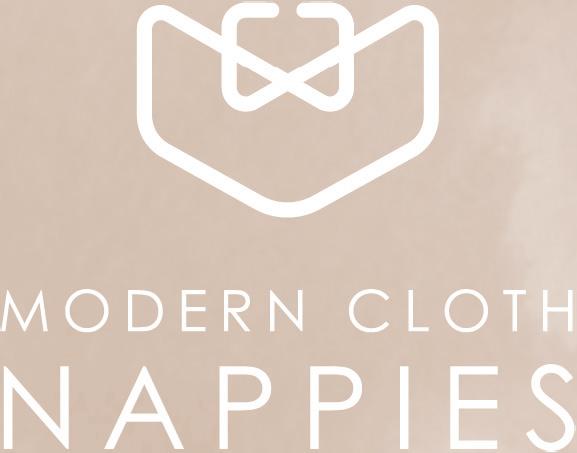

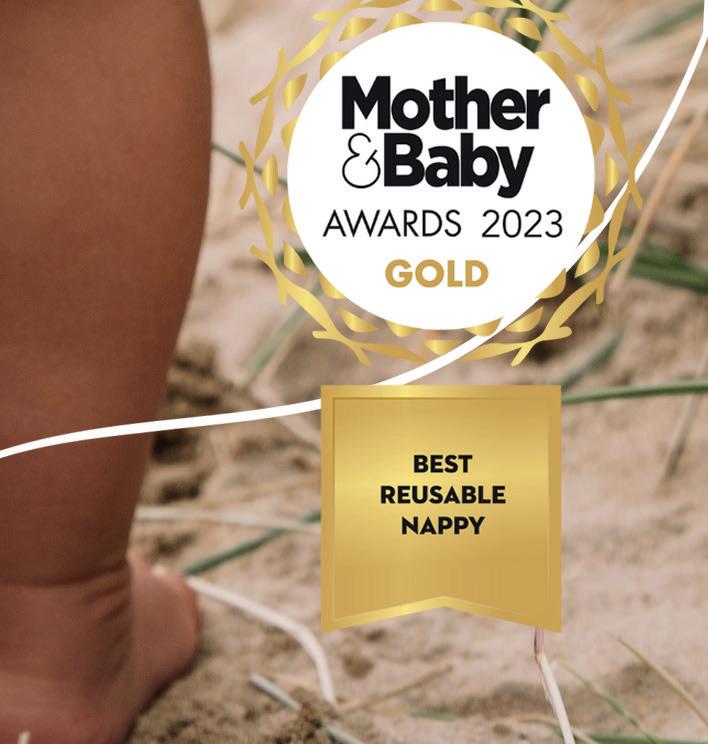
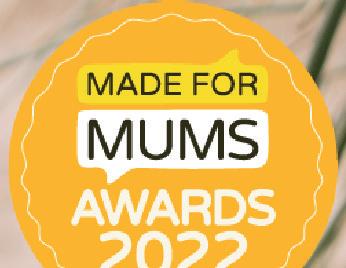

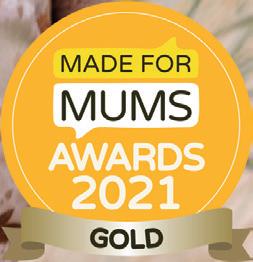
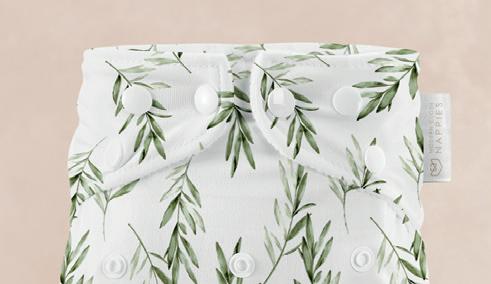
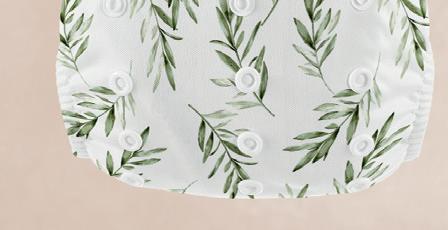
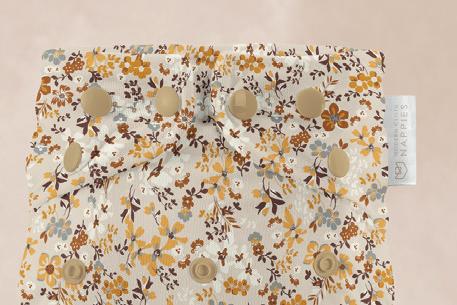
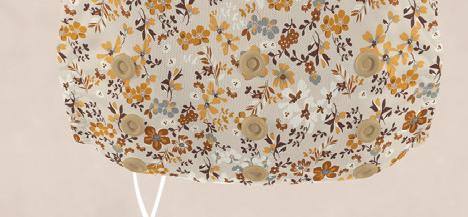



MuslinZ expand
Eco Products range
MuslinZ is continuing to design more eco friendly products to meet Demand as more consumers embrace Sustainability
With more consumers seeking eco-friendly and alternatives to embrace a more sustainable lifestyle MuslinZ has been working on increasing its reusable and Organic ranges.
Aiming to reduce environmental impact many of the product ranges are an alternative to single use products such as wipes and nappies.
Whilst working on sustainability to reduce packaging and with a recent change to 50% recycled polybags. Ensuring manufacturing is also done sustainability with solar powered energy and using seafreight rather than air for a lower carbon footprint.
01295 810008 | info@merrygorounduk.co.uk
www.merrygorounduk.co.uk
Bye, Bye Disposable, Hello Reusable
It is a fact universally acknowledged that babies and toddlers really don’t like cold wet wipes! Disposable wipes are also harmful to the environment, clogging sewers and polluting seas.
We all want to do our best to create a more sustainable future and switching to reusable wipes is a positive step in the right direction. Super soft, AZO Free and chemical free cloth wipes are perfect for sensitive skin, long lasting and will save you money in the long run.
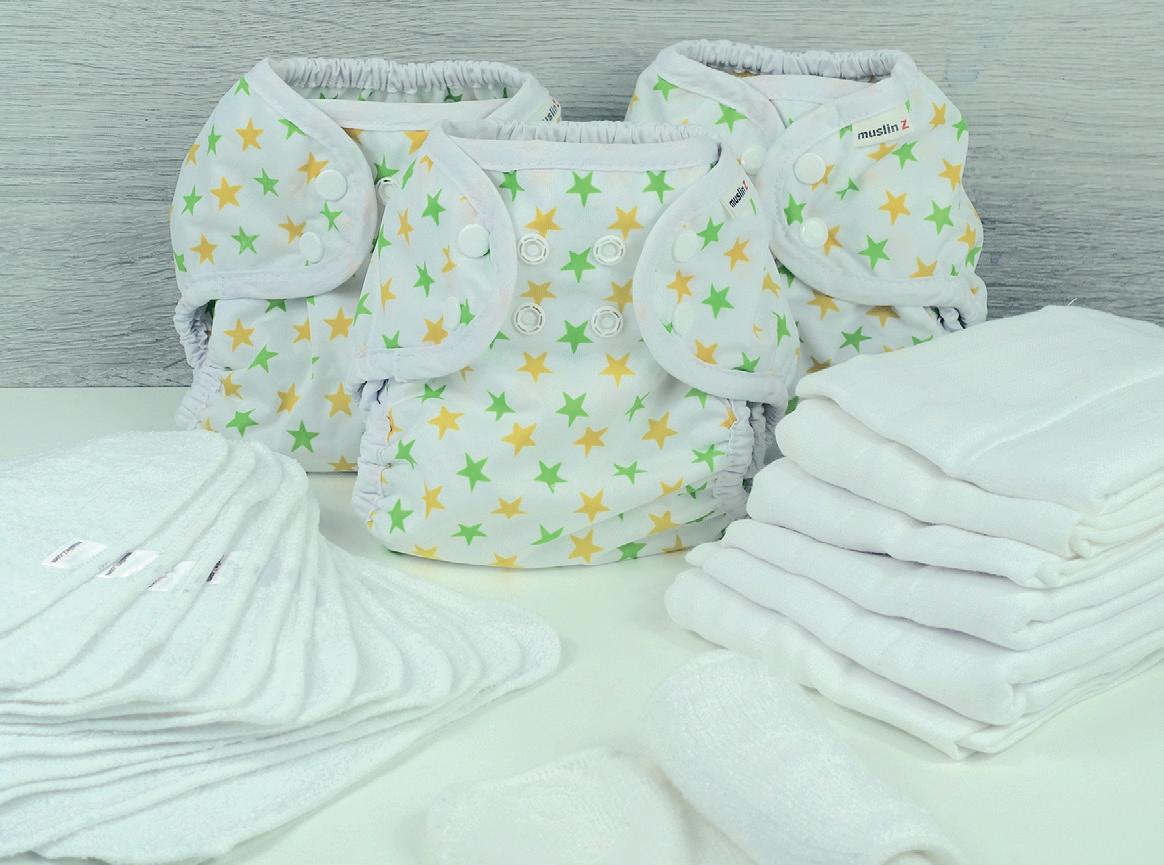
This award-winning range of reusable wipes cover all cleaning scenarios from messy mealtimes to nappy changes. So whatever the need, they’ve got you covered.
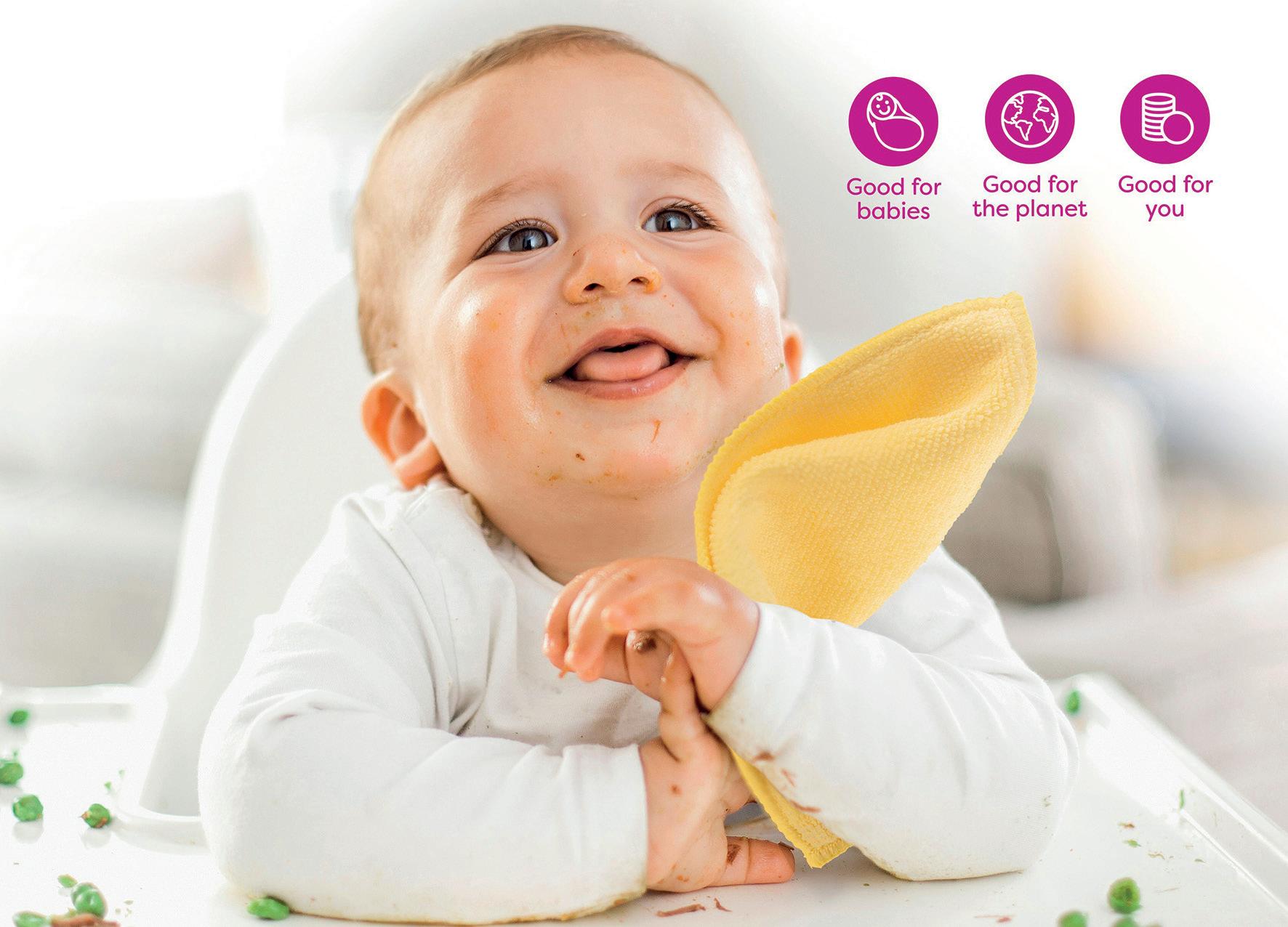
Full range available from Amazon and also their website.
www.littlegubbins.co.uk
Eco Pourty, Recycled and Recyclable!
New from Pourty, a sustainable potty made from recycled post-consumer waste that can also be recycled. An ecofriendly option for potty training parents.
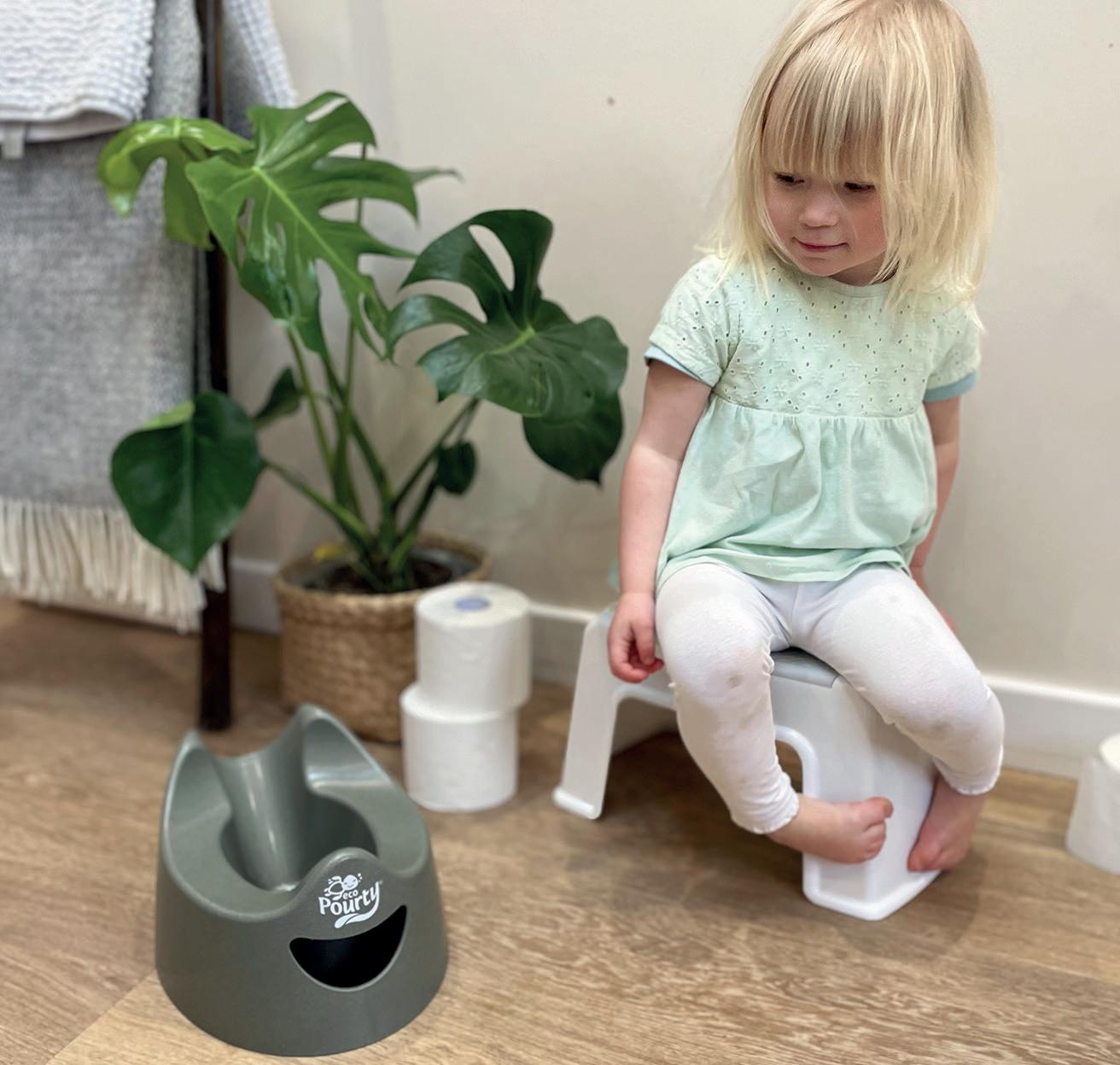
Thirteen years ago Pourty launched its award winning Potty that Pours. The simple and effective non-drip design has been a great success with parents and children. Manufactured from HDPE it is widely recyclable.
Driven by environmental concern as parents themselves, Pourty recognised the need to evolve its product range with sustainability in mind. They have sourced a recycled material made from Tetra Pak to create Eco Pourty. It can be injection moulded without loss of strength or hygiene so is a viable alternative to virgin plastic. When potty training is complete, Eco Pourty can be disposed of in the plastic bin to be recycled again. Labels will be also be recyclable so landfill need not feature in the life of any Pourty potty.
Eco Pourty RRP is £13.95, 25% more than the original due to material costs, but remaining extremely competitive in the potty training market. All Pourty potties are made in the UK.
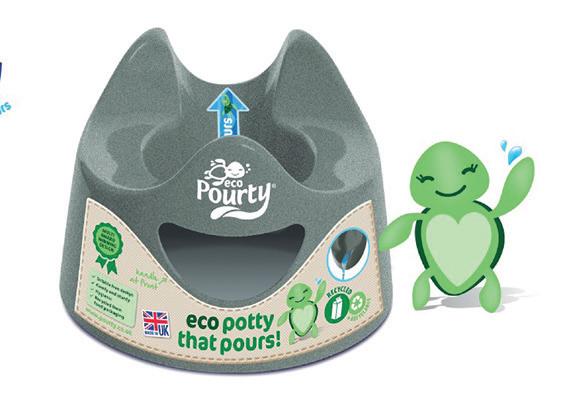
Contact Lucy Rathbone for more details.
info@pourty.com
32 nursery today Eco/Sustainable Focus Nappies & Toilet Training
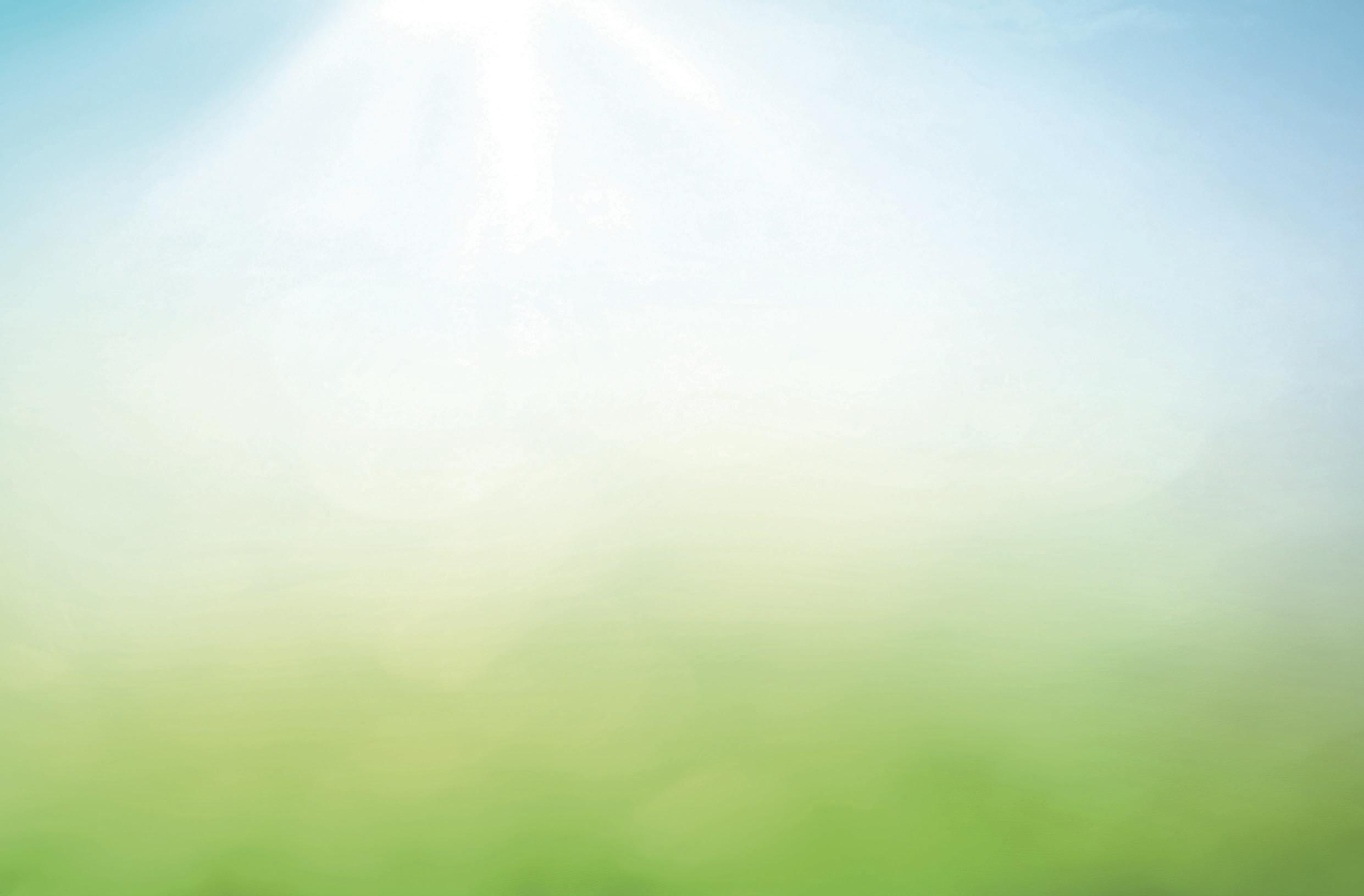
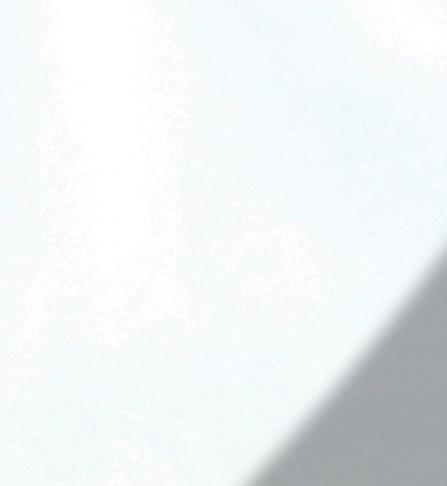
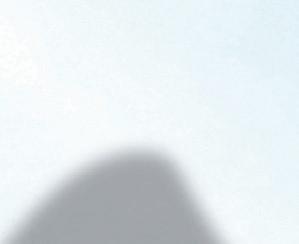
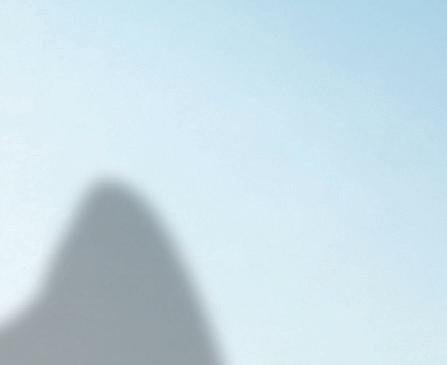
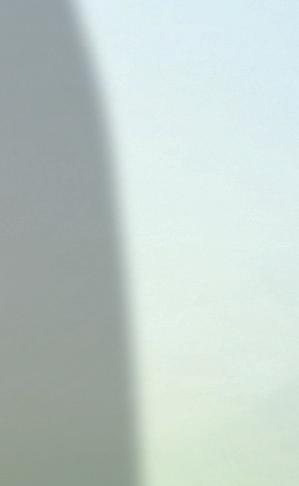
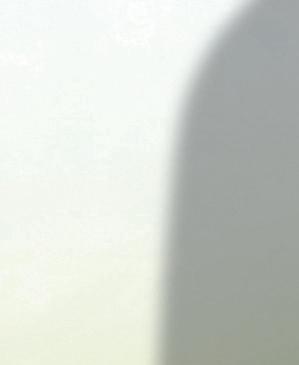

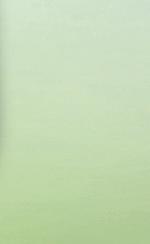

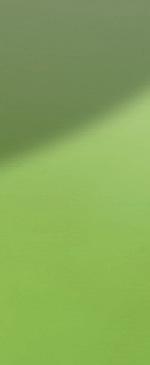
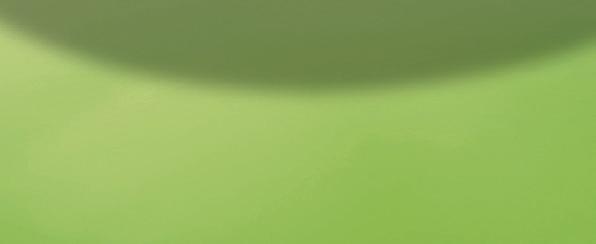
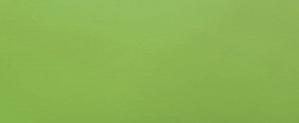
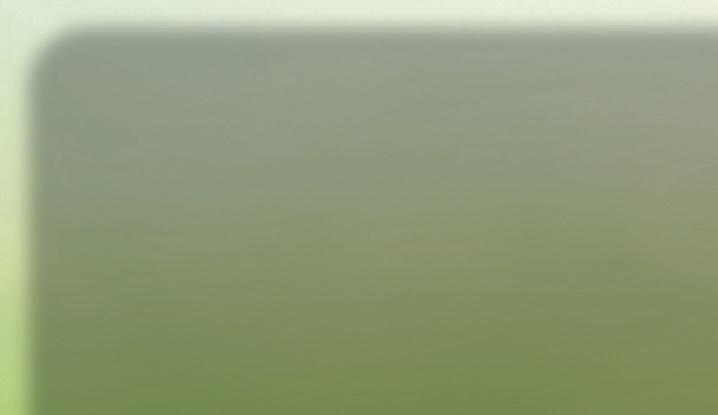



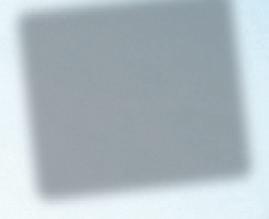
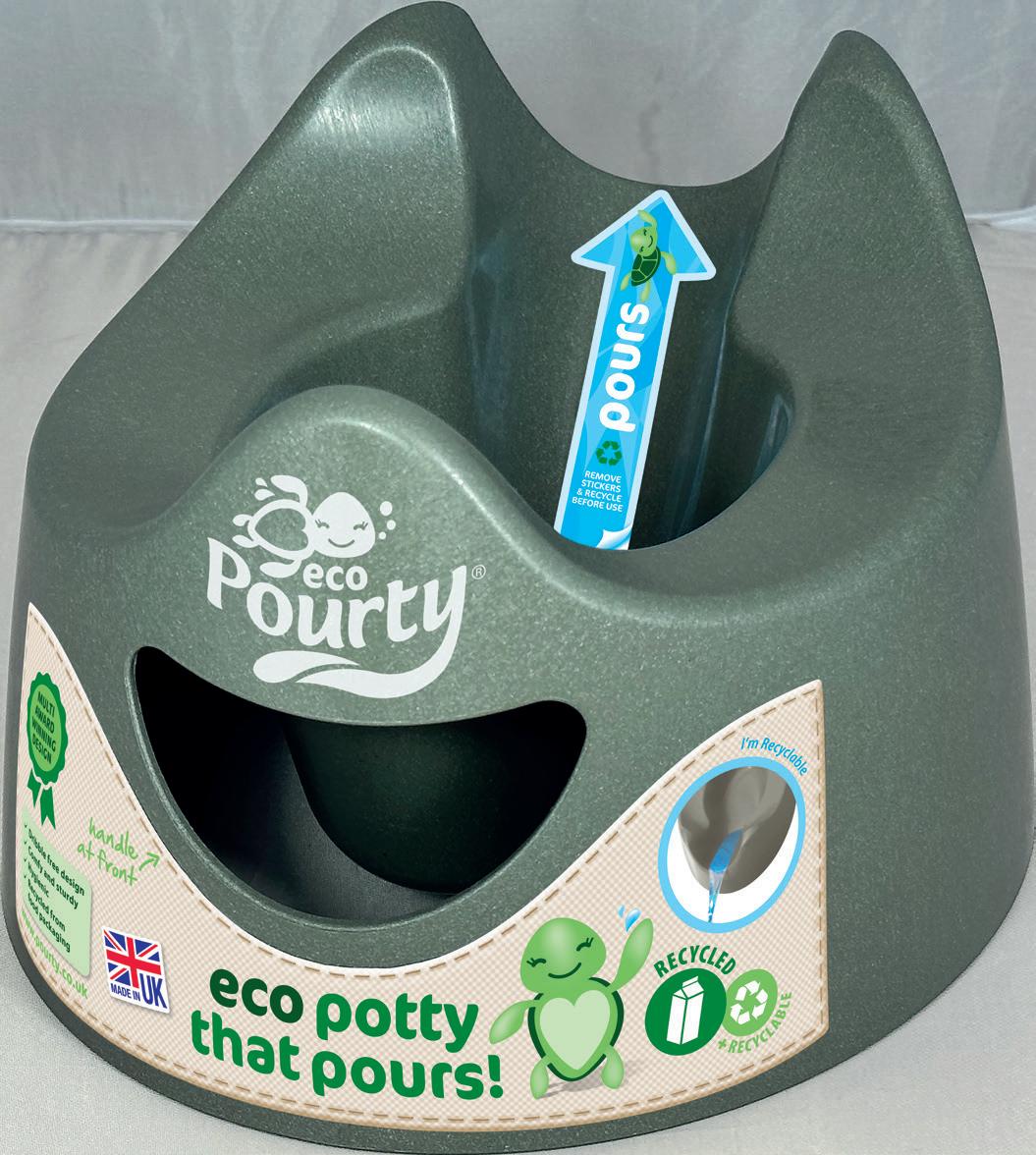
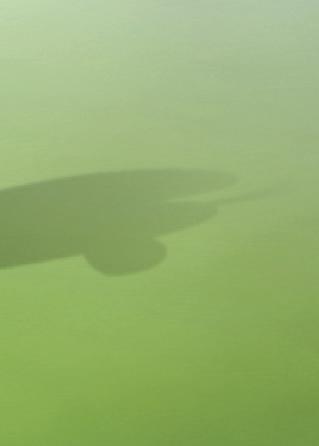
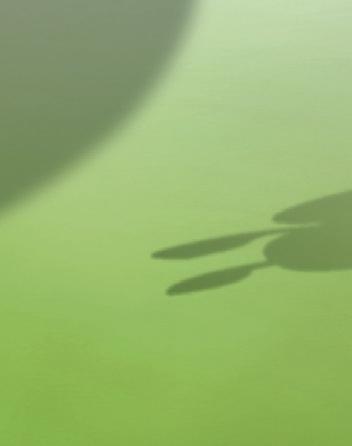
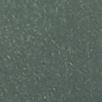
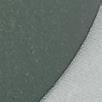
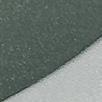
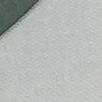
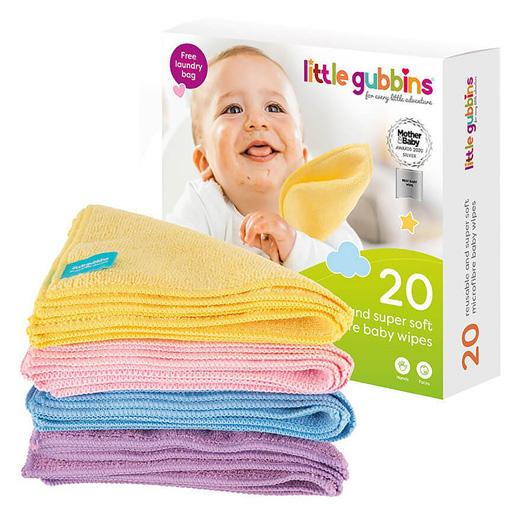
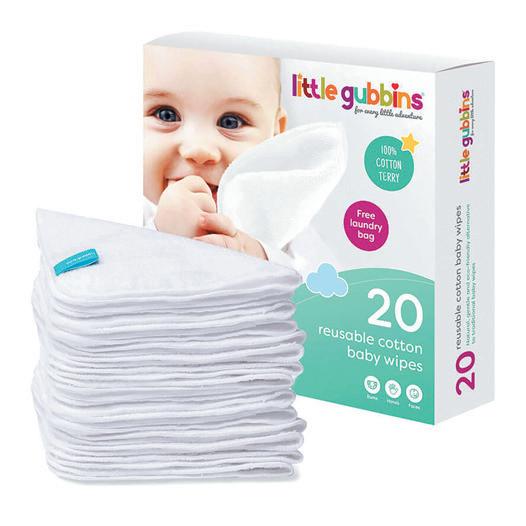

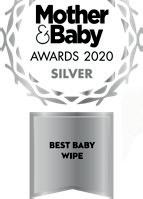
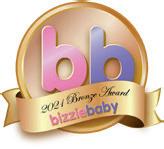
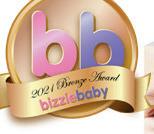
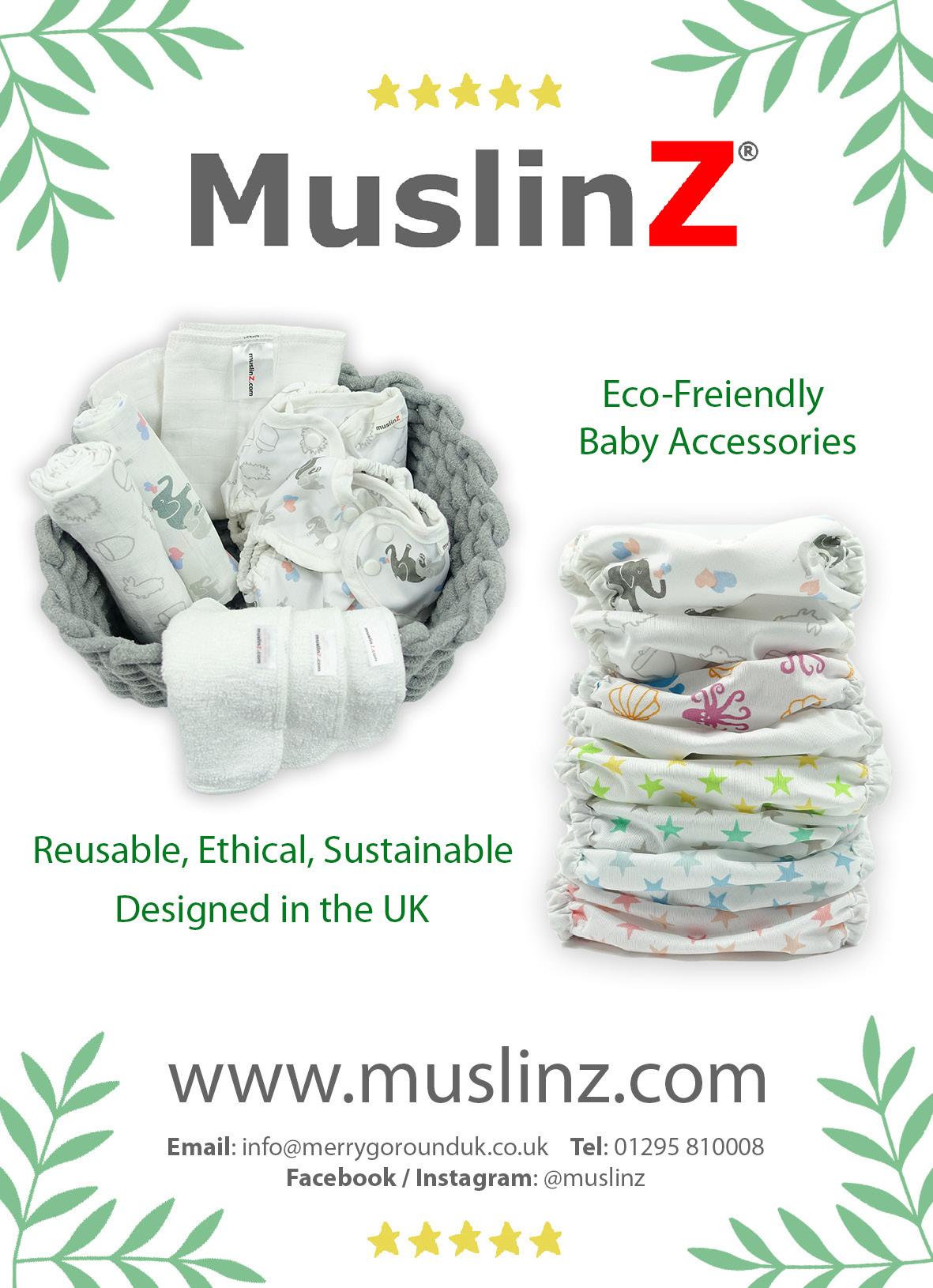
Helping hand for a sustainable future
What are Baby Banks?
Baby Banks are charitable organisations that have become a vital crutch for the referral partners such as health visitors, midwives and social workers that use them to ensure that the families they work with have the clothes and essential kit needed for babies and children in need. All items are given out free of charge.
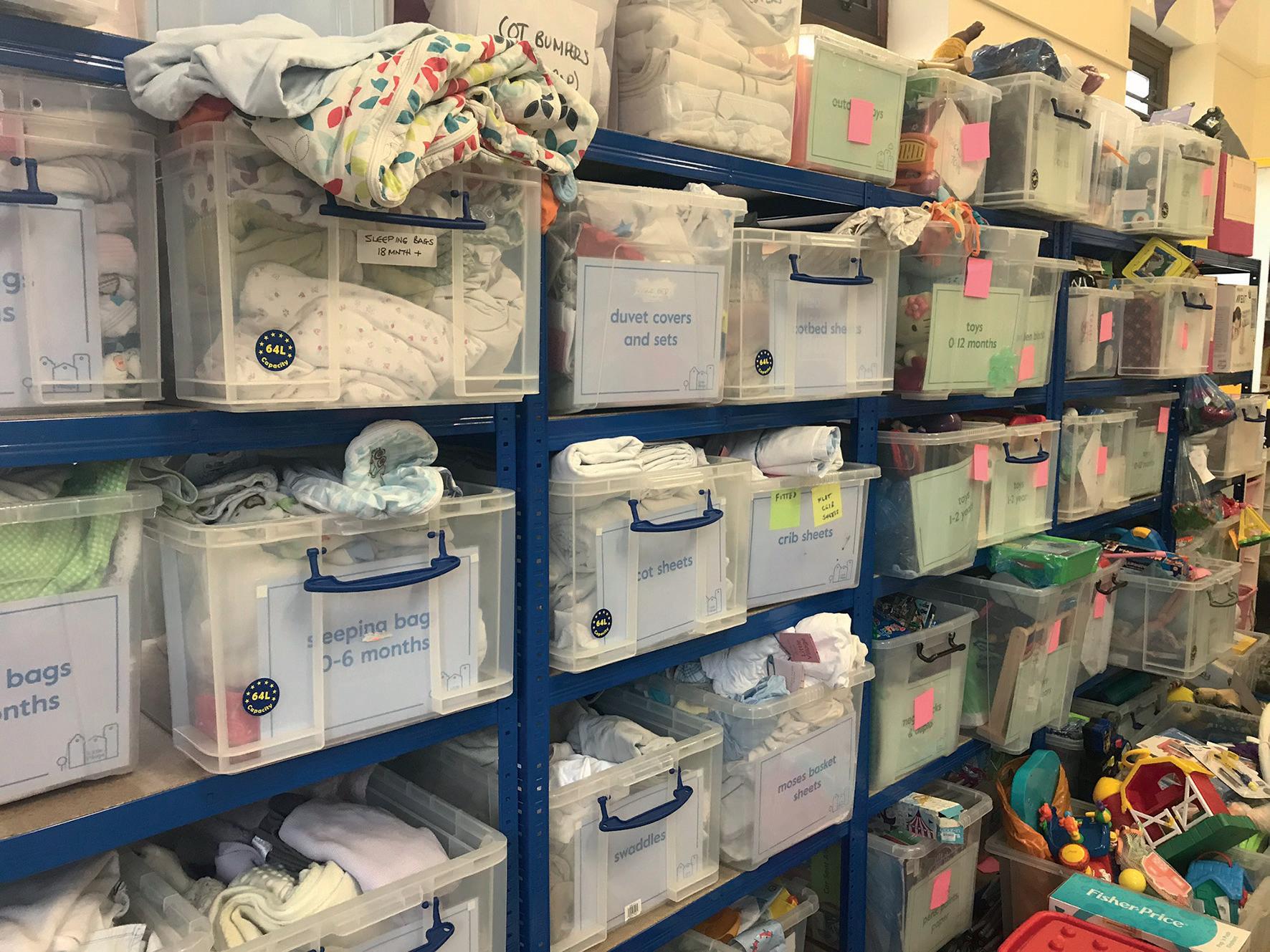
There are over 250 Baby Banks in the UK, that collectively help support many thousands of families and children. These families could contain part of the 27%* of children whose parents are experiencing in work poverty, or may be in a temporary crisis situation, eg are refugees who arrive with nothing, or people who are leaving domestic violence situations. Having a Baby Bank provide the essential kit a baby needs makes a huge difference to a family’s finances. Now more than ever, their contribution is making a bigger impact because we live in a time when families are having to choose between heating or eating.
Baby Banks typically operate by encouraging local families to donate clothing and kit that their children have outgrown, which they then sort, clean, repair and store before passing onto families in need. Baby Banks, whether independent, or part of a larger organisation like a church, typically rely on very limited financial resources. Any money raised is used to pay for things like space and storage, delivery and transportation, utilities and the purchase of new items like nappies or mattresses. Some can employ paid staff, most are led and run by volunteers alone.
The history and future of Baby Banks
The phenomenon of a Baby Bank is relatively new to the UK with most being set up after 2015. A national network is being created by four partners; Little Village, Baby Bank Network Bristol, Save the Children and Ark. Our overall vision is for a society where all children have what they need to thrive, families are part of a wider network of support, and communities develop their capacity to make change and live sustainably.
Even beyond the cost-of-living crisis, or if we do end child poverty, we know Baby Banks have a long-term role within their communities to encourage environmental sustainability, by facilitating the reuse of clothing and kit, as well as helping to build a more resilient support system where members of a community can support each other, and the families and children that are part of it.
The network is currently in the initial phases of setup and is looking for partnerships with nursery brands who are already building for longevity, not for obsolescence and are (or want to) operate with the circular economy, to ask their customers to consider passing their outgrown baby kit and clothes to their local Baby Bank. There are also items that all Baby Banks are required to buy new such as mattresses, toiletries, bottles and teats, spare parts for buggies, cots etc, and we would welcome donations of these items to the individual Baby Banks via the network. We are also keen to work with brands to raise funds to
finance the start up and running of new Baby Banks that are mostly run by entrepreneurial women who are inspired to set up in their local area when they see that there is a need. We know from the gaps in the map www.littlevillagehq. org/uk-baby-banks/ that there is capacity to have a Baby Bank in many more places in the UK and the network will support those interested in setting up one up with mentoring to acquire the specific skills needed to run one.
The role Baby Banks play in carbon reduction and sustainability.
As an example, in 2022, Little Village who run a network of baby banks across London supported 7,009 children by gifting 8,289 referrals of reused and new items worth a total of £2.75 million if all bought new. A referral typically consists of six months’ worth of high quality pre-loved clothing, a cot, buggy, sling, books, toys and a toiletry pack (nappies, wipes and nappy cream).
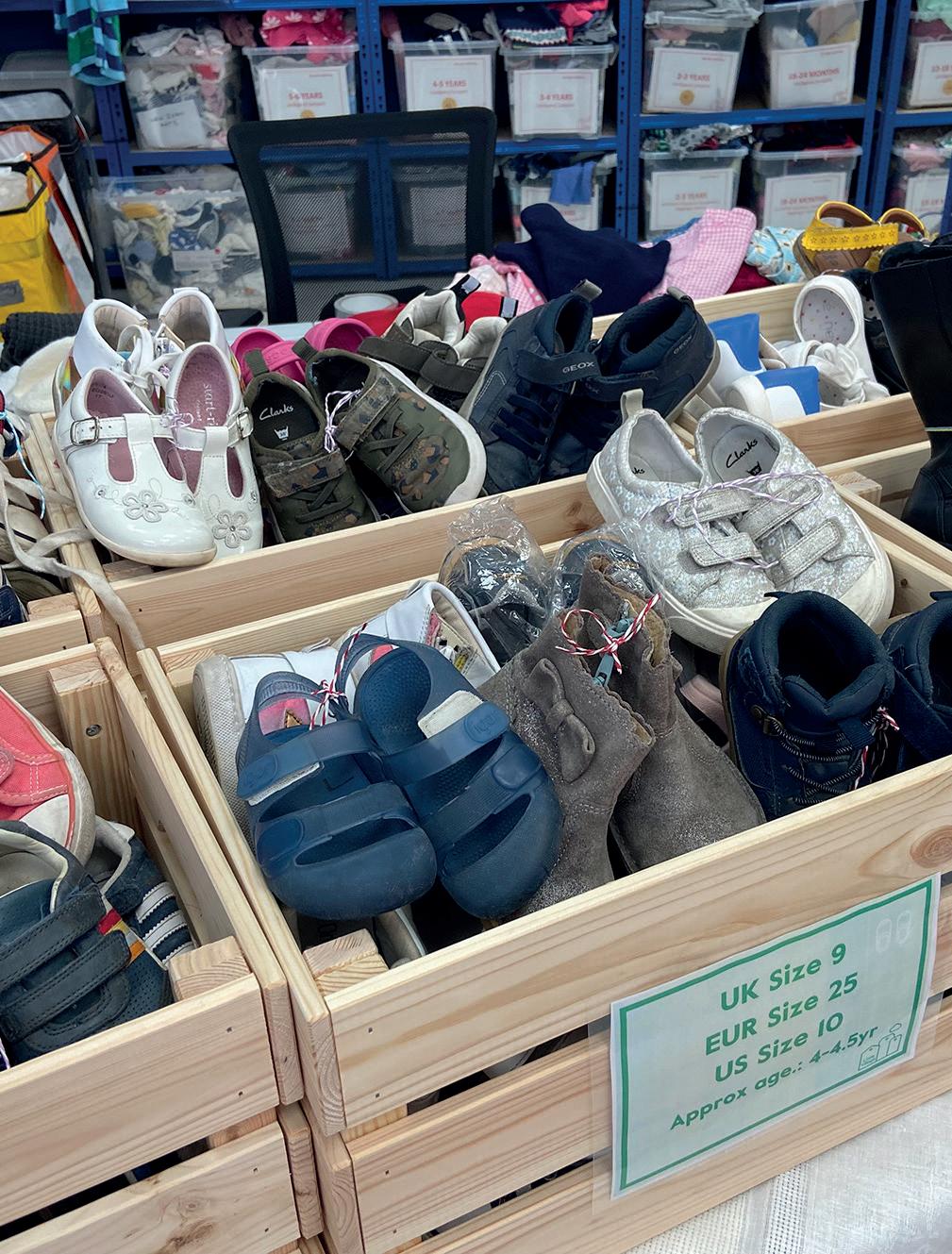
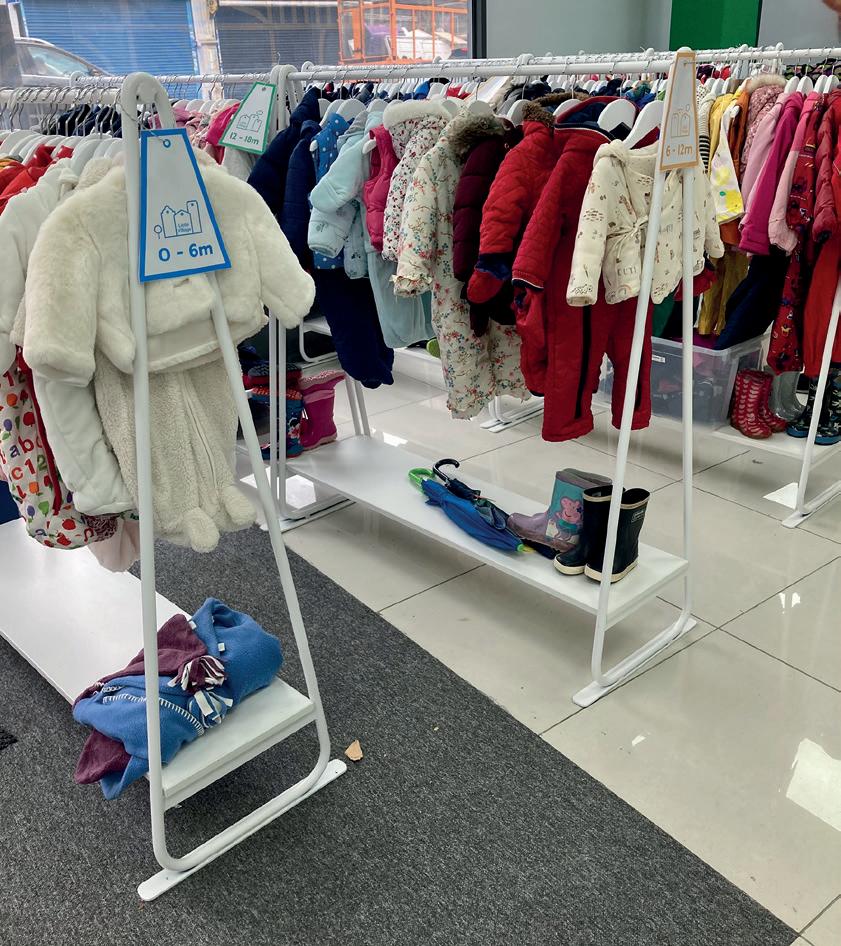
As all the pre-loved kit items are high value items it is easy to see how the volume and value of these items quickly adds up. We can now also measure the carbon impact of our work. Our calculations reveal that a starter pack of preloved items that includes everything from clothing and cot to sling and stair gate saves 66kg of carbon.
The work of Baby Banks also supports 1, 2, 3, 4, 10, 11, 12, 13 of the UN Sustainable development goals. www.sdgs.un.org/goals
*Joseph Rowntree Foundation
34 nursery today Eco/Sustainable In-focus Baby Banks
Baby Banks
–
supporting families in need and helping to create a sustainable future for all our children.
Eva Fernandes (Trustee, Co-founder) tells us more.
Contact eva@babybanknetwork.com 07886001802
Wooden it be lovely
Wooden toys make the best playthings for so many reasons. They are biodegradable, long-lasting, safe, non-toxic, durable and timeless.
Family-run brand, Bigjigs Toys, has been creating sustainable wooden toys for more than 30 years. Now, it’s on a mission to help parents create planet-friendly playrooms full of Earth-kind toys that inspire and excite! Its award-winning Simply Scandi range has grown bigger than ever, with a bunch of new educational toys made from sustainably-harvested FSC Certified wood (and containing zero plastic packaging). Favourites include its pretend play construction sets, wildlife pullalongs, and the charming Woodland Animal Train Set from Bigjigs Rail.
www.bigjigstoys.com
Ethical play
Inside Out Toys is a family business, based on a self-sustaining farm in the heart of Northamptonshire, selling only environmentally friendly children’s gifts.
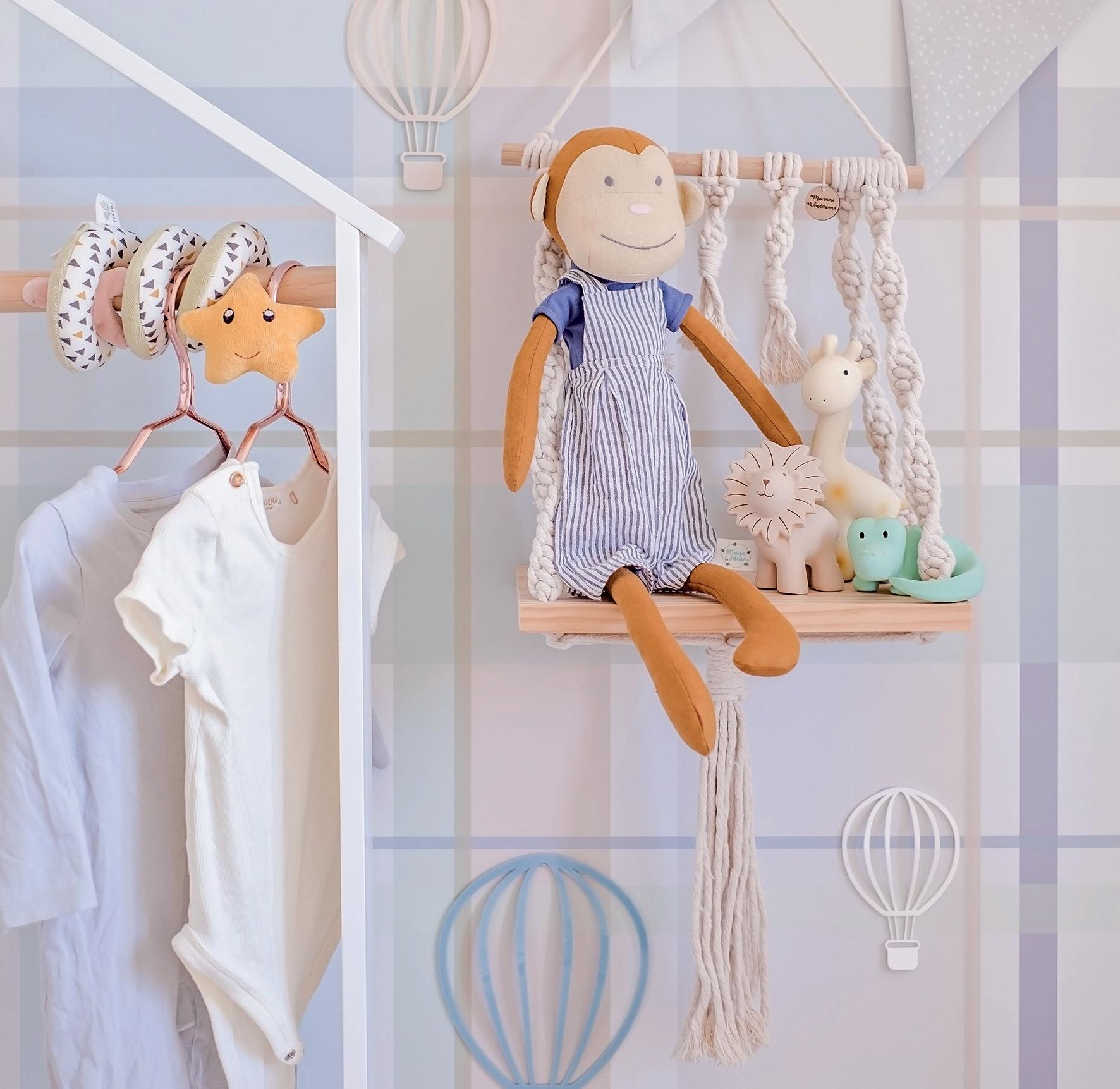
“The end consumer for everything we sell is a child, and we firmly believe it is our ethical responsibility to ensure the toys we supply (and their packaging) do as little as possible to negatively impact the earth those children will inherit.”
Alongside Jumini, IOT’s own brand of FSC certified wooden toys, the company also distributes other brands who can demonstrate a commitment to reducing their environmental impact:
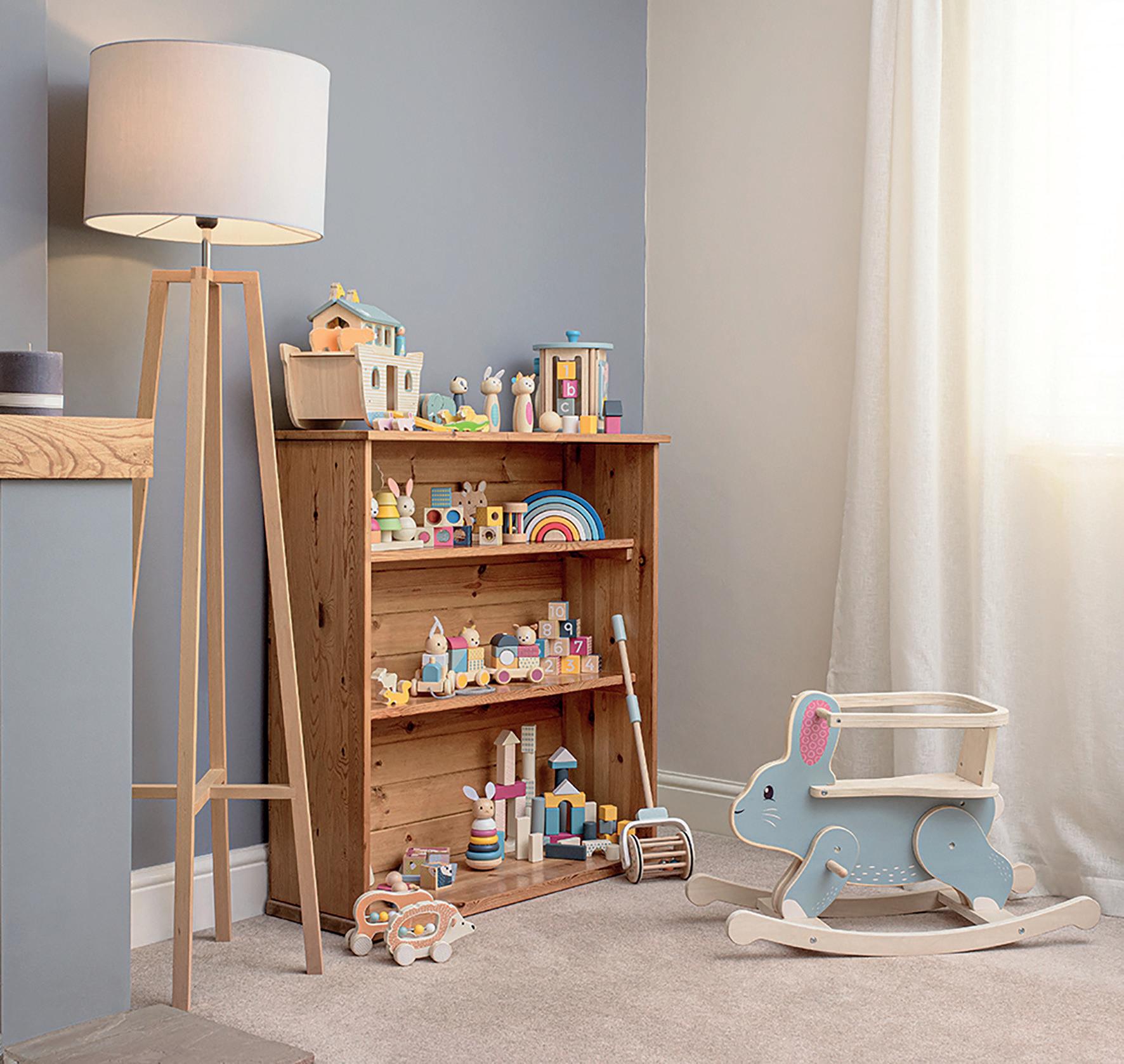
Studio Circus wooden toys (FSC certified) | Tikiri and Bonikka: organic rubber and cotton baby teething toys and rag dolls | Viking Ecoline vehicles made from sugarcane-based bio plastic | Scratch jigsaws made from FSC recycled cardboard | Snails, water based, washable children’s cosmetics |ReCycleMe craft kits designed to reuse household rubbish | FabBrix wooden construction bricks (FSC certified)
www.insideouttoys.co.uk
Eco-friendly water toys from Splash About
Splash About’s range of water toys are developed from both a safety and environmental perspective.
The brand’s Pufferfish for example are soft and tactile, perfect for water play; babies can grab, throw as well as safely chew on this cute toy.
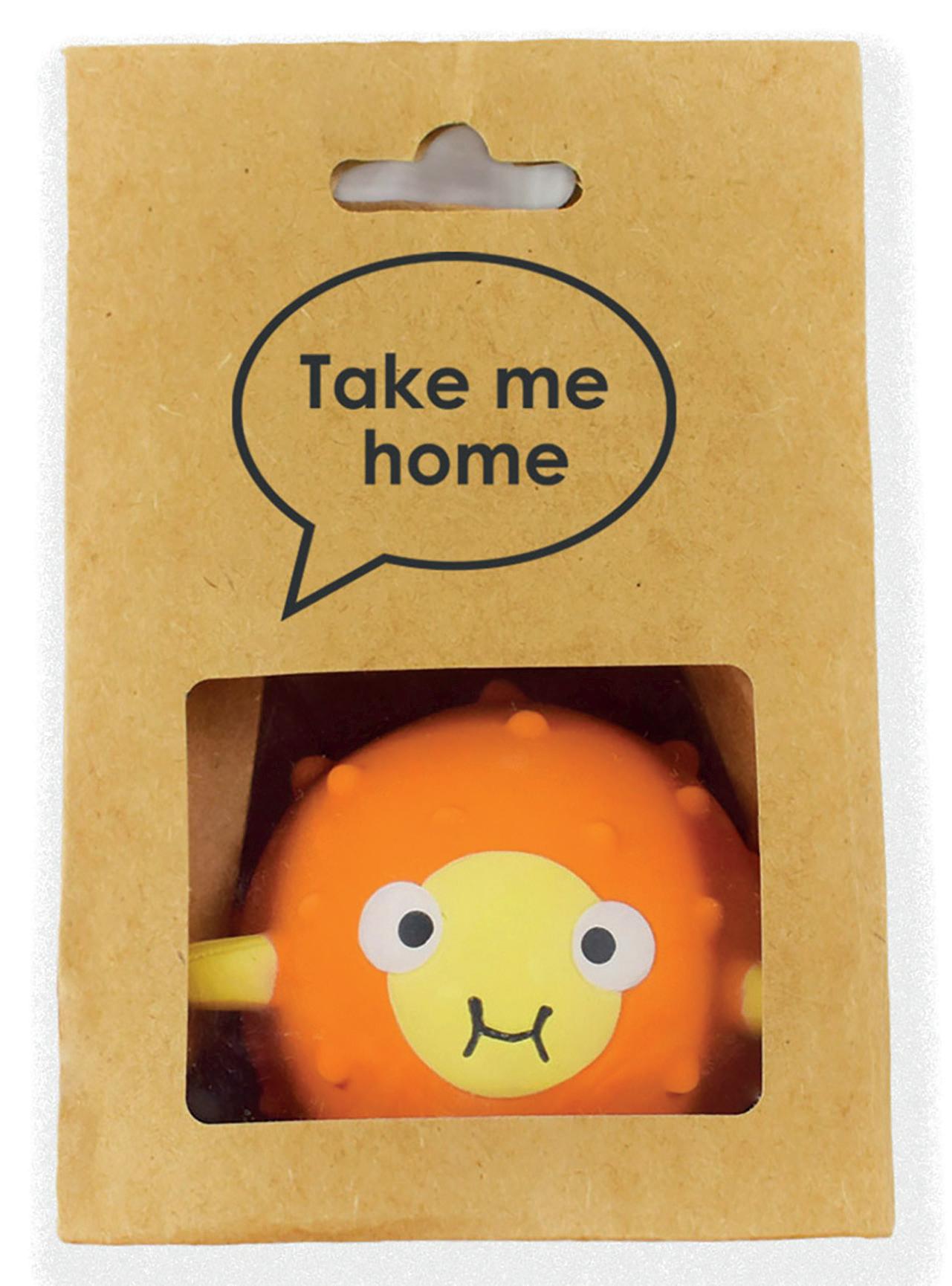
Made from natural latex rubber which is eco-friendly through its lifecycle, latex is procured from plants grown through sustainable methods and helps balance the carbon dioxide in the atmosphere. As rubber is a natural source it’s free from chemicals and is biodegradable so will decompose without causing environmental damage.
As with all water toys, the Pufferfish are free from toxins and dyed using food grade paint, they are also specifically designed without squirt holes, meaning water can’t enter inside to create an unhealthy build-up of black mould.
The Pufferfish’s eco-credentials extend to packaging, which is recyclable brown paper bags. Affordable, ergonomic designs and safe to double up as a teether for babies who put everything in their mouths!
www.splashabout.com
nursery today Eco/Sustainable 25 Focus Toys
New Baby, New World
Keeleco Baby - Soft toys that don’t cost the earth. 100% Recycled. 100% Huggable.
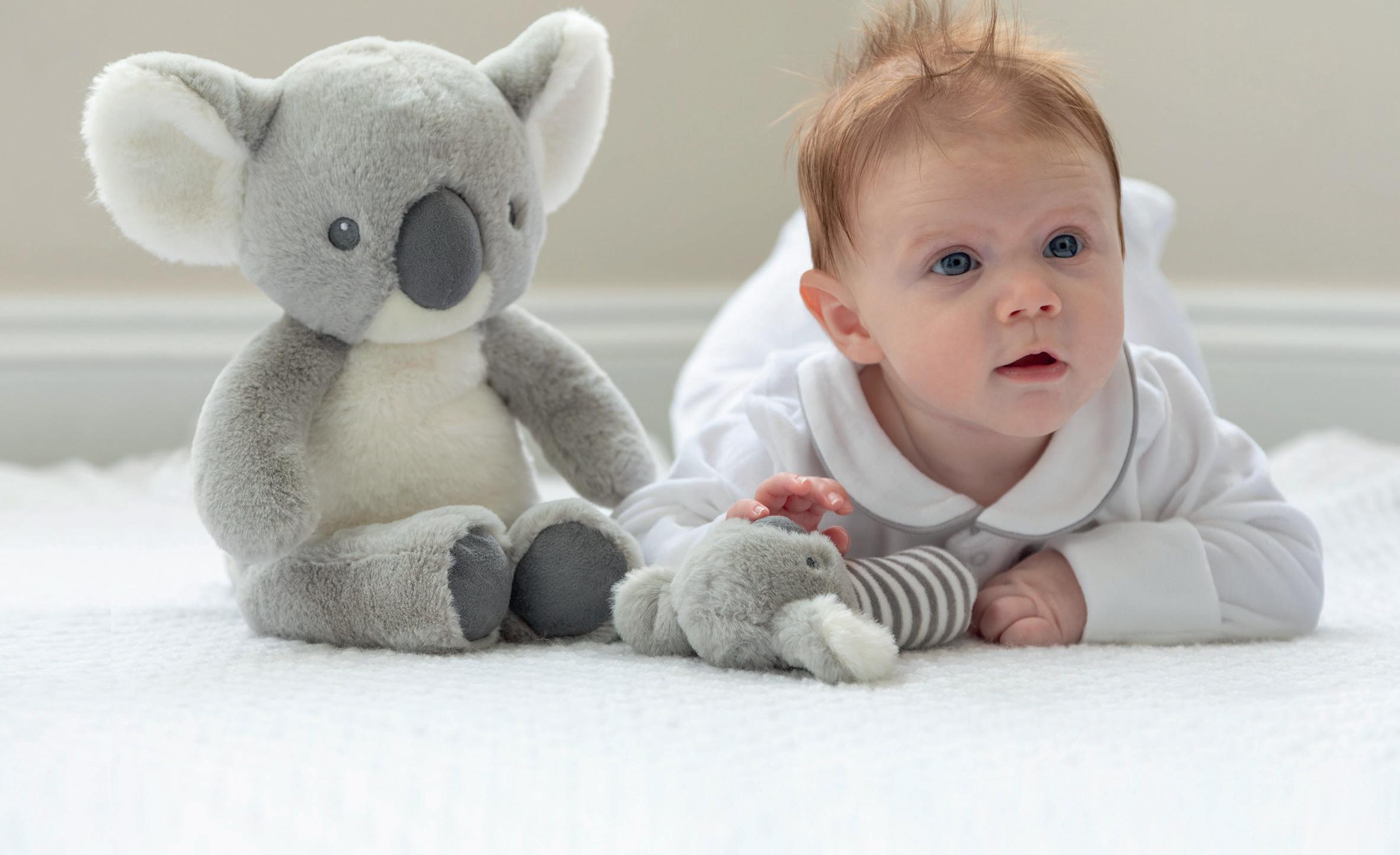
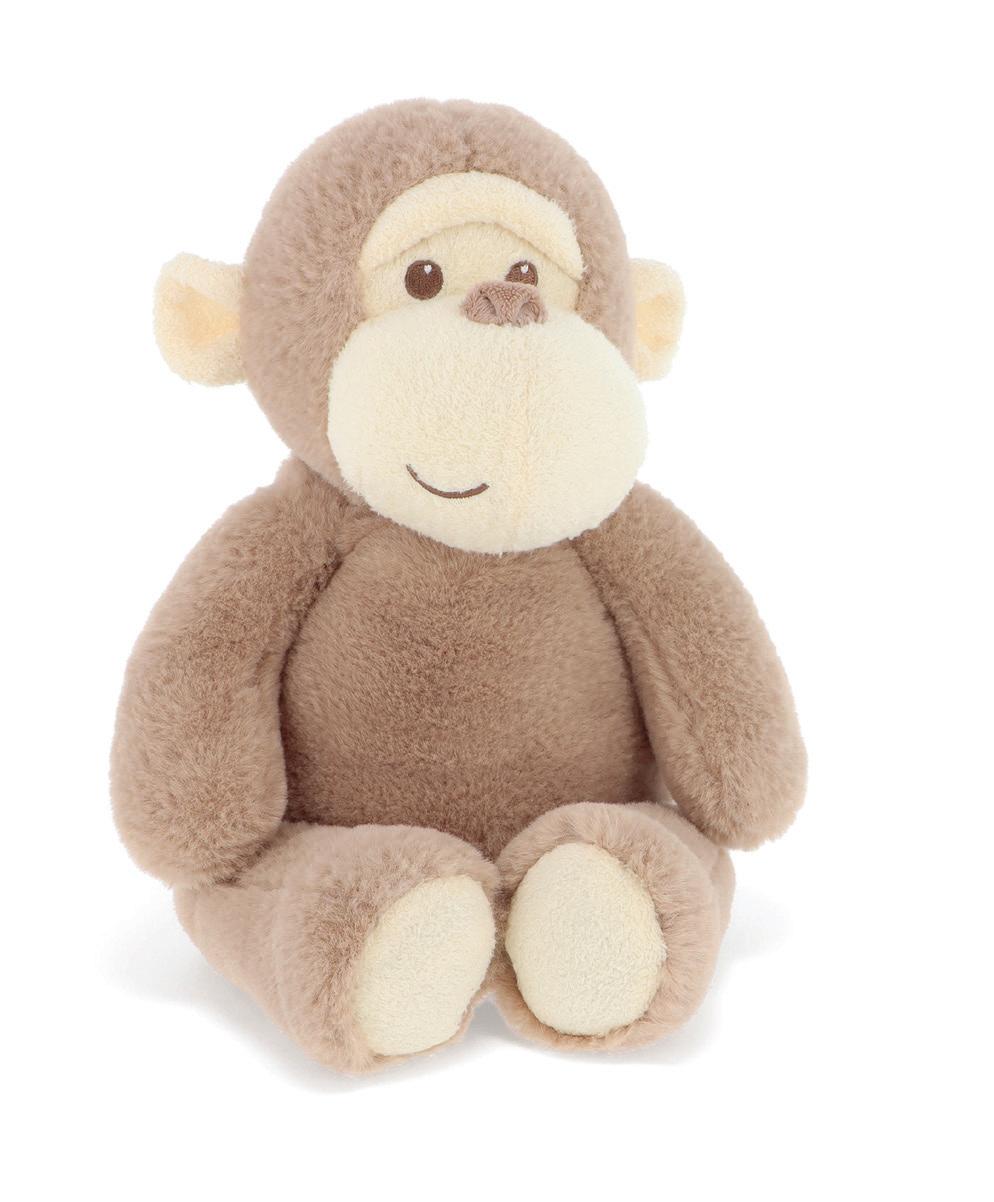
Keel Toys celebrated their 75th Anniversary in 2022 and their ongoing commitment to creating a sustainable future for generations to come has never been more important.
In 2020 Keel Toys designed and launched Keeleco, a 100% recycled range of soft toys. These beautiful eco-friendly toys are manufactured and filled with 100% recycled polyester made from plastic waste. This
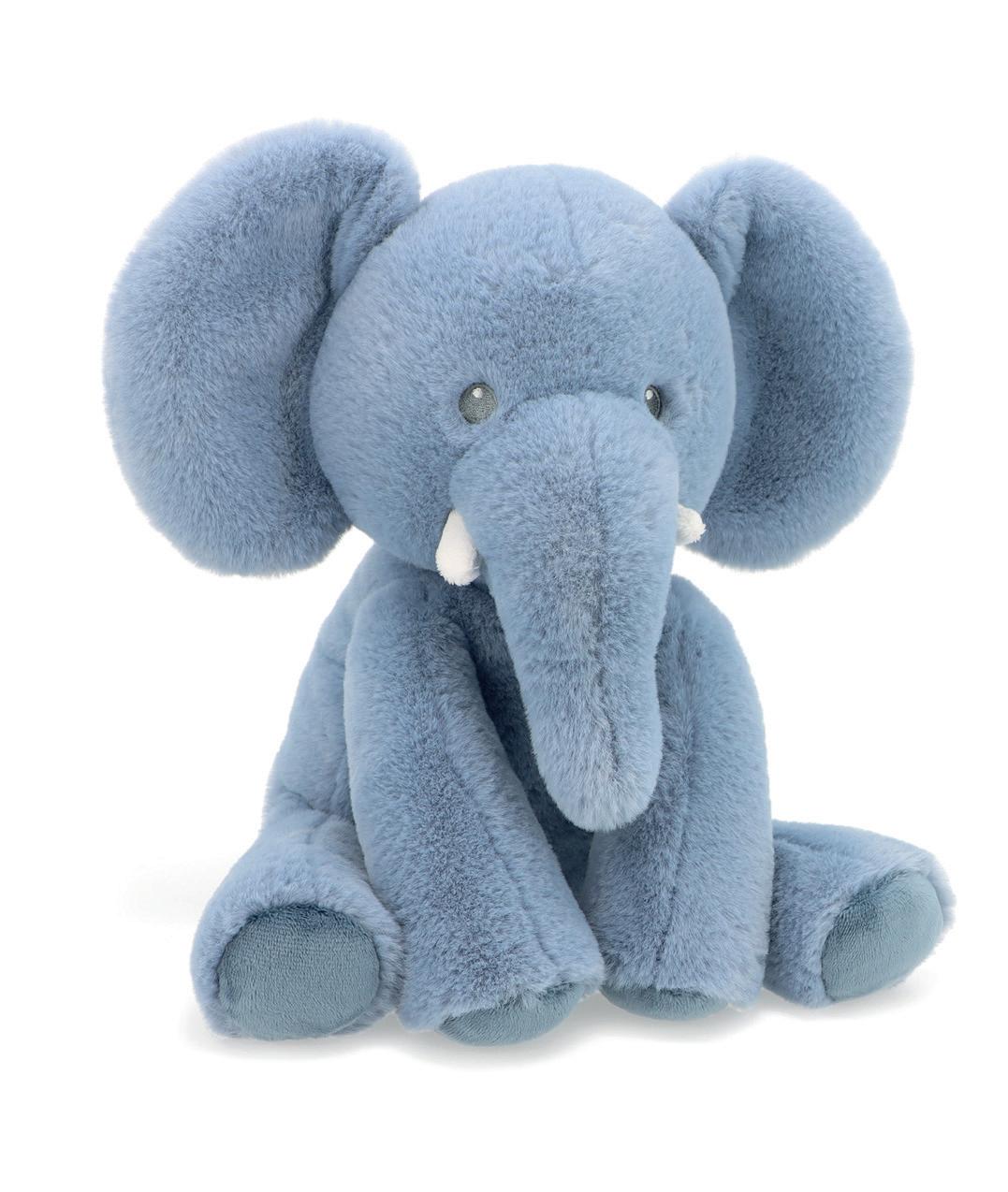
process gives plastic a second life and uses less energy to produce than virgin polyester, as an example 10 water bottles (500ml) will produce enough fibre to make an 18cm toy.
The iconic Keel logo and hangtag are now formed from FSC card and attached to the toy with cotton, even the shipping cartons are made of 100% recycled board. They have also eliminated internal polybags in the cartons of stock, so there are no single use plastics used in the delivery of Keeleco ranges. All of their toys are manufactured in an ICTI ethically audited factory to the highest social and environmental standards and fully certified to UKCA and EN71 Toy Safety Standards.
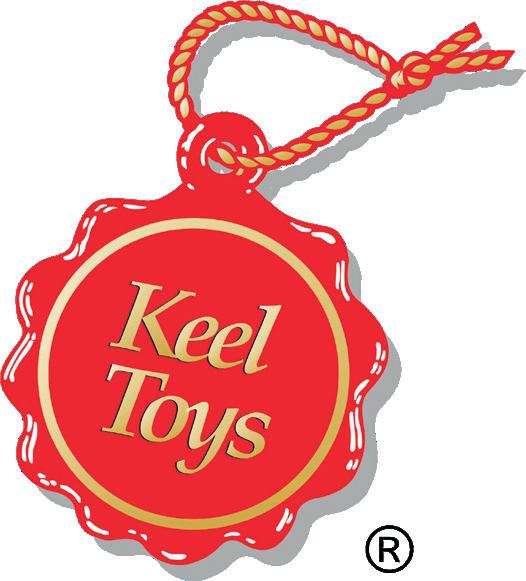
Keel Toys are delighted to announce that in just the three years after launching Keeleco they have recycled the incredible figure of more than 100 million water bottles in the manufacture of the range (figures correct to the end of 2022 stock production). 70% of the entire Keel Toys collection is made from 100% recycled materials, this allows them to offer their
business partners the most complete sustainable soft toy collection in the marketplace today. The range includes Wild, Farm, Sealife, Dinosaurs, Teddy Bears, Puppies, Kittens, Keeleco Adoptable World, Seasonal and of course Nursery. Keeleco Baby is a completely sustainable soft toy range and the first 100% recycled nursery collection available in the UK when launched in 2021. The original Keeleco Baby assortment of Huggy Giraffe, Cozy Koala, Cuddle Zebra & Lullaby Lamb were an instant success, which have led to the 2023 additions of Ezra Elephant & Marcel Monkey. The collection features huggable plush, ring rattles, stick rattles and soft cuddly blankets all lovingly made with beautifully textured exclusive fabrics and embroideries. The Keeleco Baby range has been extended to classic nursery Teddies, Rabbits & Puppies in a range of natural colours, making it the most comprehensive collection available. To convey the Eco awareness all the ranges are clearly labelled with the sustainable message and offered
with a variety of retail solutions and POS including an eye-catching tiered floor standing display unit.
“ ”
The Keeleco range now features well over 350 products and Keel Toys commitment to expanding this collection will continue throughout 2023 and beyond. Their UK based Design Team is already working on many new Keeleco products and collections to reinforce their position as the number 1 sustainable soft toy supplier in the market today.
If you would like to learn more about the Keeleco ranges, Keel Toys team of highly experienced Sales Professionals would love to pay you a visit. Alternatively Keel Toys will be launching their latest ranges at the Autumn Fair – NEC Birmingham from the 3rd to the 6th September, see them there for a warm welcome and some beautiful products.
01233 506363
36 nursery today Eco/Sustainable
Focus Keel Toys
sales@keeltoys.com www.keeltoys.com
Keel Toys are delighted to announce that in just the three years after launching Keeleco they have recycled the incredible figure of more than 100 million water bottles in the manufacture of the range
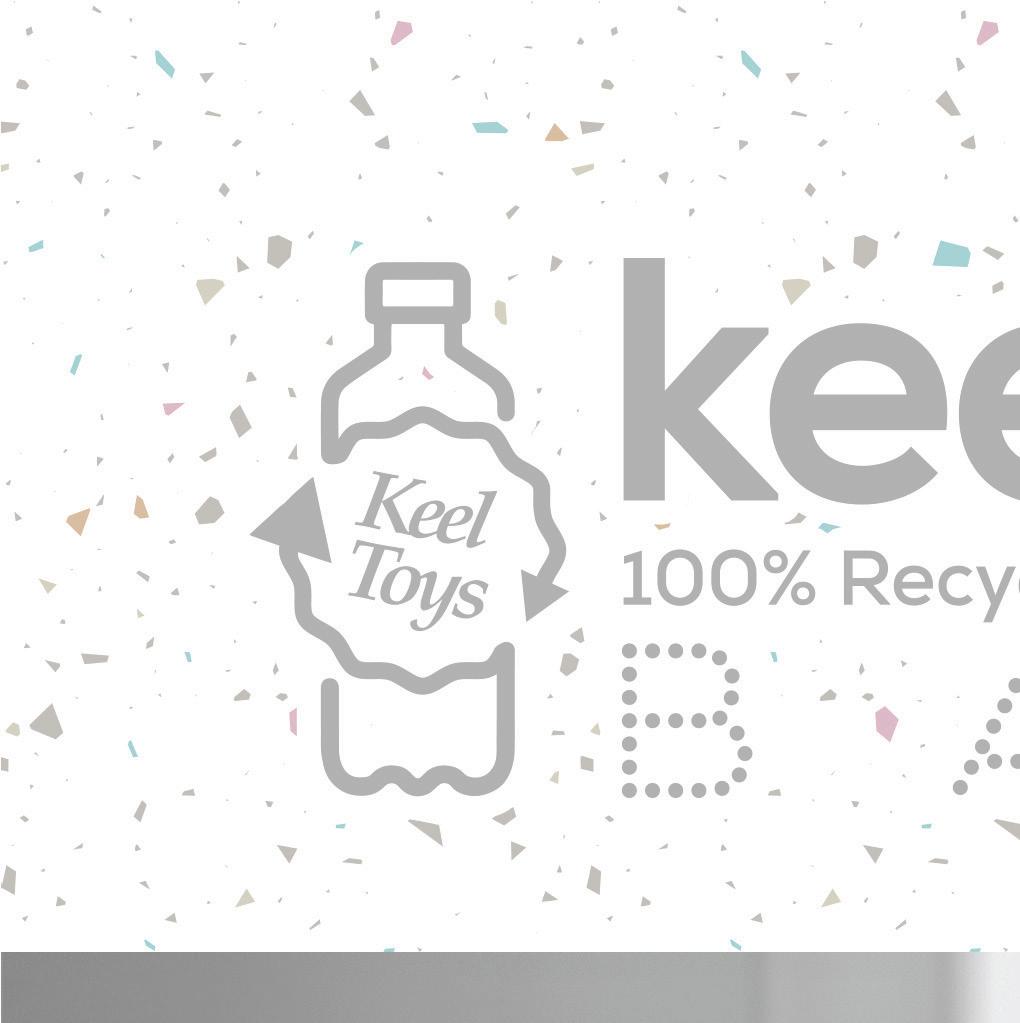
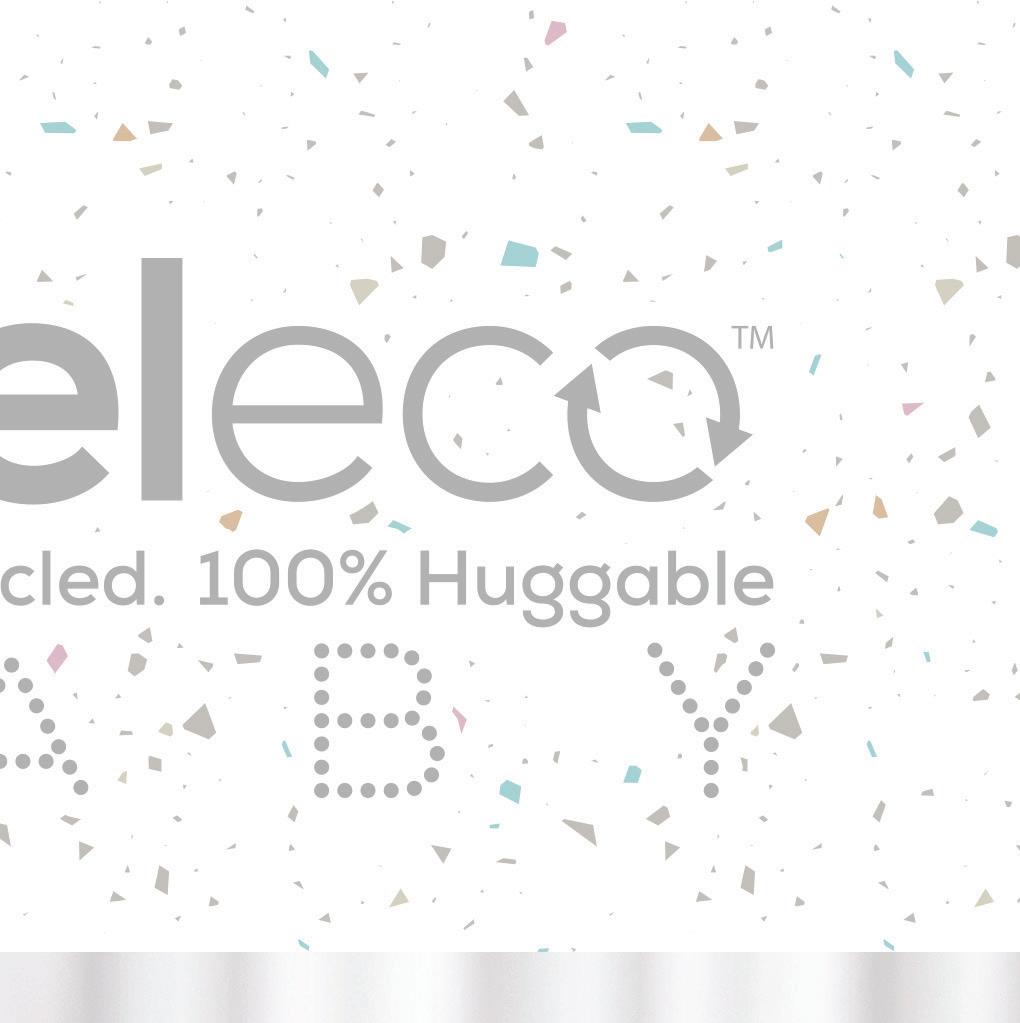
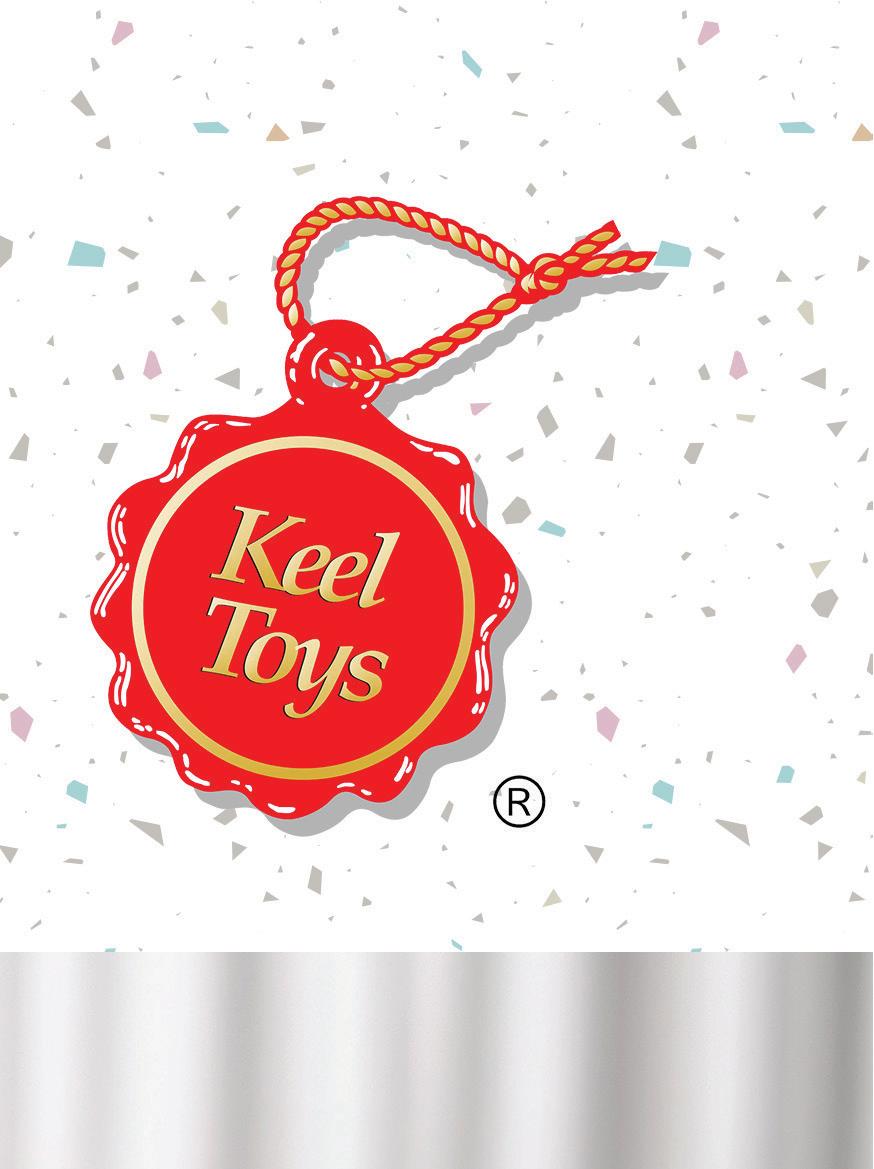
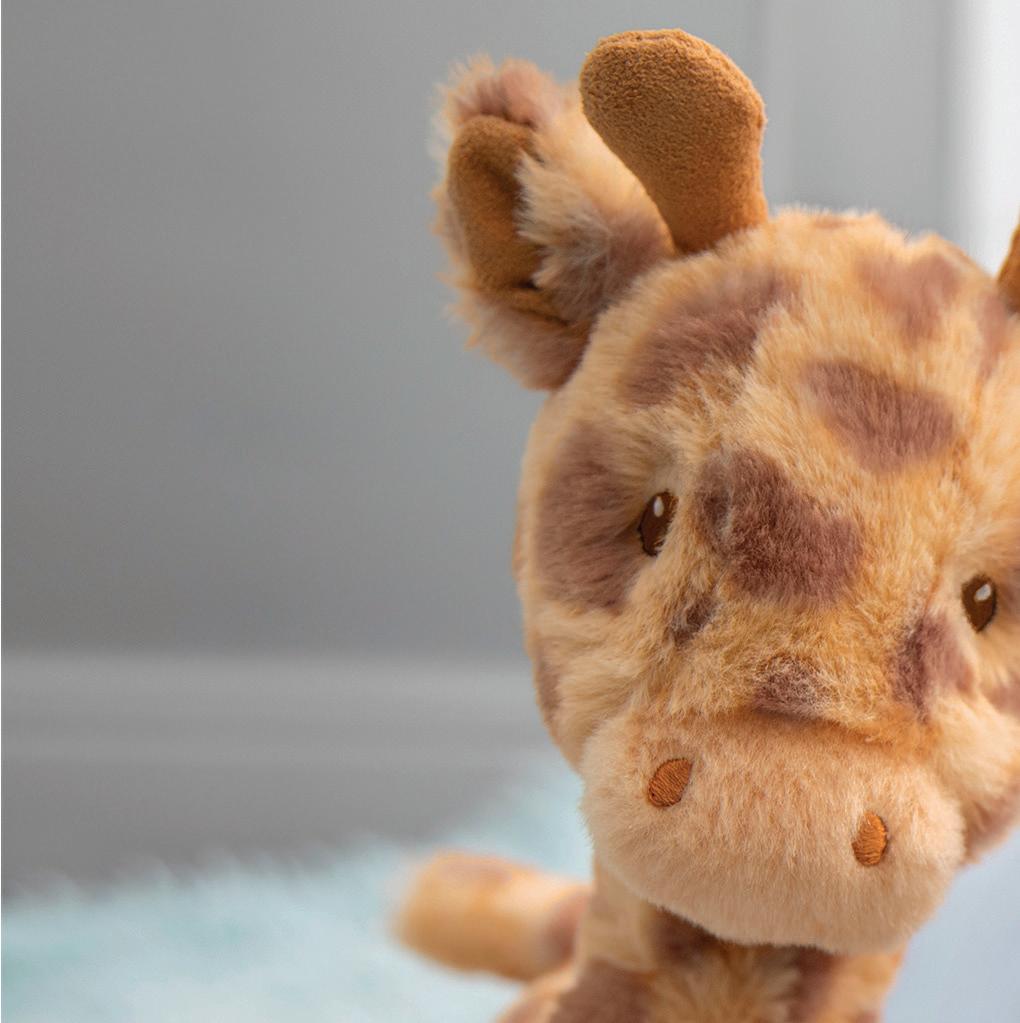
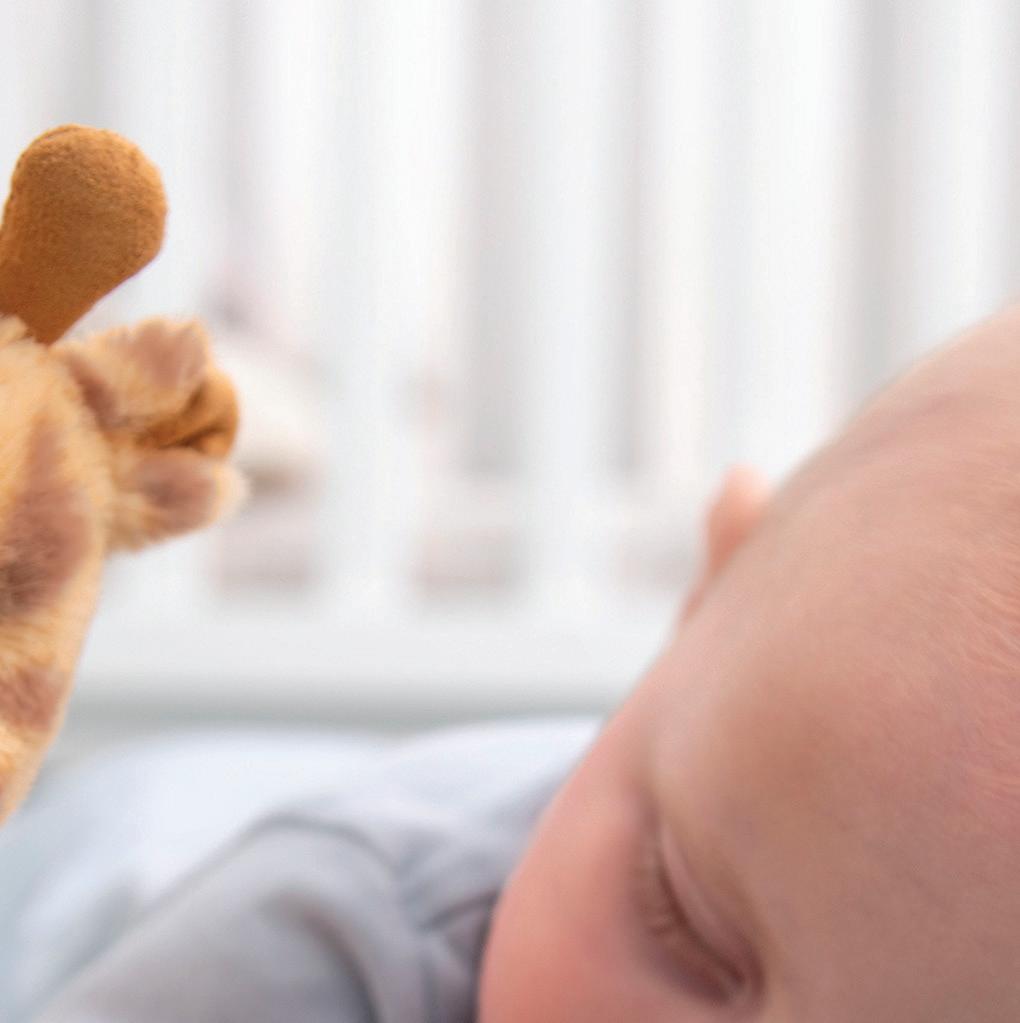
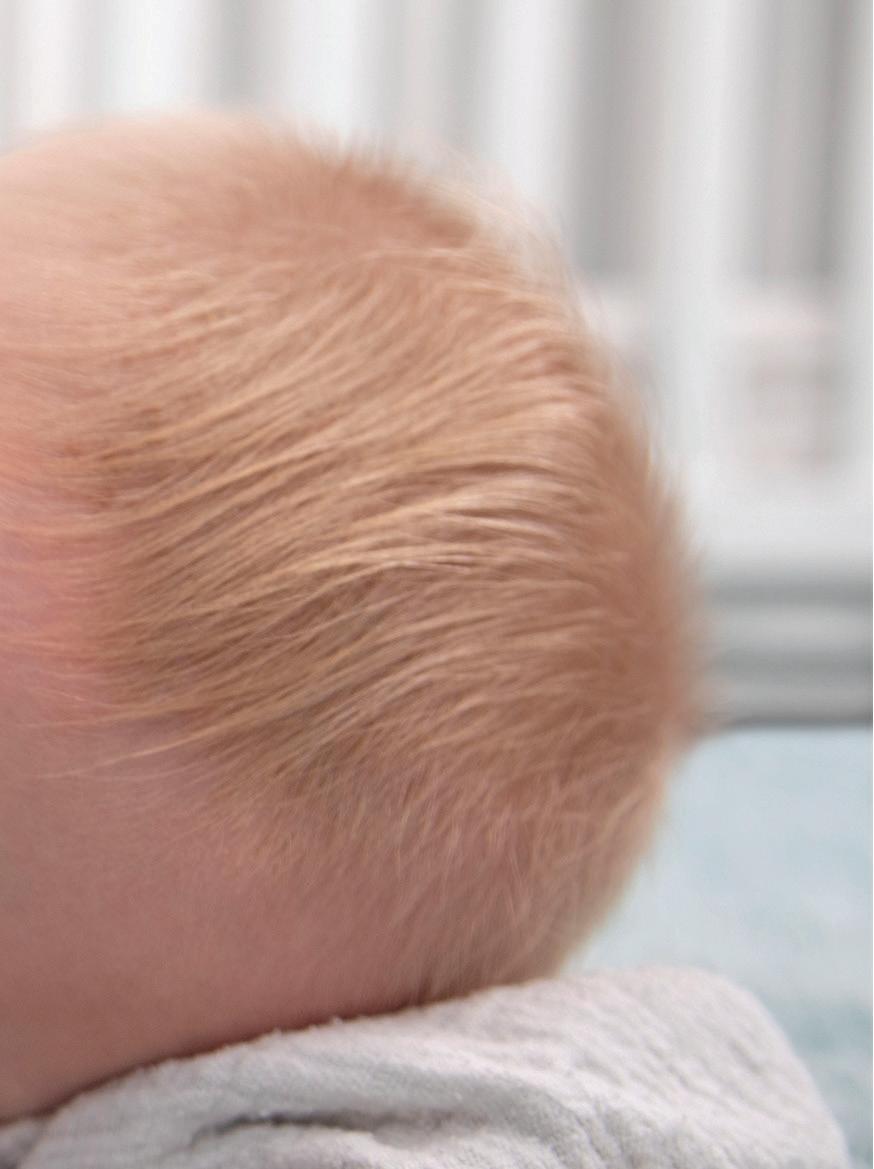
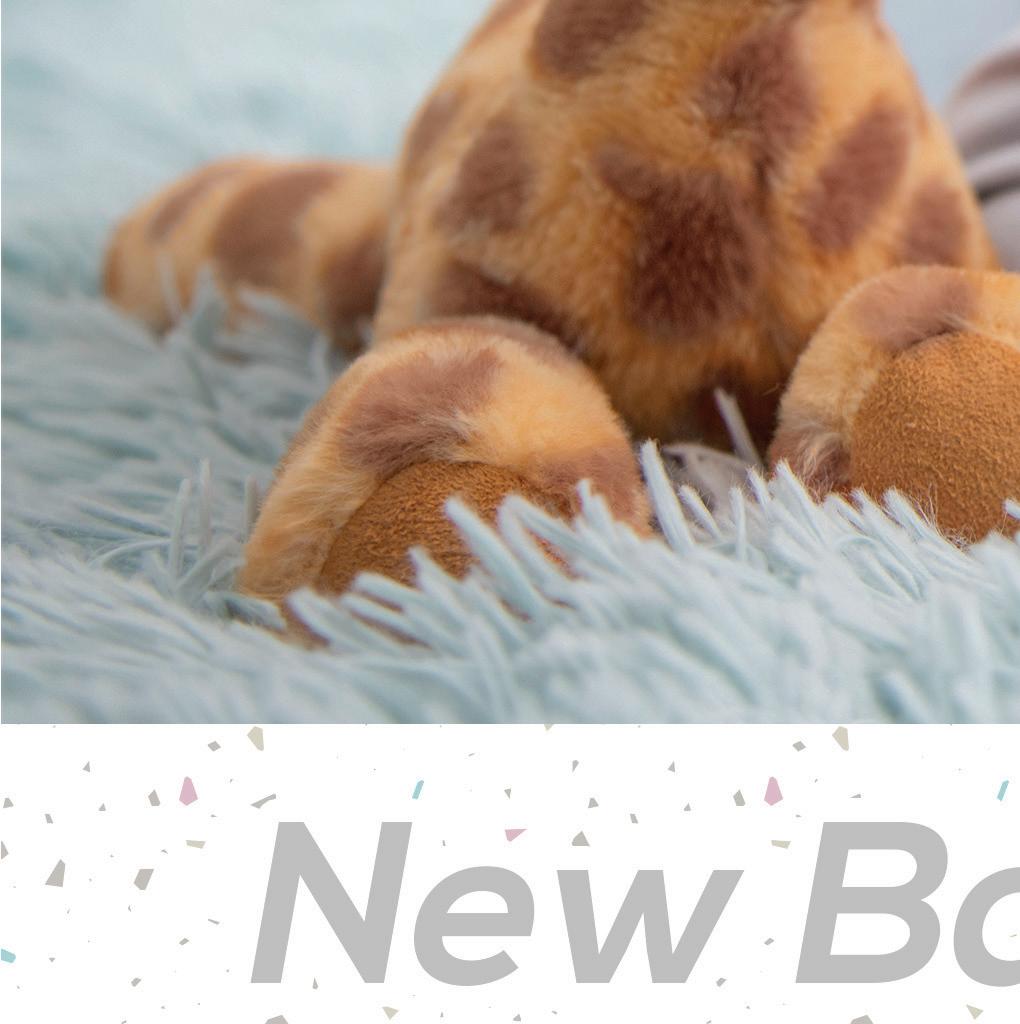
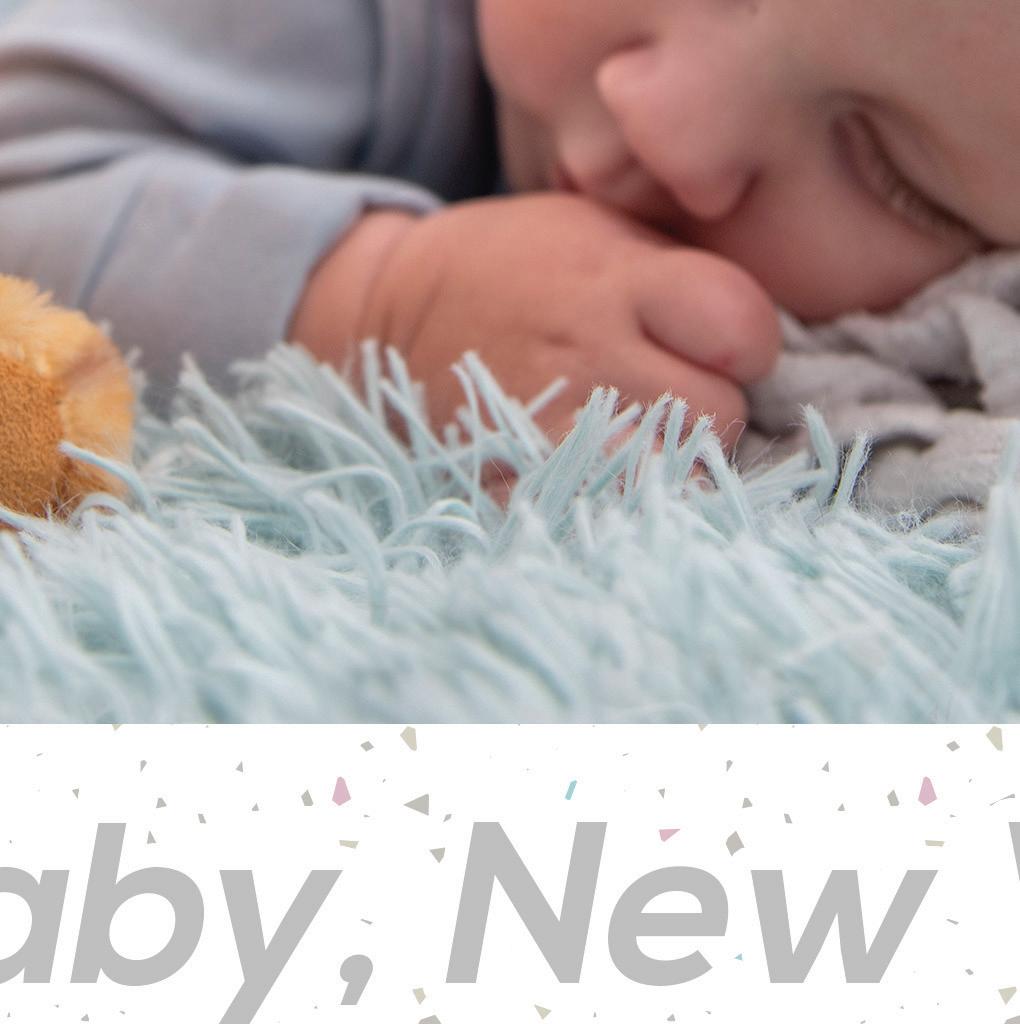
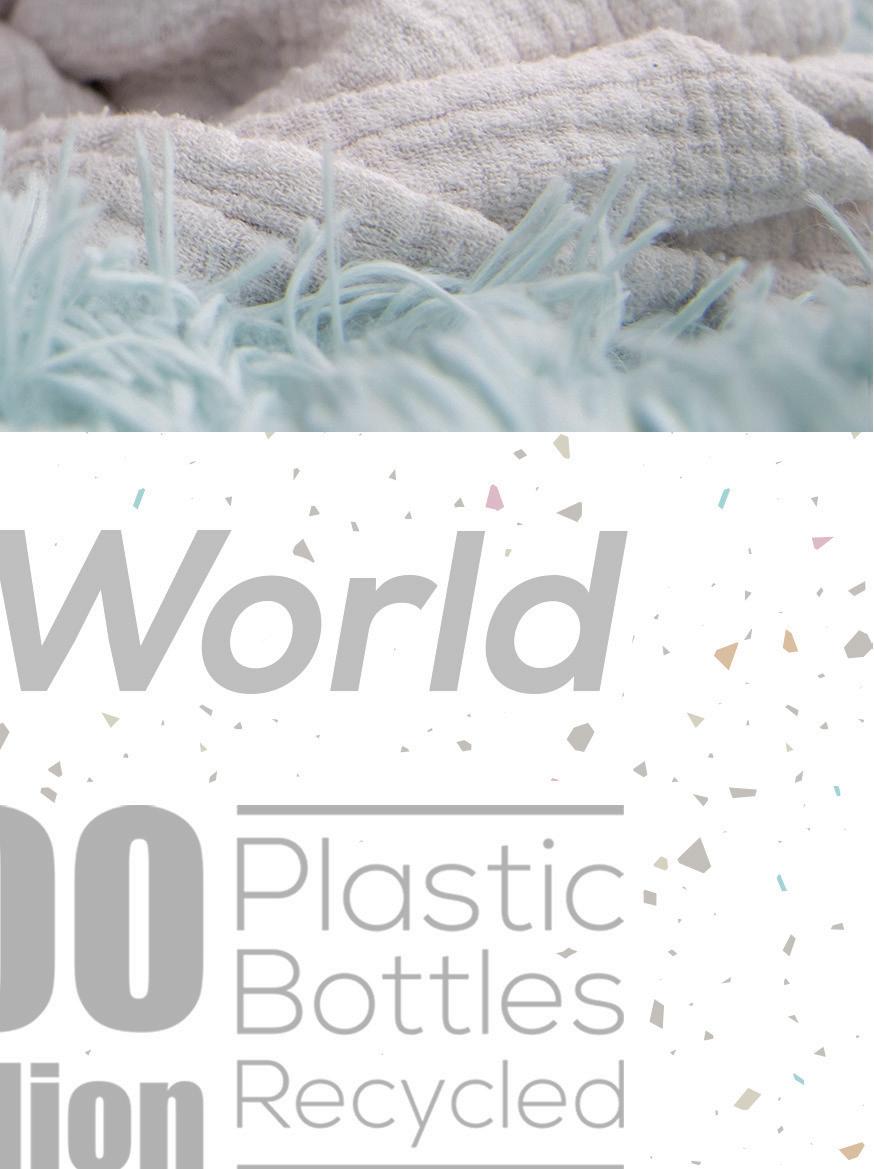
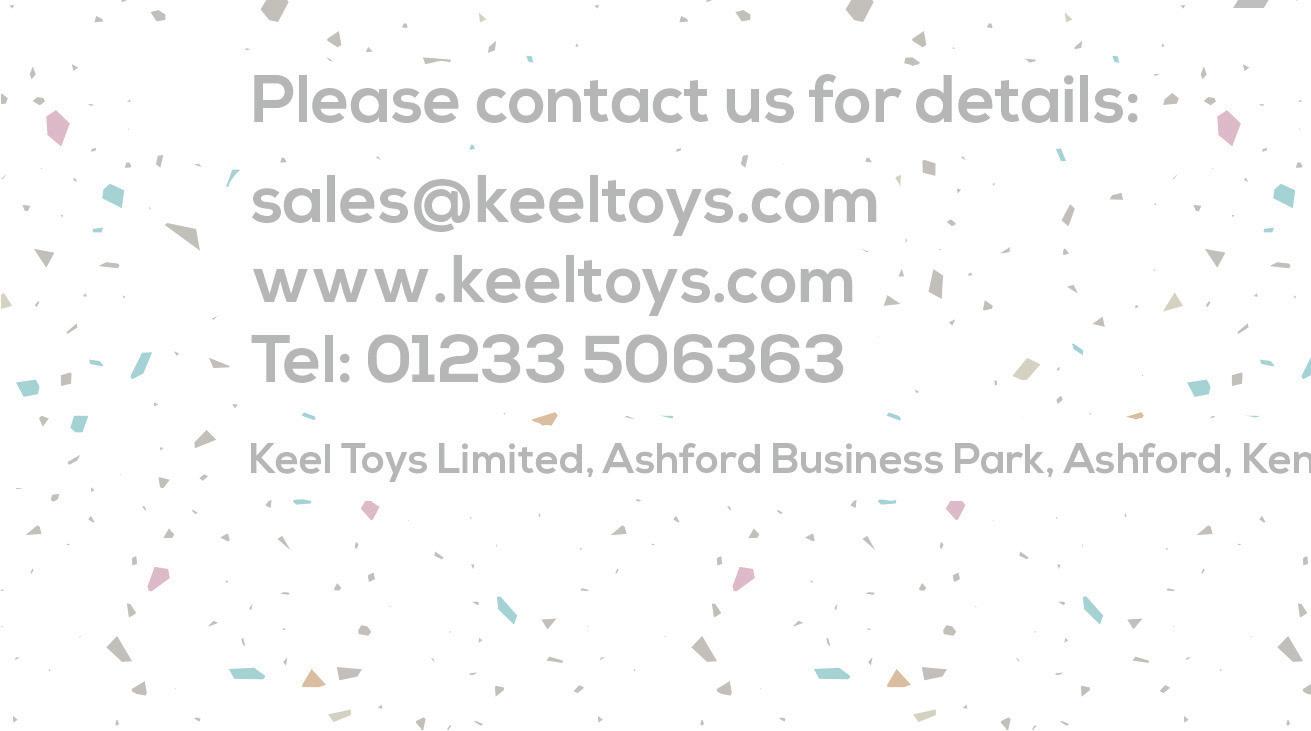
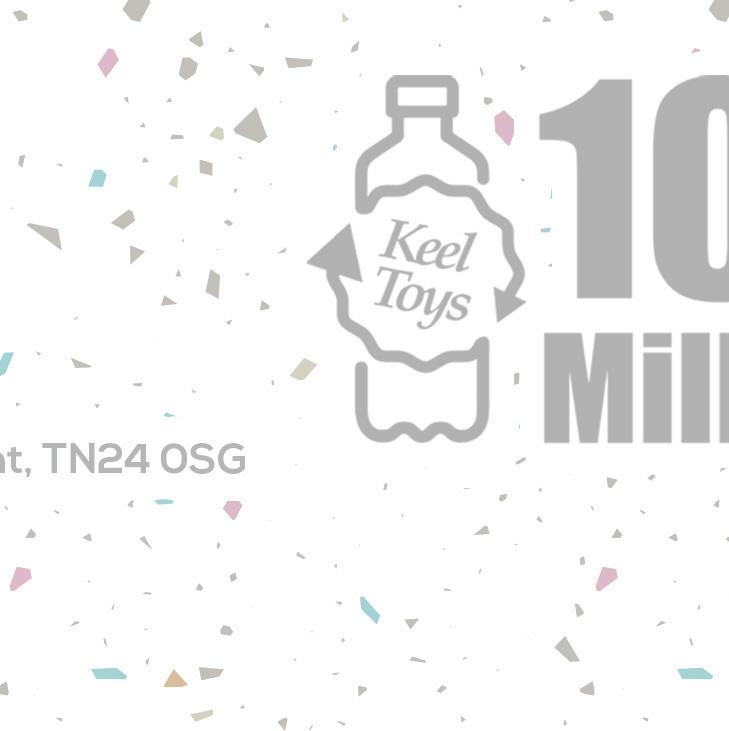
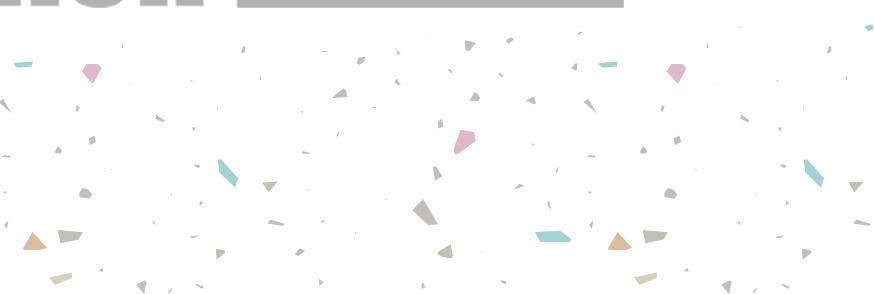
Meet:
Tallulah graduated from the University of Sheffield with a BA in English Language and Literature in 2006. She worked in theatre marketing and furniture design/ manufacture, before starting with FSC UK in 2007. Since then, she has worked in a variety of roles, from fundraising to advising and training businesses in the application of FSC certification and the use of the FSC trademarks. As head of the UK’s Communications Team, she looks for creative ways to engage and support businesses and consumers in the responsible sourcing of forest products.
Nature and nurture?
The forest certification that’s popular with parents
Tallulah Chapman, Communications Manager, Forest Stewardship Council (FSC) UK takes time to give readers a great insight into how FSC certification can gain huge support from parents.
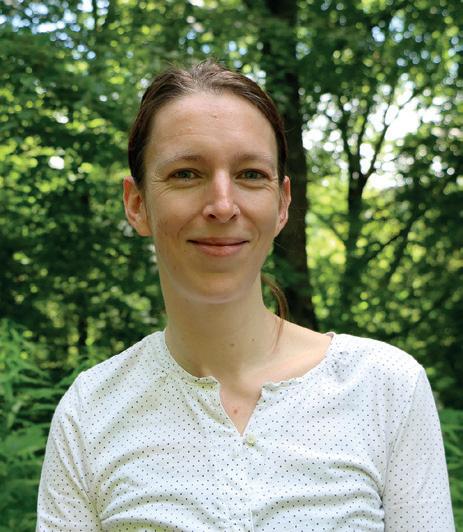
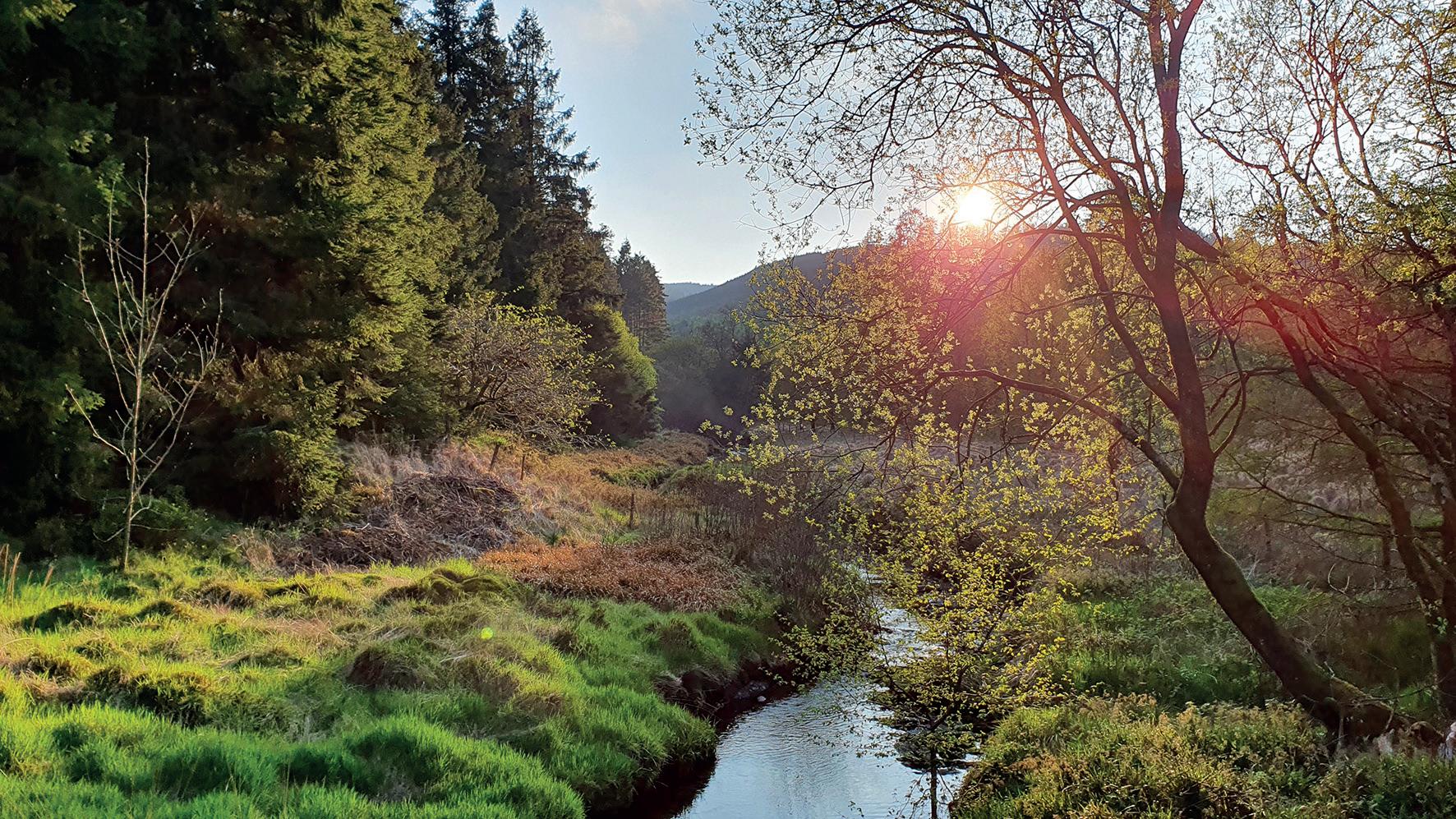
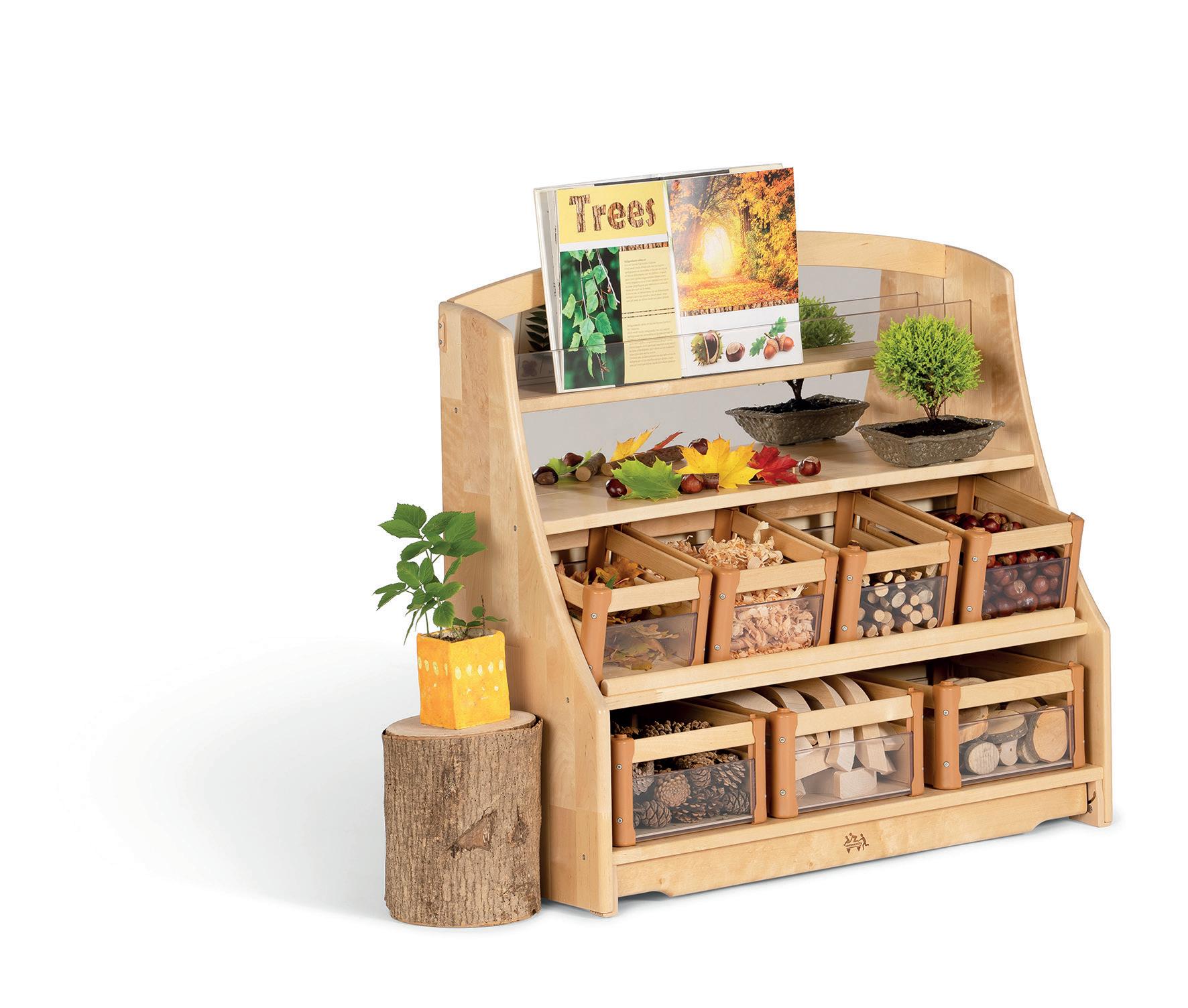
Be they made with wood, paper, bamboo, cork or natural rubber, forests provide many of the products that help to keep us healthy and content throughout our lives. In fact, many of the materials babies first encounter in the world come from forests: from their first nappy, which is likely filled with absorbent wood pulp, to their cot and toys, which may well be made from wood. Plastic reduction initiatives, for both products and packaging, have also increased the use of renewable materials, such as those sourced from forests.
But with planetary threats from both climate change and biodiversity loss, is it really a good idea to exploit forests for products and materials such as these?
The good news is that there is a way to source natural, renewable products from forests whilst doing your bit to ensure that they support responsible forestry.
Forest Stewardship Council (FSC)
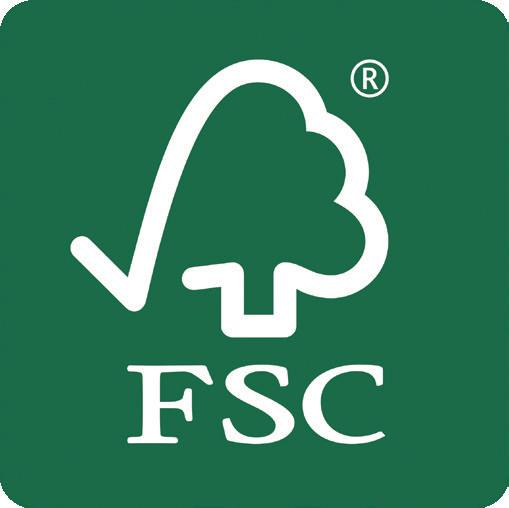
forest management certification confirms that a forest is managed in a way that preserves biological diversity and benefits the lives of local people and workers, while ensuring it sustains economic viability. The FSC certification system enables businesses and consumers to choose wood, paper and other forest products made with materials from responsibly managed forests and/or recycled sources. Independent research evidences many benefits of certification. For instance, studies have found more mammals, like golden cats (Gabon) and elephants (Congo), in FSC-certified forests than in uncertified, conventionally logged forests. FSC certification can also contribute to positive health outcomes; one Indonesian study that found reduced rates of acute respiratory illness and
malnutrition in villages spanned by FSC-certified forests.
FSC standards require trees that are harvested to be replaced and forbid the conversion of natural forests to plantations, with numerous studies
38 nursery today Eco/Sustainable
In-focus Forest Stewardship Council
finding deforestation to be significantly lower in productive forests with FSC certification. The Maya Biosphere Reserve, in Guatemala, for example, is the largest complex of protected areas in Central America and home to more than 1,400 plant and 450 animal species. Long-term, FSC-certified, forest management has produced a number of benefits in this landscape, including almost zero deforestation.
A UK study of 1,281 adults (Kantar via OnLineBus, March 2022), commissioned by FSC UK, found that three quarters recognise that sourcing sustainable wood and paper is good for both forests and the planet in general, and 35% say they keep an eye out for certification labels when shopping for forest-based products. Parents are more confident than the average shopper when it comes to identifying sustainable wood, paper and other products sourced from forests, and 46% say they look for certification labels on products such as these. 76% of people in the UK recognise the FSC logo and two
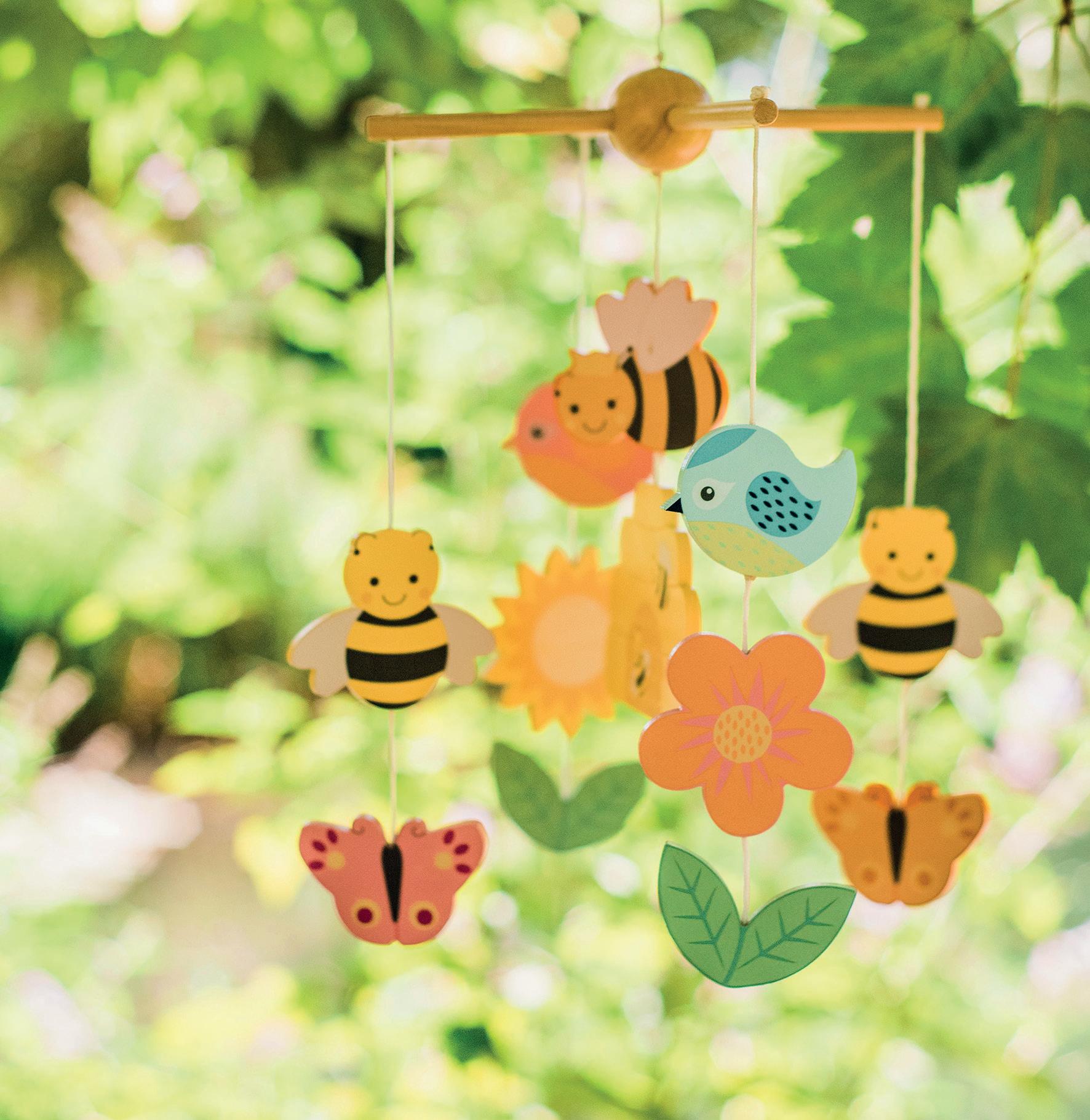
How to tell if a product is FSC certified
Many FSC-certified products are easy to identify because they carry an FSC label. But some products, such as those that need to be cut to size, may not. So how can you make sure an unlabelled product is FSC certified?
■ Source from an FSC-certified supplier
■ Check that the certificate is valid using the FSC online database (info.fsc.org) and that it covers the right product category (e.g. ‘paper’ or ‘indoor furniture’)
■ Specify FSC-certified materials when placing your order and let your supplier know that you need them to make an FSC claim (e.g. FSC Recycled or FSC 100%) on the sales documents
■ Check that the delivery note and/or invoice clearly identifies the FSCcertified product(s) and FSC claim and includes the supplier’s FSC certificate code (e.g. XX-COC-000000)
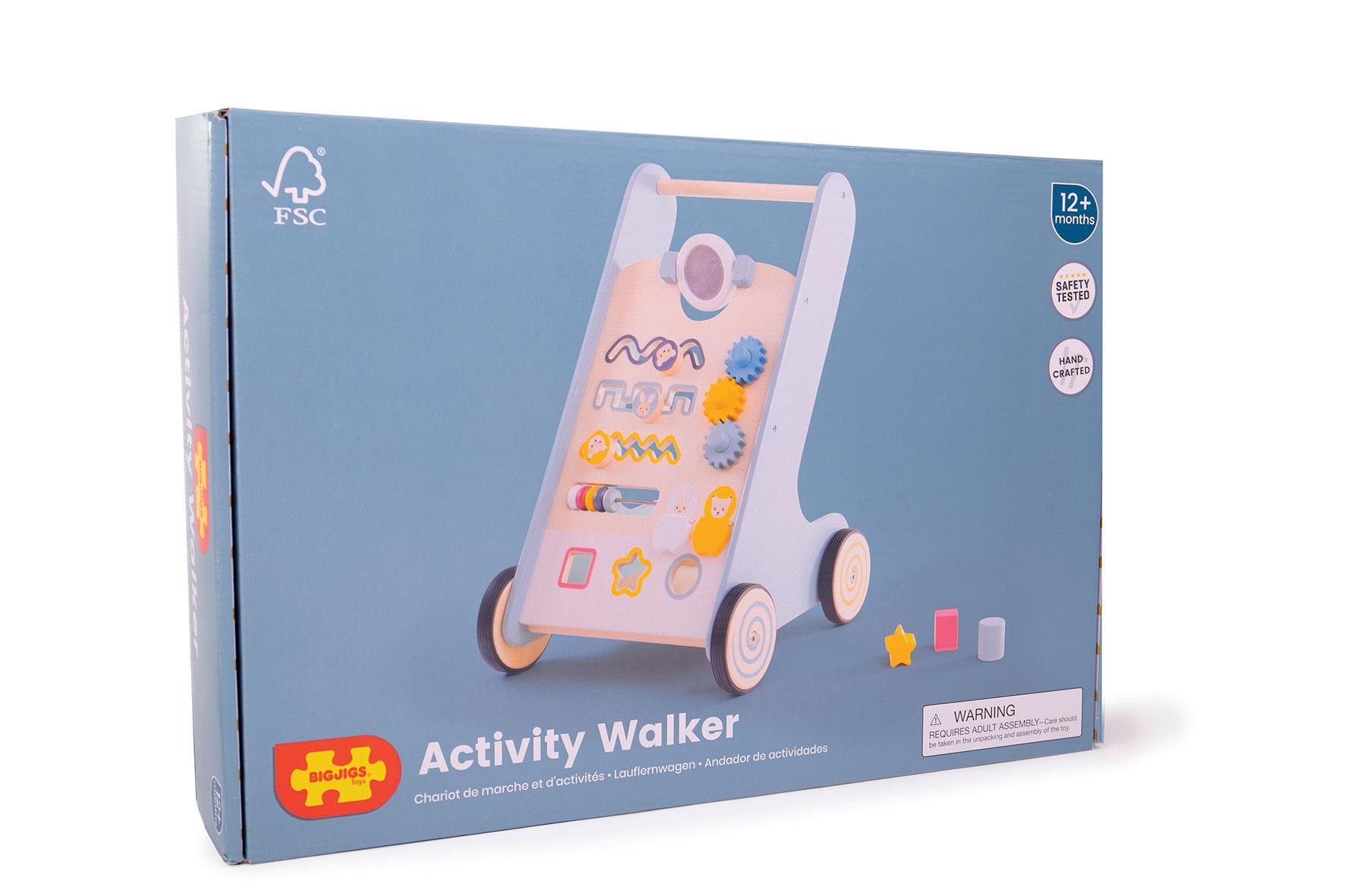
Organisations are free to purchase and trade in FSC-certified (and labelled) products, however, to ensure the robustness of the system, those wishing to use the FSC trademarks themselves to promote such products must hold either FSC certification or a promotional licence.
FSC chain of custody certification ensures that FSC-certified materials and products have been checked at every stage of processing, so customers purchasing products sold with FSC claims can be confident that they are genuinely FSC certified. Any company involved in the processing or transformation of FSC-certified products must be FSC certified in order to apply an FSC label to their products and/or sell them with an FSC claim.
thirds of respondents who had seen the logo are also confident they understand, at least roughly, what it means. Once the meaning was explained, 7 in 10 people said they would prefer to buy a forest product bearing the FSC logo, as opposed to one without. Half of respondents even said they would be prepared to pay more for FSC-certified products and 65% said they would have a positive opinion of a brand or retailer if they saw the FSC label on their products. An impressive, 83% of parents recognised the FSC logo and 59% said they were prepared to pay more for an FSC-certified product.
For organisations that buy FSC-labelled products or packaging from an FSC-certified supplier and either use them in their business (e.g. toilet rolls, office paper) or sell them on, unchanged, to the public, a promotional licence may offer an alternative to chain of custody certification. A promotional licence allows an organisation to use the FSC trademarks promotionally but does not allow it to apply the FSC trademarks to products or sales documents.
More information on the FSC system, and sourcing and promoting FSCcertified products, can be found on the FSC UK website at uk.fsc.org, or email FSC UK at info@fsc-uk.org.
Eco/Sustainable nursery today 39
An impressive, 83% of parents recognised the FSC logo and 59% said they were prepared to pay more for an FSC-certified product.
“
”
MAM launch first carbon neutral soother
MAM is accelerating their climate action with the introduction of MAM Original Pure, their first carbon neutral soother range made of bio-renewable material.
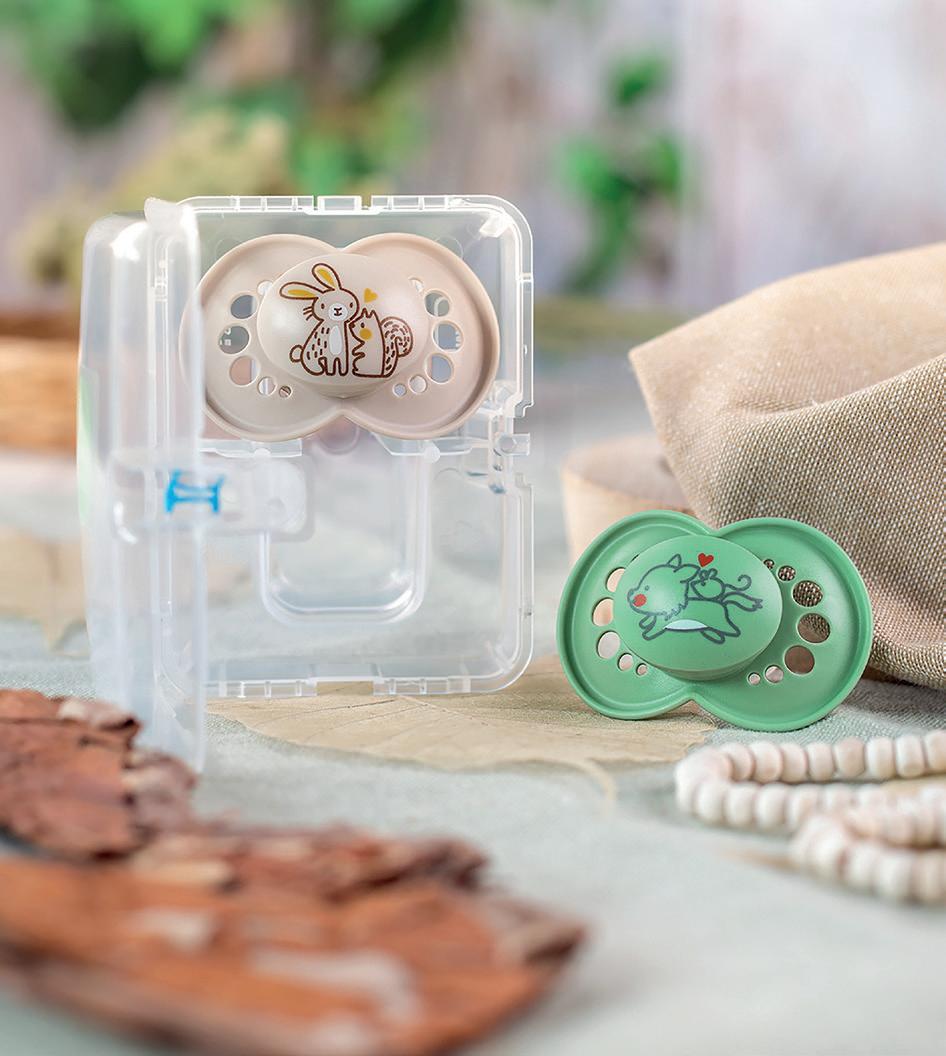
Following almost a decade of intensive research, MAM have now successfully implemented a sustainable product innovation using renewable raw material sources that are 100% traceable along the supply chain regarding environmental and social standards.
The new material is a bio-renewable and bio-circular polypropylene that was selected for its safe, robust and durable properties.
MAM Original Pure’s soother shields and knobs are made of bio-circular,
loved MAM Original Soother - including the SkinSoft Silicone teat which is easily accepted by 94% of babies, as well as the flat, symmetrical shape designed in association with dentists to support healthy dental development.
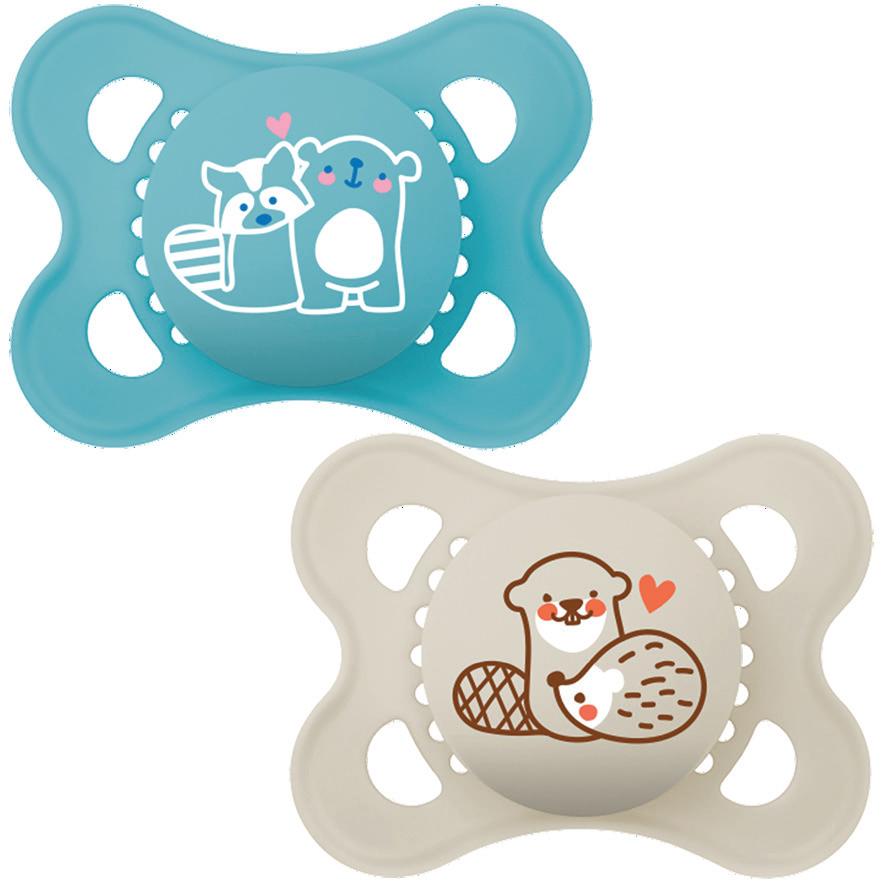
The range comprises fifty-three products in total across four different age groups: 0-2 months, 2-6 months, 6-16 months and 16+ months. Available in a range of nature inspired matt colours and designs, the MAM Original Pure
packaging to make it carbon neutral.
To further cut down on wasteful packaging, the products are sold in a unique steriliser box which is similarly made of ISCC certified bio-circular materials which further results in a reduction of emissions compared to the fossil-based PP steriliser box.
The steriliser box is not just a product packaging design; it serves a purpose to sterilise the product. Most of the carbon emissions in a soother’s product lifecycle occurs when cleaning and sterilising a soother at home. Sterilising the soother in the MAM steriliser box with a microwave saves up to 77% of CO2 emissions compared to other sterilising methods.
bio-renewable raw materials that have ISCC PLUS (International Sustainability and Carbon Certificate) credentials and offer the equivalent material safety and product characteristics of fossil PP. Circular PP guarantees the safety and superior product quality you would expect from a MAM product, whilst being kinder to the environment.
The MAM Original Pure Soother has all the same great features as the much-
Soothers help to provide parents with an easy sustainable switch.
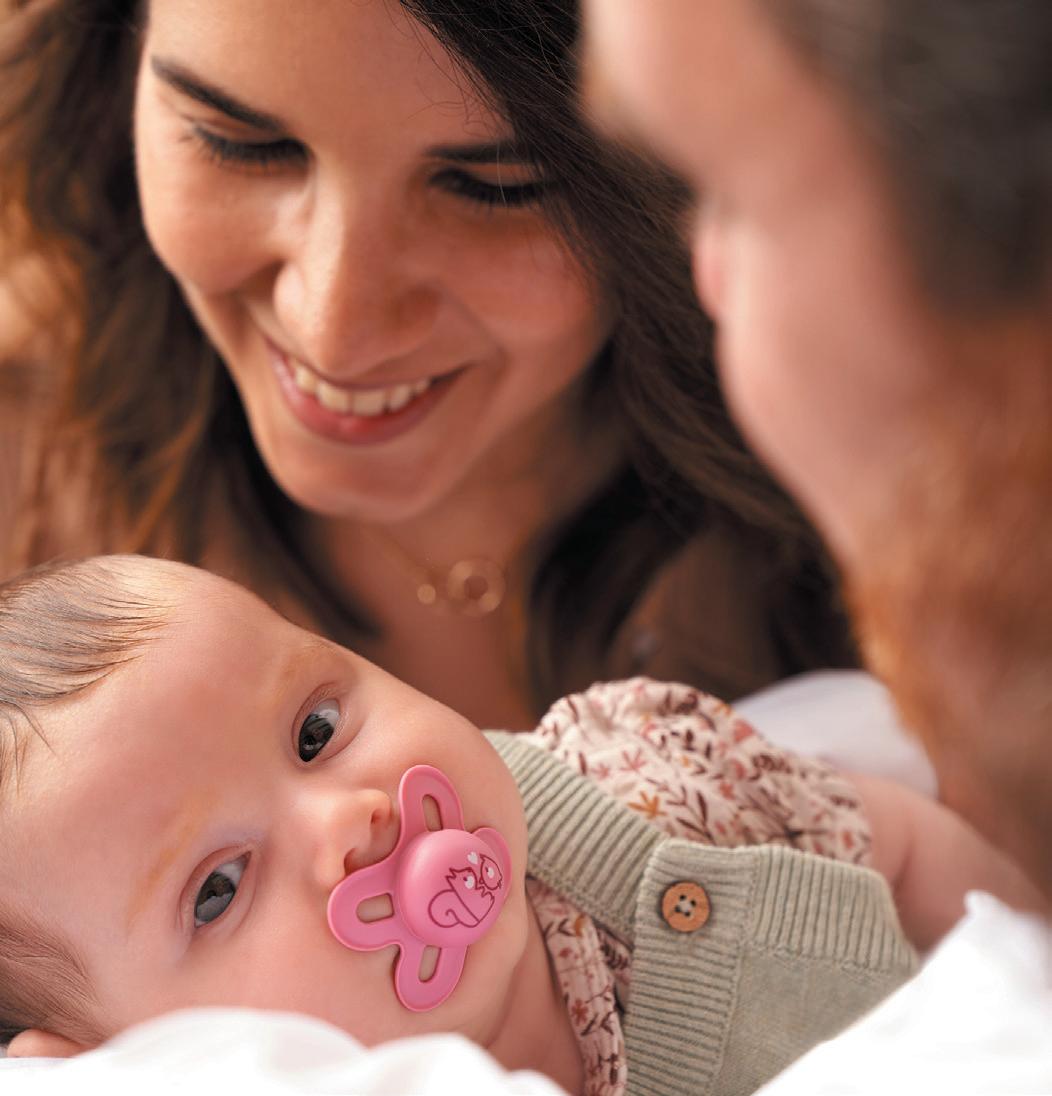
MAM have pledged to reduce their carbon footprint for all consumer packaging by 40% by 2025 and new MAM Original Pure’s packaging takes the company’s first steps in this direction.
The carton parts of the MAM Original Pure packaging are FSC certified, sourced from sustainable forestry, and the small plastic part that is left is made of recycled PET. MAM also offsets all unavoidable greenhouse gas emissions of the
Sustainability and responsible action have been part of MAM’s DNA for the last 45 years. They were the first in their industry to publish a sustainability report according to GRI (Global Reporting Initiative) back in 2011, which since 2017 has also been featuring MAM’s contribution to the SDGs (Sustainable Development Goals by the United Nations).
MAM takes their responsibility for the reduction of greenhouse gases seriously by constantly optimising its plants and production processes. Efforts focus on the continuous improvement of energy efficiency, reduction of CO2 emissions, use of renewable energies and careful
use of resources. Moreover, MAM are working together with Climate Partner to support with the Gold Standard certified carbon-offsetting projects in various countries that are also linked to the health and wellbeing of babies.
To ensure consistently high product quality and safety standards for MAM Original Pure, MAM worked with medical and research experts throughout the development stage and sought insights from certified specialist third parties. And a rigorous internal criterion that goes well beyond the norms will also see every MAM Original Pure soother subjected to forty different testing methods before being made available for sale.
For more information on the MAM Original Pure Soothers, visit www.mambaby.com
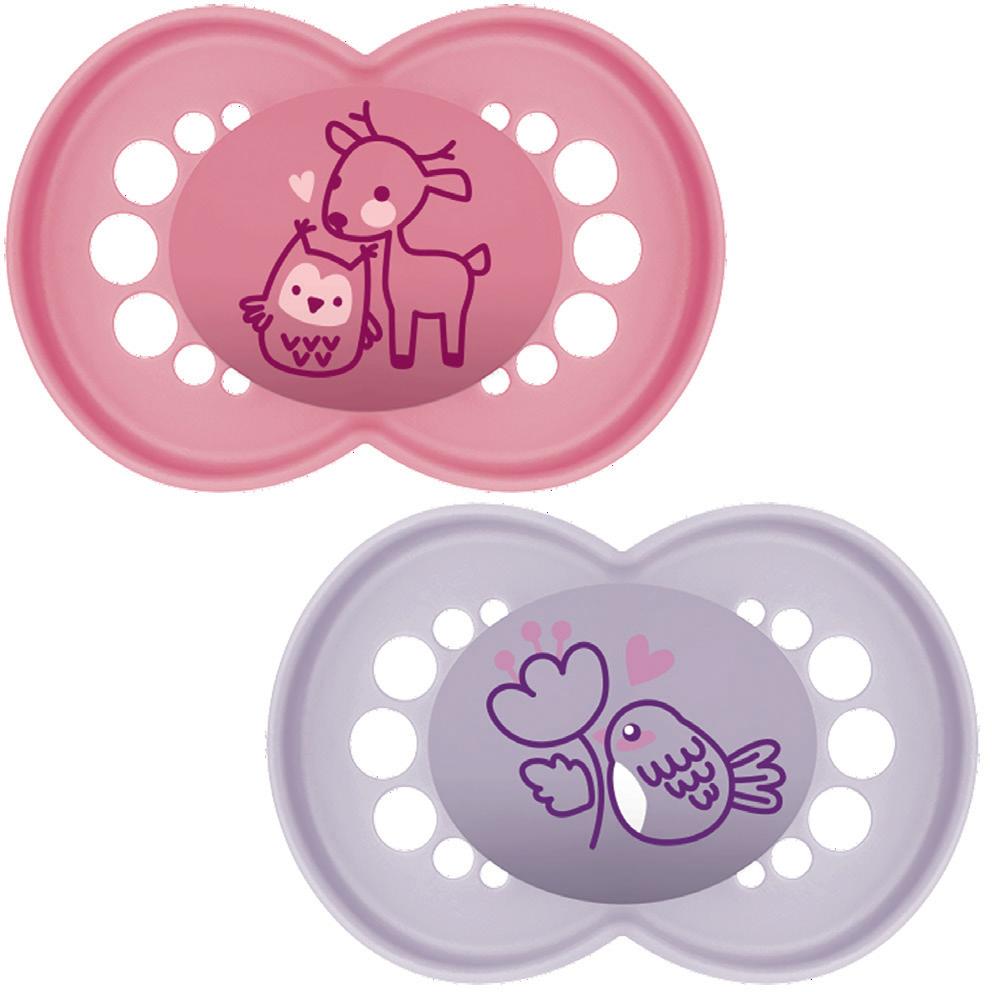
40 nursery today Eco/Sustainable
Focus Mam
“ ”
MAM have pledged to reduce their carbon footprint for all consumer packaging by 40% by 2025 and new MAM Original Pure’s packaging takes the company’s first steps in this direction.
MAM ORIGINAL PURE
Our new carbon neut ral soother made from bio-renewable material* & developed with medi cal experts. *The
Read more: mambaby.com
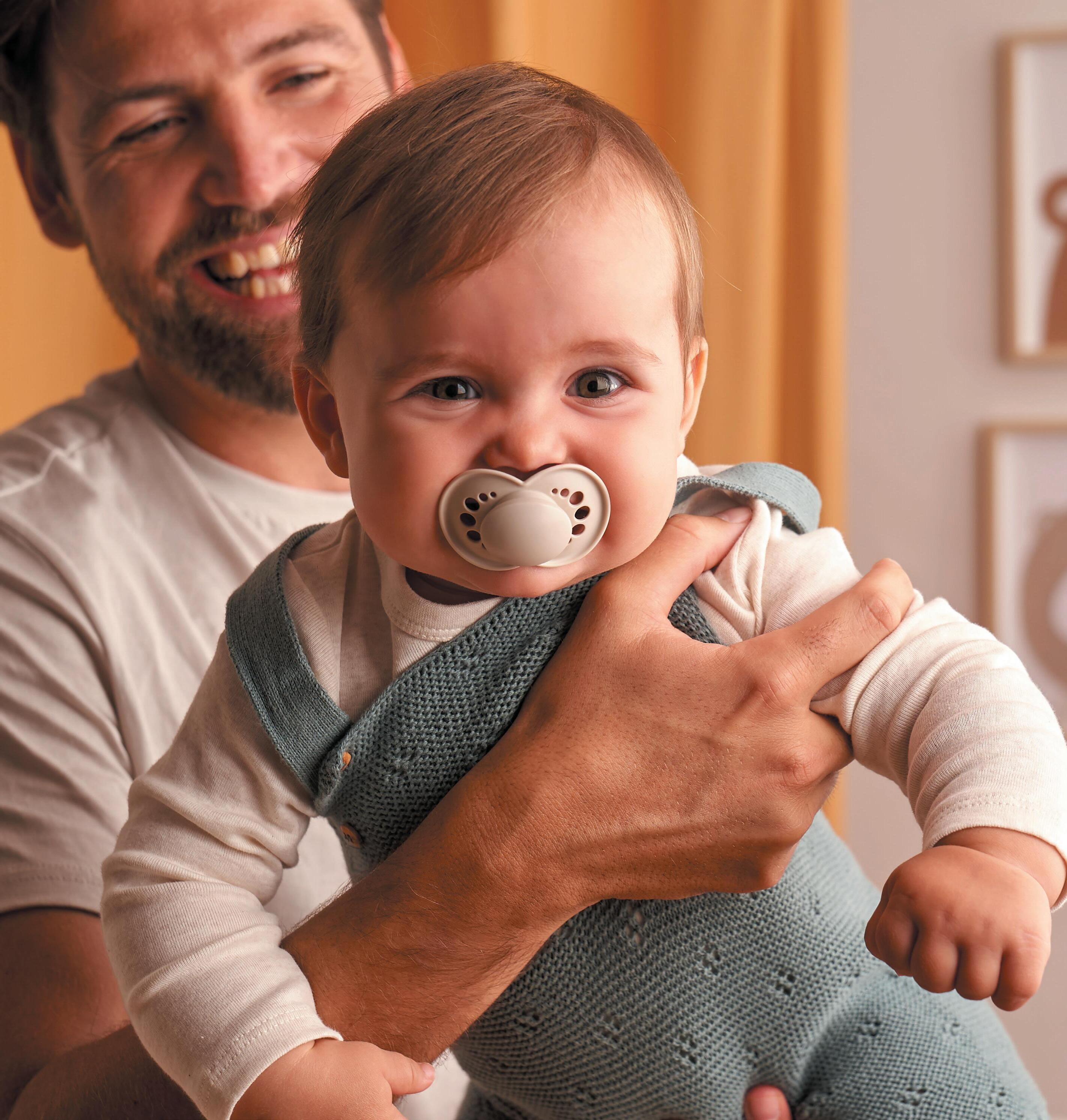
fied
soother button, shield and steriliser box material is 100% linked to ISCC PLUS certi
bio-circular raw materials.
Safe and playful kids tableware
Done by Deer’s silicone kids tableware is soft, durable, and practical – and with its playful designs it is both fun and safe for kids to use during mealtime.
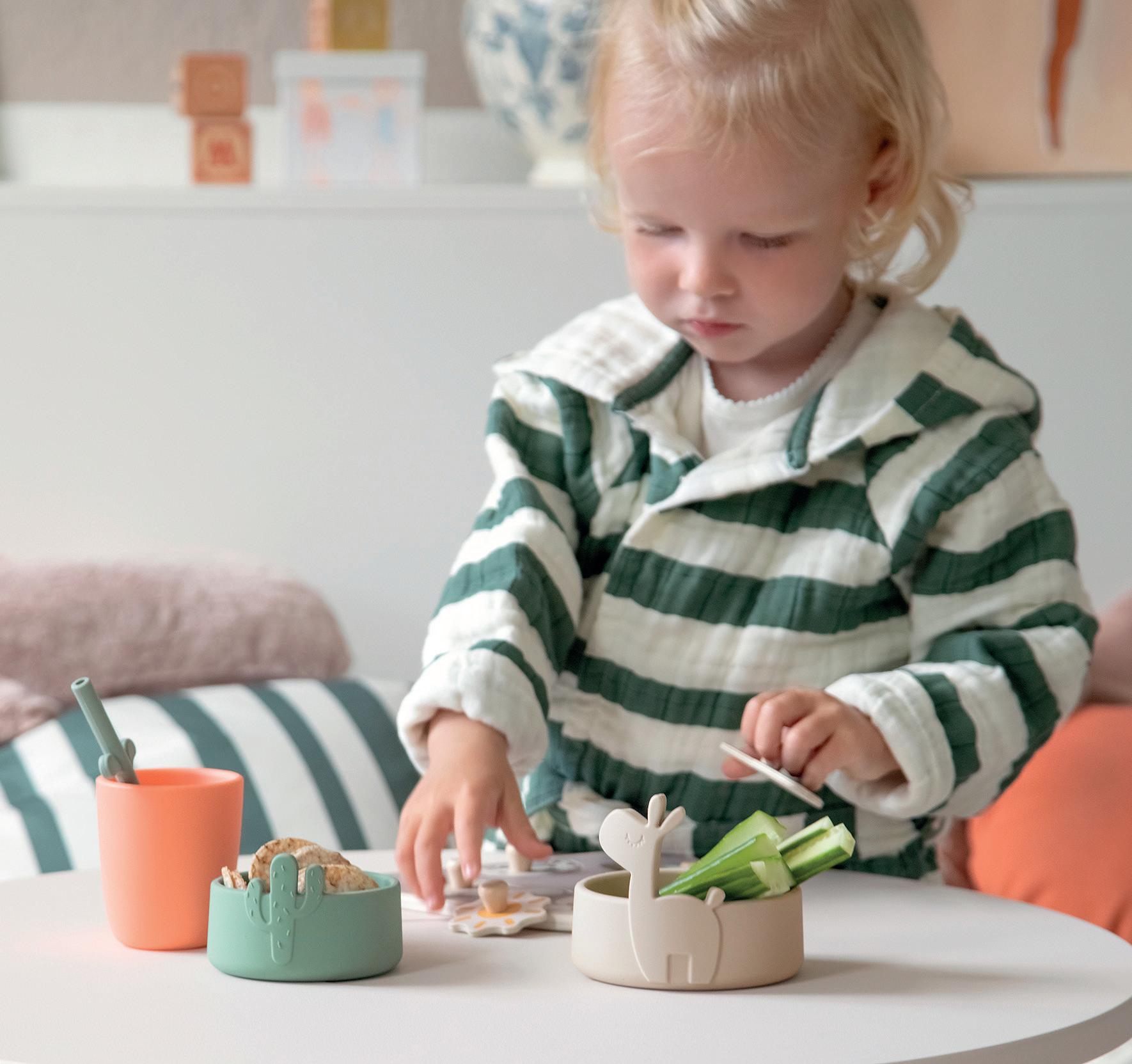
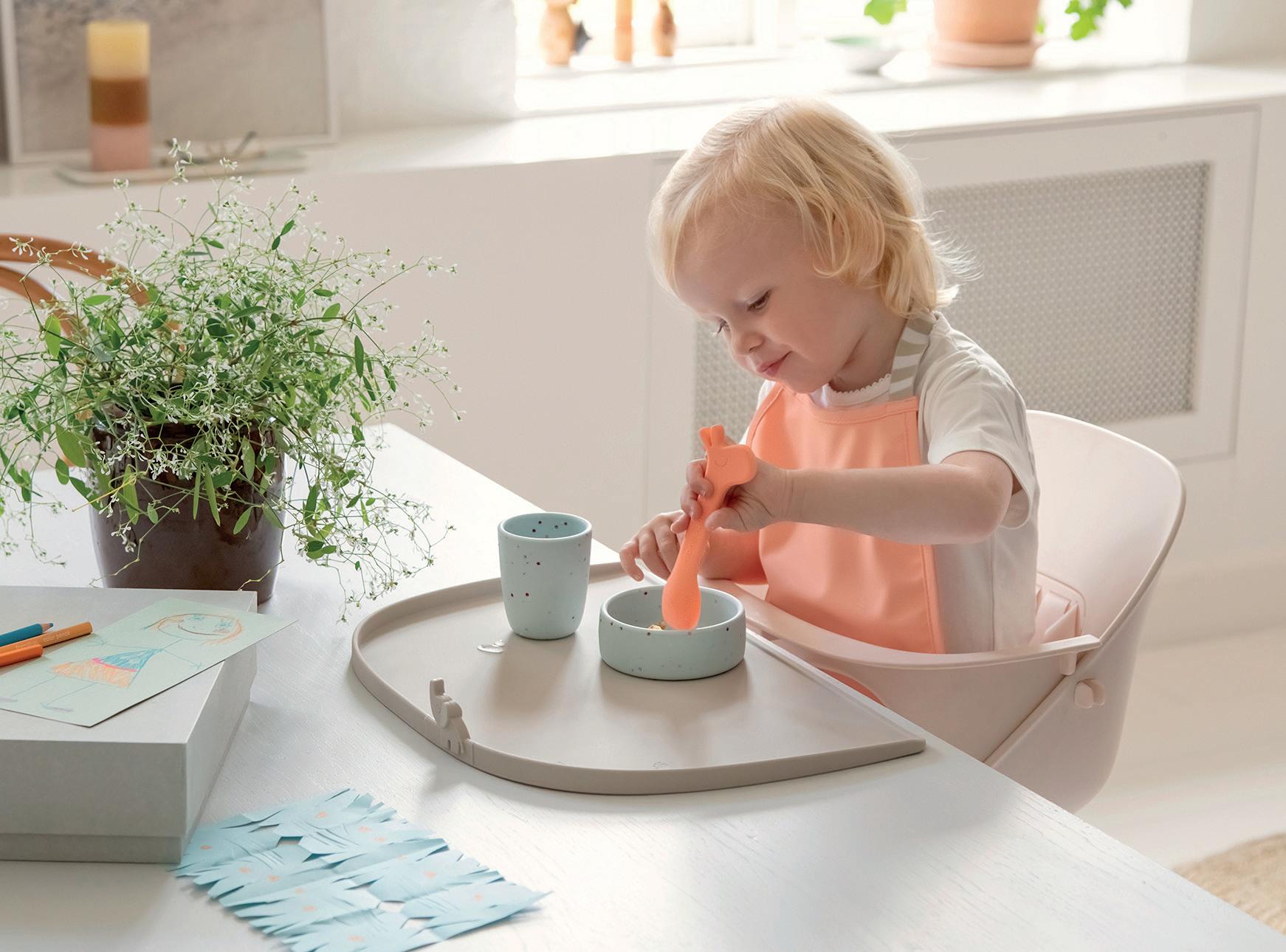
The silicone tableware is produced from 100% virgin food grade silicone – free of BPA, phthalates, and other harmful substances – and complies with the European food standards as well as the FDA, LFGB, and ASTM.
Once the silicone tableware has served its purpose through countless family dinners and fun kids parties, it can be recycled. Done by Deer’s assortment consists of everything you need for dinnertime – plates, bowls, cups, bibs, spoons, straws, and placemats.
Gwen Peacock
07876 150 729 | gwen@donebydeer.com
www.donebydeer.com
NUK for nature
Baby Brands Direct are pleased to stock the new NUK for Nature soother!
NUK for Nature is the brand’s first sustainable soother - perfect for today’s eco-conscious consumer. The teat of the soother is made from 98% natural rubber latex, while the sustainable plastic shield is manufactured from renewable raw materials. Even the packaging is recyclable and FSC certified!
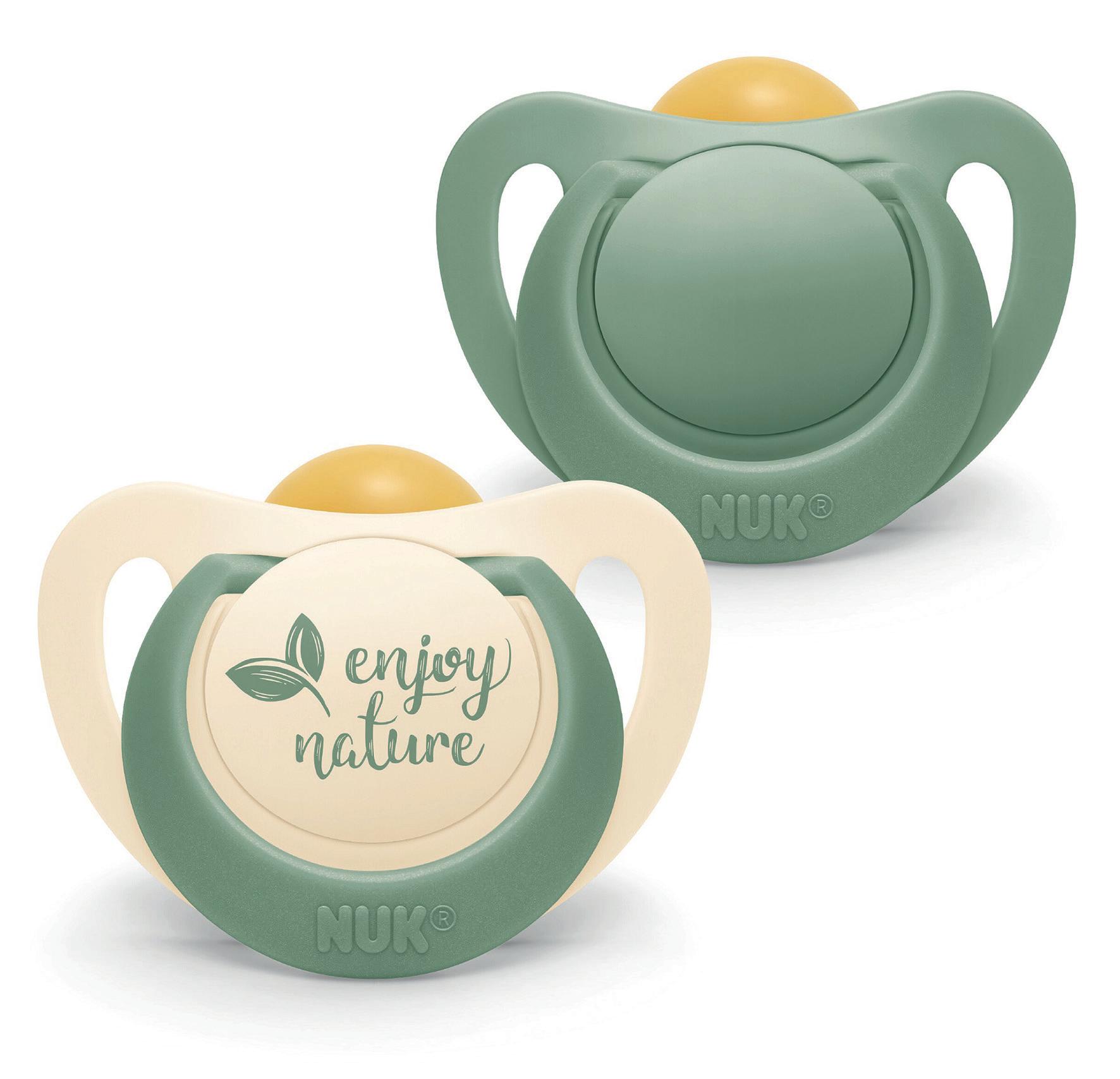
While the materials are now eco-friendly, the soother itself retains the same original NUK shape that consumers know and love. NUK soothers are designed to replicate a mother’s nipple to create a familiar, comforting feeling. As such, NUK soothers are accepted by 95% of babies!
These soothers are a fantastic addition to the NUK range currently available at Baby Brands Direct.
0208 845 5000 / sales@babybrandsdirect.co.uk www.babybrandsdirect.co.uk
Natural cleaning
A toddler’s highchair or booster seat can quickly become one of the grubbiest places in the home, splattered with sauce or covered in crumbs after every meal.
To lend mums and dads a helping hand after dinner, Vital Baby have developed their brilliant Aquaint Sanitising Water, a 100% natural, water-based solution that kills 99.9% of bacteria in seconds.
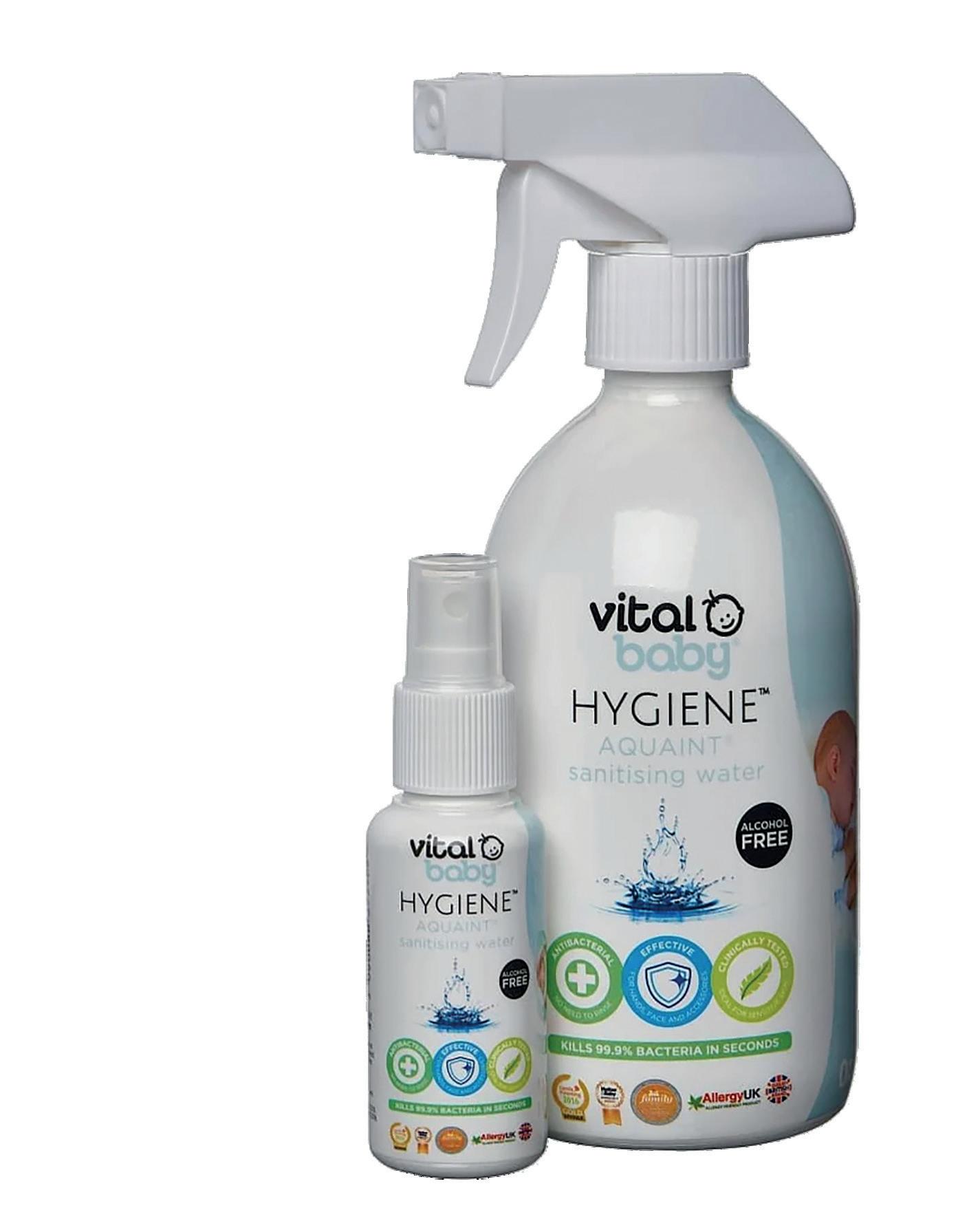
Aquaint has passed stringent UK drinking water tests and has been endorsed by Allergy UK, making it one of the safest eco-friendly sanitisers on the market! Vital Baby’s Aquaint is available at Baby Brands Direct in two handy sizes, for use at home or on-the-go!
0208 845 5000 sales@babybrandsdirect.co.uk www.babybrandsdirect.co.uk
42 nursery today Eco/Sustainable Focus Feeding, Weaning & Teething
Natural napping
A Little Green… dream - iconic Nursery Brand ensures little ones are napping naturally in stunning Moses baskets
The Little Green Sheep is a brand passionate that every baby should sleep in a naturally safe space. Beautifully crafted with natural materials, the brand’s stunning Moses Basket collection provides a super snug environment for baby to snooze from day dot, up to approx. 6 months (or until your baby can sit up unaided).
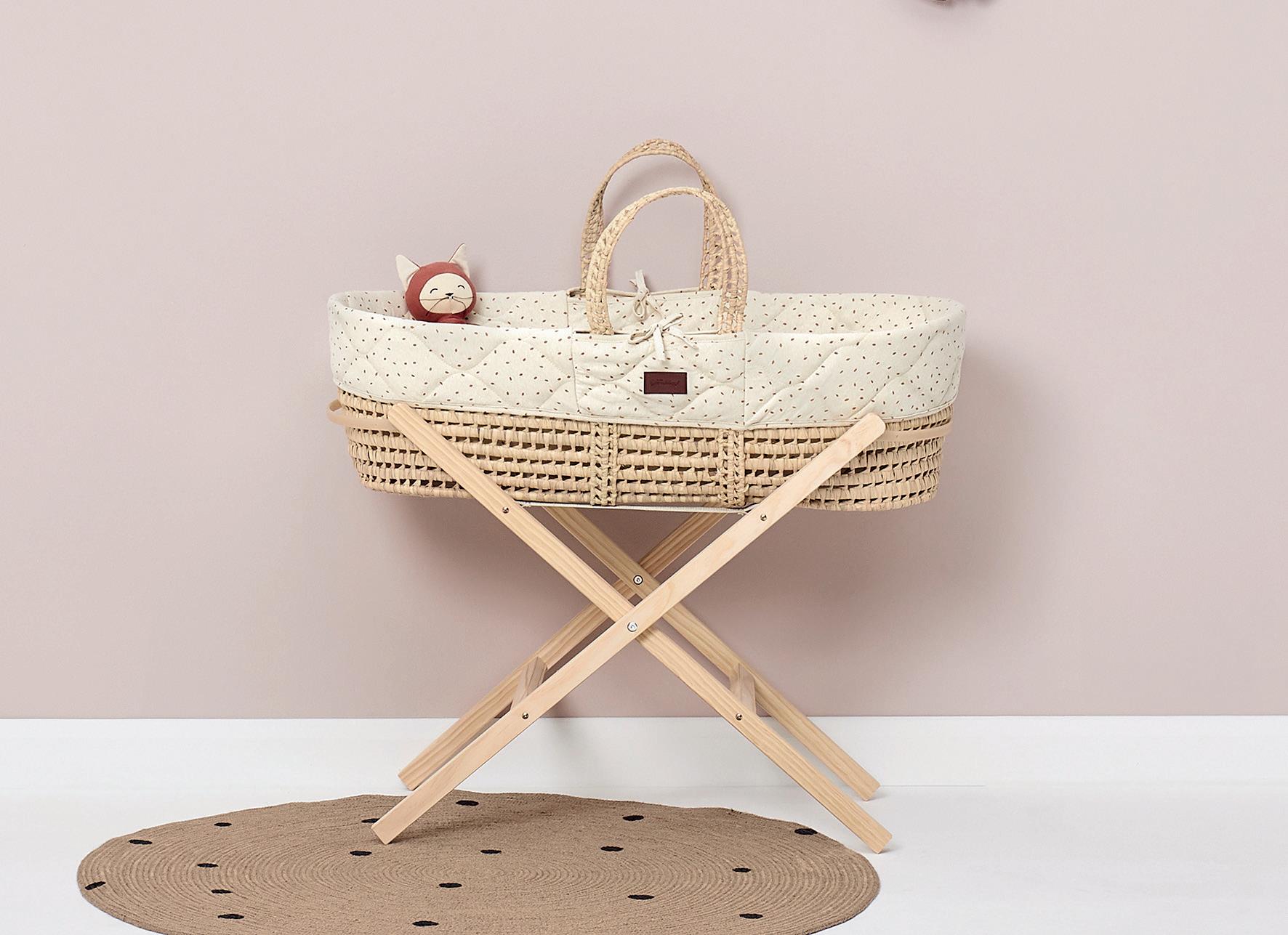
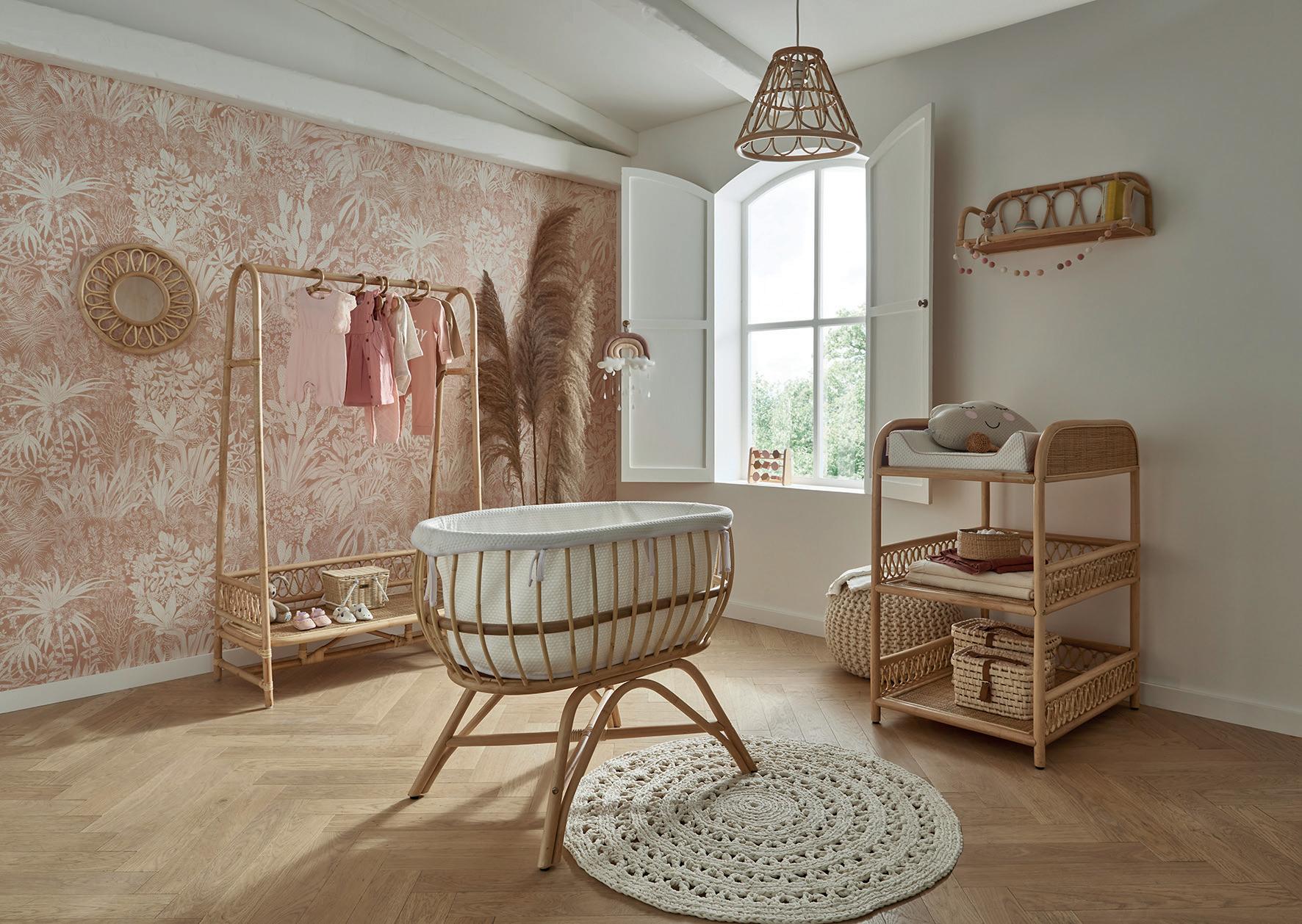
Lovingly woven from natural palm leaf, the baskets are strong, durable, and breathable for precious new arrivals. The material is lightweight, so the basket can be easily moved around the house to keep baby close by. Thanks to the fact they are effortlessly stylish, with warm, calming tones, they also look perfectly placed anywhere in the home too!
The beautiful collection includes both a knitted or quilted liner, depending on the style and aesthetic new families are hoping to achieve. Both liners are 100% organic, super breathable to ensure air circulates freely, and machine washable – saving the day when accidents strike!
Coming complete with the brand’s signature chemical-free mattress and with or without a stand, it’s fair to say this Moses basket has not compromised on style, quality, or function.
01789 734 022 | trade@greensheepgroup.com www.thelittlegreensheep.co.uk
Style and Sustainability? Aria is the Answer
The CuddleCo Aria Rattan 3 Piece Nursery Set combines style and sustainability to create a credible, eco-friendly option for the nursery.
This 3 piece furniture set is made with rattan, a natural material native to Indonesia. Popular for its strength and durability, its harvested seasonally and grows back quickly. Along with the materials used, Aria’s packaging also plays a part in the furniture’s credibility. The set is mainly packaged in cardboard without polystyrene, meaning most of the packaging can easily be recycled.
Aria is the perfect example of how sustainable choices can also be stylish. sales@cuddleco.co.uk
All in one bassinet
Meet Maxi-Cosi Alba, the stylish all-in-one bassinet, seat and highchair, designed to keep little ones close whatever parents are doing.
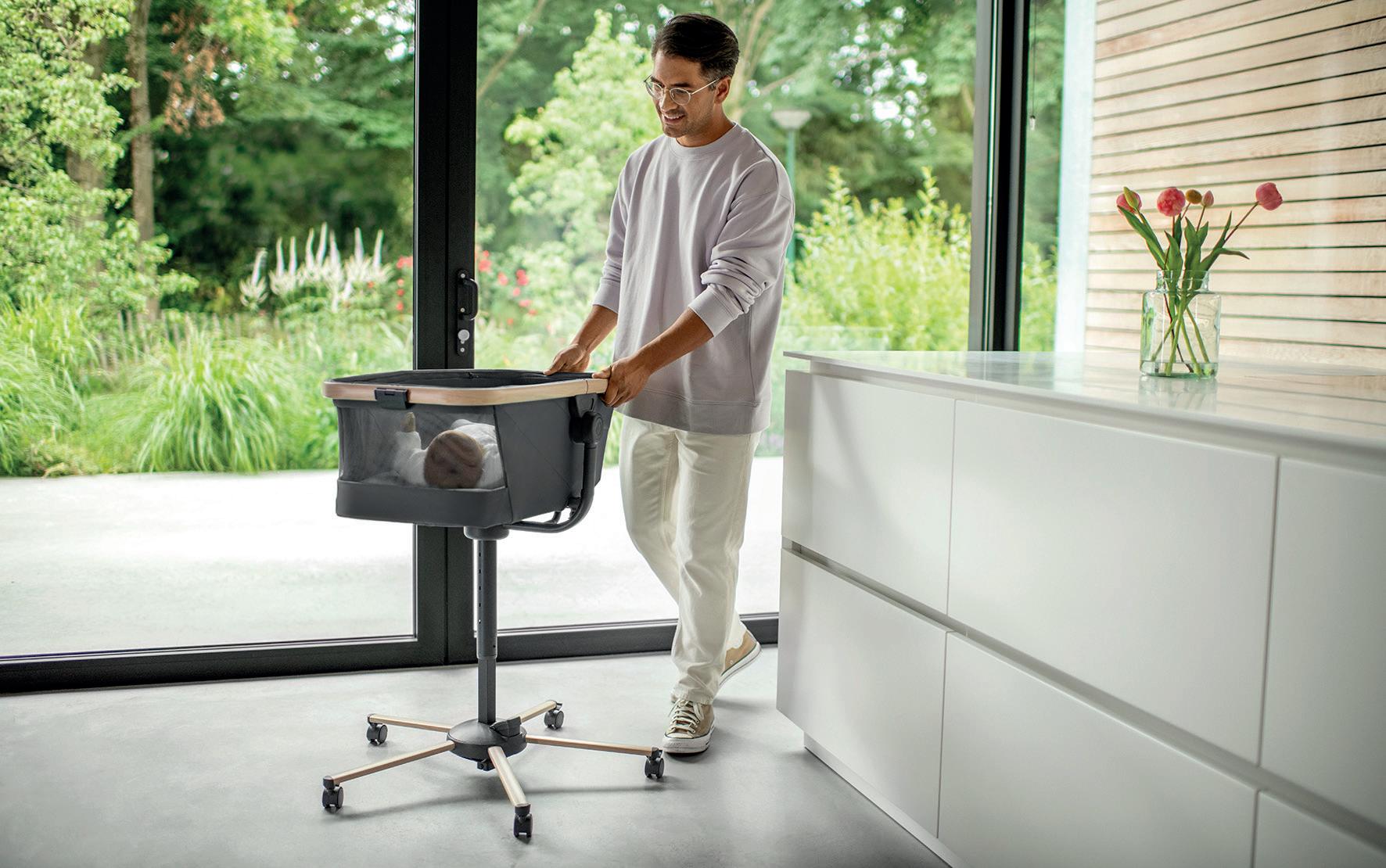
It can be used from birth up until the age of 3 years old and has five swivelling wheels to allow swift mobility throughout the home. The height can be adjusted by a handy pedal to have baby at eye level or to keep them out of reach of pets. The mattress is also dual-sided, one made of soft jersey fabric for optimum comfort and the other side from fabrics which are virtually waterproof. This means that parents are covered for those unexpected nappy leaks. Both the mattress and the inner cover can be easily removed for machine washing for when little ones have any accidents and spills. Alba is made Maxi-Cosi Eco Care, meaning that it is with 100% recycled fabrics and 53 plastic bottles make the fabric cover.
www.maxi-cosi.co.uk
Rocking function
The Maxi-Cosi Iora Air is an extra-comfortable, soothing co-sleeper, designed to keep infants close and develop the special bond between parent and baby.
This enhanced version of the brand’s iconic co-sleeper, Maxi-Cosi Iora, boasts a new rocking-function among other great new features. Parents can just flip the arched leg support when they need it to help soothe baby back to sleep. It also has an extra-thick mattress and an all-round, breathable mesh fabric to maximise air circulation to ensure baby’s comfort throughout their sleep time. Iora Air is designed using EcoCare; super-soft, premium fabrics and materials made from recycled plastic bottles. A large storage basket underneath ensures convenience for parents as all of their baby essentials are within reach, for around-the-clock care. www.maxi-cosi.co.uk
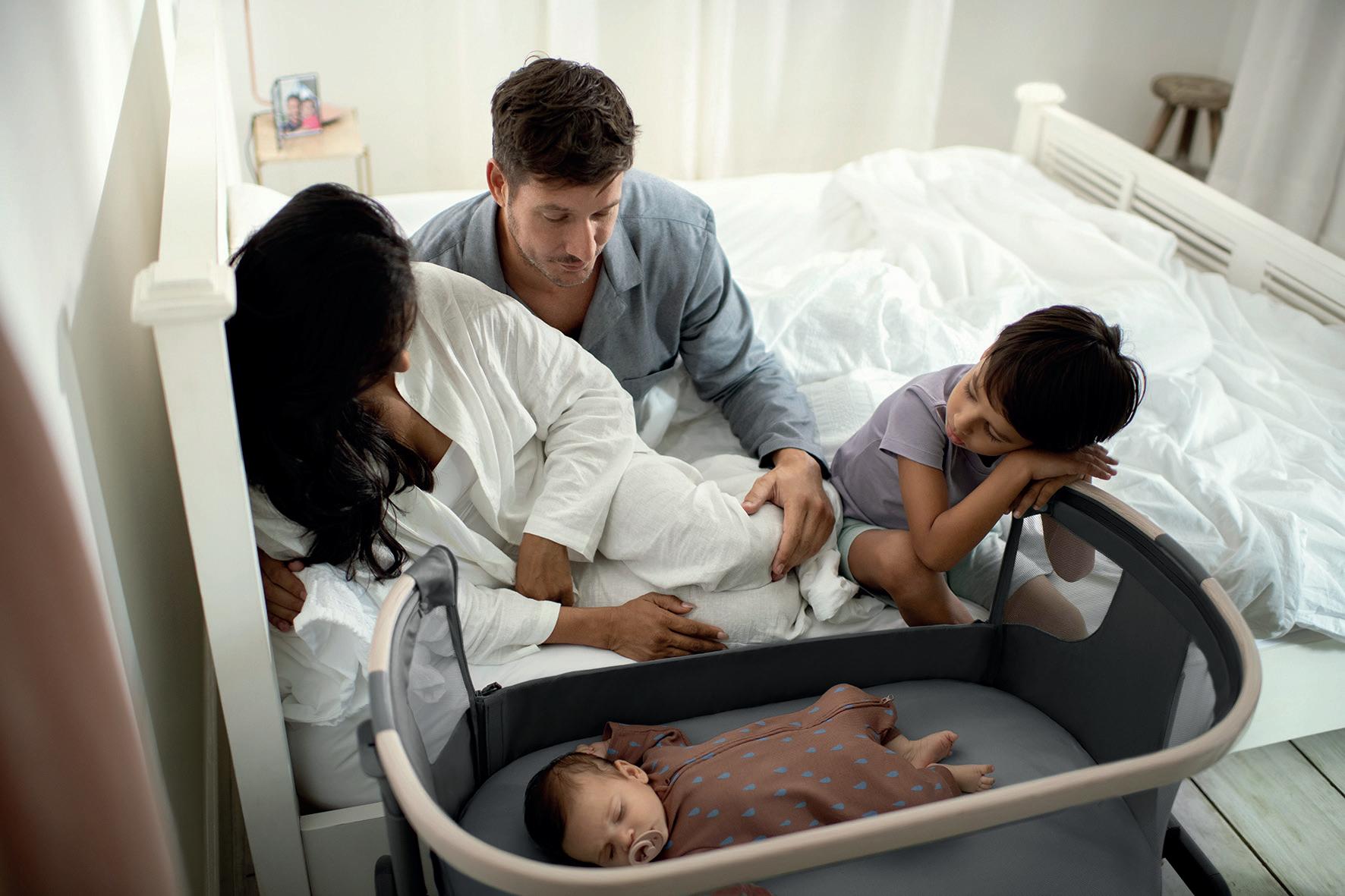
Eco/Sustainable nursery today 43 Focus Sleeptime
The sustainability challenges for child car seats
Sustainability very much sits at the top of most companies’ agenda. Identifying and implementing solutions that make a real difference is often complicated and very difficult to calculate accurately as to the environmental benefits achieved. There are different interpretations of recycling, that which recovers and recycles the material for reuse and that which get converted to energy through incineration.
Juvenile products present major challenges on many levels due to the combination of different materials and overall product structure making it difficult to break down and separate. However, the sustainability story is not solely about the product, but the circular process once the product is ready to be disposed of. The first challenge is dealing with those products already in production and in the market. However it is vital that all new design considers how to optimise the product for sustainability. This can be by choice of materials, but also and more importantly the ability for the product to be broken down and reducing the variation of materials used. Designers must diversify the design approach away from the conventional structures and materials and explore new technologies to unlock more sustainable solutions.
There are in the region of 2 million car seats sold every year which has the potential to generate thousand of tonnes of material. In particular metal and plastic.
JMDA explores the options for recycling juvenile products
JMDA has been at the forefront in the development of a recycling solution for child car seats, which present a particular challenge. For over five years JMDA has explored a series of disposal solutions and technologies, from manual breakdown to shredding, sorting, pyrolysis, and many more trying to identify a solution which suits both consumers and industry.
In 2019 JMDA carried out a trial with EMR waste management company. They shred complete vehicles and can separate metals, plastic and miscellaneous waste. However, the seats need to be placed inside vehicles which is not very efficient.
Car Seats being disposed of via retailers and brands is industrial waste and not processed by local authority sites. Those disposed of by consumer can go to local authority waste site.
It is well known that when disposing a child car seat they are channelled into the general waste at the local authority site. This waste is sorted, shredded and incinerated, resulting in little recovery of material. Metal is extracted and only about 5% of plastics are recovered. The resulting char following incineration is then sent to landfill.
Car seats go to ‘landfill’ primarily to mitigate the risk of them being removed from the waste and reused, furthermore as
advised by ROSPA, consumers should not buy or use second hand seats.
The central problem is that the waste management infrastructure does not enable car seats to be disposed of efficiently and economically. Local authority waste sites are managed by waste management companies under 25 year contracts with local authorities. They do not have resources or time in the most part to break down product. Where they can it is focused around easy to handle product with hight material value. They in turn work with a series of specialist processors who collect the waste such as metal, plastic, wood, paper, aluminium etc. The processor will only accept a small percentage of contamination, e.g., a bicycle mostly metal or alloy, with small amounts of plastic or rubber.
Collaboration for processing mixed materials
JMDA has researched the waste industry and reached out to all the majors organisations including, EMR, Recycling Lives, Biffa, Veolia, Suez, and many more. Due to the mix of metal, alloy, plastic, foam and fabric materials in child car seats no single material processor can handle them. Therefore, there are only two solutions, breakdown and separate or shred and sort.
Seats vary in structure and materials across the different categories and age range. There
44 nursery today Eco/Sustainable
focus Car Seat Recycling JMDA Design
There are in the region of 2 million car seats sold every year which has the potential to generate thousand of tonnes of material. In particular metal and plastic.
“ ”
JMDA Design gives us an insight as to the challenges posed for car seat recycling in the Nursery sector.
is a high percentage of plastic in carriers and booster, then high degree of metal in toddler seats and ISOFIX bases.
In order to align with the waste processors, the car seats need to be broken down into three groups of materials: metal and alloys, plastics, and foam and fabrics. Most local authority waste sites can stream the material in those groups, also industry can work directly with the same processors.
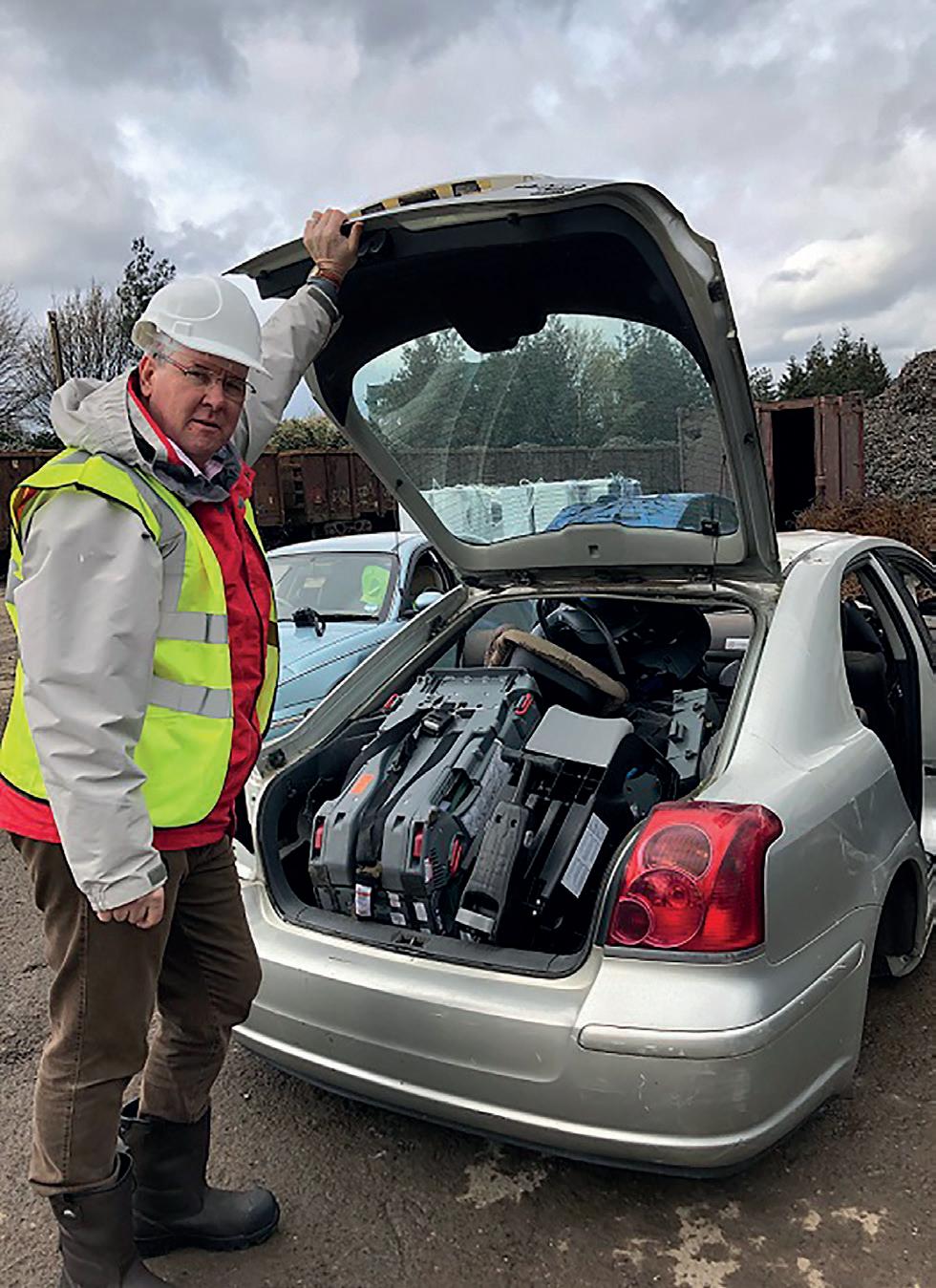
Breaking down and separating is labour intensive, costing more than the value in the recovered material.
Shredding is highly efficient and can provide a return, however depends on extremely large volume for processing and limited to only a few processors. However once including logistics of moving bulky car seats from the extreme ends of the country to a processing plant, there is no margin remaining.
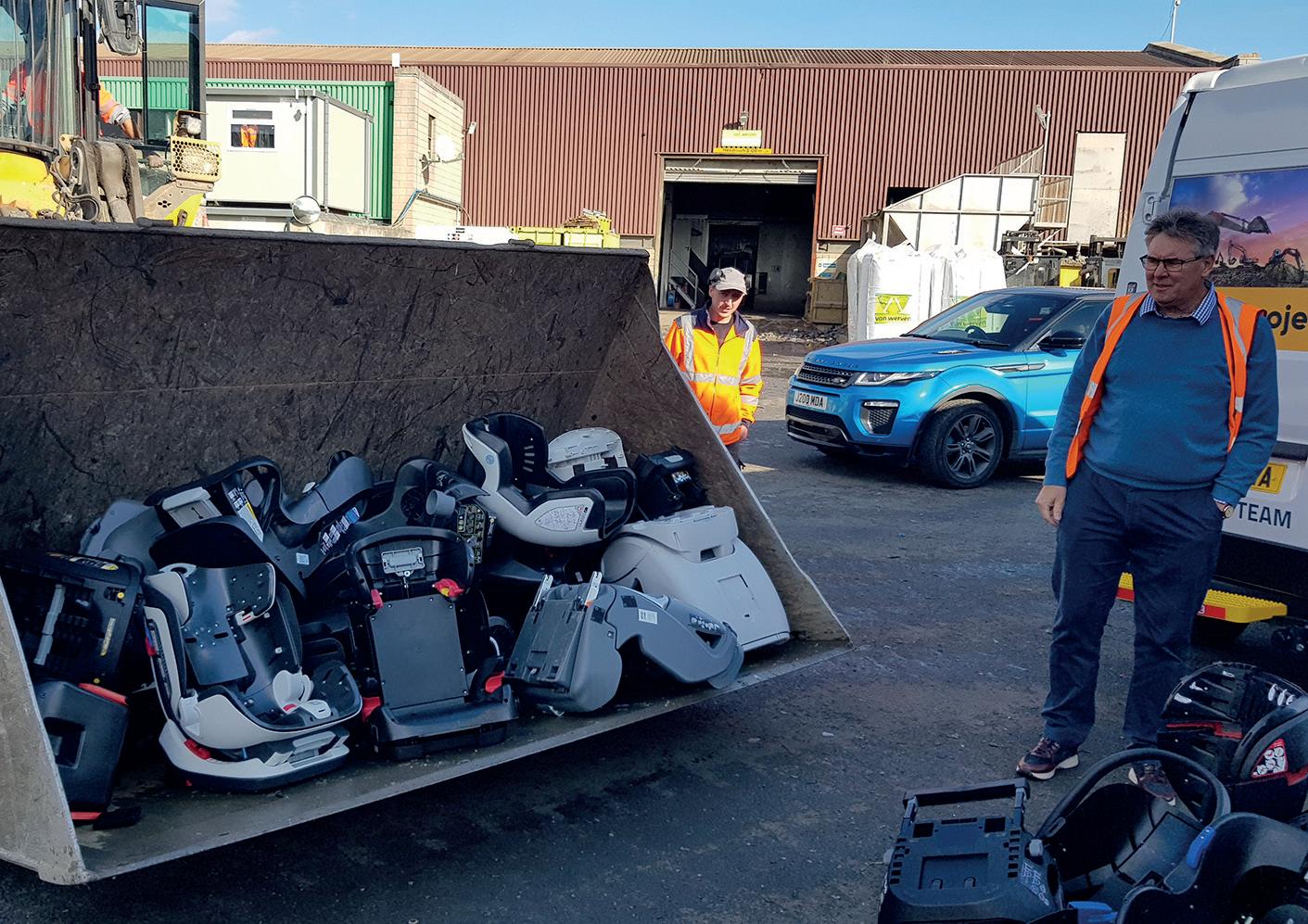
What is the way forward for child car seat recycling?
In summary finding a cost-effective disposal solution for car seats and many other juvenile product is going to need a combined effort by brands, retailers, waste management and consumers.
The economics of handling, processing and recovering material from most juvenile products, but in particular child car seats is not viable.
Having explored the many options and routes JMDA has concluded that the only solution is for brands, or a new enterprise, to receive the seats from consumers and to then break them down into the three groups of metals, plastics and foam/fabrics. Having a direct service agreement with dedicated processors for the three groups of materials is essential.
The processors will pay for the metal and plastic, but foams and fabrics will go into the general waste stream for incineration. This income can subsidise the cost for breaking down.
JMDA is currently working with a local authority to evaluate this process with a view to establishing real facts and figures.
Get involved
Any brands, retailers wishing to know more or support the ongoing project, please contact Derrick Barker at JMDA design@jmdadesign.com www.jmdadesign.com
The Statis tics:
Energy for an environmentally conscious community
Eco/Sustainable nursery today 45
Brands You Can Rely On
Combining research, innovation and a lot of determined effort, Baby Brands Direct are witnessing multiple brands they distribute reach social and ethical milestones.
Carbon neutral with MAM
A great example is MAM, who following 7 years of research, has recently launched its first carbon neutral soother made from 100% bio-renewable materials. They selected ISCC+ certified Circular PP as their material, as this is based on renewable resources, uses 2nd generation feedstock and does not compete with the food chain. Its production is traceable back to components including used cooking oils, giving them a second life, whilst guaranteeing the safety and superior quality of its product. Adding to this, the steriliser box they come in, when used in the microwave to sterilise can reduce CO2 omissions by 77% (product carbon footprint study of MAM soothers by denkstatt GmbH, March 2017).
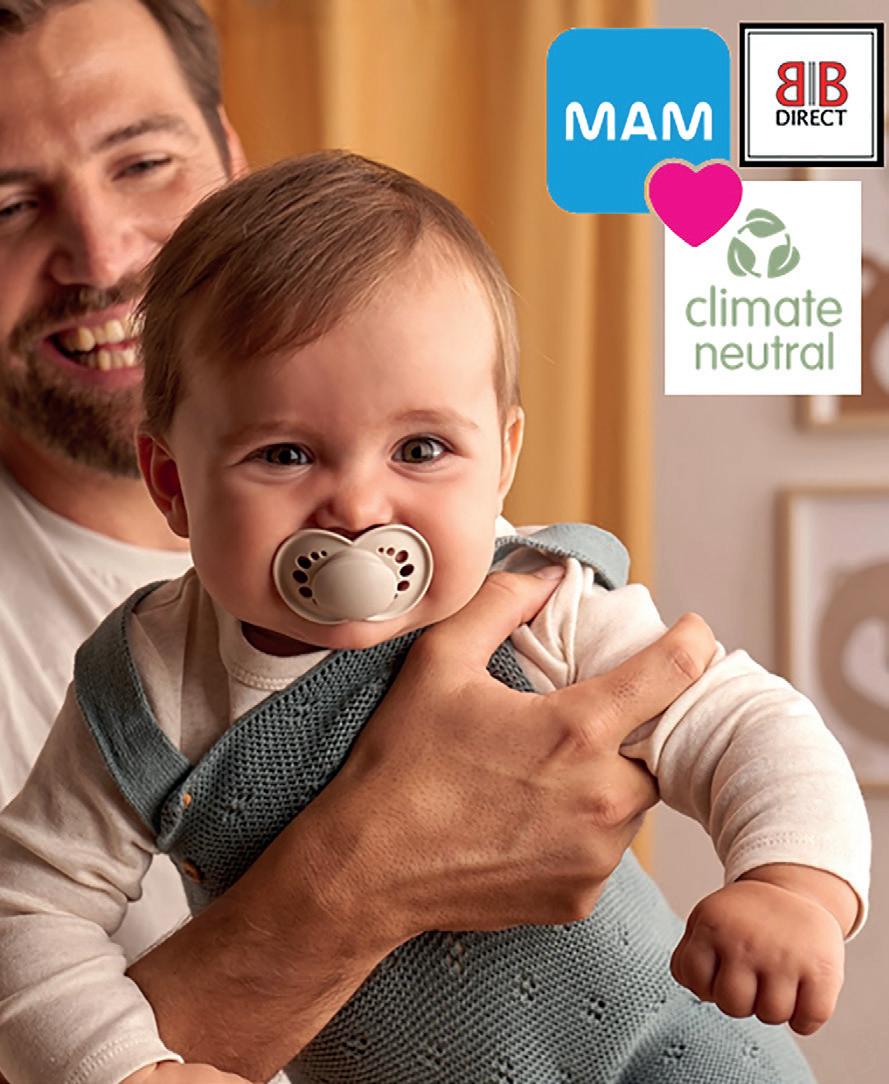
Go green with NUK
Using 100% green electricity, NUK’s plant in Germany, produces an ISCC certified soother with a pure natural rubber teat, that is particularly soft and bite resistant and sourced from the milk of a rubber tree. It’s biodegradable with a lower CO2 footprint than silicone. It comes packaged in a 100% paper box.
Milton plant-based ingredients
Milton’s has transitioned four of their key products to be made from 100% plant based active ingredients, that are biodegradable formulas and still 99.9% effective against germs. Their antibacterial range has all transitioned including Surface Spray, Hand Foam and Laundry Cleaner as well as their multi
The team at Baby Brands Direct.....
.... are impressed that in every sector of the nursery categories that they distribute products in, there is tangible change, continued developments and choices available to independent retailers for Eco Friendly products. For some retailers purchasing via a wholesaler such as Baby Brands Direct can also reduce their own carbon footprint by consolidating orders as compared with sourcing from multiple manufacturers.
award winning Baby Bottle Cleanser, attributed Silver in M&B’s 2023 best product for bottle feeding category. All of these items are also packaged in materials from recycled and in recyclable packaging.
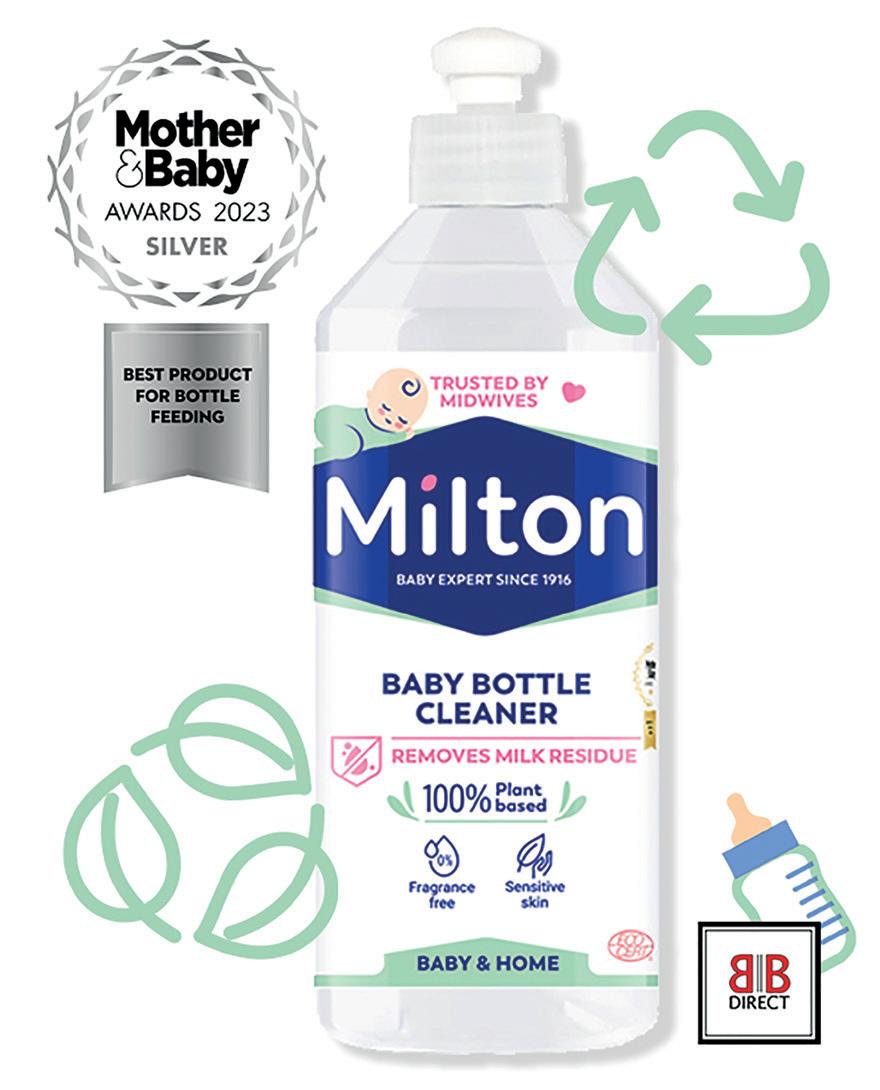
Recycle with Keel Toys
Brands including Keel Toys have been at the forefront of bringing to market plush toys that are completely manufactured and packaged from recycled materials. Soft and cute as ever, the KeelEco range is manufactured and stuffed with 100% recycled polyester from plastic waste, which additional uses up to 59% less energy as compared with virgin polyester.
Fisher-Price stands for sustainability
Fisher-Price’s iconic Rock-A-Stack toy is made from plant-based materials - a minimum of 90% ethanol extracted from sugar cane and comes in FSC certified packaging. Suitable from 6months, it helps develop fine motor skills, problem-solving skills and introduce the concept of size.
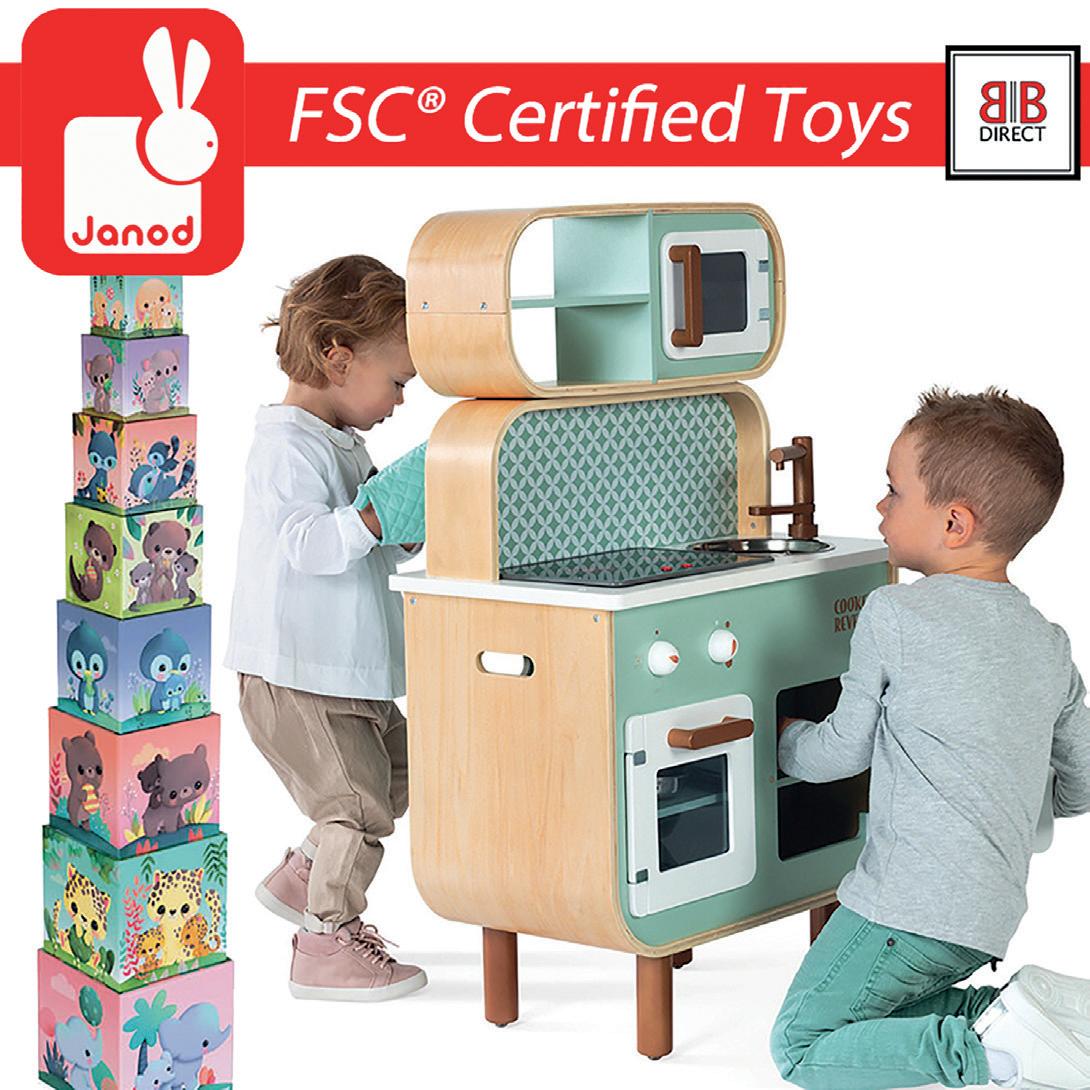
Bio-plastics make Wiltopia’s PLAYMOBIL figures an eco choice
In figure toys, Wiltopia’s range by PLAYMOBIL is a great choice, made from 80% recycled as well as bio-based plastics, it has a natural matt shine that’s complimented by the pastel colouring of the toys. The theme itself is all about educating children through play on how important animals and the environment are for the continued survival of Earth, with the playsets providing free access to audio and video content.
Janod FSC certified
One of Baby Brands Direct favoured supplier of wooden toys is Janod, they use FSC certified wood and additionally use water-based paint to illustrate their beautifully curated range of toys. Retailers can access a comprehensive range of activity toys including building blocks, musical instruments, walkers, activity tables to role play toys. They also offer a range of progressive age group puzzles in FSC certified cardboard.
Brands including Infantino and Vital Baby have also been swift to respond, updating their packaging to plastic free.
0208 845 5000 sales@babybrandsdirect.co.uk www.babybrandsdirect.co.uk
46 nursery today Eco/Sustainable Focus Baby Brands Direct

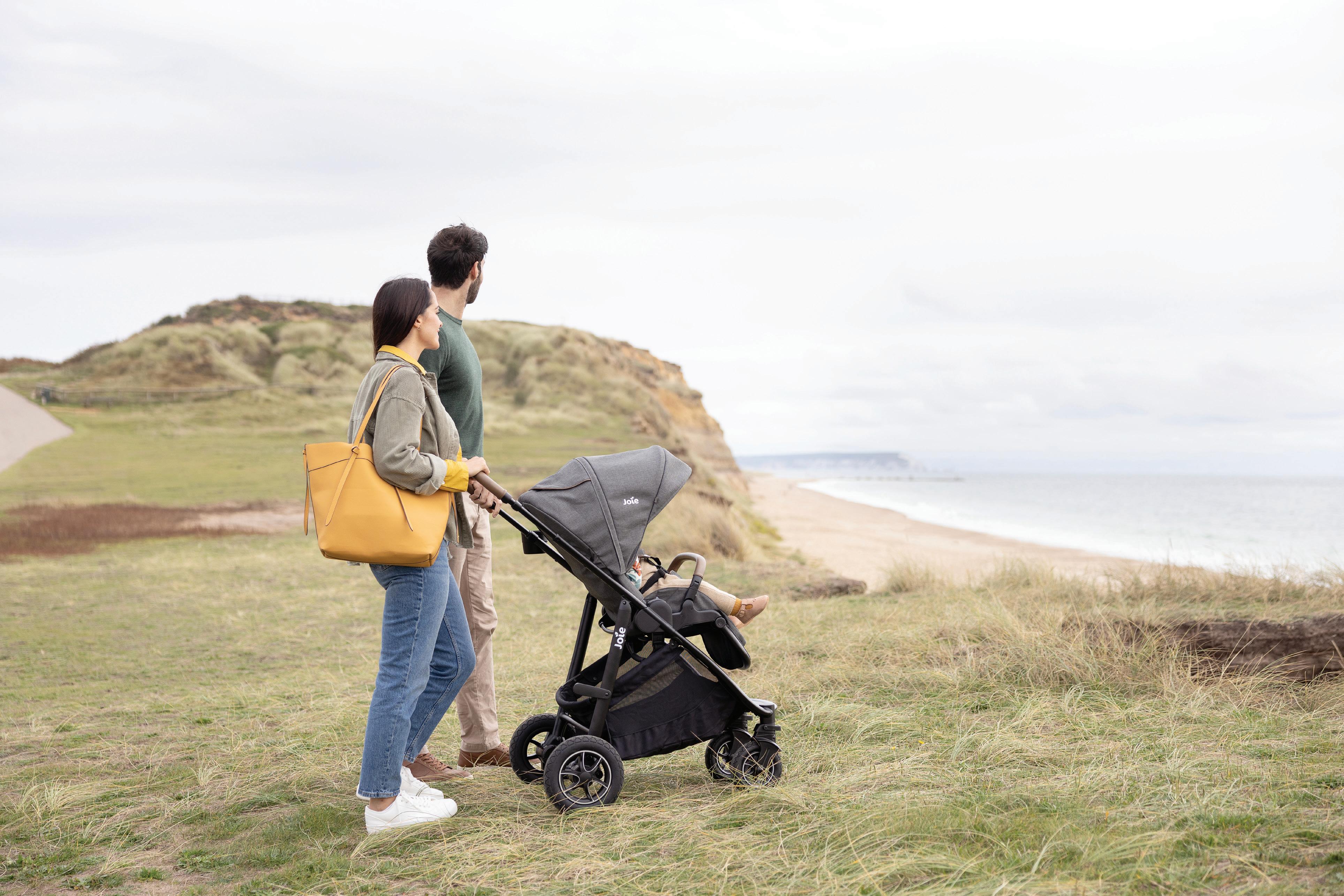
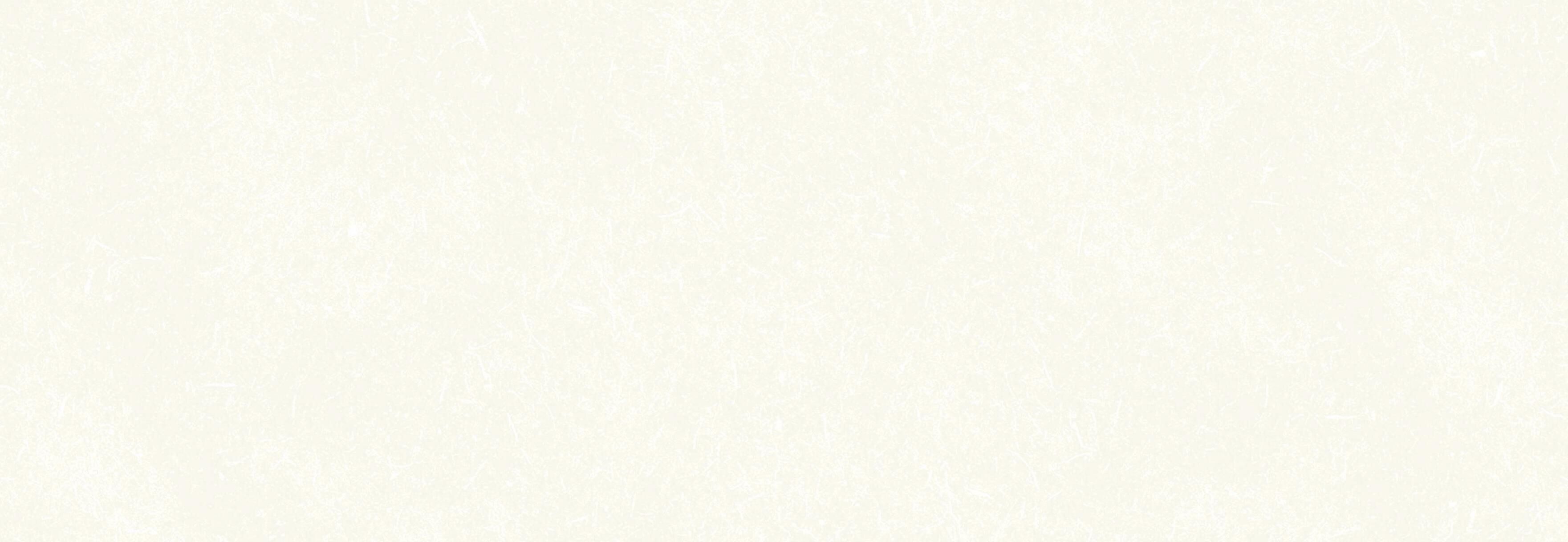
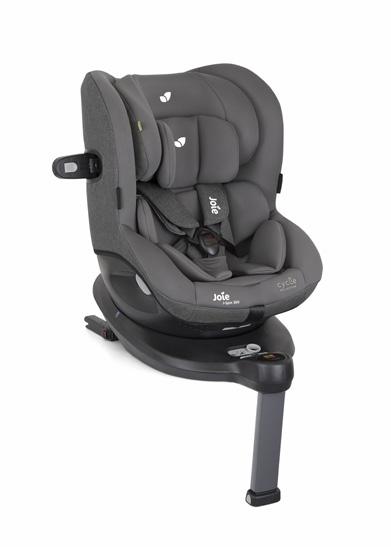
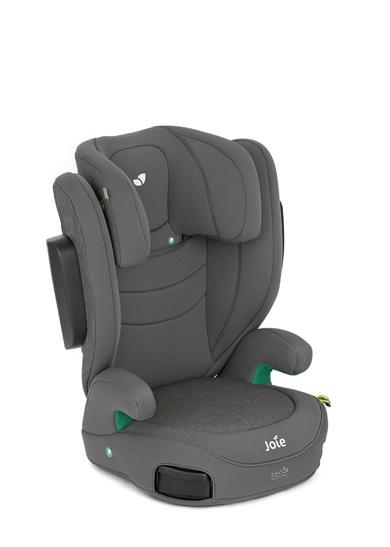
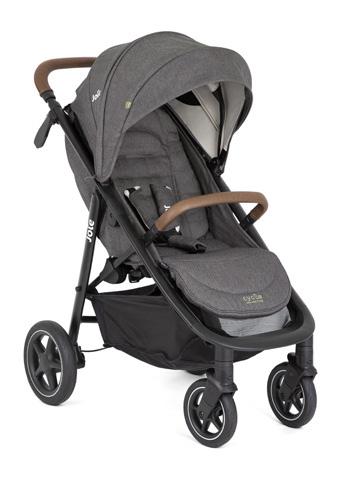

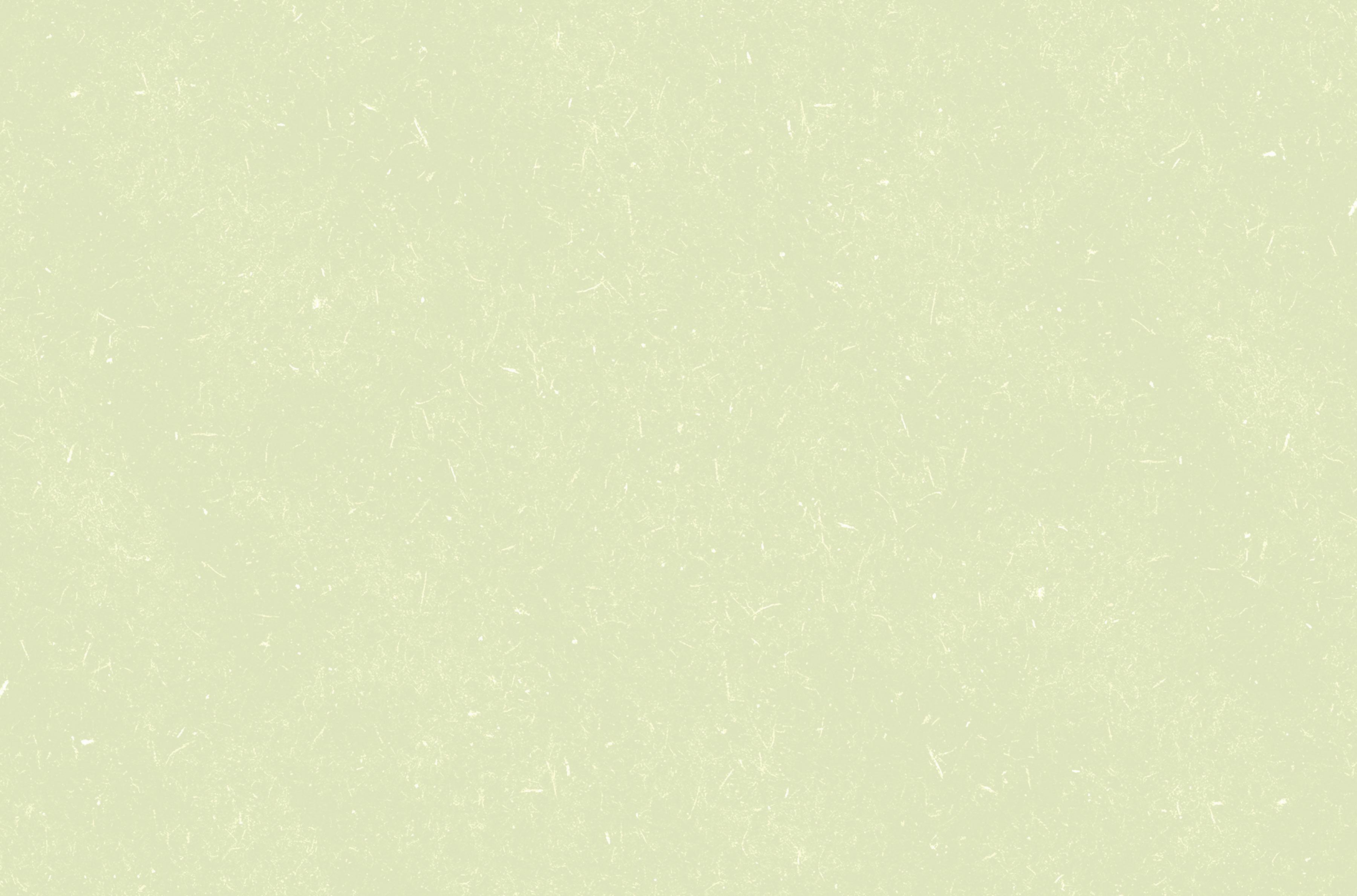
waste wonder e turning trash to threads with the Joie Cycle ollection. Featuring fabrics made from recycled bottles, our environmentally friendly line weaves eco-consciousness into everyday life with baby. recycled fabrics mytrax ™ i-Spin 360™ i-Trillo ™ ne w/av ailable spring 2023 For more info and all sale enquiries, please contact Joie on 01889 808 900 or email: uksales@joiebaby.com






















































































































































































































































































































